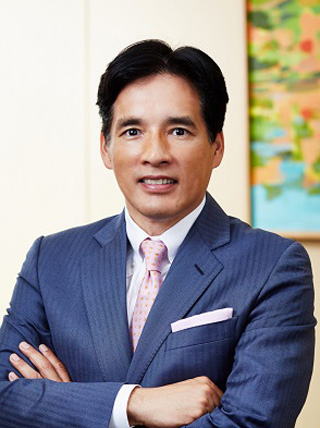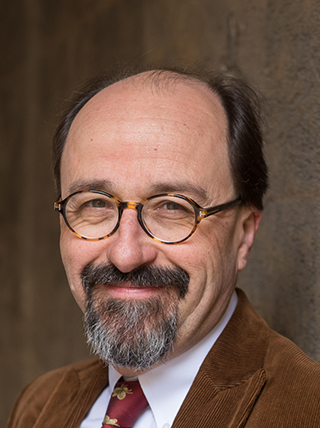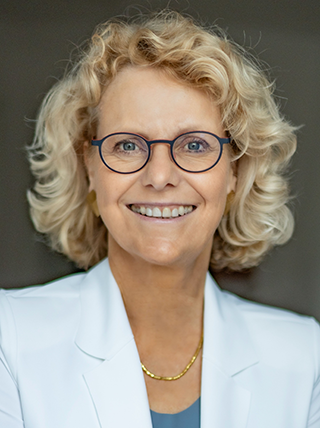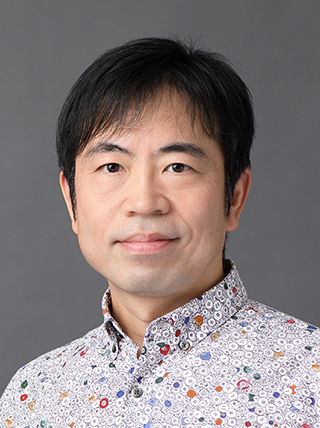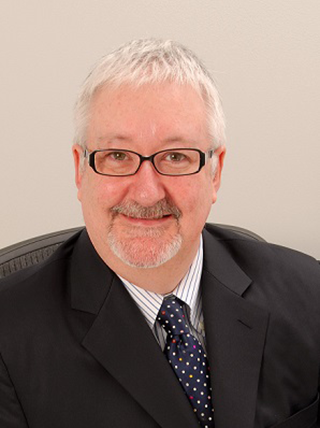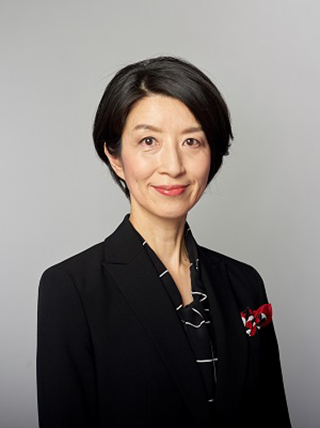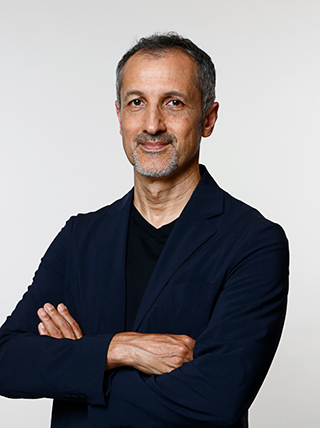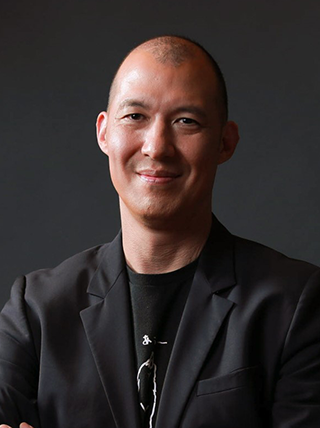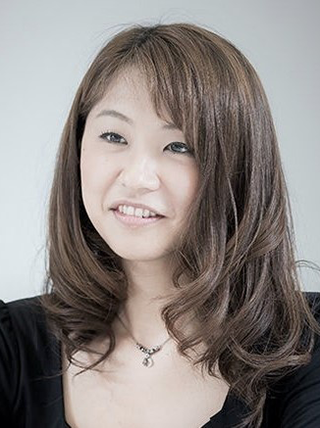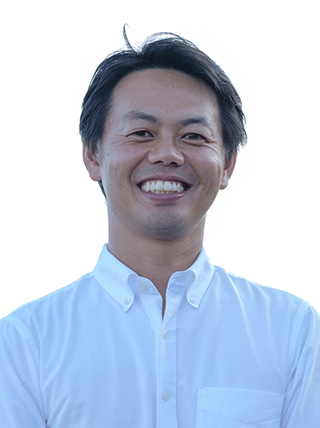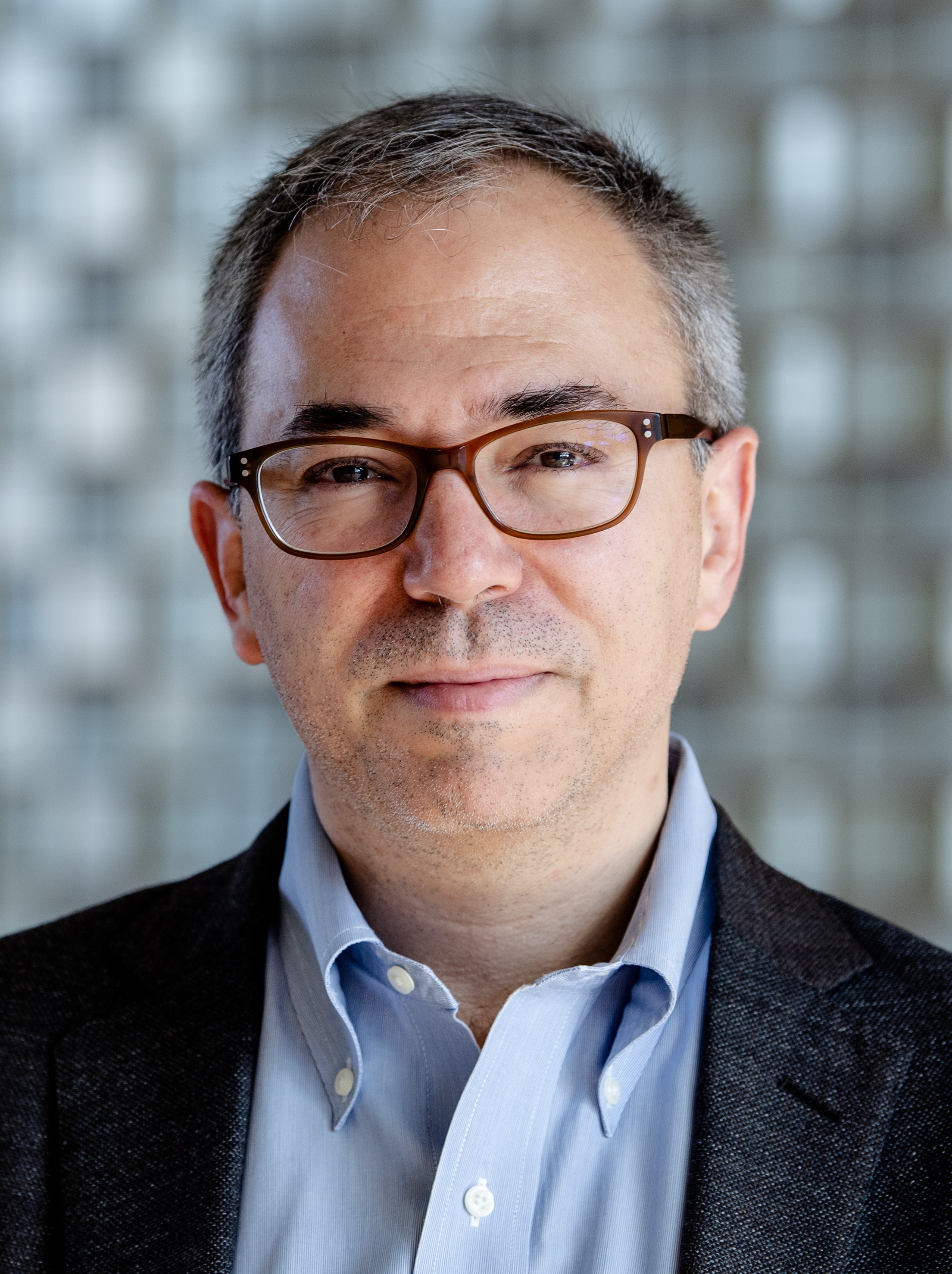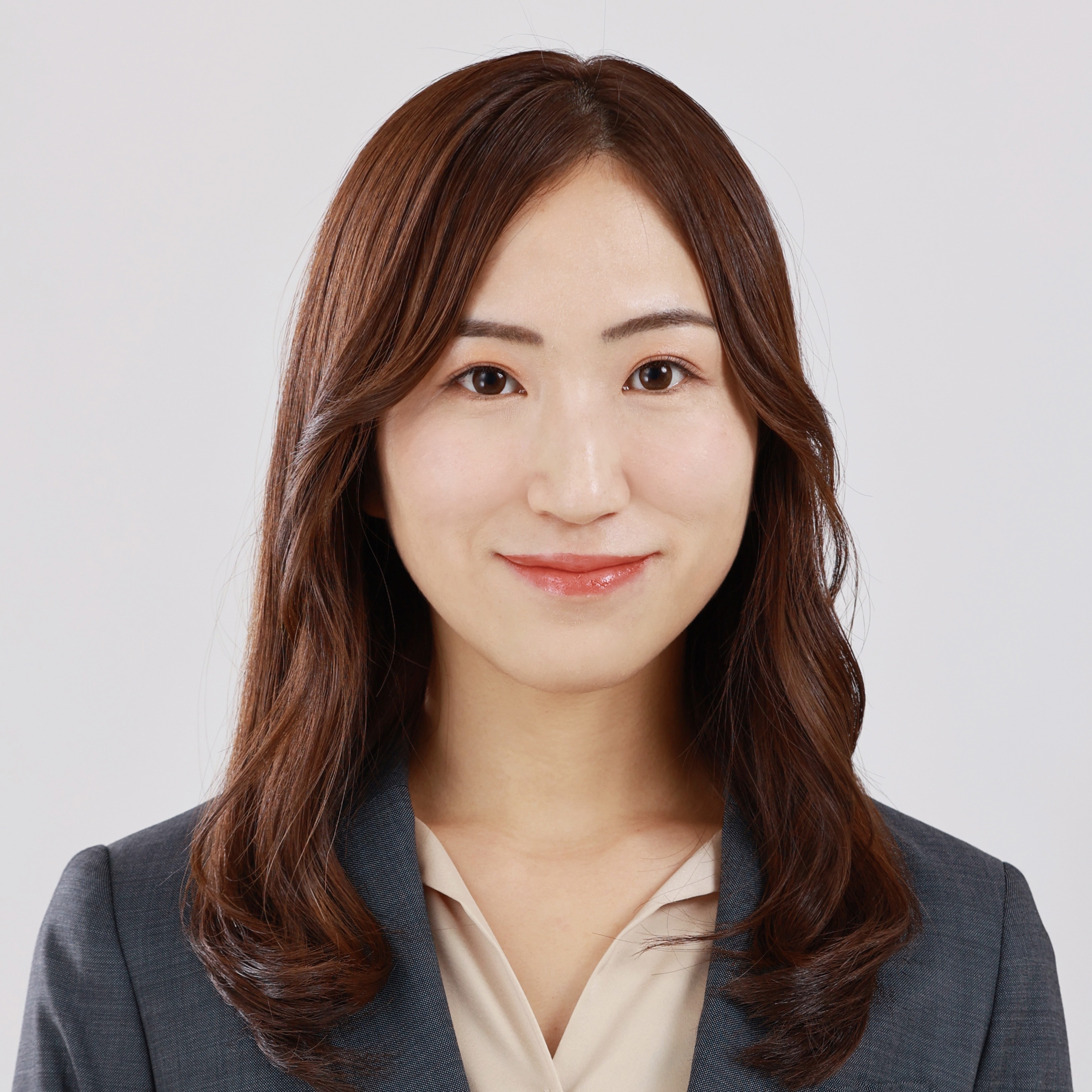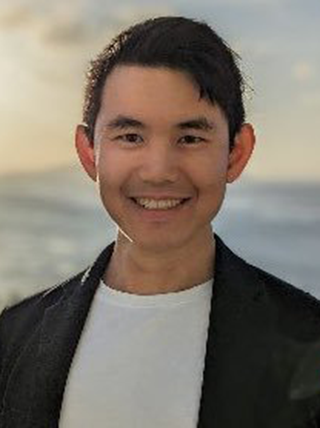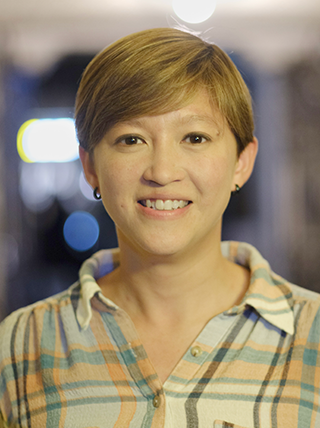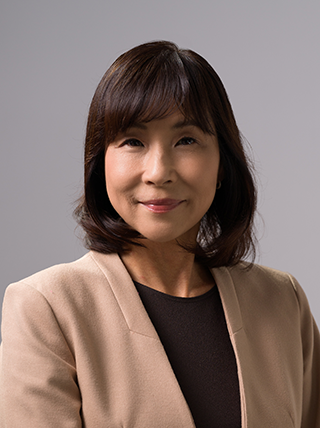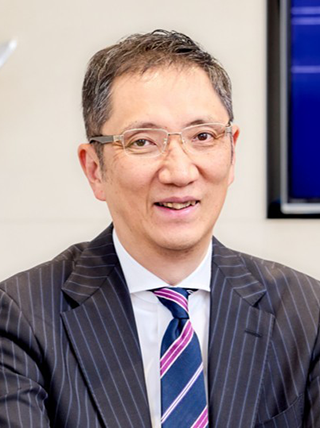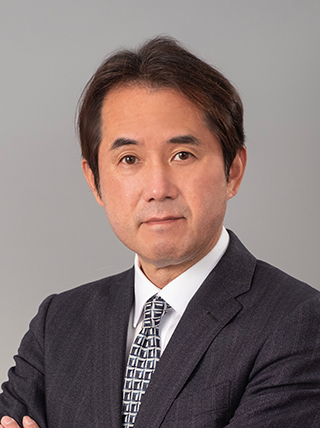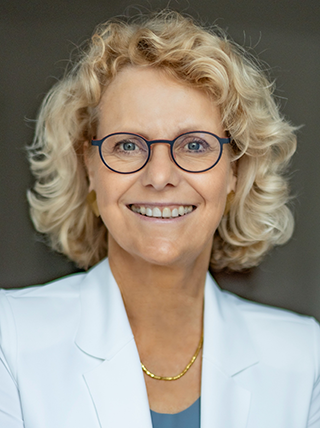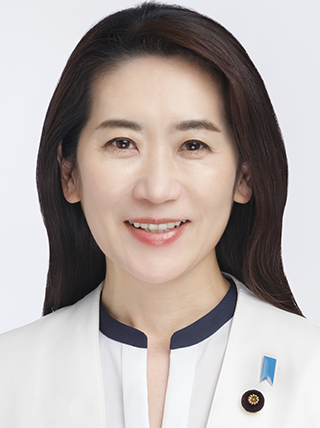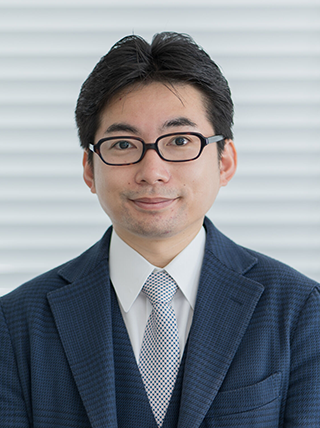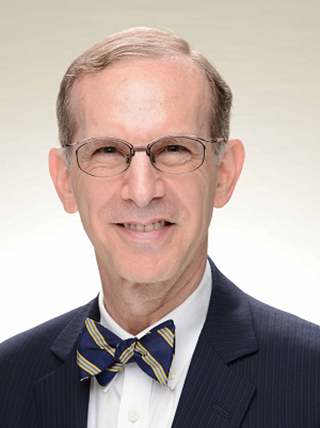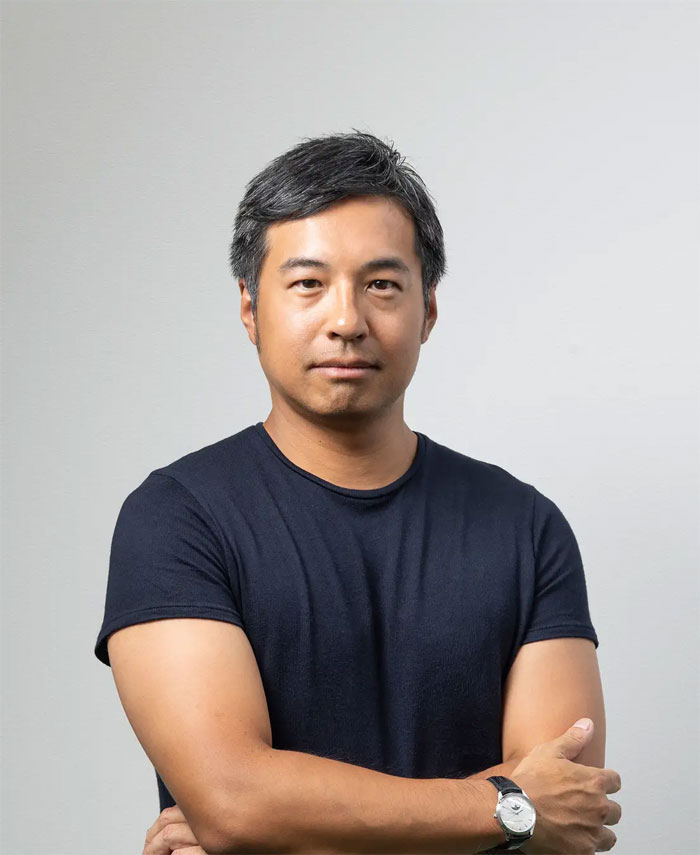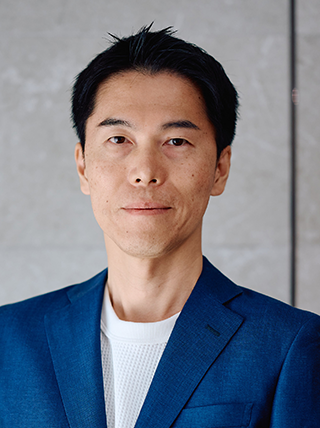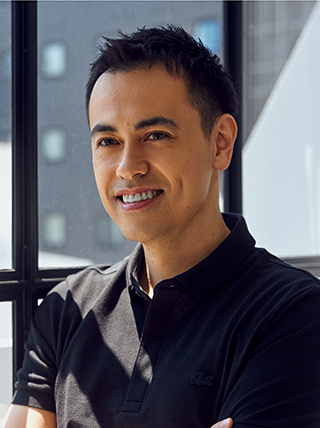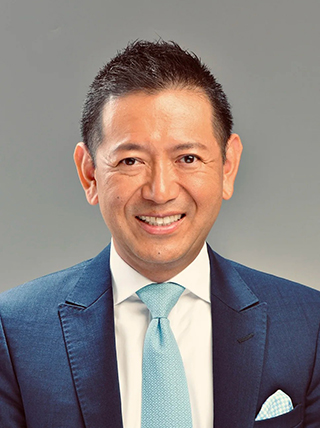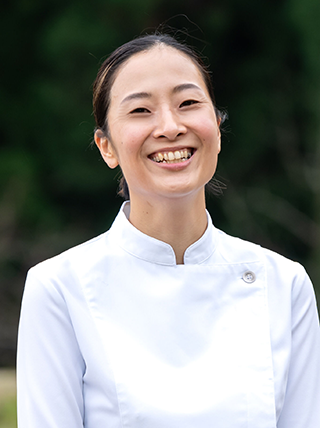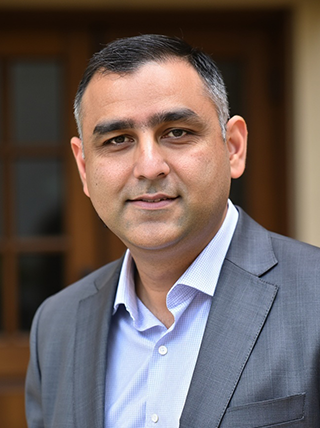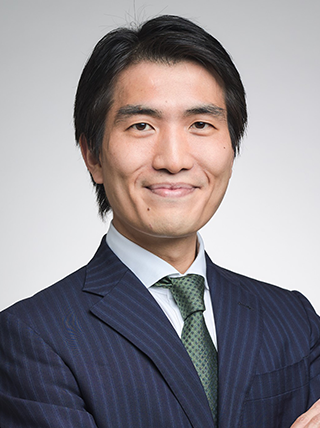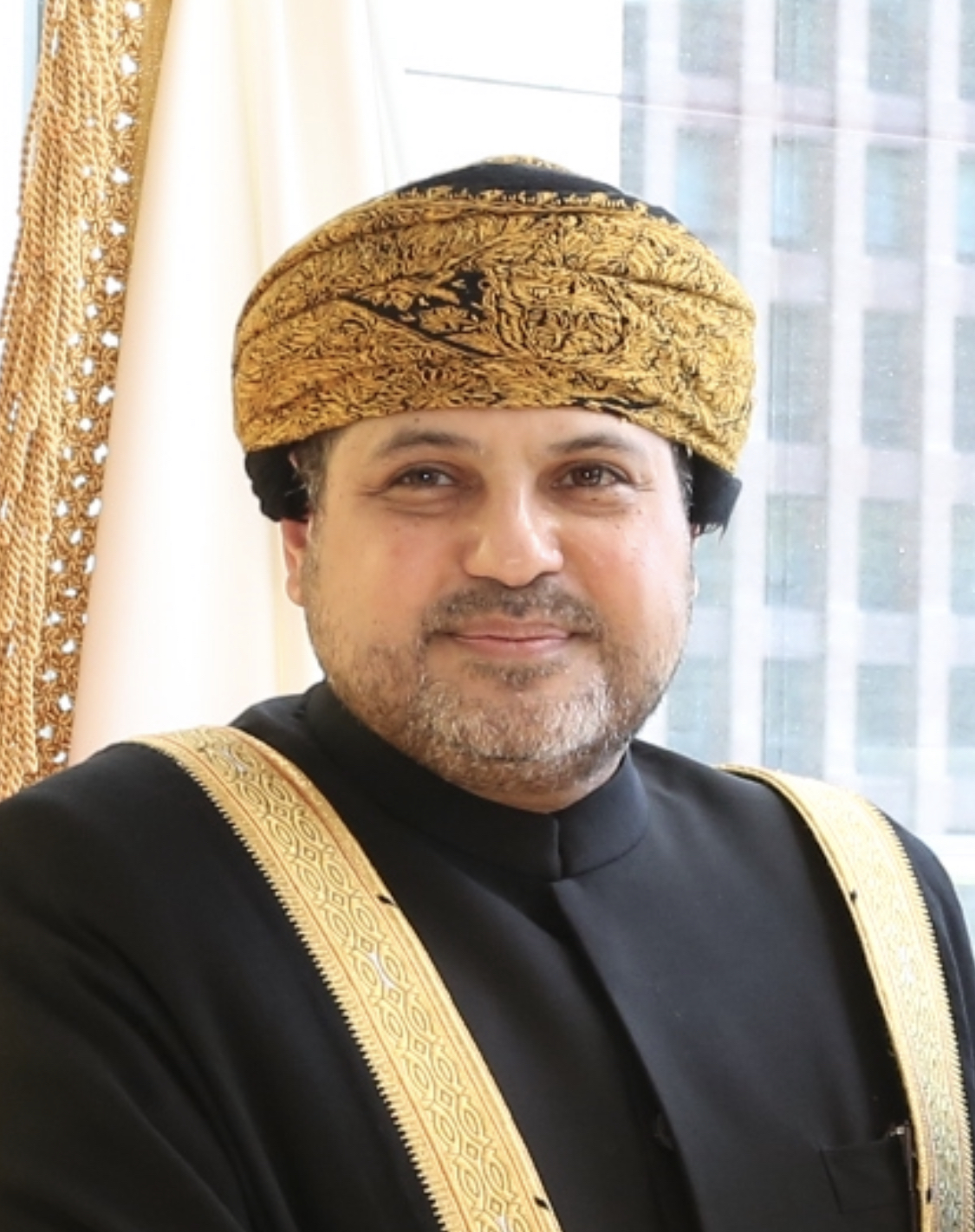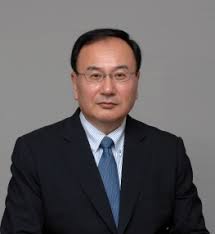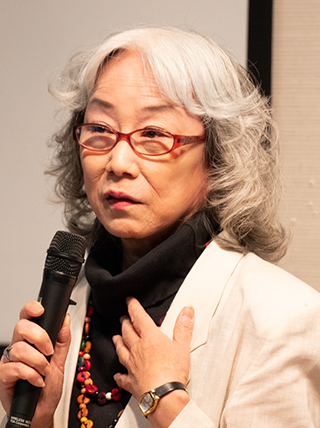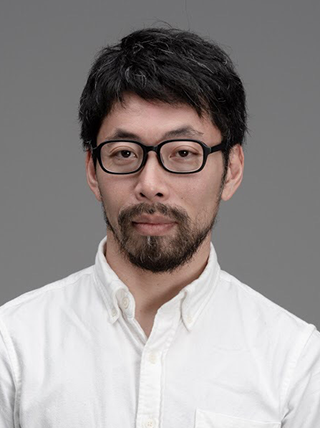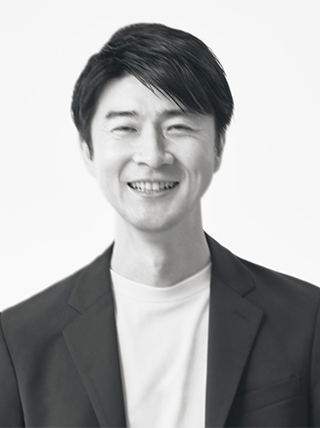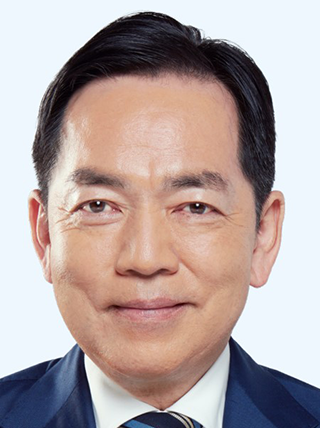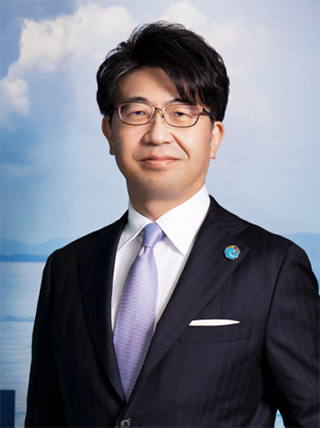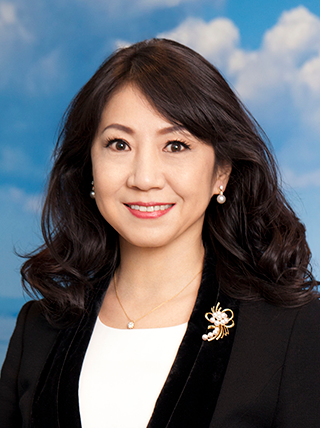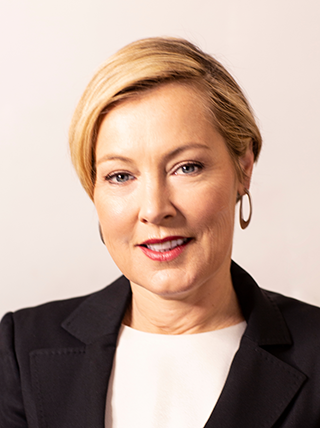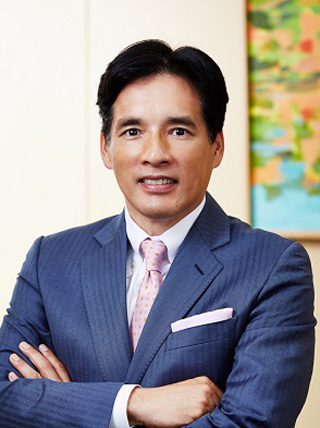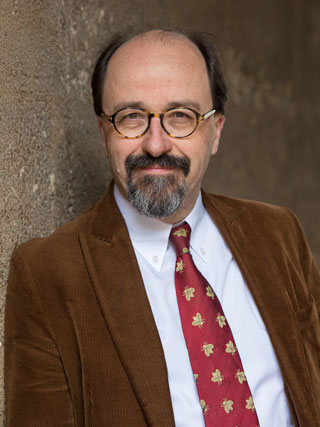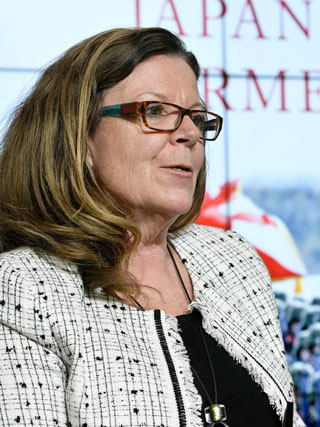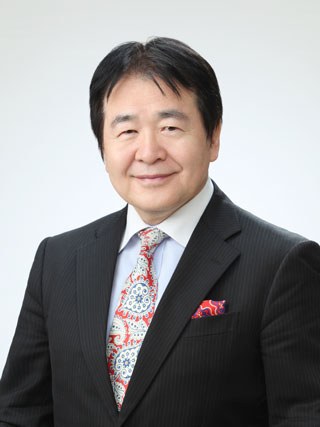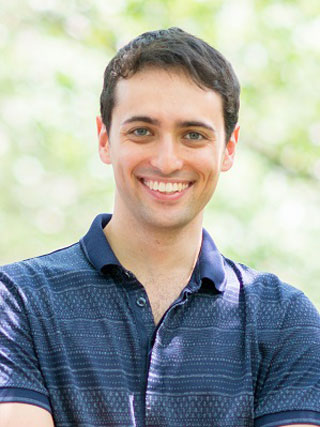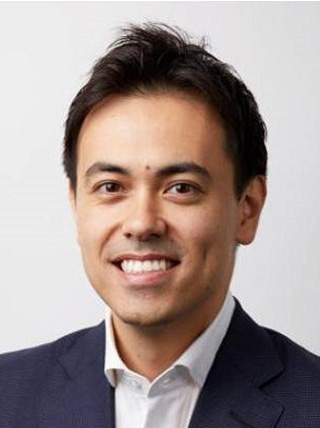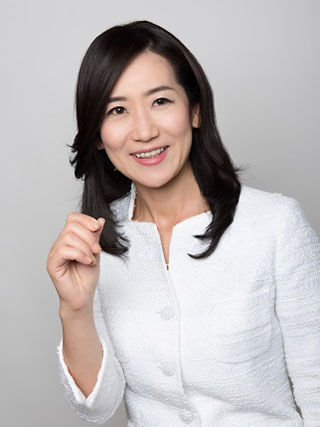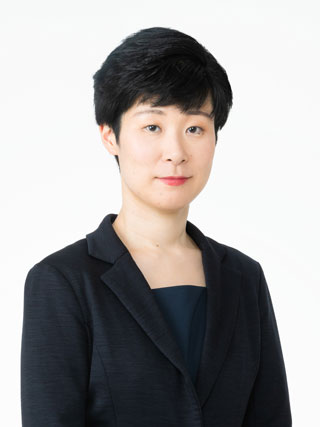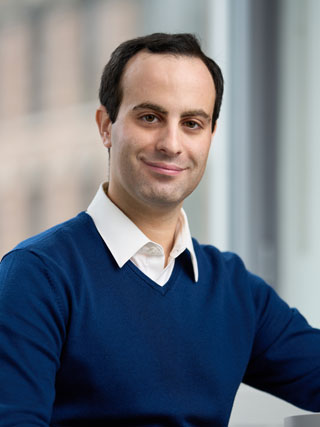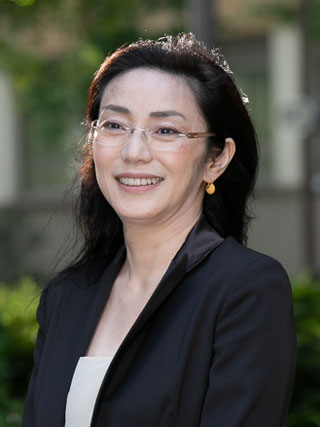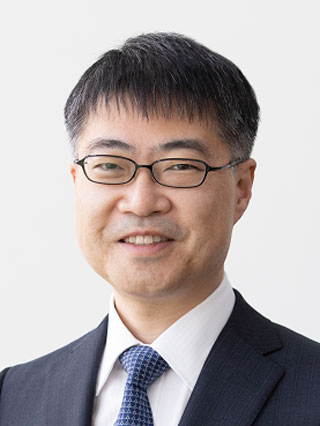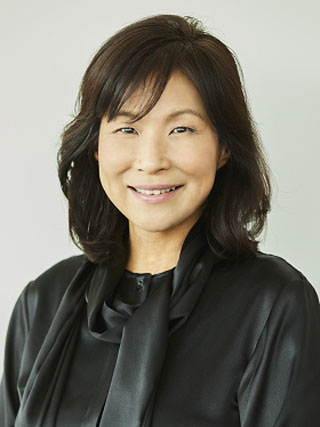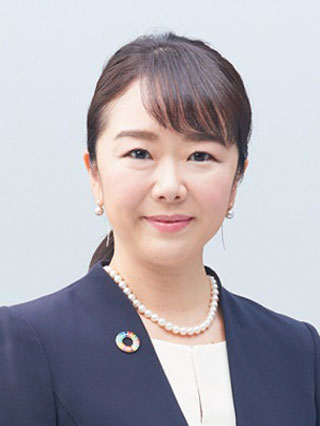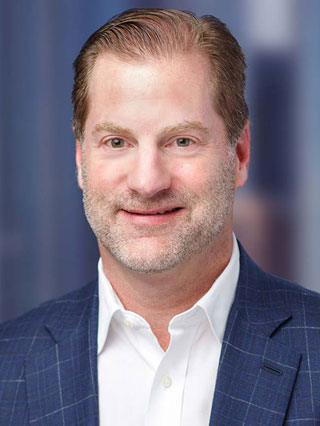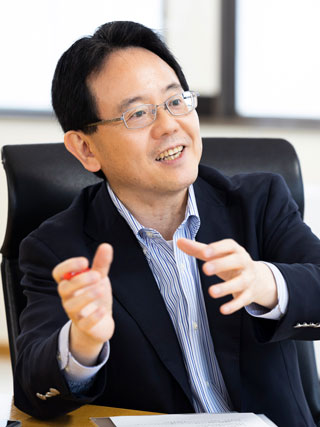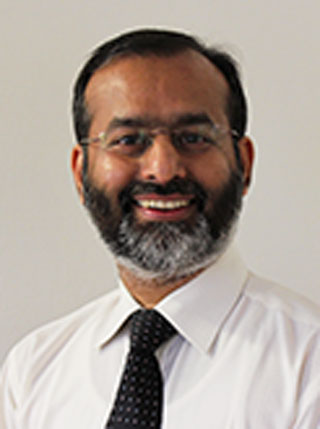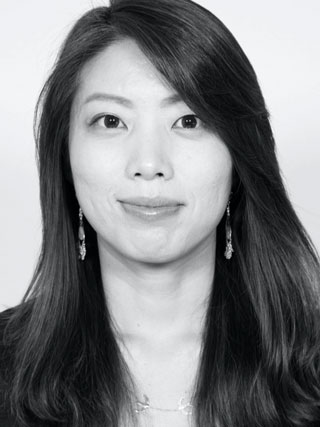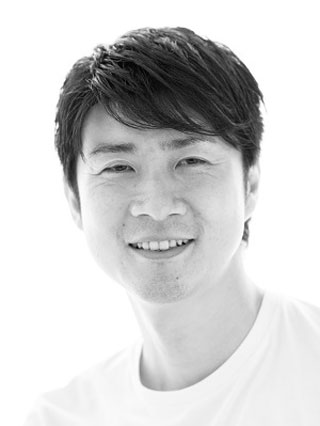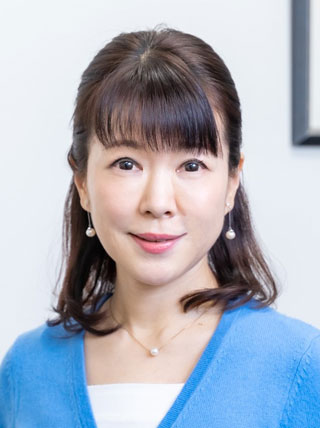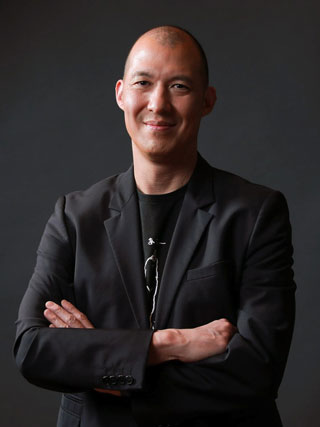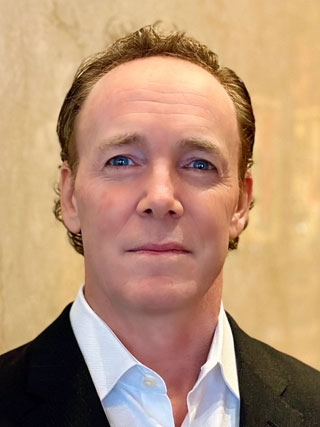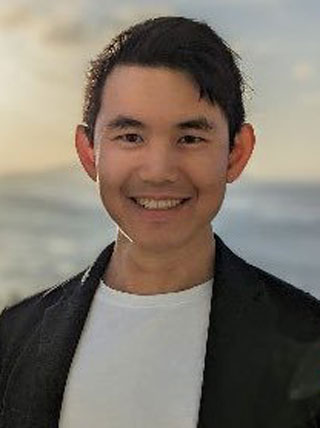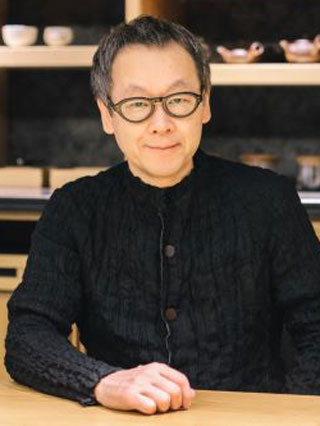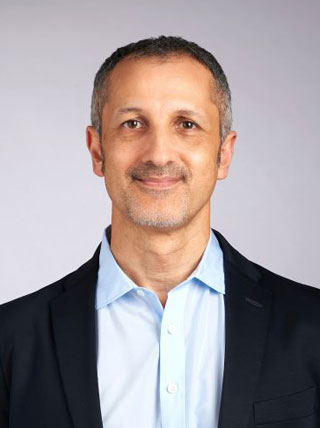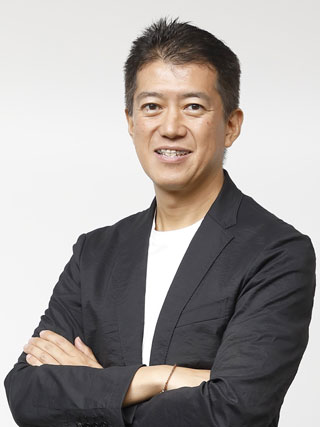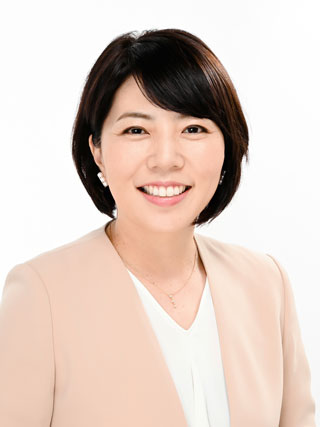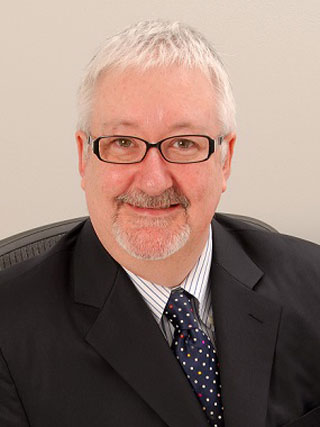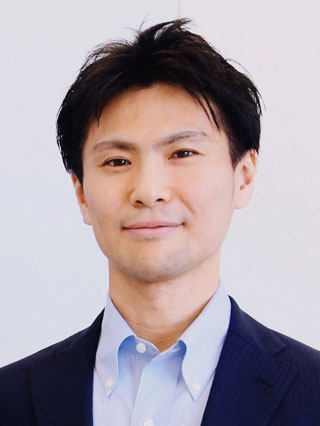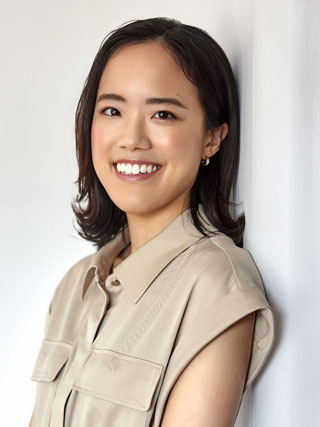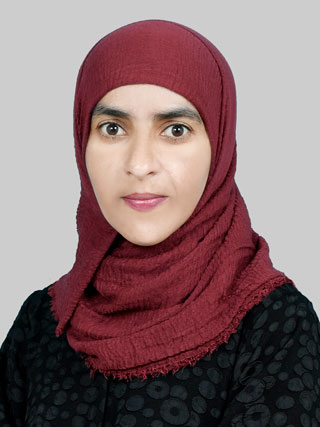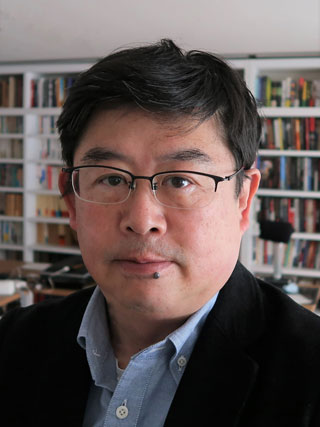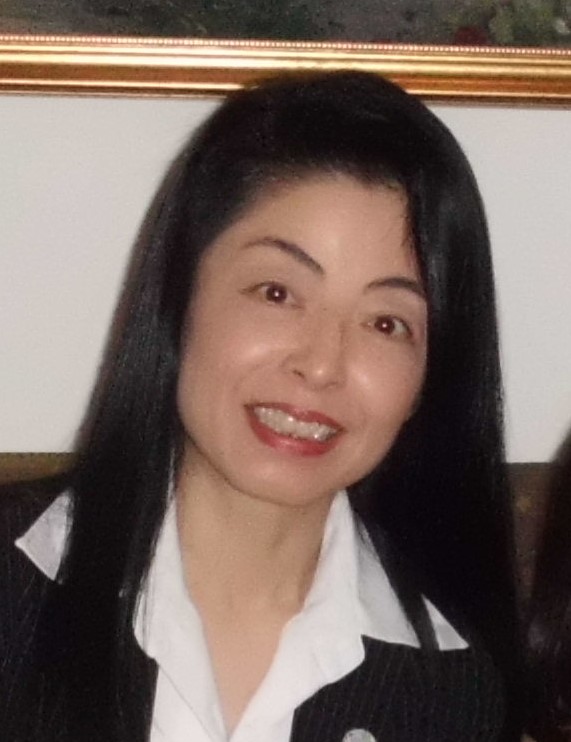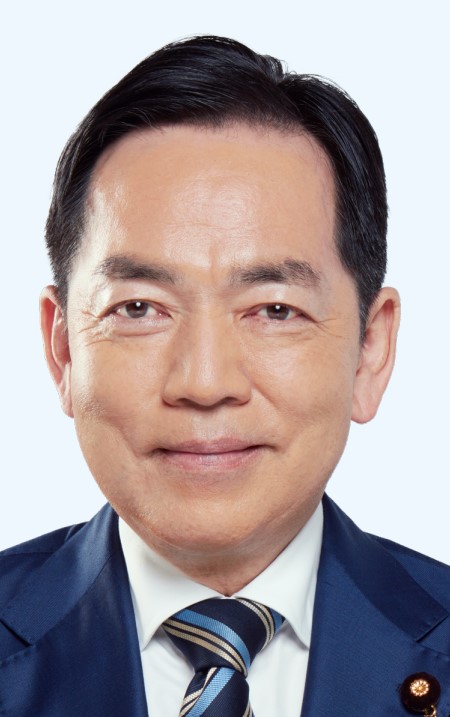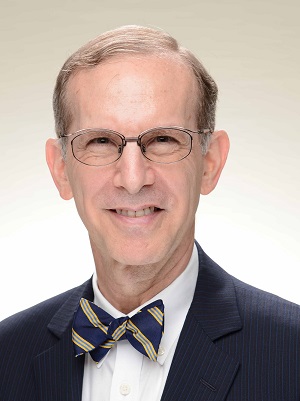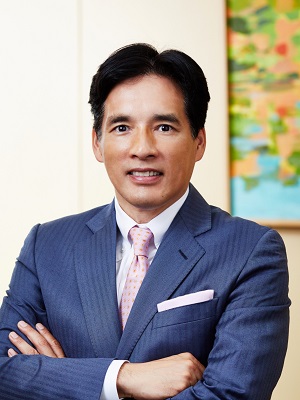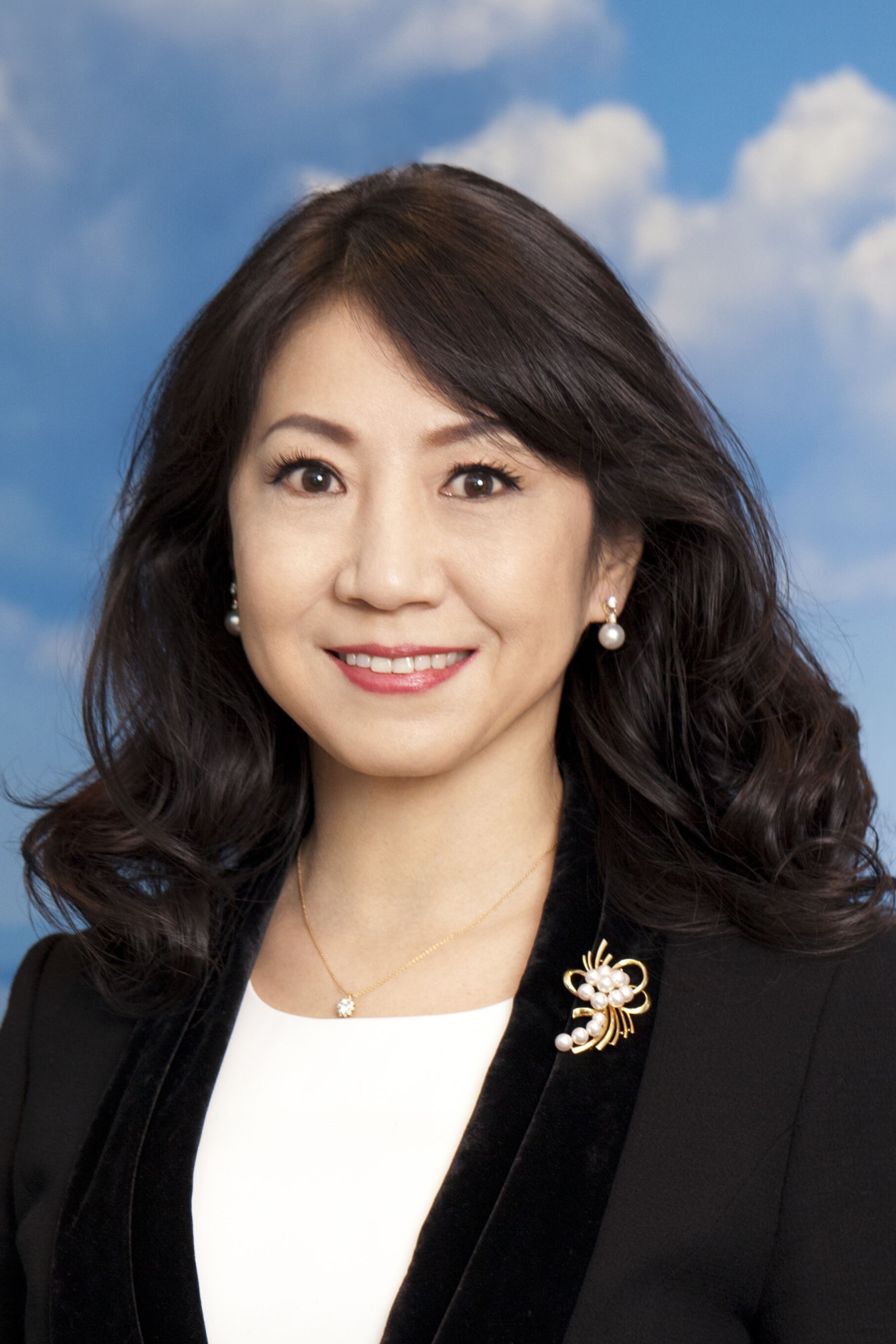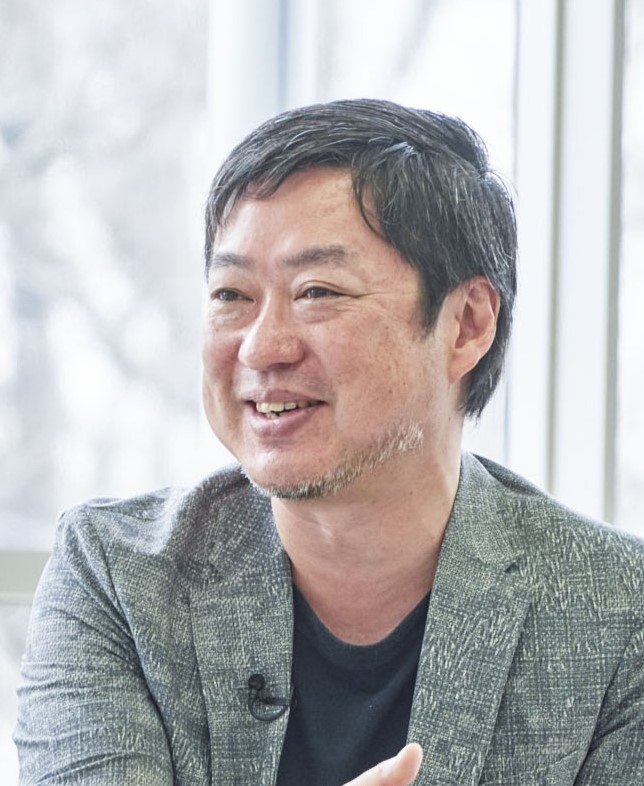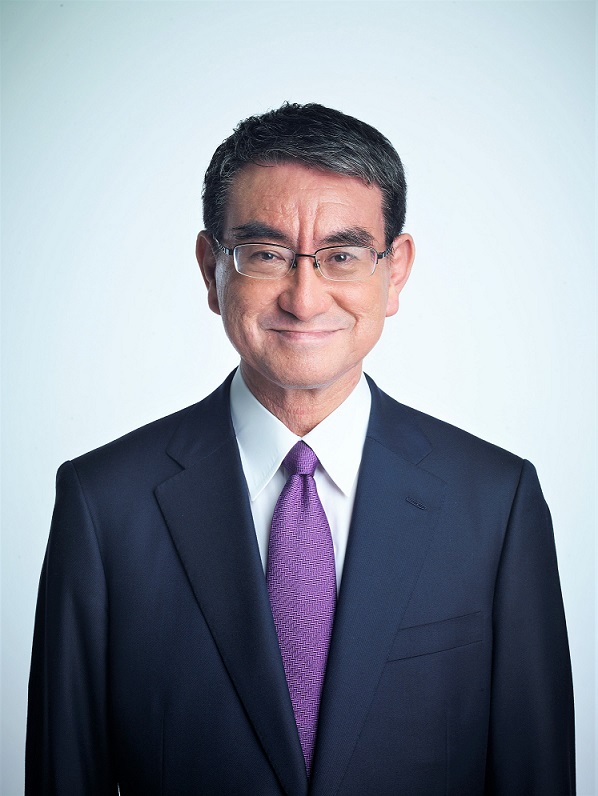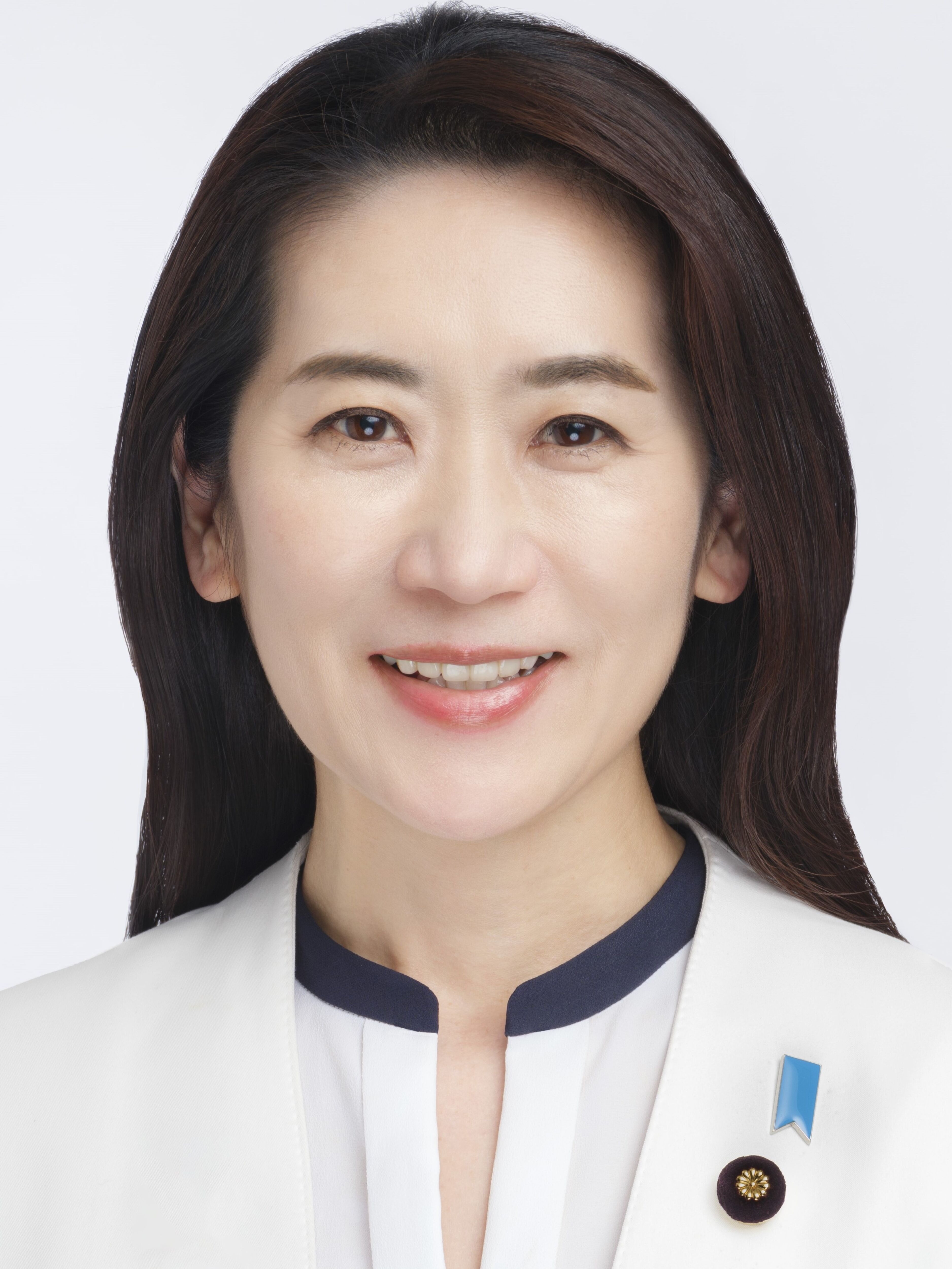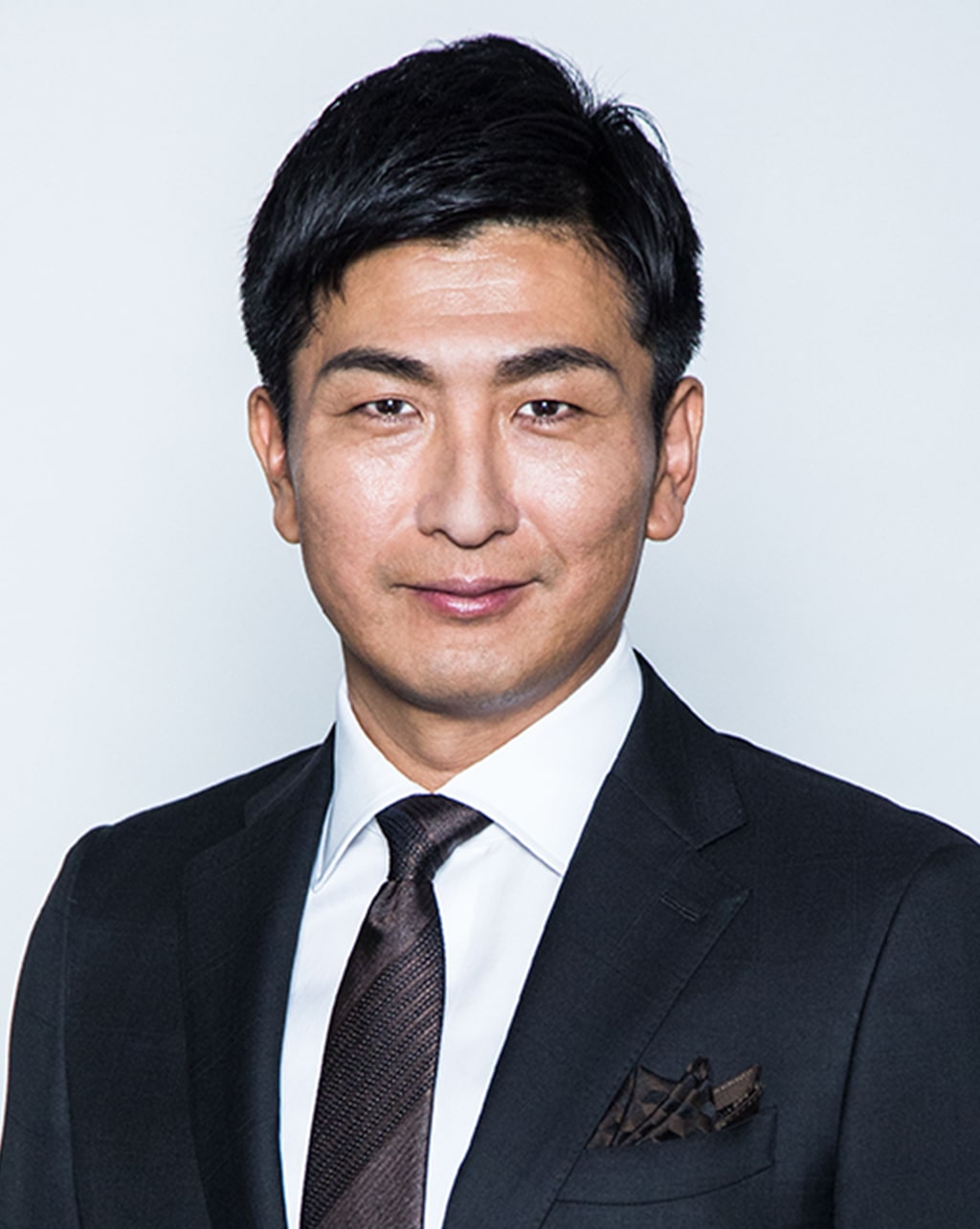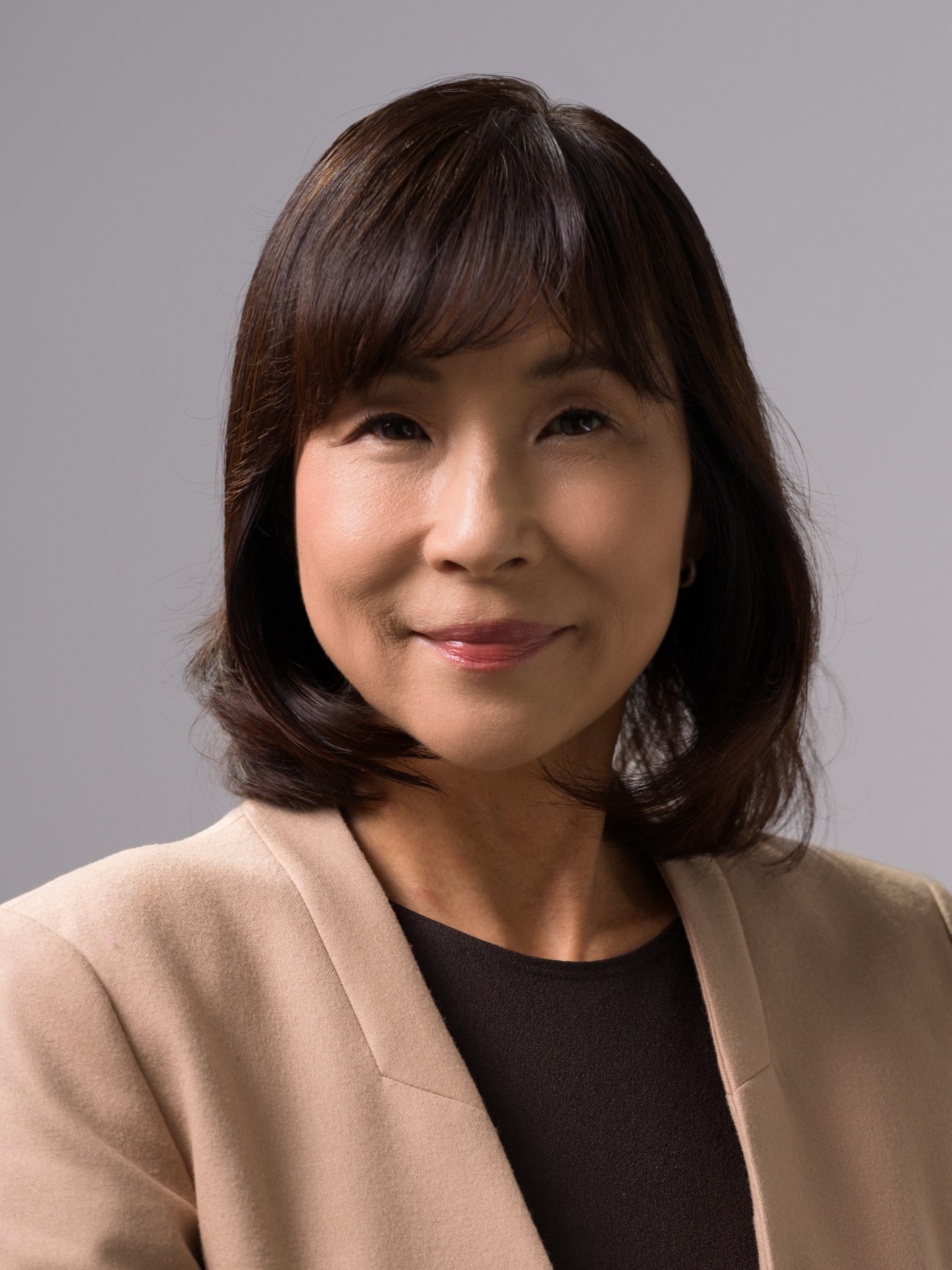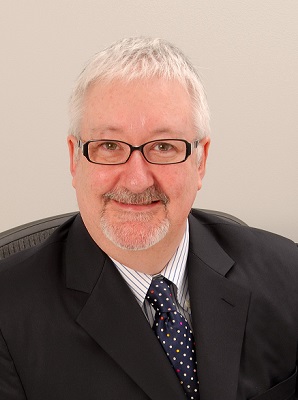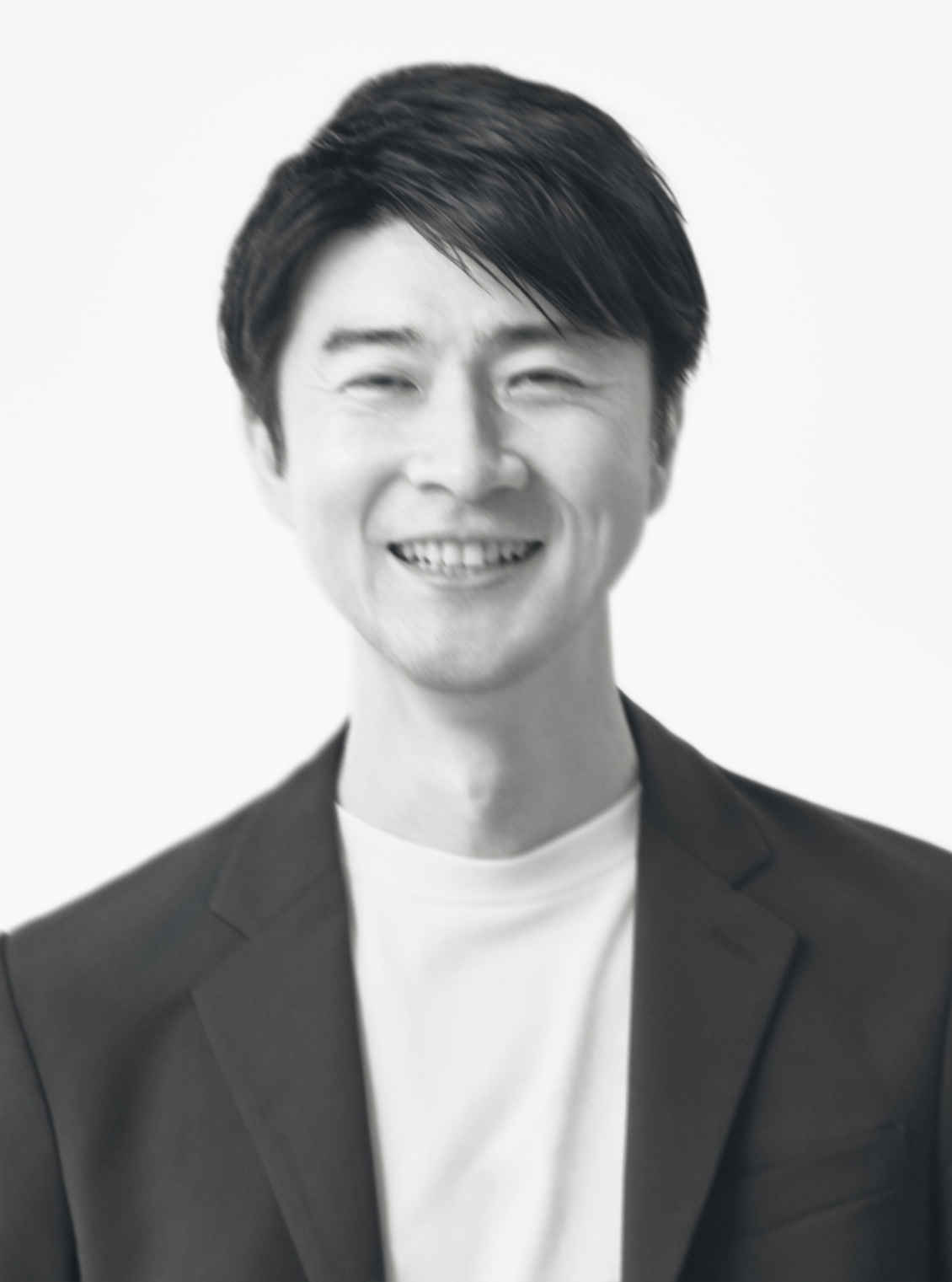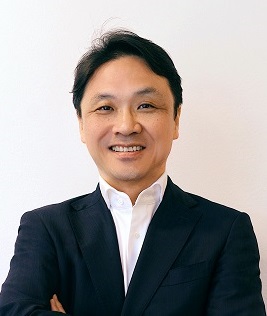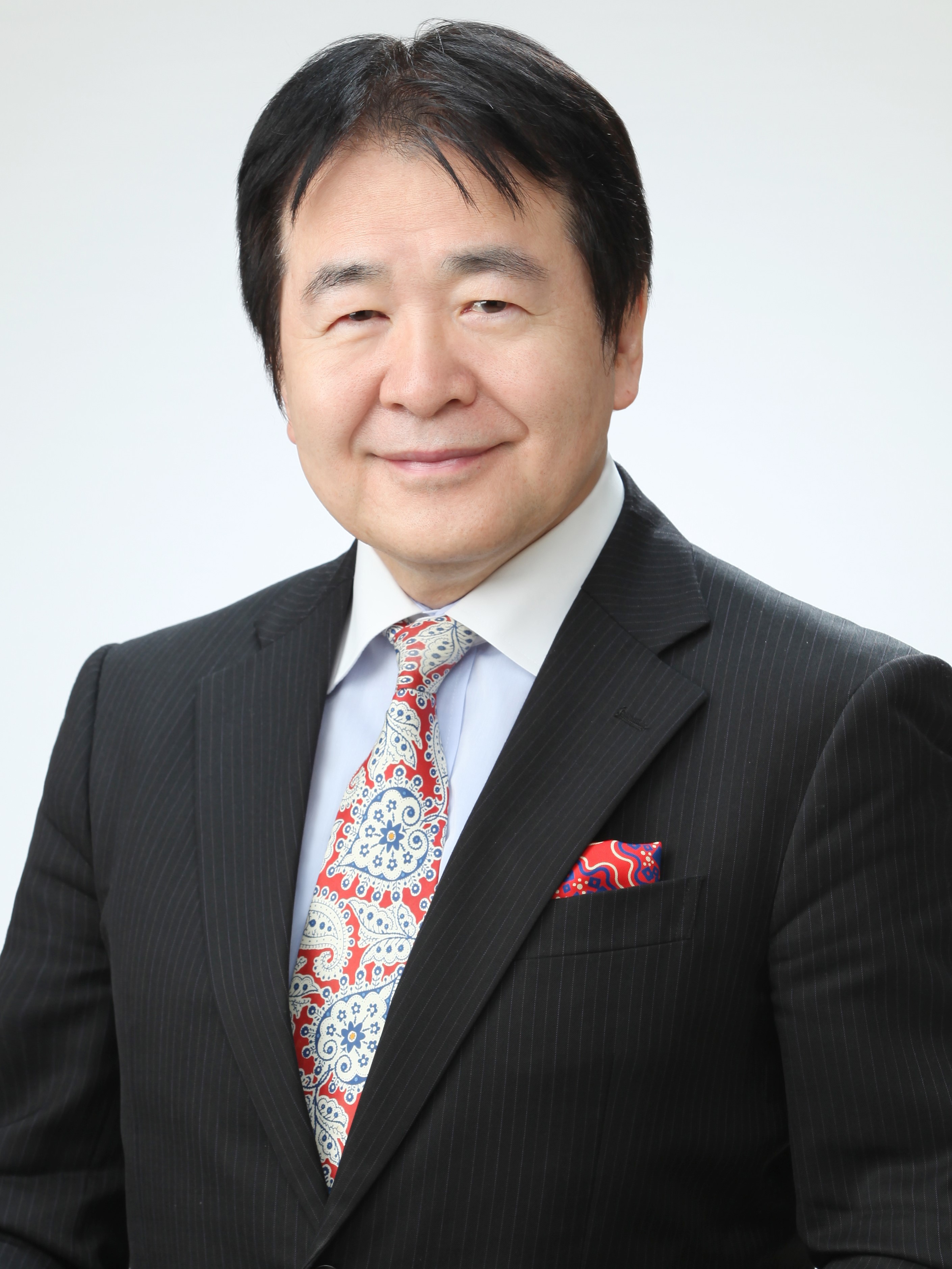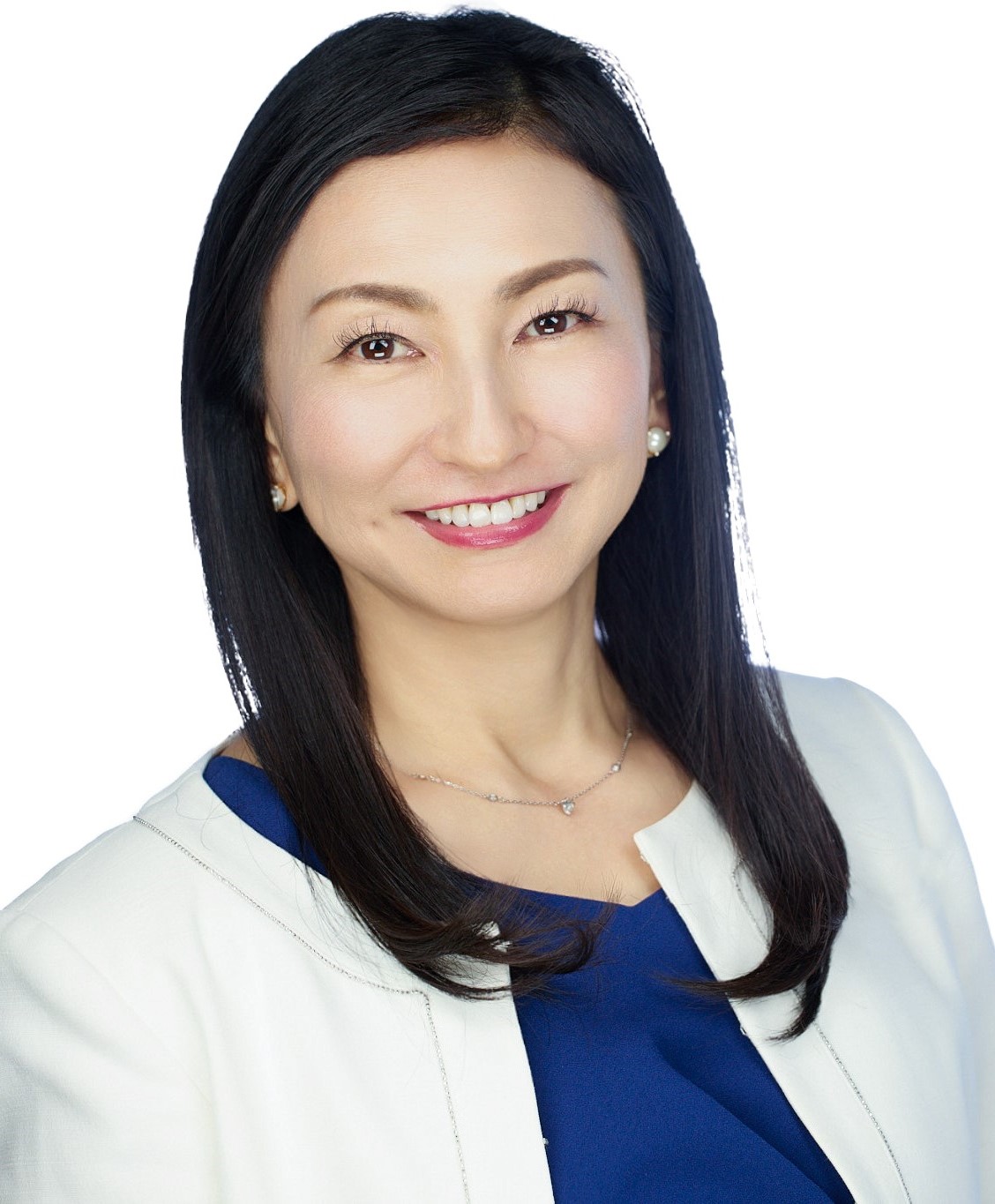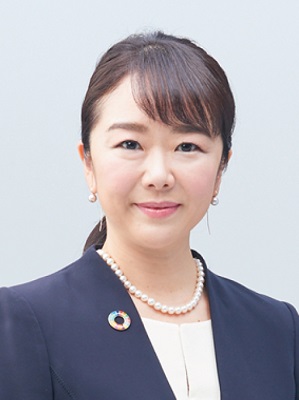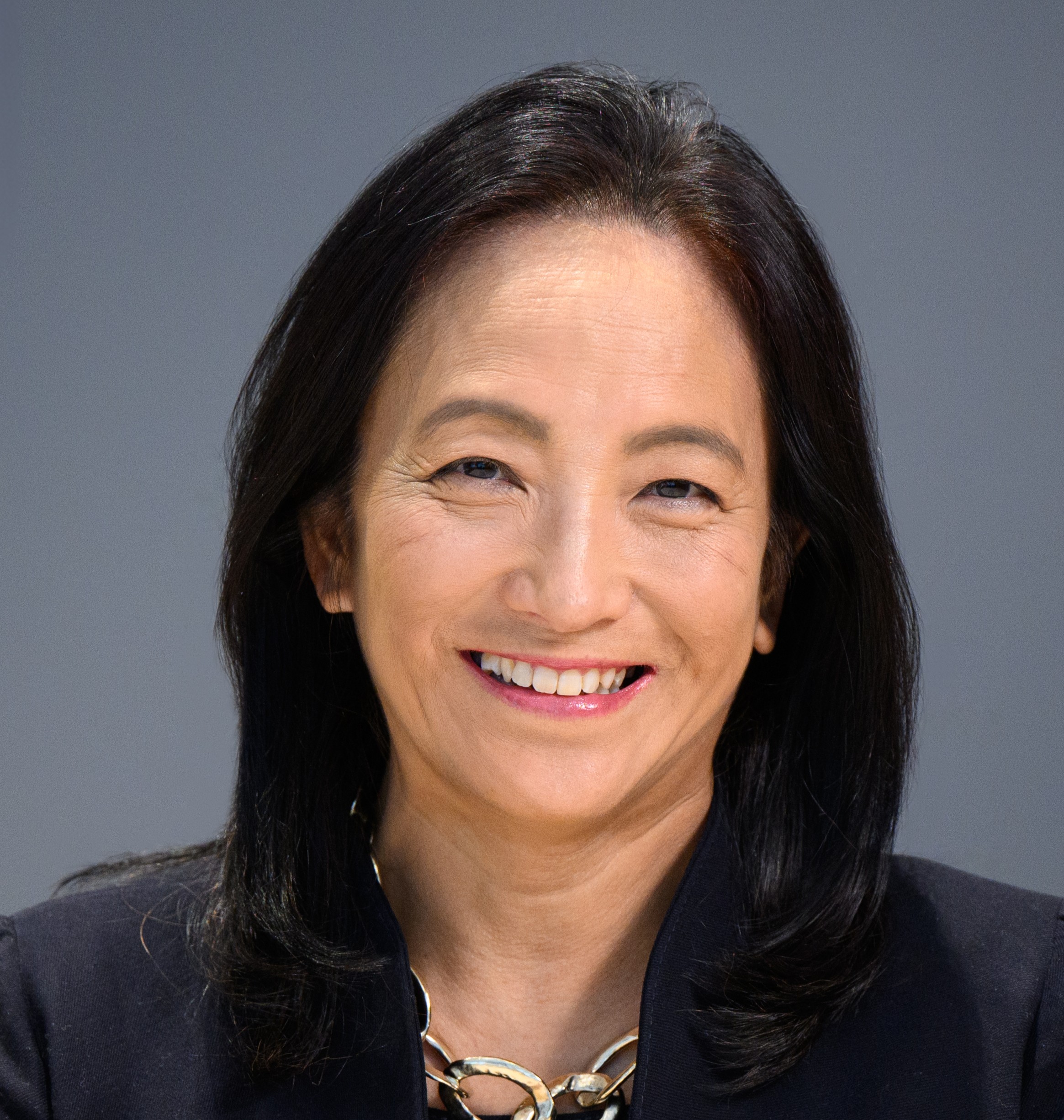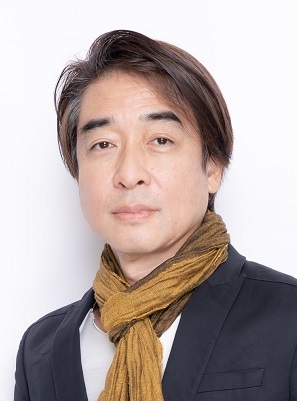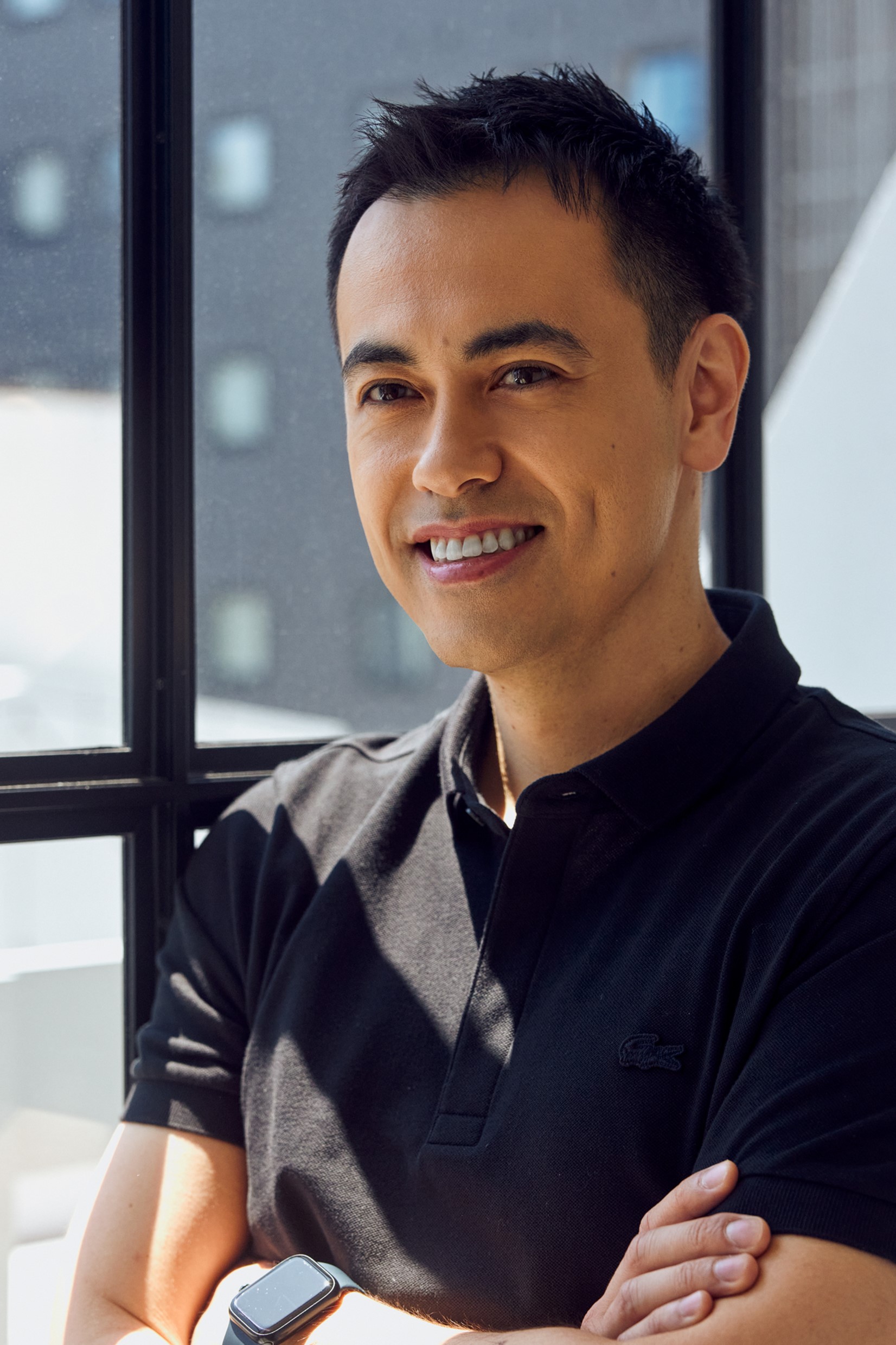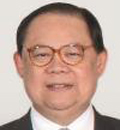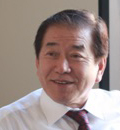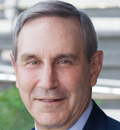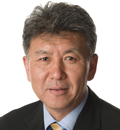Pax Japonica: Japan as a Role Model
in a Chaotic New World
Opening Session
GLOBIS Hall
-
Founder & President, GLOBIS University
Founding Partner, GLOBIS Capital Partners
President, G1 Institute
-
Yoshito HoriSpeaker
Founder & President, GLOBIS University
Founding Partner, GLOBIS Capital Partners
President, G1 Institute
Yoshito Hori is the founder and president of GLOBIS University, the No.1 business school in Japan. He is also a founding partner of GLOBIS Capital Partners, the No.1 venture capital firm in Japan, and president of the G1 Institute, a platform to create a better Japan. His other roles include founder of the KIBOW Foundation, a project to support the revitalization after the Great Tohoku Earthquake; owner of the Ibaraki Robots, a professional basketball team in his hometown of Mito; owner of the Ibaraki Broadcasting System, Ibaraki’s only prefecture-wide media company; and producer of LuckyFes, an annual music festival held in Mito. He has been appointed as a member of the Board of Directors for Daniel J. Edelman Holdings, Inc. in June 2024.
He received his BS in engineering from Kyoto University and holds an MBA from Harvard Business School.
#1 Plenary Session
GLOBIS Hall
Pax Japonica in a Chaotic World: Can Japan become a Role Model and Stabilizer?
-
Senior Adviser, Geopolitics, Montrose Associates
-
Founder and CEO, Good Steward Partners, LLC
Special Advisor, TNFD
a Mission Committee Member, Danone S.A.
Independent Board Member, LiveWire Group Inc.
-
Professor of Japanese Business; Director, Japan Forum for Innovation and Technology, University of California San Diego
-
Expert Director, Monex Group
10/13Monday
09:15~10:30
#1 Plenary Session
Pax Japonica in a Chaotic World: Can Japan become a Role Model and Stabilizer?
Today, we address a world defined by geopolitical friction and economic uncertainty. As a response to recent developments in AI and shifting global power dynamics, Japan's model of political and economic stability is being re-examined. How did we get to this point? How have Trump’s tariffs, US-China decoupling, and recent developments in the Middle East and Ukraine/Russia contributed to where we are now? What about the lingering effects of the recent Japanese elections and its effect on business? This plenary session asks: Can Japan leverage this moment to become a global stabilizer and role model, potentially laying the foundation for a "Pax Japonica?" What is the next step? Our panelists contemplate these issues and frame the discourse for the day ahead.
-
Bill EmmottPanelists
Senior Adviser, Geopolitics, Montrose Associates
Bill Emmott is an independent writer and consultant, best known for his 13 years as editor in chief of The Economist (1993-2006) and his 15 years as a trustee and then chairman of the International Institute for Strategic Studies (2010-25). He is now Senior Adviser, Geopolitics for Montrose Associates and an independent director of The Irish Times. He is an honorary fellow of Magdalen College, Oxford and is a visiting fellow at Tokyo College, University of Tokyo. He is a member of the Comitato Scientifico of the Centro Einaudi in Turin, Italy. He writes columns for La Stampa in Italy, Nikkei Business and the Mainichi Shimbun in Japan, and occasionally for the Financial Times. The author of numerous books, his latest is How to Stop World War Three (Fusosha, 2024), published in English by IISS as "Deterrence, Diplomacy and the Risk of Conflict over Taiwan" (Routledge 2024).
-
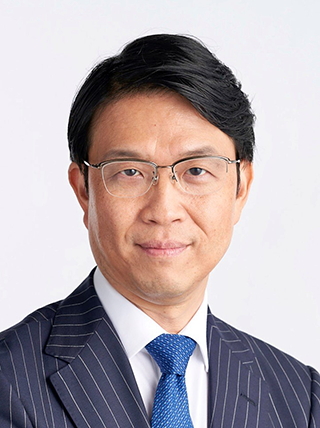
Hiromichi MizunoPanelists
Founder and CEO, Good Steward Partners, LLC
Special Advisor, TNFD
a Mission Committee Member, Danone S.A.
Independent Board Member, LiveWire Group Inc.
Hiro Mizuno is a globally recognized financial executive and a leading advocate for sustainable investment. As the Founder and CEO of Good Steward Partners, LLC, he continues to promote responsible financial practices and long-term value creation across markets and sectors. He currently serves as Special Advisor of TNFD, an Independent Board Member of LiveWire Group Inc., and a Mission Committee Member at Danone S.A. Previously, he held the role of Special Advisor to the CEO of MSCI, Inc., Special Envoy of the United Nations Secretary-General on Innovative Finance and Sustainable Investment and non-managing director of Tesla and Executive Managing Director and Chief Investment Officer of Japans Government Pension Investment Fund (GPIF), managing the worlds largest pension fund with $1.5 trillion in assets. Beyond his executive roles, he remains deeply engaged in global initiatives focused on climate change, biodiversity, and financial innovation. He works closely with leading institutions to drive systemic change in capital markets and advance sustainability goals.
-
Ulrike SchaedePanelists
Professor of Japanese Business; Director, Japan Forum for Innovation and Technology, University of California San Diego
Ulrike Schaede is professor of Japanese business at the University of California San Diego. Her research focuses on global business and Japanese business organization, strategy and management. Her book The Business Reinvention of Japan (in Japanese: Saiko THE KAISHA) won the 2021 Masayoshi Ohira Memorial Prize. In 2024, she published Japan Re-Emerges (in Japanese: Shin Nihon no Keiei). Professor Schaede holds an M.A. and Ph.D. from Germany, and has been a visiting professor at UC Berkeley, Harvard Business School, Stanford University, and Hitotsubashi University. She is Associate Editor of The Journal of the Japanese and International Economies, and serves on the Advisory Boards of NBR Asia in Seattle, and the IGPI Group in Tokyo, among others. Her website is www.ulrikeschaede.com.
-
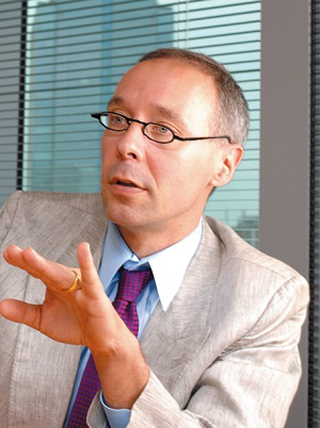
Jesper KollModerator
Expert Director, Monex Group
Jesper Koll has been researching and investing in Japan since becoming a resident in 1986. Over the past two decades, Jesper has been consistently recognized as one of the top Japan strategists/economists, having worked as Chief Strategist and Head of Research for U.S. investment banks J.P. Morgan and Merrill Lynch. He currently serves as Expert Director for the Monex Group and the Japan Catalyst Fund (Japan’s 1st retail investor based corporate engagement/activist fund). His analysis and insights have earned him a position on several Japanese government and corporate advisory committees, including Tokyo Governor Yuriko Koike’s Advisory Board. In 2022, he was appointed Global Ambassador for Tokyo’s Financial Center initiative. Jesper serves as Board Director of OIST, the Okinawa Institute for Science and Technology and is a Founder and Board Director of the Asia Society Japan and heads their Policy Committee. He is one of the few non-Japanese members of the Keizai Doyukai, the Japan Association of Corporate Executives; and serves on the board of several Japan-based start-ups. He has written three books in Japanese and, in 2021, created the acclaimed video/pod-cast series “Japan - Capitalism that works”.
Jesper is an economist, angel-investor, patron; and yes, a Japan Optimist.
-
10:45~11:45
Japanese Measured Communication May Lead the Way in a Chaotic World
Rochelle Ford, Ph.D., APR
Yasuharu Sasaki
John Short
Kym White
Moderator: Ross Rowbury
#2 Breakout Sessions <Business>
10/13Monday
10:45~11:45
#2 Breakout Sessions <Business>
Japanese Measured Communication May Lead the Way in a Chaotic World
In today’s complex global environment, companies worldwide are navigating challenges such as geopolitical tensions, tariffs, and evolving expectations around DEI and ESG. Often characterized by a more reserved and measured communication style, Japanese firms contrast with the typically direct and proactive approach common in the West. This panel will explore these differing corporate communication styles, debate which approach is more effective for addressing today’s instability, and highlight how Japanese companies are adapting their strategies to build trust and demonstrate leadership in a rapidly changing world.
-
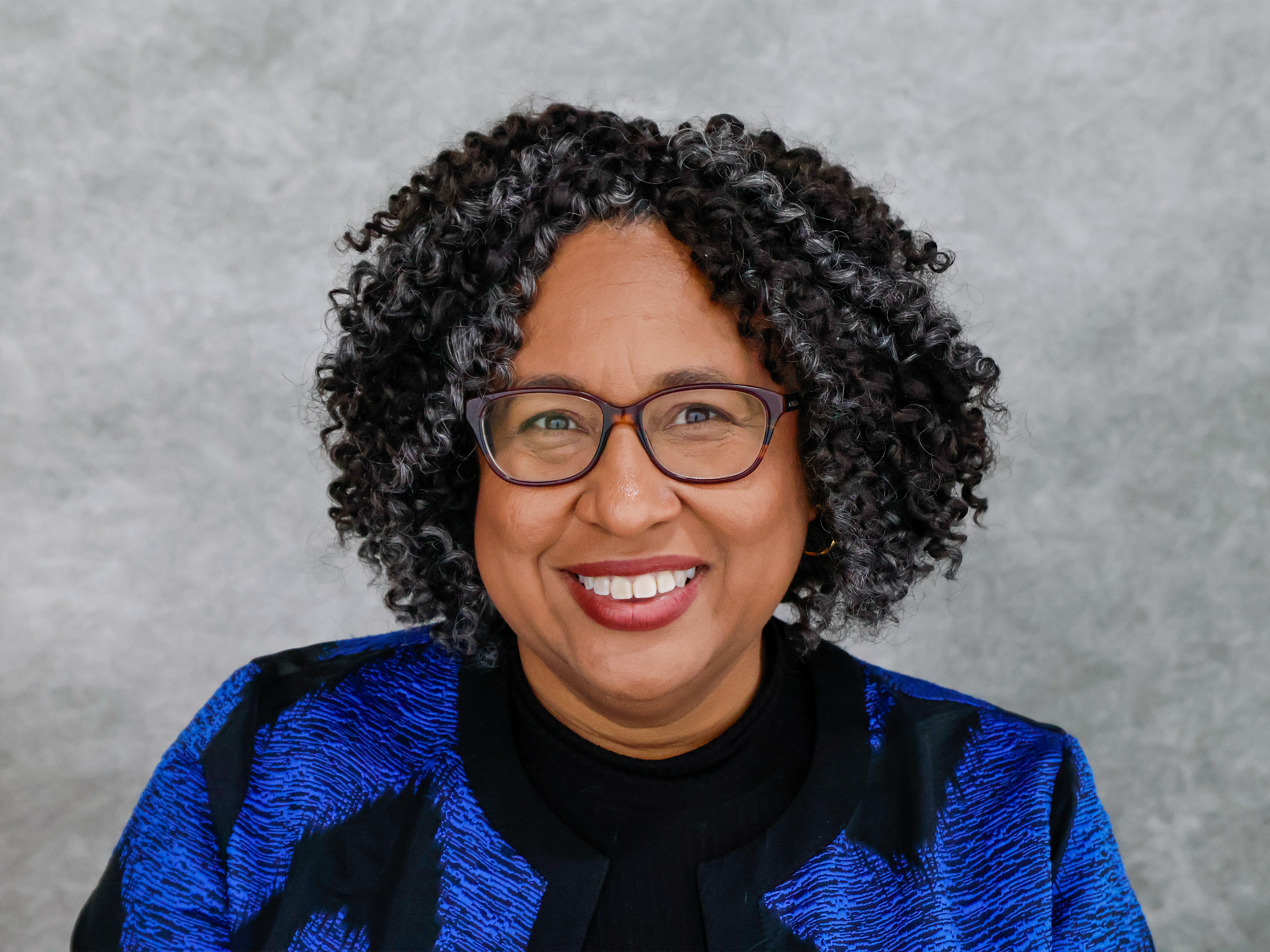
Rochelle Ford, Ph.D., APRPanelists
CEO, Page Society
Dr. Rochelle Ford is Chief Executive Officer of the Page Society, the premier global community of senior communication leaders. At Page, she champions the role of the Chief Communication Officer as a strategic business leader, advancing thought leadership on corporate character, trust, and stakeholder engagement worldwide.
A seasoned executive and educator, Rochelle previously served as President of Dillard University, Dean of Elon University’s School of Communications, and Chair of the Public Relations Department at Syracuse University’s Newhouse School, where she built programs recognized nationally for excellence.
Her global perspective includes work in West Africa, Europe, and Kenya, and she continues to advise leaders on responsible communication, DEI, and societal impact. Honored with the Page Distinguished Service Award and induction into the PRWeek Hall of Fame, she is committed to equipping communicators everywhere to navigate today’s complex business landscape.
-
Yasuharu SasakiPanelists
Global Chief Creative Officer, dentsu
Yasuharu Sasaki, known as Yasu, began working at dentsu as a copywriter in 1995.
Drawing on his skills as a Computer Science graduate he was an early pioneer of interactive advertising.
His passion for creativity and technology has been a marked characteristic throughout his career, notably when he founded cutting edge R&D offering, Dentsu Lab Tokyo in 2014.
His time at dentsu, which has included working in New York as an Executive Creative Director and Managing Director at dentsu Tokyo, has seen Yasu deliver work for global clients including Uniqlo, Honda and Coca-Cola.
In October 2023 Yasu was named dentsu’s Global Chief Creative Officer, responsible for leading dentsu’s global Creative Practice, including Dentsu Creative.
He sets the standard for creative excellence and is key to building a culture of creativity and innovation across the whole of dentsu.
-
John ShortPanelists
Leader, Communications & Impact Strategy, LIXIL Corporation
John Short is a communications professional with over twenty years of experience in strategic in-house and agency roles.
In his role at LIXIL, he leads Communications and Impact Strategy, overseeing the function globally. His responsibilities include corporate communications, culture and engagement, brand communications, and impact strategy.
In this role he has been instrumental in establishing the companys innovative purpose and impact agenda, including the ambitious shared value partnership with UNICEF to help tackle global sanitation and hygiene challenges.
Prior to joining LIXIL, John was Head of Communications at Hitachi Automotive Systems, and previously a Partner at KREAB.
-

Kym WhitePanelists
Chief Corporate Affairs Officer, Generate:Biomedicines
Kym White is the Chief Corporate Affairs Officer of Generate:Biomedicines. She brings deep experience in corporate affairs and healthcare communications, having held leadership roles at companies spanning the healthcare sector and global communications agencies.
She most recently spent three years in the Alphabet ecosystem as a senior advisor to Verily and Isomorphic Labs, two of Alphabet’s “bets” in healthcare. Previously, Kym was Chief Communications Officer (CCO) for a number of public companies including CVS Health,
Vertex Pharmaceuticals, and Baxter. An agency veteran, Kym was the Global Sector Chair for Health at Edelman, the world's largest public relations firm, and held the same role at Ogilvy earlier in her career.
Kym is a member of the board of directors of Public Policy Holding Co. (PPHC), a group of bipartisan government relations and public affairs firms. She is a graduate of Northwestern University, with a B.S. in communications and political science.
-
Ross RowburyModerator
Senior Managing Director, Co-head of Group Corporate Communications, Nomura Holdings
Ross Rowbury is Senior Managing Director and Co-Head of Group Corporate Communications at Nomura Holdings. He has observed Japan while living and working here for four decades. Commencing his career in finance in Tokyo in the early 1980s, he later moved into public relations and communications, holding senior positions at Gavin Anderson & Co. (now Kreab) and PRAP Japan. He headed the Edelman business in Japan for 10 years until July 2020. Prior to joining Nomura in October he was a freelance consultant to a number of firms on their Japan business strategy. He is also visiting professor of Asian marketing at Doshisha University in Kyoto and is on the Board of TELL a suicide prevention and mental health NPO.
-
10:45~11:45
Trump 2.0: Decoding US Politics for Japan
Glen S. Fukushima
Mark R. Kennedy
Kazuto Suzuki
Joshua Walker
Moderator: Junko Tanaka
#2 Breakout Sessions <Politics>
10/13Monday
10:45~11:45
#2 Breakout Sessions <Politics>
Trump 2.0: Decoding US Politics for Japan
This panel will delve into the turbulent landscape of US domestic politics. The discussion focuses on key internal pressures, including intensifying political polarization, the rise of economic nationalism, and the contentious debate over federal spending and immigration. Panelists will examine how these domestic factors are now the primary drivers of US foreign policy decisions, often leading to a more transactional approach to international alliances and a shifting global role. The session then analyzes how these profound shifts in America's priorities compel Japan to reassess and adjust its economic and security strategies, navigating an essential and evolving alliance in an era of heightened unpredictability.
-
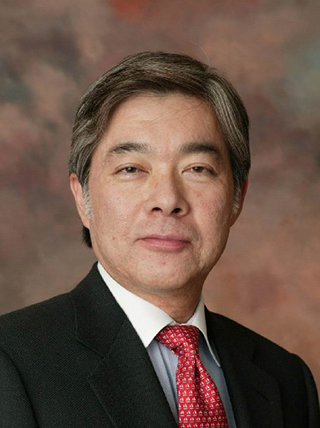
Glen S. FukushimaPanelists
Visiting Fellow, Stanford University
Glen S. Fukushima is a Senior Fellow at the Center for American Progress, a Washington, D.C. think tank. In October 2021, President Joseph R. Biden nominated him to be Vice Chairman of the Securities Investor Protection Corporation, and the U.S. Senate confirmed him in April 2022. After practicing law, he served as Director for Japanese Affairs (1985-88) and Deputy Assistant United States Trade Representative for Japan and China (1988-90) at the Office of the United States Trade Representative (USTR), Executive Office of the President. From 1990 to 2012, he was based in Tokyo as a senior business executive with one European and four American multinationals and was elected to two terms as President of the American Chamber of Commerce in Japan. He is a member of the Council on Foreign Relations and of the Asia Society’s Global Council. A third-generation Japanese American raised in California, he was educated at Deep Springs College, Stanford University, Harvard University, Keio University, and the University of Tokyo, where he was a Fulbright Fellow.
-
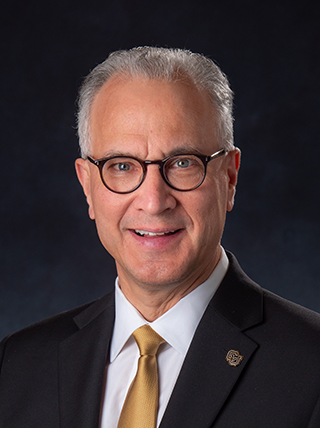
Mark R. KennedyPanelists
Director, Wahba Initiative for Strategic Competition, New York University
President Emeritus, University of Colorado
Mark Kennedy is Director of the Wahba Initiative for Strategic Competition at New York University, where he leads global policy initiatives advancing freedom through geoeconomic statecraft, trusted technology alliances, and strategic infrastructure. A former U.S. Congressman and President of the University of Colorado and the University of North Dakota, he has led across government, business, and academia.
Kennedy served on the White House Advisory Council on Trade Policy and Negotiations and is a member of the Council on Foreign Relations, a U.S. Air and Space Forces Civic Leader, and a Senior Fellow at the Center for Naval Analyses. He helped Pillsbury buy and expand Hagen-Dazs and served as Treasurer of todays Macys.
He authored Shapeholders: Business Success in the Age of Activism (Columbia University Press) and has taught in over 20 countries on five continents. His commentary has appeared in the Financial Times, Wall Street Journal, Washington Post, and CNN.
-
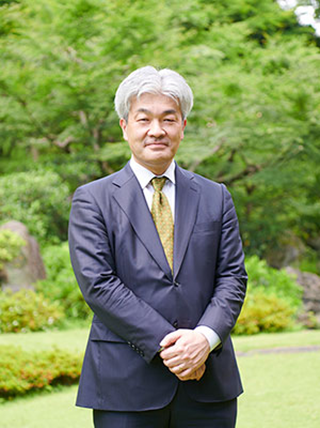
Kazuto SuzukiPanelists
Professor, University of Tokyo
Kazuto Suzuki is Professor of Science and Technology Policy at the Graduate School of Public Policy at the University of Tokyo, Japan, and Director of the Institute of Geoeconomics at International House of Japan.
He graduated from the Department of International Relations, Ritsumeikan University, and received Ph.D. from Sussex European Institute, University of Sussex, England.
He has worked in the Fondation pour la recherche stratégique in Paris, France as assistant researcher and the Associate Professor at the University of Tsukuba from 2000 to 2008 and served as Professor of International Politics at Hokkaido University until 2020.
He served as an expert in the Panel of Experts for Iranian Sanction Committee under the United Nations Security Council from 2013 to July 2015.
He currently serves as the President of Japan Association of International Security and Trade.
His research focuses on the conjunction of science/technology and international relations; subjects including space policy, non-proliferation, export control and sanctions.
-
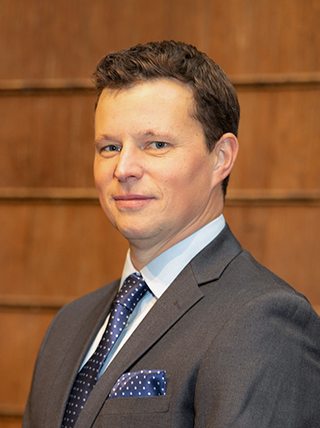
Joshua WalkerPanelists
President & CEO, Japan Society
Joshua W. Walker, PhD became President & CEO of Japan Society in December 2019. Previously, he worked at Eurasia Group, the world’s leading political risk analysis firm, where he served as global head of strategic initiatives and Japan in the Office of the President. Prior to that, he was CEO and president of the USA Pavilion of the 2017 World Expo in Astana, Kazakhstan; founding dean of the APCO Institute; and senior vice president of global programs at APCO Worldwide, a leading global strategic communications firm based in Washington, D.C. Before joining the private sector, he worked in numerous roles at various U.S. government agencies, including the State Department and the Defense Department. He is Senior Fellow at the Center for the Study of the Presidency and Congress, and professor of Leadership and the American presidency at George Mason University and the Reagan Foundation. He was also Transatlantic Fellow at the German Marshall Fund of the United States, and co-founded the Yale Journal of International Affairs. He earned a bachelor’s degree from the University of Richmond, a master’s degree from Yale University, and a doctorate from Princeton University. Dr. Walker grew up in Japan where his parents still serve as missionaries, came to the United States when he was 18, and is bicultural and bilingual.
-
Junko TanakaModerator
Former Washington Bureau Chief, NHK (Japan Broadcasting Corporation)
Junko Tanaka is a former journalist with NHK, Japan Broadcasting Corporation. She specializes in international affairs and has covered 3 US presidential elections in the past including the last one in 2016. She has been posted in Washington DC twice, of which, the latest one from 2012 to 2016 as Washington Bureau Chief. In addition, she has served as Sydney Bureau Chief, Director of Public Relations Department and Managing Director of NHK World-Japan.
She left NHK in 2024 and now serves as Commissioner of the Board of Audit of Japan.
-
10:45~11:45
GenAI in the Workplace: What's Working, What's Not, What's Next?
Stephen Barnham
Jerry Black
Yoshinami Takahashi
Moderator: Miki Tsusaka
#2 Breakout Sessions <Technology>
10/13Monday
10:45~11:45
#2 Breakout Sessions <Technology>
GenAI in the Workplace: What's Working, What's Not, What's Next?
The panel of CDOs from different industries have experienced progress but also challenges in infusing GenAI in their businesses. How have they brought AI into their companies and customer processes? Where has it taken off and what kind of value has been created? What have been the roadblocks to achieve further scaled impact? We will explore where we anticipate the next generation of technology (including agents) will take us and how it will reshape the future workplace.
-
Stephen BarnhamPanelists
Group CIO and CDO, Daiichi Life Group
Stephen is an award winning senior executive with a track record in leading large scale digital transformation and running businesses across banking and insurance. He has lived in Japan, India, China, and Singapore running global and regional Technology and Operations teams.
He has held various senior leadership roles in technology for world leading financial institutions and is an experienced independent board director for NGOs, corporates and industry bodies.
Also, he has a passion for innovation and has run and sat on panels covering topics such as Digital Health, and AI in financial services, he is an early stage investor and VC advisor.
-

Jerry BlackPanelists
EVP and Chief Digital Officer, Aeon Co., Ltd.
Jerry Black is the Executive Vice President and Chief Digital Officer, AEON Co., Ltd.
As Aeons Chief Digital Officer, Mr. Black is responsible for AEONs Digital Transformation including AI, Agentics, Retail Media, Store Digital, Net Supermarket, Market Place, E-Commerce, Mobile Commerce, Digital marketing strategies across many AEON platforms, formats and countries.
He is a passionate multi-cultural executive, retail and technology expert and board director with a proven record of accomplishment in successful corporate transformations, governance, and technology leadership. His ability to bring both a global perspective along with his deep understanding of Japanese business and board practices enables Mr. Black to guide constructive transformations and conduct board level discussions while creating effective shareholder communications, and support. Mr. Black has successfully held significant direct line management roles including Chief Strategy Officer, CEO of ASEAN; Chief Digital Officer, CIO, and Senior EVP responsible for Supply Chain, Merchandising and Marketing.
-
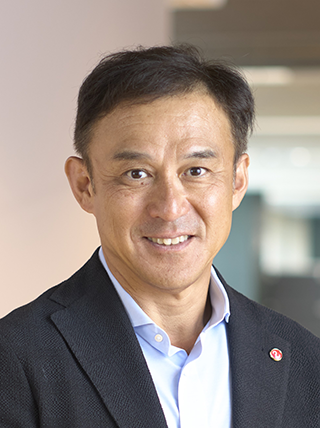
Yoshinami TakahashiPanelists
Corporate Executive Officer, Corporate Vice President, COO in charge of Solution Services, Head of Global Solutions, Fujitsu Limited
Joined Sony Corporation in 1987. I was mainly involved in international operations in the consumer division, based in North America and Europe, and held executive positions at international offices.
I joined Microsoft Japan Ltd. in 2014 and led the Cloud market development and partner collaboration as Executive Managing Officer from 2015, and enterprise customer DX support as Senior Executive Managing Officer from 2020.
From June 2021, I joined Fujitsu Limited as Executive Vice President, leading the Uvance business with the goal of Revitalizing Japanese business and society and working to resolve various societal issues.
Starting April 2023, I became Corporate Executive Officer and Senior Executive Vice President, Head of Global Business Solutions and recently April 2024, I have been assigned as COO and Head of Global Business Solution Business Group to lead and spearhead Uvance business.
-
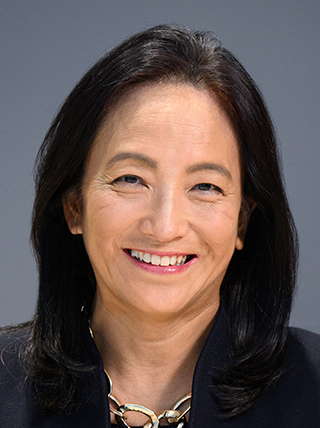
Miki TsusakaModerator
President, Microsoft Japan
Miki Tsusaka is the president of Microsoft Japan.
Appointed in February 2023, she leads Microsofts engagement with customers, and business partners and is responsible for all product, solution, service and support offerings in Japan.
Under her leadership, she focuses on enabling the acceleration of Japan's digital transformation through Microsofts global and local expertise of our leading productivity and platform solutions.
She will also build and reinforce Microsofts reputation in Japan as a trusted partner for individuals, organizations and governments.
Prior to joining Microsoft Japan, she was a Senior Partner and Managing Director at Boston Consulting Group (BCG), where she worked for clients in a wide range of industries in Japan and overseas, helping them develop and implement growth strategies, improve profitability, redesign organization and promote digital transformation.
She established strategic consulting groups specializing in marketing, sales and pricing strategy development and led the expansion of BCG's service areas.
As for BCGs operation, she has been a member of the Executive Committee for two three-year terms and served as Chief Marketing Officer (CMO) as well.
She was recognized by Fortune as among the 100 most powerful women in the world and in Asia in 2024.
She holds a Bachelor of AB, Government and East Asian Studies from the Harvard University, and an MBA degree from the Harvard Business School.
-
10:45~11:45
From Tokyo to the World: The Globalization of Japanese Pop Culture
Yuko Akiyama
Tony Elison
Nobuhiro Nakatake
Moderator: Yoshiko Tsuwaki
#2 Breakout Sessions <Society>
10/13Monday
10:45~11:45
#2 Breakout Sessions <Society>
From Tokyo to the World: The Globalization of Japanese Pop Culture
This panel explores the globalization of Japanese entertainment, from iconic Sanrio characters and anime to the dynamic sounds of J-pop. The discussion examines how these cultural exports have moved from niche interests to mainstream global influences, serving as a form of soft power. However, the industry faces significant challenges, including over-reliance on foreign streaming platforms for global distribution and stiff competition from other cultural phenomena like K-pop. Additionally, creators often contend with precarious working conditions and low compensation, which can lead to a "brain drain" of talent. To ensure its sustainability, the industry must focus on developing its own distribution channels, diversifying content, and improving labor practices.
-
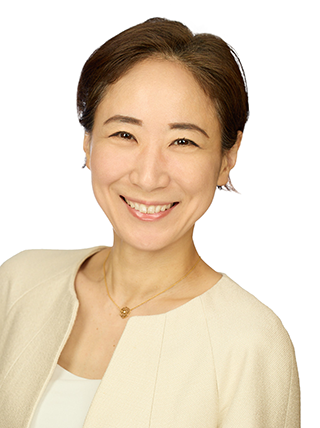
Yuko AkiyamaPanelists
Executive Advisor, Global Branding, Sanrio Company, Ltd.
Yuko Akiyama currently serves as Global Executive Brand Advisor at Sanrio Co., Ltd., where she previously held the role of Managing Executive Officer and Director overseeing global brand management. She led initiatives such as the Hello Kitty 50th anniversary campaign and the development of global character strategies. Since March 2024, she has also served as a Board Director of the Japan Professional Football League (J.League).
Prior to joining Sanrio, Akiyama spent over a decade at Google. She joined the company in 2011, contributing to brand campaigns for Google+ and Android, as well as disaster recovery initiatives in Tohoku. She later became Head of Device Marketing and subsequently Head of Google Nest Product Planning, APAC, where she was responsible for product strategy and business performance across the Asia-Pacific region.
Earlier in her career, she worked at Hakuhodo and Wieden+Kennedy Tokyo, focusing on advertising and communications strategy for domestic and international clients.
-
Tony ElisonPanelists
Managing Director, Spotify Japan
Tony Elison is the Managing Director at Spotify Japan since February of 2021. His career spans over 30 years in digital media, entertainment, and music, in a variety of strategy, business development, and general management roles based in New York, Seattle, and Tokyo. Before Spotify, he built his career journey at several world-famous companies such as MTV, Nintendo, YouTube, and The Walt Disney Company. Today, Spotify is driving growth in Japan's evolving audio streaming market and leads the world with 696M monthly users and 276M paying subscribers (as of Sep. 2025).
-
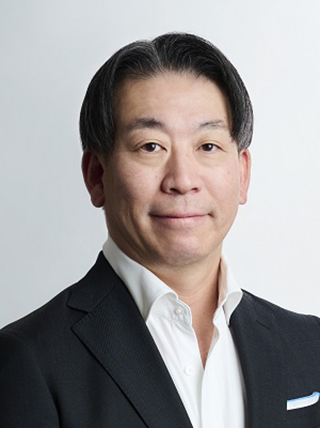
Nobuhiro NakatakePanelists
Corporate SVP, Global Business Strategy, Sony Music Entertainment (Japan) Inc.
Nobu Nakatake is Corporate SVP, Global Business Strategy at Sony Music Entertainment Japan (SMEJ). In his role Nobu leads business development and strategic planning in the global market in tandem with the operating companies of SMEJs 360 business such as Artist & Music, Anime & Character IP, Live Entertainment & Venues and Entertainment Solution Business, as well as being a bridge between Sony Music Group, Sony Group Corporation and SMEJ for further collaborative business opportunities.
He also serves as CEO of Antinos Management America Inc. , SMEJ 100% owning artist management and marketing company headquartered in Culver City, Los Angeles.
In his 3 decade-plus tenure in the music industry, Nobu served in various capacities including Media Promotion, A&R Marketing, Digital Business on BMG JAPAN as well as Label Head of both International Labels and Legacy Labels on SMEJ. Most recently he headed up International Marketing and spearheaded exploitations of global market for J-pop.
-
Yoshiko TsuwakiModerator
Director for Science, Technology, and Innovation, Cabinet Secretariat
Cabinet Office, Government of Japan
Graduated from the Faculty of Law, the University of Tokyo. Since joining the Ministry of Economy, Trade and Industry (METI) in 2004, she has been engaged in planning and implementing major national initiatives, including promoting cashless payments, the “Go To” campaign, and the establishment of the Digital Agency. She previously served as Deputy Director at JETRO Los Angeles before assuming her current position.
Her professional experience covers a wide range of industrial policies, including startup support and international collaboration. During her tenure at JETRO Los Angeles, she was also responsible for policies related to entertainment industries such as manga, anime, film, and music.
-
12:00~13:00
Leveraging Japanese Uniqueness in Leadership & Management
Ethan S. Bernstein
Mitsuru Claire Chino
Ken Isono
Bob Willen
Moderator: Wakana Tanaka
#3 Breakout Sessions <Business>
10/13Monday
12:00~13:00
#3 Breakout Sessions <Business>
Leveraging Japanese Uniqueness in Leadership & Management
This panel explores how traditional Japanese management philosophies can be a strategic asset in the modern global economy. Discussion will focus on practices like Kaizen (continuous improvement) and Nemawashi (consensus-building). However, these approaches face challenges such as slow decision-making and a resistance to radical innovation, which can be a liability in fast-paced global markets. We will analyze how Japanese companies are adapting these concepts to attract and retain global talent, balancing core strengths like long-term strategy and group harmony with the need for individual empowerment and agile decision-making. The goal is to provide business professionals with actionable insights on how to evolve these unique styles for a global workforce.
-

Ethan S. BernsteinPanelists
Faculty, Harvard Business School
I have spent my career researching novel talent management practices and their effect on employee behavior, collaboration, and performance. Presently, I am the Edward W. Conard Associate Professor of Business Administration at the Harvard Business School, where I study two such phenomena related to the evolution of the workplace: (1) increased transparency via greater physical or digital observability of employee activities, routines, behaviors, logic, psychology, output, and/or performance leading managers to find new ways of ensuring that work gets done; and (2) increased connectivity via tools that rewire interaction to facilitate collaboration and interaction giving rise to novel work structures and creative organizational forms. I regularly explore the implications of those "future of work" trends for leadership, collaboration, organization design, and new forms of organizing in my research, writing, teaching, and speaking (see www.hbs.edu/ebernstein for details).
-
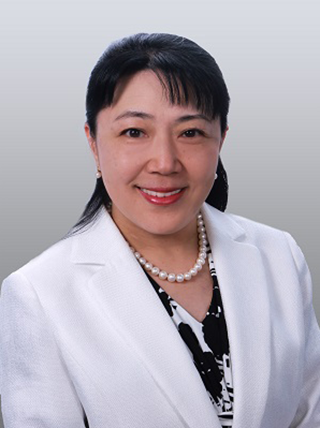
Mitsuru Claire ChinoPanelists
Managing Executive Officer, ITOCHU Corporation
Claire is a bilingual (Japanese/English) business executive and international lawyer, experienced with over 30 years of cross-border transactions. She is currently in charge of corporate communications at ITOCHU Corporation. Her business and legal knowledge as well as her effective communication skills make her an impactful leader, especially in a global setting. In the past, she has successfully led the North American business operation of ITOCHU as President & CEO, and the global legal affairs of ITOCHU as its General Counsel. In 2013, she became the first female executive officer of any major trading company in Japan. Claire has received several recognitions, including from the World Economic Forum, Yale University, Asia Society and the California Lawyers Association (Warren M. Christopher International Lawyer of the Year, 2018). She is a graduate of Smith College (B.A. cum laude) and Cornell Law School (J.D.), where she serves on the advisory board.
-
Ken IsonoPanelists
CEO, Shizen Energy Inc.
Ken Isono is the founder and CEO of Shizen Energy Inc., a company driving the transition to renewable energy across Japan and Asia since 2011. Under his leadership, Shizen Energy has supported renewable energy projects in more than 10 countries, with a vision to expand to 50 countries by 2030.
Recognized as Entrepreneur of the Year 2024 by Forbes Japan, Ken is also the creator of SUMU, a regenerative architecture project on Yakushima Island that earned more than 15 international design awards in 2023.
Beyond his work in energy and design, Ken is the 15th-generation inheritor of his familys 350-year Japanese tea tradition, Sekishu Ryu, rooted in samurai heritage. He also serves on the director at The Katsushika Hokusai Museum in Nagano, reflecting his dedication to both sustainability and the preservation of traditional culture.
-
Bob WillenPanelists
Global Managing Partner and Chairman, Kearney
Bob Willen is the Global Managing Partner and Chairman of Kearney, a global management consulting firm. With more than 25 years of experience, he has led enterprise transformations across the U.S., Europe, and the Middle East. Prior to becoming Global Managing Partner, he served as Chair of Kearney's Middle East & Africa region for nine years, driving consistent growth and key strategic initiatives. Earlier in his career, he served as Global Leader for Kearney's Government and Economic Development practice, and before that, he led Kearney's global Aerospace & Defense, Automotive, Transportation, and Infrastructure practices. He holds an MBA from the University of Virginia Darden School of Business, an MS in Aerospace Engineering from the University of Texas at Austin, and a BA in Physics from the University of Virginia.
-
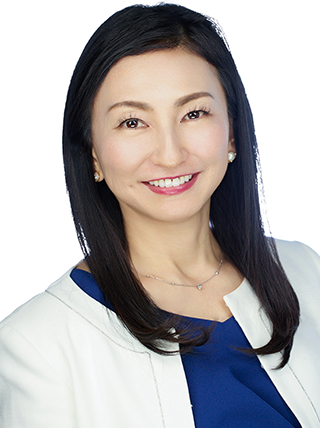
Wakana TanakaModerator
Country Manager, LinkedIn Japan
Wakana leads LinkedIns Japan business which includes Talent solutions, Learning and Marketing solutions of the worlds largest online professional network since March 2023.
Prior to LinkedIn, she managed Google's Ad sales for strategic accounts, creating innovative digital strategy & solutions for Japanese partners.
She started her career in management consulting, and later managed the Lancome brand as a Marketing Manager in L'Oreal.
Following the 3.11 Earthquake, she joined the National Diet of Japan Fukushima Nuclear Investigation Commission to lead the International Affairs.
After she ran Change Management at GlaxoSmithkline Japan, she joined Google in 2014.
She has a Bachelor of Science from Georgetown University's School of Foreign Service and an MBA from Harvard Business School (Class of 2003).
She is also a certified Coach, Former President of Harvard Business School Club of Japan, as well as Senior Advisor for Georgetown University Alumni Club of Japan.
She grew up in Tokyo, Kobe, Jakarta, studied and worked in the US, Japan, and France.
She is a passionate traveler, dancer and mom of 2 children.
-
12:00~13:00
AI and Geopolitics — Navigating Power and Security in a Chaotic World
Emma Chanlett-Avery
Kenneth Cukier
Tomoyuki Furutani
Moderator: Ken Jimbo
#3 Breakout Sessions <Politics>
10/13Monday
12:00~13:00
#3 Breakout Sessions <Politics>
AI and Geopolitics — Navigating Power and Security in a Chaotic World
The accelerating advances in artificial intelligence are reshaping global power and security. While AI promises extraordinary gains in productivity and innovation, it also introduces new vulnerabilities such as disinformation and autonomous weapons. These shifts directly impact great power competition and alliance structures. This panel will explore the nexus of AI and geopolitics, bringing together thought leaders from the United States and Japan. They will examine how AI is altering the strategic balance, discuss governance models to mitigate risks while fostering innovation, and explore how the two nations can collaborate on responsible AI development. The goal is to generate fresh insights on navigating geopolitics in an AI-driven world.
-

Emma Chanlett-AveryPanelists
Director for Political-Security Affairs, Asia Society Policy Institute
Chairwoman of the Board of Directors, National Association of Japan-America Societies
Deputy Director, Asia Society Policy Institute Washington, DC office
Emma Chanlett-Avery is Deputy Director of the Asia Society Policy Institute's Washington, DC office and the Director for Political-Security Affairs. Emma leads Congressional outreach and directs ASPIs policy engagement on Indo-Pacific alliances. Previously, she served for 20 years at the Congressional Research Service. In 2023, she served as a Congressional Fellow on the Senate Foreign Relations Committee. She was a Presidential Management Fellow, with rotations in the State Department on the Korea Desk and with the Department of Defense in Thailand. She is a recipient of the Kato Prize. Emma serves as Chairwoman of the Board of Directors of the National Association of Japan-America Societies, Counselor of the Board of the Japan-America Society of Washington, DC, and a Trustee of International Student Conferences, Inc. Ms. Chanlett-Avery received an MA in international security policy from the School of International and Public Affairs at Columbia University and her BA in Russian studies from Amherst College.
-
Kenneth CukierPanelists
Deputy Executive Editor, The Economist
Kenneth Cukier is deputy executive editor of The Economist, following two decades at the newspaper as a technology writer, Japan correspondent, data editor and commentary editor. He is the coauthor of the NYT bestselling book “Big Data”, which was translated into over 20 languages, and “Framers” on AI and mental models. He is an honorary fellow at the Center for Global Communications (GLOCOM) at the International University of Japan.
Earlier, Kenn was the technology editor of the Wall Street Journal Asia in Hong Kong and worked at the International Herald Tribune in Paris. He was previously a research fellow at Harvard’s Kennedy School of Government and Oxford’s Saïd Business School. Kenn has served on the boards of directors of International Bridges to Justice and Chatham House. He is a member of the Council on Foreign Relations.
-
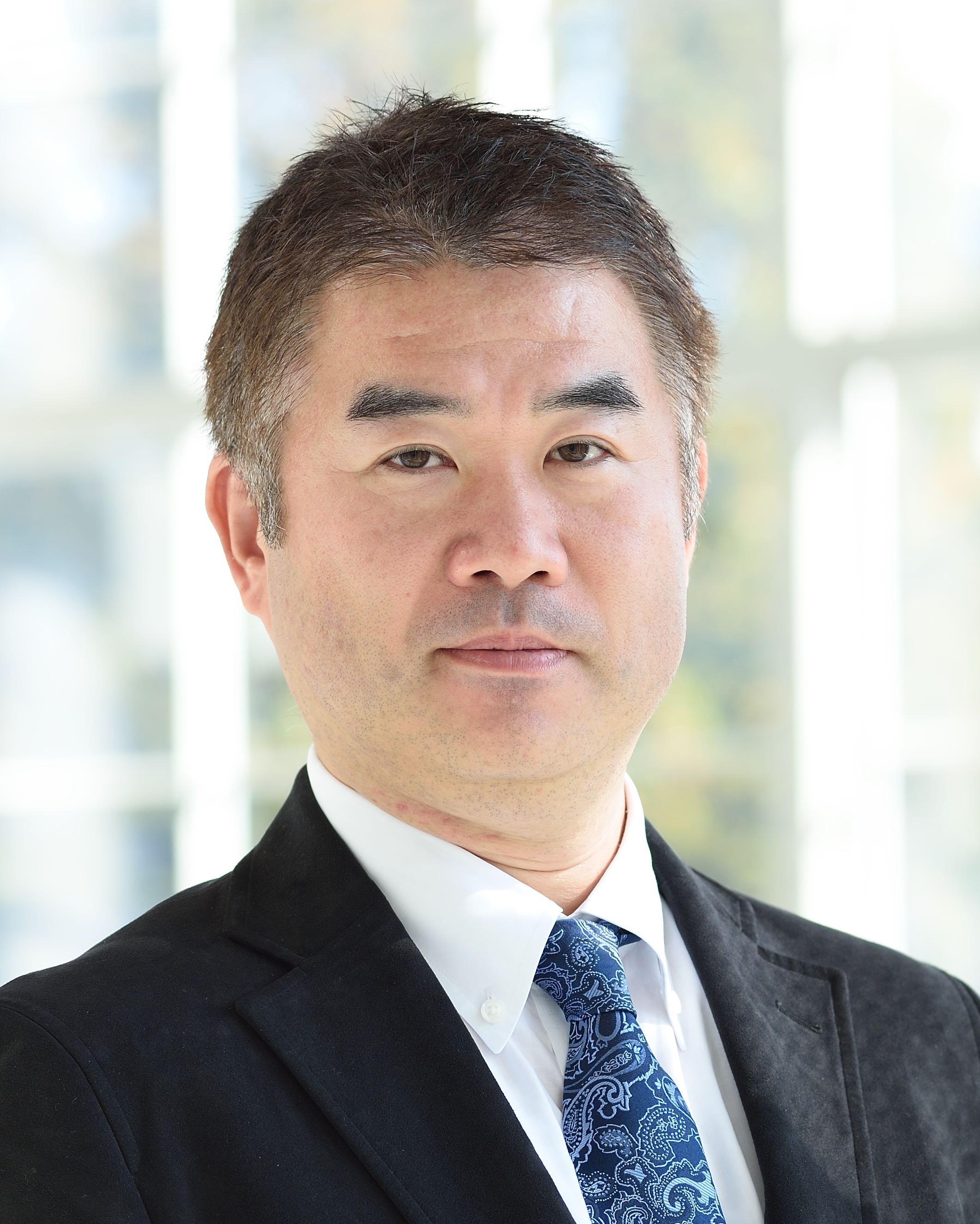
Tomoyuki FurutaniPanelists
Professor, Faculty of Policy Management, Keio University
Tomoyuki FURUTANI is a professor of emerging technology and security at Keio University, Faculty of Policy Management. He is an advisor of Defense Technology Foundation. His research interests are mainly on AI, data science, autonomous vehicles.
Recent publications: ‘Drones Changing Warfare’(co-edited, 2022), “Security in the Digital Transformation Era: The Accelerating Military Use of AI and the New International Order“ in ‘After the Ukraine Crisis: Choices for the International Community and Japan’ (2025)
He obtained Dr. Eng. at the University of Tokyo in 2001. He lectured two years at University of Tokyo as a research associate (2001-2003), four years as a lecturer at Keio University (2003-2007), eight years as an associate professor at Keio (2007-2015) and now works as a full professor (2015-present). He used to be a visiting researcher at University of Vienna, Austria, and a visiting professor in Chulalongkorn University, Thailand in 2018-2019.
-
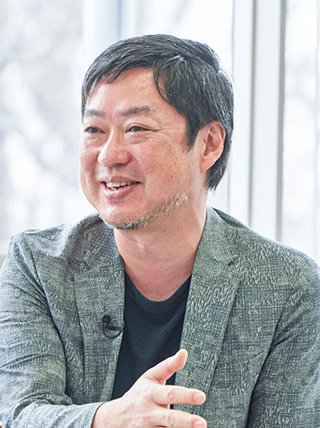
Ken JimboModerator
Managing Director, International House of Japan
Dr. Ken Jimbo is a Professor of International Relations at Keio University and a Managing Director of Programs at the International House of Japan (IHJ/I-House). He is concurrently an Adjunct Senior Research Fellow at the Canon Institute for Global Studies (CIGS). He served as a Special Advisor to the Japan Ministry of Defense in 2020 and Senior Advisor to the National Security Secretariat from 2018 to 2020.
His main research interests lie in International Security, Japan-U.S. Security Relations, and Japan’s Foreign and Defense Policy. He has served as a policy advisor for various Japanese governmental commissions and research groups, including the Ministry of Defense, the Ministry of Foreign Affairs, and the Ministry of Internal Affairs and Communications. His policy writings have been published by the RAND Corporation, NBR, the Stimson Center, the Pacific Forum CSIS, Japan Times, Nikkei, Yomiuri, Asahi, and Sankei Shimbun.
-
12:00~13:00
The Next Wave of AI: LLMs to Agentic Systems
Akari Asai
Sakyasingha Dasgupta
Shane Gu
Moderator: Richard B. Dasher
#3 Breakout Sessions <Technology>
10/13Monday
12:00~13:00
#3 Breakout Sessions <Technology>
The Next Wave of AI: LLMs to Agentic Systems
This panel explores the rapid evolution of Generative AI and its implications for business strategy. It will cover key developments including the shrinking of large language models (LLMs), the increasing use of AI agents for complete automation of tasks, and the move toward running AI on edge devices. Attendees will learn about the transition from basic AI agents to truly agentic AI, which can autonomously plan and execute complex, multi-step tasks. Business leaders need to be aware of how these advancements can transform operations and create new opportunities. The panel will address strategies for thriving, despite the possible crash of the current GenAI bubble, in the face of a fast-paced and ever-changing landscape.
-
Akari AsaiPanelists
Research scientist, Allen Institute for AI
Incoming Assistant Professor, Carnegie Mellon University
Akari Asai is a Research Scientist at AI2 and an incoming Assistant Professor at CMU. Her work focuses on LLMs, specifically building and applying Augmented LMs such as Retrieval-Augmented LMs and LLM agents. Her work earned paper awards, the IBM Global Fellowship, industry grants, and recognition as MIT TR35, Forbes 30 Under 30 Asia, and EECS Rising Stars.
-
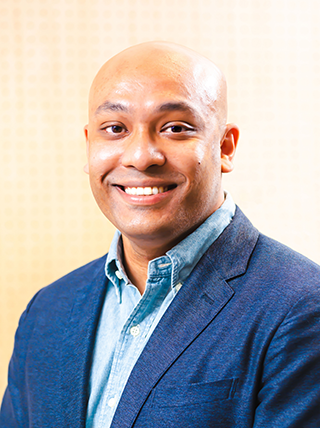
Sakyasingha DasguptaPanelists
Founder & CEO, EdgeCortix Inc.
Dr. Sakyasingha Dasgupta is the Founder & CEO of EdgeCortix, a fabless AI semiconductor company pioneering energy-efficient edge intelligence. An AI and machine learning technologist with over a decade of experience, he has transformed cutting-edge research into scalable products across sectors including semiconductors, robotics, autonomous systems, and fintech.
He previously led teams at Microsoft, IBM Research Japan, and national research labs such as RIKEN (Japan) and the Max Planck Institute (Germany), before helping establish technology divisions at startups in Japan and Singapore. In 2019, he founded EdgeCortix in Tokyo, introducing a patented hardware & software co-exploration approach to design AI-specific reconfigurable processors. Today, the company drives next-generation AI solutions across defense, aerospace, telecom, and smart industries.
Dr. Dasgupta holds a PhD in Physics of Complex Systems (Max Planck, Germany), an MSc in AI (University of Edinburgh), and has completed entrepreneurship studies at MIT Sloan. He holds 25+ patents globally.
-
Shane GuPanelists
Senior Staff Research Scientist, Google DeepMind
Shixiang Shane Gu is a Senior Staff Research Scientist at Google DeepMind, leading a subteam in Gemini Thinking.
He previously led Multilinguality Post-Training team for Gemini, worked on ChatGPT at OpenAI, and led a robot dexterity project as a Research Scientist at Google Brain.
Shane has made significant contributions to generative modeling, reinforcement learning, robotics, and language modeling.
He holds a PhD in Machine Learning from Cambridge, and a B.ASc. from the University of Toronto, advised by Geoffrey Hinton.
Shane has also held visiting positions at Stanford and the University of Tokyo.
Beyond his research, he angel invests and advises several AI startups across the US.
Born in Japan to Chinese parents, Shane is a Canadian citizen fluent in three languages.
-
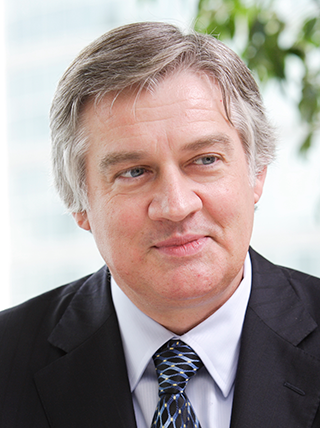
Richard B. DasherModerator
Director, US-Asia Technology Management Center, Stanford University
Founding Partner, Global Hands-On Venture Capital (GHOVC)
Dr. Richard Dasher has been Director of the US-Asia Technology Management Center and Adjunct Faculty at Stanford University since 1994. His research focuses on the impact of new technologies on industry value chains, open innovation management, and regional innovation ecosystems in different countries. He concurrently served as Executive Director of Stanford’s Center for Integrated Systems (1998 - 2015) and as an outside Board Director and member of the Management Council of Tohoku University (2004 - 2010). Dr Dasher is also a Founding Partner of Global Hands-On Venture Capital (GHOVC), and he advises business accelerators, startup companies, and think-tanks in the U.S., Canada, and several Asian countries. He is on the evaluation and review committees of several major science and technology funding programs, such as the WPI Program of MEXT/JSPS. He received the Japanese Foreign Minister’s Commendation in 2023 for long-term promotion of economic relations between Japan and the U.S.A.
-
12:00~13:00
From Outlier to Example: Japan’s Social Cohesion in a Divided World
Joi Ito
Noah Sneider
Ema Ryan Yamazaki
Moderator: Yumiko Murakami
#3 Breakout Sessions <Society>
10/13Monday
12:00~13:00
#3 Breakout Sessions <Society>
From Outlier to Example: Japan’s Social Cohesion in a Divided World
Japan's collectivist society was once criticized as a barrier to innovation, stifling diversity of thought. However, as many Western nations now grapple with deepening social divisions, political polarization, and a crisis of loneliness, the Japanese model is being reexamined. In contrast to societies where individualism clashes with social cohesion, Japan's focus on harmony and collective responsibility is beginning to look like a source of strength. Amidst rising populism and mistrust in institutions, Japan's social fabric appears remarkably resilient. This panel will explore what kind of environment truly fosters long-term stability and well-being, and Japan's unique role in a divided world.
-
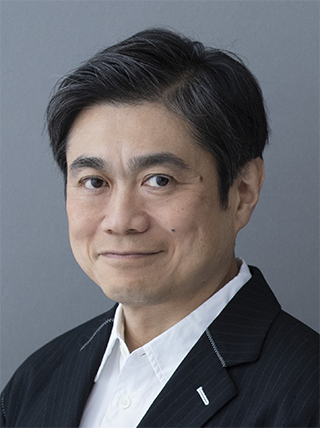
Joi ItoPanelists
Co-founder and Board Member, Digital Garage, Inc.
President, Chiba Institute of Technology
Digital Architect, venture capitalist, entrepreneur, author, and scholar. He works to respond to complex challenges such as education, our democracy and governance, and redesigning systems of scholarship and science. He has served as Director of the Media Lab at the Massachusetts Institute of Technology (MIT) and as a director of Sony and The New York Times. He is a member of the Digital Agency's Digital Society Planning Council. He is a co-chair of the Committee on Digital Transformation in the Corporate Sector at the Japan Association of Corporate Executives. He is also the Co-founder of Neurodiversity School in Tokyo. He is the author of many books, including “Neurodiversity” (Japanese/Forbes Japan), "AI-Driven” (Japanese/SB Shinsho), “(Revised Edition) Technology as a Culture” (Japanese/Kodansha), and “Whiplash”(English/Grand Central).. Ito is currently working on a book titled “Practice of Change” based on his Keio University PhD dissertation with the same name.
-
Noah SneiderPanelists
East Asia Bureau Chief, The Economist
Noah Sneider is The Economist's East Asia Bureau Chief. He primarily covers Japan, North Korea and South Korea. He also contributes to coverage of China, Taiwan, the Pacific and the Philippines and to broader thematic coverage of Asia. Prior to this he led the papers coverage of Japan as Tokyo Bureau Chief. He also covered Russia and Ukraine as Moscow Correspondent. Before joining The Economist, he reported for a range of publications, including The New York Times, Harpers, and The Atlantic, among others. His work has been anthologized in the Best American Travel Writing series. He is the recipient of a MacDowell Fellowship. He is a member of the third generation in his family to live and work in Japan and Korea.
-
Ema Ryan YamazakiPanelists
Documentary Filmmaker, Cineric Creative
Ema Ryan Yamazaki is a Japanese/British documentary filmmaker based in Tokyo, with roots in New York. With a unique perspective as an insider and outsider in Japan, Ema strives to tell stories that empathetically show human struggle and triumph.
Ema is the Director of INSTRUMENTS OF A BEATING HEART and Editor of BLACK BOX DIARIES, which were both nominated for the Academy Awards in 2025. She has directed three acclaimed feature documentaries; THE MAKING OF A JAPANESE, KOSHIEN: JAPAN'S FIELD OF DREAMS, and MONKEY BUSINESS: THE ADVENTURES OF CURIOUS GEORGE'S CREATORS
-
Yumiko MurakamiModerator
General Partner, MPower Partners
Yumiko Murakami General Partner, MPower Partners Fund L.P. Yumiko is the former head of the OECD Tokyo Centre. Prior to the OECD, she worked for 20 years in the global financial industry, mostly as a Managing Director at Goldman Sachs in New York, London and Tokyo. She is a leading authority on a wide range of economic policy issues such as corporate governance, tax guidelines, diversity, education, trade and innovation. She sits on several Government advisory panels, including Prime Minister Kishida’s panel on “the New Form of Capitalism”. Yumiko has an MBA from Harvard Business School, MA from Stanford University and BA from Sophia University.
Sushi, Yakiniku Beef and Vegetarian Bentos
Enjoy a bento—sushi, Yakiniku beef, or vegetarian—and use this time to get to know other people in the G1 Global Community!
10/13Monday
13:00~13:50
Networking Lunch
Sushi, Yakiniku Beef and Vegetarian Bentos
Enjoy a bento—sushi, Yakiniku beef, or vegetarian—and use this time to get to know other people in the G1 Global Community!
-
14:00~15:00
The KAISHA~The Business Reinvention of Japan~
Naonori Kimura
Terry Nakatsuka
Ulrike Schaede
Moderator: Tomoya Nakamura
#4 Breakout Sessions <Business>
10/13Monday
14:00~15:00
#4 Breakout Sessions <Business>
The KAISHA~The Business Reinvention of Japan~
This panel examines how Japanese companies are choosing an "aggregate niche strategy" to compete in new global settings. Based on research from Prof. Schaede's book, "The Kaisha: The Business Reinvention of Japan," panelists will explore how Japanese firms move upstream into critical deep-tech materials to compete against and profit from the activities of Northeast Asian and other manufacturers. How have they made the strategic pivot that has given them a competitive advantage? How long can this leadership last, and will its reach increase under Pax Japonica? Based on the insights from Japanese companies, the panel will share the lessons that can be learned more broadly.
-
Naonori KimuraPanelists
Managing Director Partner (IGPI Group), Industrial Growth Platform, Inc. (IGPI)
Naonori Kimuras activities include numerous advisory services such as corporate strategies including breakthroughs, strategy shifts and re-growth initiatives. He has advised clients on business management streamlining, structural reforms, financial strategy, new business development, M&A strategies, and cost competitiveness. He is currently Chairman & President of IGPI (Shanghai) Ltd. and outside director of Molten Corporation, and LIFULL Co., Ltd. He is also Advisory board member of The Japan Times ESG consortium.
Prior to IGPI, he launched a venture business, worked with NCR Japan and later at Towers Perrin and Arthur D. Little Japan.
He graduated from Keio University, School of Economics, and holds an MBA from the University of Leicester and an MS in Finance from the Lancaster University. He also completed AMP in Harvard Business School.
-
Terry NakatsukaPanelists
President & Group CEO, Altemira Holdings Co., Ltd.
Terry Nakatsuka started his career at Marubeni Corporation, then moved to McKinsey & Company, followed by GE Corporate and GE Aviation. Terry served as President & CEO at JATCO Ltd. in 2014-2021, then currently President & Group CEO at Altemira Holdings Co., Ltd. since 2022. Terry holds B.A. in Business at Keio University and MBA at Northwestern University.
-
Ulrike SchaedePanelists
Professor of Japanese Business; Director, Japan Forum for Innovation and Technology, University of California San Diego
Ulrike Schaede is professor of Japanese business at the University of California San Diego. Her research focuses on global business and Japanese business organization, strategy and management. Her book The Business Reinvention of Japan (in Japanese: Saiko THE KAISHA) won the 2021 Masayoshi Ohira Memorial Prize. In 2024, she published Japan Re-Emerges (in Japanese: Shin Nihon no Keiei). Professor Schaede holds an M.A. and Ph.D. from Germany, and has been a visiting professor at UC Berkeley, Harvard Business School, Stanford University, and Hitotsubashi University. She is Associate Editor of The Journal of the Japanese and International Economies, and serves on the Advisory Boards of NBR Asia in Seattle, and the IGPI Group in Tokyo, among others. Her website is www.ulrikeschaede.com.
-
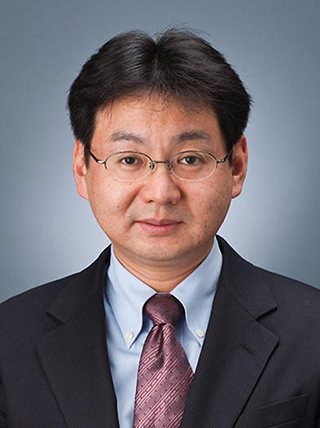
Tomoya NakamuraModerator
Managing Director, KIBOW Social Impact Investment Fund
Prior to GLOBIS, Mr. Tomoya Nakamura worked at Marubeni Corporation, reorganized an invested company at Advantage Partners, and was the senior managing director of Sun-Life Corporation (JASDAQ). At Sun-Life, he introduced a progressive ESOP for more than 250 employees, including part-time workers.
At GLOBIS, Mr. Nakamura has overseen global businesses. He launched the English MBA programs at the Graduate School of Management, GLOBIS University, started GLOBIS USA and the global training business, for which he served as the main facilitator for many clients. He is currently the Managing Director of KIBOW (Social Impact Investment) Fund.
Mr. Nakamura graduated from Hitotsubashi University with a degree in social studies and received his MBA from Harvard Business School. As a research associate of the General Management Unit of Harvard Business School, Mr. Nakamura wrote two HBS cases that apply Eastern philosophy to management.
-
14:00~15:00
Immigration in Japan: Crucial but Contested
Oya Koc
Rui Matsukawa
Shohei Sugita
Moderator: Robert Alan Feldman
#4 Breakout Sessions <Politics>
10/13Monday
14:00~15:00
#4 Breakout Sessions <Politics>
Immigration in Japan: Crucial but Contested
How can immigration shape a brighter, more dynamic Japan? Already, there are 2 ½ mln foreign workers in Japan, in everything from high-tech startups to cabbage farms. As the Japanese labor force falls from 66 mln today to 47 mln 2050, how much of the gap can be filled by foreign workers? In what occupations and in what industries? How will law and politics handle the challenges of assimilating foreigners and backlash by citizens? How can the private sector help convert challenges to opportunities? The panel will examine the economics, politics, law, and sociology of immigration in Japan.
-
Oya KocPanelists
Founder & CEO, Oyraa Inc.
Oya Koc is the Founder & CEO of Oyraa Inc., a Tokyo-based startup offering on-demand remote interpretation services. Oyraa supports both individuals (e.g. foreigners living in Japan) who face language barriers in daily life, and businesses that require real-time multilingual communication.
Prior to founding Oyraa, Oya worked at Boston Consulting Group (Tokyo), focusing on digital transformation and M&A projects. She holds a master's degree in Engineering from The University of Tokyo.
She also serves as an advisor to Japans Ministry of Economy for the 2025 Osaka Expo and is a board member of JAEFN (Japan Association for the Employment of Foreign Nationals). Oya was named Woman of the Year by Nikkei in 2024 and is an active advocate for multicultural inclusion in government and nonprofit initiatives.
-
Rui MatsukawaPanelists
Liberal Democratic Party, Senator of Japan
Ms. Matsukawa had worked at MOFA for 23 years at various posts including in Japan-ASEAN cooperation, Japan-China-Korea cooperation, International law affairs, and women’s empowerment. Her overseas posts include: at the Mission of Japan to the Conference on Disarmament (Geneva), The Deputy-Secretary General of the Information Corporations Service (Seoul). In 2016, she left MOFA and got elected as senator. She served as Parliamentary Secretary of Defense from 2020-21. Member of Foreign policy and defense committee. Deputy DG of International Bureau at LDP. In July 2022, she got elected for the second time.
-
Shohei SugitaPanelists
Managing Partner, Global HR Strategy LPC.
Attorney (Tokyo Bar), immigration-registered lawyer, labor & social security attorney, and administrative scrivener. Former lecturer at Keio University Law School, Nagoya University (Vietnam), and visiting fellow at Hanoi Law University. After working at Anderson Mori & Tomotsune, currently Managing Partner at Global HR Strategy LPC, Representative Partner at the Institute for Foreign Employment, and JICA expert on foreign employment and immigration law. Serves major corporate groups (100+ companies) in legal matters on foreign worker admission, placement, dispatch, and compliance. Has delivered hundreds of seminars on foreign employment, appeared on NHK and TBS programs, and is frequently quoted in leading media such as Nikkei and Asahi.
-
Robert Alan FeldmanModerator
Senior Advisor, Morgan Stanley MUFG Securities
External Director, Tokio Marine Holdings
Robert Alan Feldman is Senior Advisor to the Research Department of Morgan Stanley MUFG Securities, and is an External Director on the board of Tokio Marine Holdings. A leading voice on the Japanese economy, he was a regular commentator on TV Tokyo’s World Business Satellite from 2000-20. He has a Ph.D. in Economics from MIT. He first came to Japan as an exchange student in high school.
-
14:00~15:00
Deeptech - Leveraging Japan's Strength to Build a Global Tech Powerhouse
Yusuke Haga
Jeff Harper
Saneaki Obata
Yoshimi (Iyadomi) Shinohara
Moderator: Emre Yuasa
#4 Breakout Sessions <Technology>
10/13Monday
14:00~15:00
#4 Breakout Sessions <Technology>
Deeptech - Leveraging Japan's Strength to Build a Global Tech Powerhouse
Japan's historical strengths in foundational research, precision manufacturing, and engineering uniquely position it for leadership in the global deeptech landscape, especially in areas like advanced hardware and physical AI. This panel will explore how the nation can leverage these capabilities to commercialize groundbreaking innovations and compete on a global scale. Bringing together top minds from venture capital, academia, and industry, the session will discuss bridging the gap between R&D and the market, the role of government policy in fostering deeptech startups, cultivating a risk-taking entrepreneurial culture, and attracting global talent. The goal is to provide a roadmap for transforming Japan’s deep technical expertise into a thriving, globally competitive deeptech ecosystem.
-
Yusuke HagaPanelists
CEO, Robotruck Inc.
Joined Robotruck in 2025 and became the director and CEO.
Prior to joining Robotruck, I joined SkyDrive as COO. I covered the overall business related to flying cars and drones, engaged in business strategy formulation, external relations activities, product planning, partnership development, Osaka Kansai Expo projects, etc.
Before joining SkyDrive, I joined Mitsubishi Corporation. In the automotive business, he was engaged in sales of Isuzu Motors to Southeast Asia (stationed in Thailand and Malaysia). After returning to Japan, I was engaged in new business development in Aerospace industry, such as establishment of JVs with large companies, and investment in start-ups.
-
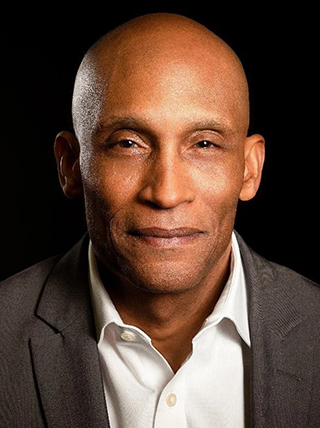
Jeff HarperPanelists
Co-Founder, EVP & Chief Commercial Officer, ZettaJoule
Jeff Harper, Co-Founder, EVP and Chief Commercial Officer of ZettaJoule, brings a depth of wealth and experience with over 40-plus years of global experience in nuclear reactor innovation, commercialization, and regulatory compliance. Previously, as Vice President at X-energy, he led strategic planning and secured more than $2.4 billion in U.S. Department of Energy funding. Jeff has negotiated international reactor agreements and built partnerships with key industry leaders, including Dow Chemical and Energy Northwest. He also led Westinghouse's Advanced Reactor Development Program and played a pivotal role in licensing the AP1000 reactor. As an NRC inspector, his investigation into faulty fasteners prompted the 1990 Fastener Quality Act. Jeff founded Turner, Harper & Associates, a 100-person global engineering firm, and has held advisory roles in U.S. and international nuclear trade organizations. He holds an MBA from Harvard and a B.S. in Metallurgical Engineering and founded The Harper Academy to train the next generation of nuclear engineers.
-
Saneaki ObataPanelists
Founder, Co-CEO, Oceanic Constellations Inc.
Founder and Co-Chief Executive Officer of Oceanic Constellations Inc., a company advancing ocean monitoring through autonomous surface drone vessels. A graduate of the University of Tokyos Faculty of Law (2001), he began his career at Goldman Sachs Japan, gaining deep financial expertise, followed by leadership at Symphony Financial Partners. In 2008, he founded Xebral Co., Ltd., marking his entrepreneurial debut. In 2023, he co-founded Oceanic Constellations, combining his legal acumen, financial background, and entrepreneurial drive to pioneer technological innovation in maritime solutions.
-
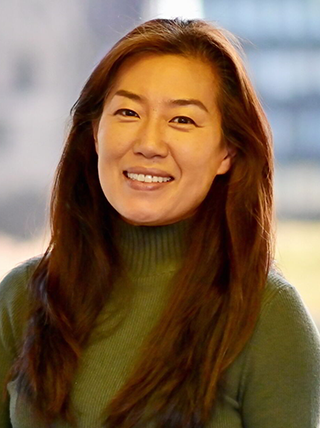
Yoshimi (Iyadomi) ShinoharaPanelists
Co-Founder AI Institute D^3, Harvard Business School
Chair, Shinohara Foundation
Founder / CEO, Yokohama Ventures
Yoshimi (Iyadomi) Shinohara founded the U.S. subsidiary of Persol Holdings, part of the worlds sixth-largest staffing firm, with $10+ billion in revenue and publicly traded on the Tokyo Stock Exchange (2181.T).
Specializing in technology-focused recruitment, the subsidiary grew through multiple M&As, strategic investments in tech startups, and the launch of an AI-first talent marketplace, driving substantial business expansion.
In 2022, with a commitment to advancing digital transformation with AI, Shinohara co-established the AI Institute D^3 at Harvard Business School, contributing to global research and leadership education in AI transformation.
Additionally, through the Shinohara Foundation, which aims to 'maximize peoples well-being,' she supports initiatives focused on improving productivity and working conditions in Japan, advancing social impact with a focus on workforce well-being and sustainable growth.
-
Emre YuasaModerator
Partner, GLOBIS Capital Partners
Emre is General Partner at Globis Capital Partners. He invests primarily in domestic IT startups focused on industrial transformation (digital transformation), typically from the Pre-A/Series A funding rounds and provides hands-on support, partnering closely with portfolio companies throughout their growth. Emre graduated from Harvard Business School (MBA).
-
14:00~15:00
How Can Japan Become the World’s Most Admired Tourism Destination?
Ken Chan
George Kakuda
Keiko Kuwakino
Moderator: Tak Umezawa
#4 Breakout Sessions <Society>
10/13Monday
14:00~15:00
#4 Breakout Sessions <Society>
How Can Japan Become the World’s Most Admired Tourism Destination?
What will it take for Japan to move from popularity to true leadership in contemporary tourism? This panel features innovators shaping sustainable and regenerative tourism, redefining local gastronomy, and driving mountain resort development. Together, they will discuss how Japan can craft distinctive experiences that resonate deeply with visitors while delivering lasting impact for local communities.
-
Ken ChanPanelists
Founder & CEO, Patience Capital Group
Ken Chan is the Founder, CEO and CIO of Patience Capital Group. Prior to PCG, Ken was GIC Japans Country Head, where he looked after Real Estate and Integrated Strategies Investments. Over his 19-year career with GIC, Ken built up a core portfolio of real estate assets across the office, residential, retail, logistics and hospitality sectors, in addition to assisting GIC with its other investments in equities, private equities and infrastructure. His vast network in Japan and Asia also helped GIC establish a strong brand name and build up investments in various financial assets across different industries.
-
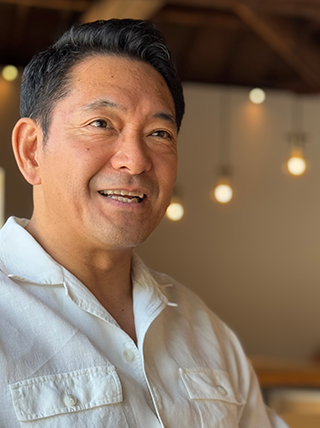
George KakudaPanelists
CEO, Kakuda Pearl Co., Ltd.
President, Japan Pearl Exporters' Association
Chairman, Mie Pearl Promotion Council
I spent my elementary school years in Ise-Shima, high school in Kawagoe, ICU for university, worked at Mikimoto for 3 years and have now worked at KAKUDA Pearl, my family business, for 30 years. I've served as president for half of that time.
My hotel COVA KAKUDA reflects my desire to immerse guests in the unique charm of our region. I feel a strong responsibility to contribute to the pearl industry and play an active role in my community. Our hotels value comes not only from local cuisine and beautiful landscapes, but also from meaningful interactions with residents, experiencing local culture, and enjoying the everyday atmosphere. Although I do not have a traditional background in hospitality business, I believe this allows me to offer fresh perspectives and create services that are truly unique. By working with local people, I aspire to cultivate memorable and distinctive experiences for our guests.
-
Keiko KuwakinoPanelists
Chef, Satoyama Jujo
Chef /Satoyama Jujo
Gaulmillau Terroir Award winning chef Keiko Kuwakino is recognized as being at the top of her field of “local gastronomy”. She is currently chef of Michelin starred “Sanaburi” restaurant in the boutique hotel of “Satoyama Jujo” located in the snowy mountains of Niigata, Japan.
Constantly in search of new ideas and techniques, Keiko frequently travels to sample exotic dishes. While at home in Niigata, she collects local ingredients from nearby mountains and communities. The integration and respect of local culture and nature is pivotal to her cuisine.
Previous to working at Satoyama Jujo, Keiko trained in vegetarianism, yoga and Ayurveda. Her diverse skills and interests continue to inform her nature inspired, local gastronomy.
-
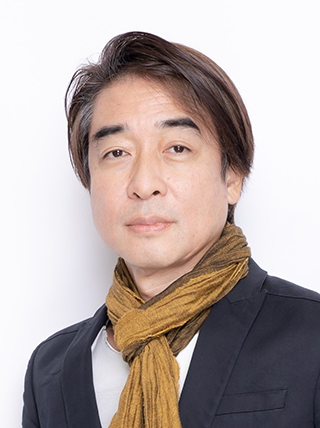
Tak UmezawaModerator
Japan Chairman, KEARNEY
Chairperson, CIC Japan
As a senior partner with KEARNEY, a global management consultancy, Umezawa has served leading corporations in Japan and the US for more than 25 years. Areas of his expertise include strategy, innovation, urban development, and organization.
At Cambridge Innovation Center (CIC), he has led the efforts to launch and develop CIC Tokyo, Japan's largest innovation center. CIC is the worlds leading operator of shared office/lab facilities for startups, operating innovation centers in 10 cities worldwide. CIC Tokyo, opened in 2020, is a host for 330 companies and several innovation clusters, including life sciences and climate tech. CIC Fukuoka was recently launched as CIC's second campus in Asia.
Umezawa also sits on government committees on innovation and intellectual property strategy, tourism, and creative industry development. He holds a bachelor of law from the University of Tokyo and an MBA from MIT Sloan School of Management.
-
15:15~16:15
The Japanese Model of Well-Being: Improving Convenience as well as Fulfillment
Rohit Kar
Vickie Skorji
Tadahiro Wakasugi
Moderator: Makiko Shinoda
#5 Breakout Sessions <Business>
10/13Monday
15:15~16:15
#5 Breakout Sessions <Business>
The Japanese Model of Well-Being: Improving Convenience as well as Fulfillment
Well-being has become a familiar term in Japanese corporate discourse, yet the gap between knowing, doing, and being remains wide. While many programs focus on making work more convenient (働きやすさ), employees increasingly seek deeper meaning and fulfillment (働きがい). We explore how fostering a culture of self-compassion and psychological safety can be a powerful driver of individual and organizational resilience, and how businesses can move beyond policies to lived practice and authentic well-being. In particular, we explore how businesses in Japan can maintain productivity while tackling these issues and embracing globalization and expanding their global talent.
-
Rohit KarPanelists
Director, Gallup
Director of Gallup Japan, Heading the business growth and impact. Been with Gallup for 17 years, previously was the Regional director for Australia, NZ and South Asia. Prior to that i was the Head of Consulting for our Middle East division and prior to that headed our market in Thailand. My role is that of change management, growth and most importantly I am a consultant and heart, so my biggest responsibility is client impact.
-
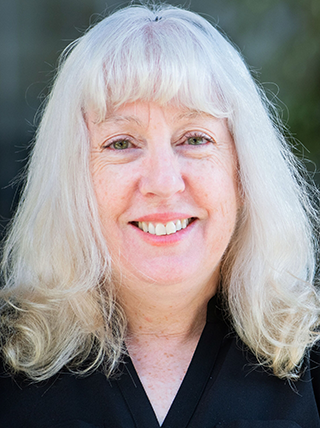
Vickie SkorjiPanelists
Lifeline Director, TELL Japan
Vickie Skorji
Director of TELL Lifeline Services,
TELL Japan a Japanese NPO that has been supporting the International community in Japan since 1973.
Vickie has a Masters in Counselling from Monash University and a Behavioural Sciences degree with honours from La Trobe University, Australia, along with specialist training in neuropsychology and Acquired Brain Injury in hospital and rehabilitation settings.
Over the last 18 years at TELL, she has worked as a trainer, clinical therapist and Lifeline Director. She has also developed a wide range of suicide prevention and mental health awareness programs for schools, the workplace, and the community, including stress management, work-life balance, cultural adjustment, dementia care, disaster preparedness, and psychological first aid training.
More recently, she developed workshops and programs to assist schools, workplaces, and community groups in addressing the challenges of COVID-19, both during and after the pandemic. These programs focused on managing burnout and compassion fatigue, as well as building resilience. Additionally, she created programs to support evacuees in adjusting to life in Japan.
-
Tadahiro WakasugiPanelists
Senior Faculty Director, GLOBIS
Dr. Tadahiro Wakasugi is Senior Faculty Director at GLOBIS, specializing in leadership development and the integration of compassion and well-being into organizations. He previously worked in strategy consulting at Booz Allen Hamilton, supporting corporate strategy and transformation for Japanese and multinational firms, and also gained experience in the education technology sector in London. He serves on the board of the Japan Positive Psychology Association and is a certified teacher of Mindful Self-Compassion and Compassion Cultivation Training, helping professionals enhance resilience, engagement, and well-being. He earned a Doctor of Business Administration (DBA) from Hitotsubashi University, an MBA from London Business School, and a bachelors and a masters degree in engineering from the University of Tokyo.
-
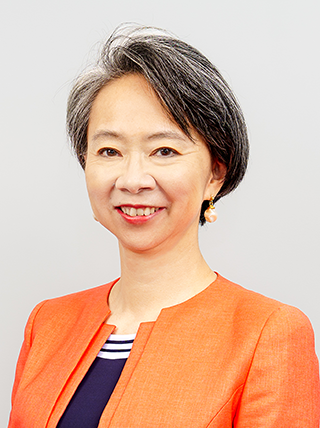
Makiko ShinodaModerator
Director, Yell Co., Ltd.
Makiko is the Director of Yell since 2020, bringing her expertise in business strategy and a passion for effective communication. As an accomplished speaker and thought leader, she delves into the significance of listening and dialogue within the contemporary business landscape. Makiko's contributions extend beyond speaking engagements, as she has co-translated influential works such as "You're not listening: What You're Missing and Why It Matters" by Kate Murphy and "The Alliance: Managing Talent in the Networked Age" by Reid Hoffman et al.
Prior to her current role, Makiko served as the CFO of Hobonichi, where she successfully led the company through its IPO process. Her diverse career encompasses finance leadership positions at renowned organizations like Novartis and Nestle, in addition to her experience gained at McKinsey & Company. Makiko's academic background includes an MBA from the Wharton School, University of Pennsylvania, an MA in International Relations from SAIS, Johns Hopkins University, and a Bachelor of Economics from Keio University.
-
15:15~16:15
Tolerance in the Tensions: Dialogue between the Middle East and Far East
Mohamed Said Al Busaidi
Ali Mohamed Al Lawati
Mitsugu Saito
Keiko Sakai
Moderator: Toru Takahashi
#5 Breakout Sessions <Politics>
10/13Monday
15:15~16:15
#5 Breakout Sessions <Politics>
Tolerance in the Tensions: Dialogue between the Middle East and Far East
Beyond the influence of major powers, smaller yet distinctive nations in the Middle East and Far East — guided by their own philosophies, values, and political stances — are navigating complex regional dynamics. Having faced turbulence yet shown resilience, these countries demonstrate how they can contribute to regional and global stability in ways that superpowers cannot. This panel explores how political behavior and leadership intersect with disciplined planning, entrepreneurial daring, long-term vision, and fast adaptation. By sharing experiences, we aim to highlight how political navigation can build trust, strengthen civil society, and open pathways to sustainable collaboration and innovation.
-
Mohamed Said Al BusaidiPanelists
Ambassador Extraordinary and Plenipotentiary of the Sultanate of Oman to Japan
Dr. Mohamed Al Busaidi was appointed Ambassador Extraordinary and Plenipotentiary of the Sultanate of Oman to Japan in 2018. Prior to assuming his duties, Ambassador Al Busaidi started his career as a Professor of Physics at Sultan Qaboos University joining the Foreign Ministry in 2009 and held prominent positions such as the Chief of the North American Affairs Department. His Excellency Dr. Mohamed Al Busaidi is also the Non-resident Ambassador Extraordinary and Plenipotentiary of the Sultanate of Oman to Australia, and New Zealand.
-
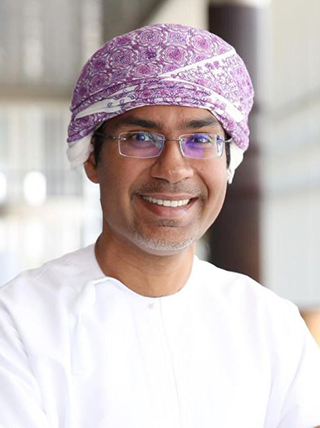
Ali Mohamed Al LawatiPanelists
Chief People & Technology Officer, OQ
Ali Al Lawati is the Chief People & Technology Officer at OQ, bringing 20 years of experience, including over 10 internationally. His focus is on strategic growth and developing human capital by driving portfolio diversification and in-country value creation through industry localization, SME development, and attracting investments to boost local talent and job creation.
Previously, as the Global HR Director – Corporate at SLB, Ali oversaw Technology, HR, Legal, Finance, and Strategy across corporate offices in Paris, London, and Houston. Before that, as the Regional Managing Director for SLB (Oman and Pakistan), he managed over 3,000 employees, defining long-term strategy and operational excellence. Notably, he established a strategic anchor investor relationship with Abraj Energy Services to create the largest integrated operational base in Oman. He also pioneered alternative energy initiatives, such as evaluating geothermal applications, directly supporting Oman’s sustainability goals. He holds a B.S. in Petroleum and Natural Gas Engineering.
-
Mitsugu SaitoPanelists
Former Ambassador of Japan to Oman and Iran
Guest Professor, Kwansei Gakuin University
Ambassador Ret.
Mr. Saito was the Japanese Ambassador to Oman and Iran and is now a Guest Professor at Kwansei Gakuin University in Kobe. He was born in 1957 and graduated from Hitotsubashi University in 1980. He also studied at St. Anthony’s College, Oxford University in the UK, and the Middle East Institute at Columbia University in the US. He served at the Foreign Ministry of Japan from 1980 to 2020. He is an expert on the Middle East, particularly the Gulf region, as well as intelligence and national security issues (He was Cabinet Councilor for National Security and Crisis Management at the time of the Great East Japan earthquake). He was posted to various countries in the Middle East, including Egypt, Saudi Arabia, Israel, Oman, and Iran. Now he teaches at some universities and also contributes analytical reports on the Middle East to the Okazaki Institute weekly.
-
Keiko SakaiPanelists
Professor, Chiba University
Prof. Keiko SAKAI is a professor at Chiba University and Director of Center for Relational Studies on Global Crises.
While she worked as a researcher in the Institute of Developing Economies (IDE), she served as a research attach in the Embassy of Japan in Iraq in the late 80s, and served as the overseas researcher at the American University in Cairo in the 90s. Since 2005, Sakai took on the position of Professor at the Tokyo University of Foreign Studies, then moves to Chiba University in 2012.
She has published works on contemporary Iraq and the Middle East, such as Iraq Since Invasion (co-editor, Routledge, 2020). Her latest edited book Gaza Nakba 20232024 Background, Context, Consequences was published from Springer in Feb. 2025.
-
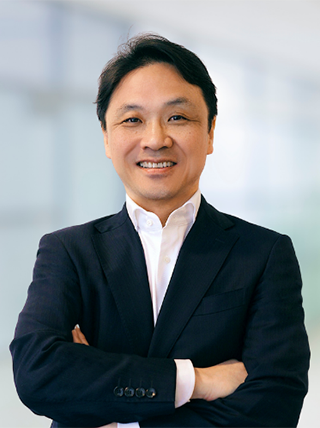
Toru TakahashiModerator
Global Chief Strategy Officer, GLOBIS Europe BV
Toru Takahashi is Global Chief Strategy Officer at GLOBIS Europe BV, based in Brussels, Belgium. Under his leadership, GLOBIS offers Pre-MBA courses and global leadership training for corporate clients across the EMEA region. He also imparts his wisdom on Global Perspectives and Entrepreneurial Leadership in GLOBIS University's MBA program. Renowned for his corporate training expertise, Takahashi conducts seminars on developing corporate strategy during overseas expansion and leadership for localizing overseas sites.
Before joining GLOBIS, he spent eight years on overseas assignments with Marubeni Corporation, spearheading infrastructure projects in Iran and managing diverse business ventures from their EMEA regional headquarters in Belgium. Takahashi is the author of "People who get results overseas don't use cultural issues as an excuse" and co-author of "GLOBIS MBA Management Book II."
A Sophia University economics graduate, he also completed the Stanford Executive Program (SEP) at the Stanford Graduate School of Business and is currently a PhD candidate at the Bucharest University for Economic Studies.
-
15:15~16:15
Can Japanese Institutions Educate Creative Leaders Unique from the Frontrunners?
Daijiro Mizuno
Miles Pennington
Sarah Teasley
Moderator: Kinya Tagawa
#5 Breakout Sessions <Technology>
10/13Monday
15:15~16:15
#5 Breakout Sessions <Technology>
Can Japanese Institutions Educate Creative Leaders Unique from the Frontrunners?
How can creative education—rooted in Japan’s unique context—foster the next generation of changemakers? Japan’s blend of advanced technology, rich culture, and complex social challenges offers fertile ground for reimagining design’s role in education. Design has a distinctive ability to bridge disciplines and connect expertise with people and society, enabling practical, impactful solutions. This panel brings together global leaders in education and design to explore how learning is being reshaped. Through case studies, we will examine practices that merge craft with technology, link social issues to project-based learning, promote interdisciplinary thinking, and encourage the creative use of AI.
-
Daijiro MizunoPanelists
Professor, vice-director, Center for the Possible Futures, Kyoto Institute of Technology
Born in Tokyo in 1979. His areas of expertise include fashion design, design research, and design methodology. He earned his MA and PhD from the Royal College of Art. He has previously served as a lecturer at the Kyoto University of Art and Design Ultra Factory, a specially appointed lecturer at the Kyoto University Design School, and an associate professor at Keio Universitys Faculty of Environment and Information Studies, before assuming his current position.
-

Miles PenningtonPanelists
Professor of Design Led Innovation, University of Tokyo
Miles Pennington is professor of Design Led Innovation at The University of Tokyo, where he is Director of the unique international and multidisciplinary DLX Design Lab. The lab collaborates with researchers at the university to create value through design. Previous to the University of Tokyo he was at the Royal College of Art in London and was Head of Programme of the Innovation Design Engineering (IDE) joint Masters programme with Imperial College - he is an alumnus of the IDE programme and graduated in 1992. He was also Founder and Head of the pioneering international exchange programme Global Innovation Design (GID). In the past, in parallel to his academic work he was a Director of the innovation consultancy Design Stream and more recently Director in the London office of the international design agency Takram. He moved to Japan in September 2017 to join The University of Tokyo. Recently he was appointed as Dean (prospective) of the UTokyo College of Design
-

Sarah TeasleyPanelists
Professor of Design, RMIT University
Sarah Teasley is Professor of Design at RMIT University in Melbourne, Australia.
Through her organizational leadership, research and teaching, she aims to broaden access to design leadership, using transdisciplinary approaches and partnerships with organizations, companies and communities.
At RMIT, she contributes to the Masters in Design Innovation and Technology (MDIT) and supervises PhDs.
She served as Associate Dean for Research and Innovation (Design), 2022-2025.
Before RMIT, she was Head of Programme for History of Design at the Royal College of Art, UK.
Current projects include the Australian Emulation Network, securing our born-digital cultural heritage for the future, and peer mentoring with women leaders as part of DESIAP, Designing Entangled Social Innovation in Asia-Pacific.
She regularly consults and speak internationally on the future of design culture, research and education.
She holds degrees from Princeton, Musashino Art University and the University of Tokyo and is the author of Designing Modern Japan (2022).
-
Kinya TagawaModerator
CEO, Takram Japan Inc.
Kinya is an award-winning design engineer experienced in various products, including hardware, software and interactive art. He holds a BEng from the University of Tokyo and an MA from the Royal College of Art in the UK. His work was selected as a permanent collection at the Museum of Modern Art in New York. He was assigned as a visiting professor at the Royal College of Art from 2015 to 2018. With his contribution to the RCA, he was awarded an Honorary Fellow RCA, in 2018. Kinya is also appointed as a member of several design-related committees of the Japanese Government.
-
15:15~16:15
Global Ocean Strategy: Japan's Pivotal Role in a Sustainable Blue Economy
Keiichiro Asao
Charles Goddard
Jane Lubchenco, Ph.D.
Atsushi Sunami
Moderator: Minako Iue
#5 Breakout Sessions <Society>
10/13Monday
15:15~16:15
#5 Breakout Sessions <Society>
Global Ocean Strategy: Japan's Pivotal Role in a Sustainable Blue Economy
The accelerating pace of marine economic development and international politics demands new thinking. This panel explores how to optimize the framework for a sustainable Blue Economy and, crucially, how to accelerate progress through a robust link between science and policy. The international community is actively creating new frameworks, with the UN finalizing a treaty for the high seas and the WTO concluding an agreement to curb wasteful fishing subsidies. This is an era that requires a nexus of science, politics, economics, and the environment. By convening experts from business, government, and academia, this session aims to foster cross-disciplinary collaboration and generate fresh strategies for Japan and its global partners to solve shared challenges.
-
Keiichiro AsaoPanelists
Minister of the Environment, Member of the House of Councilors
Originally a banker at The Industrial Bank of Japan, Mr. Asao is a graduate of the University of Tokyo, Faculty of Law and the Graduate School of Business, Stanford University He was elected to the House of Councilors from Kanagawa Prefecture in 1998 and has more than 20 years experience in the Japanese Diet.
During his career as the Member of the Japanese Diet, he has served as the Party head of Your Party. He has previously served as Chair, House Rules and Administrations as well as Acting Chairperson of the Policy Research Council of the Liberal Democratic Party.
-
Charles GoddardPanelists
Editorial Director, Economist Impact
Charles Goddard imagines and builds The Economist Groups flagship initiatives, the purpose of which is to catalyse progress on key issues of the day. He works closely with partners on themes including ocean health and the sustainable ocean economy, the Anthropocene, global health security, and ageing and longevity. Based in Sydney, Australia Charles was previously editorial director, Asia at the Economist Intelligence Unit, director of research in Asia, and managing director of the Economist Corporate Network, a peer network for senior executives. He is concurrently executive director of Economist Impact's World Ocean Initiative, and Back to Blue, a joint initiative with The Nippon Foundation that is building pathways to zero pollution in the ocean by 2050.
-
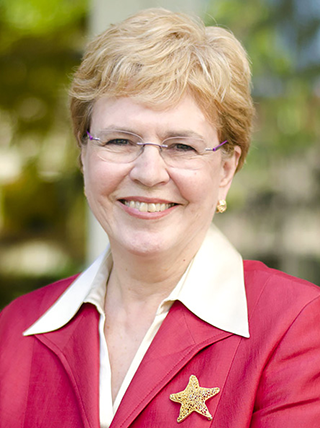
Jane Lubchenco, Ph.D.Panelists
University Distinguished Professor, Valley Professor of Marine Biology, Oregon State University
Jane Lubchenco, is University Distinguished Professor of Integrative Biology and Wayne and Gladys Valley Professor of Marine Biology at Oregon State University. From 2021-2025, she led the Climate and Environment team at the White House Office of Science and Technology Policy; from 2014-2016 she served as the State Departments first U.S. Science Envoy for the Ocean; from 2009-2013, she was the Under Secretary of Commerce for Oceans and Atmosphere and Administrator of the National Oceanic and Atmospheric Administration (NOAA). She is a marine ecologist with scientific and policy expertise in the ocean, biodiversity, climate change, and interactions between the environment and human well-being. She is an elected member of the National Academy of Sciences and the Pontifical Academy of Sciences, among others, and has received numerous awards including a MacArthur genius Fellowship and 24 honorary doctorates (most recently from Oxford University).
-
Atsushi SunamiPanelists
President, Sasakawa Peace Foundation
Atsushi Sunami is President of the Sasakawa Peace Foundation. He is also Adjunct Professor and Special Advisor to the President at the National Graduate Institute for Policy Studies (GRIPS), and Guest Professor at the Research Organization for Nano & Life Innovation at Waseda University. In the Cabinet Office, he serves as a chairperson of the Okinawa Development Council, Acting chairperson and Vice-chairperson of Japanese National Commission for UNESCO, member of the Economic Security Legislation Council. He also serves as Chairman of the Committee for Examination and Evaluation of the Subsidy for Research and Study Projects on Diplomacy and Security in the Ministry of Foreign Affairs. He earned his BSFS from Georgetown University and MIA and Ph.D. in Political Science from Columbia University.
-
Minako IueModerator
Chair and CEO, Sailors for the Sea Japan
Founder, Chair, and CEO of Sailors for the Sea Japan, an affiliate of the US NGO for Ocean Conservation, founded by David Rockefeller, Jr.
Ph.D. (Kyoto University Graduate School of Global Environmental Studies)
Project Researcher, Atmosphere and Ocean Research Institute, The University of Tokyo. Associate Professor, Research Institute for Humanity and Nature.
#6 Plenary Session
GLOBIS Hall
Pax Japonica and the World: Where do we go from here?
-
Deputy Head Priest, Taizo-in Zen Buddhist Temple
Visiting Lecturer, Stanford University
-
Distinguished Fellow and Former Director, Chatham House, the Royal Institute of International Affairs
-
Provost, King's College, Cambridge
-
Expert Director, Monex Group
10/13Monday
16:30~17:30
#6 Plenary Session
Pax Japonica and the World: Where do we go from here?
After a day of rich discussion, we now turn our focus to action. "Pax Japonica" is not a destination, but a journey—one built on collaboration and proactive engagement. Japan as a stabilizer can act as a foundation to collectively build a more resilient world. How can we create a shared understanding of our global challenges and a commitment to leveraging Japan’s unique position? How do we, as leaders in business, society, and technology, translate today's insights into tomorrow's reality? Let's discuss concrete next steps to ensure the vision of a more stable and prosperous world, with Japan as a pivotal partner, is one we can all create together.
-
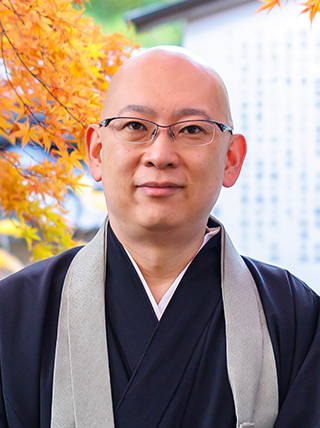
Daiko MatsuyamaPanelists
Deputy Head Priest, Taizo-in Zen Buddhist Temple
Visiting Lecturer, Stanford University
Born in 1978 in Kyoto, Rev. Matsuyama obtained his master’s degree in Agriculture and Life Sciences from the University of Tokyo. After four years of training at Heirin-ji Temple, he became the deputy head priest of Taizoin Temple in 2007. Matsuyama was listed as one of “The Top 100 People of the New Generation 2016” in Nikkei Business. In 2018, he became a visiting lecturer at Stanford Univ. He received The Award of Commissioner for Cultural Affairs and Shigemitsu Award from Japan society in Boston in 2019. He is serving as an Outside Director of V-cube, a tech startup, since 2021.
As a young representative of the Zen Sect in Japan, Matsuyama has interacted with many religious leaders, such as having an audience with the Roman Catholic Pope and conversing with the 14th Dalai Lama. He also participated in the Davos World Economic Forum in 2014 and continues to work actively beyond national and religious borders.
-

Robin Niblett KCMGPanelists
Distinguished Fellow and Former Director, Chatham House, the Royal Institute of International Affairs
Sir Robin Niblett is Distinguished Fellow with Chatham House (the Royal Institute of International Affairs), where he was the Director and Chief Executive from 2007 - 2022, and Distinguished Fellow with the Asia Society Policy Institute.
He is also Senior Adviser to the Center for Strategic & International Studies in Washington DC, where he served as the Executive Vice President and Director of its Europe Program and Initiative on Transatlantic Relations.
A leading expert on the relations between Europe, the US, and Asia, he is the author of 'The New Cold War: How the Contest Between the US and China Will Shape Our Century' (Atlantic Books, 2024). He is also the author of numerous Chatham House and CSIS reports, and his analysis appears in the worlds leading journals and newspapers.
Robin was awarded a knighthood by Queen Elizabeth II in 2022. He received his MPhil and DPhil from New College, Oxford.
-
Gillian TettPanelists
Provost, King's College, Cambridge
In 2023, Gillian Tett was elected to serve as Provost to King’s College, Cambridge.
Gillian also writes weekly columns covering economic, financial, political, and social issues for the US Financia Times and is the co-founder of FT Moral Money, a newsletter that tracks the ESG revolution in business and finance.
From 2013 to 2019, Tett was the FT’s US Managing Editor, also serving as Assistant Editor for the FT’s markets coverage, Capital Markets Editor, Deputy Editor of the Lex column, Tokyo Bureau Chief and Correspondent, London-based economics reporter and a reporter in Russia and Brussels.
Before joining the FT, Gillian was awarded a PhD in Social Anthropology from Cambridge and in 2024, was awarded an OBE for her services to journalism.
-
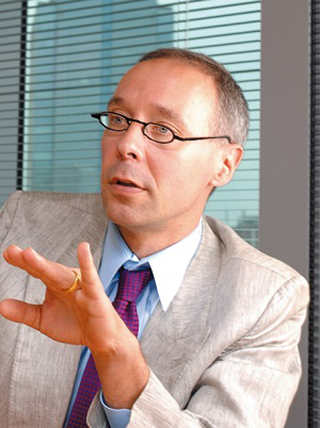
Jesper KollModerator
Expert Director, Monex Group
Jesper Koll has been researching and investing in Japan since becoming a resident in 1986. Over the past two decades, Jesper has been consistently recognized as one of the top Japan strategists/economists, having worked as Chief Strategist and Head of Research for U.S. investment banks J.P. Morgan and Merrill Lynch. He currently serves as Expert Director for the Monex Group and the Japan Catalyst Fund (Japan’s 1st retail investor based corporate engagement/activist fund). His analysis and insights have earned him a position on several Japanese government and corporate advisory committees, including Tokyo Governor Yuriko Koike’s Advisory Board. In 2022, he was appointed Global Ambassador for Tokyo’s Financial Center initiative. Jesper serves as Board Director of OIST, the Okinawa Institute for Science and Technology and is a Founder and Board Director of the Asia Society Japan and heads their Policy Committee. He is one of the few non-Japanese members of the Keizai Doyukai, the Japan Association of Corporate Executives; and serves on the board of several Japan-based start-ups. He has written three books in Japanese and, in 2021, created the acclaimed video/pod-cast series “Japan - Capitalism that works”.
Jesper is an economist, angel-investor, patron; and yes, a Japan Optimist.
Closing Session
GLOBIS Hall
G1 Global Advisory Board Member
10/13Monday
17:30~17:50
Closing Session
G1 Global Advisory Board Member
Reception Party
Tokyo Green Palace
G1 LuckyFes Night with Hanafugetsu
10/13Monday
18:00~19:30
Reception Party
G1 LuckyFes Night with Hanafugetsu
-

"Hanafugetsu" is an acoustic unit formed by piano with vocals, shakuhachi, and koto instruments. The members are Yuko Suzuhana (piano & vocals), Daisuke Kaminaga (shakuhachi), and Masashi Ibukuro (25-string koto, 13-string koto). Their music is characterized by the natural blending of the tones of Japanese instruments and the resonance of shigin, possessing both nostalgia and newness.
Formed in 2012, the group has released numerous albums and singles. They have performed at venues such as Zao-do Hall of Kinpusen-ji Temple, a UNESCO World Heritage Site, and appeared on NHK’s “Geino Kiwamido,” sharing their live music across Japan.
In 2014, the members went on to join "Wagakki Band," an eight-member rock band that grew out of "Hanafugetsu". "Wagakki Band" has since earned major acclaim, including the Japan Record Awards’ Excellence Album Award, appearances on programs such as Music Station and Music Fair, as well as successful performances at the Nippon Budokan, large arenas, and international stages.
Hanafugetsu stands as the origin and foundation of "Wagakki Band."
Programs are subject to change without notice.
| 日時 |
Monday, 13(Holiday), 2025 |
Opening Session
GLOBIS Hall
-
President, G1 Institute
Founder and President, GLOBIS University
Founding Partner, GLOBIS Capital Partners
-
Yoshito HoriSpeaker
President, G1 Institute
Founder and President, GLOBIS University
Founding Partner, GLOBIS Capital Partners
Yoshito Hori is the founder and president of GLOBIS University, the No.1 business school in Japan. He is also a founding partner of GLOBIS Capital Partners, the No.1 venture capital firm in Japan, and president of the G1 Institute, a platform to create a better Japan. His other roles include founder of the KIBOW Foundation, a project to support the revitalization after the Great Tohoku Earthquake; owner of the Ibaraki Robots, a professional basketball team in his hometown of Mito; owner of the Ibaraki Broadcasting System, Ibaraki’s only prefecture-wide media company; and producer of LuckyFes, an annual music festival held in Mito. He has been appointed as a member of the Board of Directors for Daniel J. Edelman Holdings, Inc. in June 2024.
He received his BS in engineering from Kyoto University and holds an MBA from Harvard Business School.
#1 Plenary Session
GLOBIS Hall
Geopolitics: How should Prime Minister Shigeru Ishiba deal with the US, China and the rest of the world?
-
Chair, International Institute for Strategic Studies, Chair, Japan Society of the UK
-
John E. Merow Senior Fellow for Asia-Pacific Studies, Council on Foreign Relations
-
Professor, University of Tokyo
-
Moderator: Heizo Takenaka
Professor Emeritus, Keio University
10/14Monday
09:15~10:15
#1 Plenary Session
Geopolitics: How should Prime Minister Shigeru Ishiba deal with the US, China and the rest of the world?
We open the conference by discussing the strategic challenges and opportunities in Japan's foreign relations, including the shifting dynamics of US-China relations, the implications of China's Belt and Road Initiative, and Japan's role in regional security alliances. Panelists may also cover emerging trends such as technology competition, economic sanctions, and climate change diplomacy. Business leaders can learn more about the impact of geopolitical tensions on global supply chains, trade policies, and technology partnerships, as well as the importance of engaging in proactive international cooperation to foster stability and economic growth. Our panelists contemplate these issues and frame the discourse for the day ahead.
-
Bill EmmottPanelists
Chair, International Institute for Strategic Studies, Chair, Japan Society of the UK
Bill Emmott is an independent writer and consultant, best known for his 13 years as editor in chief of The Economist (1993-2006). He is now chairman of the International Institute for Strategic Studies, of the Japan Society of the UK, and of the International Trade Institute, and is Senior Adviser, Geopolitics for Montrose Associates. He is an honorary fellow of Magdalen College, Oxford and is a visiting fellow at Tokyo College, University of Tokyo. He is a member of the Comitato Scientifico of the Centro Einaudi in Turin, Italy. He writes columns for La Stampa in Italy, Nikkei Business and the Mainichi Shimbun in Japan, and occasionally for the Financial Times. The author of numerous books, his latest is How to Stop World War Three (Fusosha, 2024), published in English by IISS as "Deterrence, Diplomacy and the Risk of Conflict over Taiwan" (Routledge 2024).
-
Sheila A. SmithPanelists
John E. Merow Senior Fellow for Asia-Pacific Studies, Council on Foreign Relations
Sheila A. Smith is John E. Merow senior fellow for Asia-Pacific studies at the Council on Foreign Relations (CFR). An expert on Japanese politics and foreign policy, she is the author of Japan Rearmed: The Politics of Military Power, Intimate Rivals: Japanese Domestic Politics and a Rising China (released in Japanese as 日中 親愛なる宿敵: 変容する日本政治と対中政策), and Japan's New Politics and the U.S.-Japan Alliance. She is also the author of the CFR interactive guide Constitutional Change in Japan. Smith is a regular contributor to the CFR blog Asia Unbound and a frequent contributor to major media outlets in the United States and Asia. Smith earned her MA and PhD from the political science department at Columbia University.
-
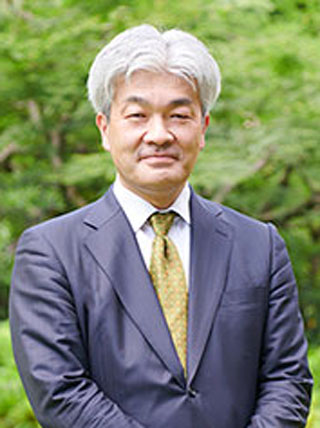
Kazuto SuzukiPanelists
Professor, University of Tokyo
Kazuto Suzuki is Professor of Science and Technology Policy at the Graduate School of Public Policy at the University of Tokyo, Japan, and Director of the Institute of Geoeconomics at International House of Japan. He graduated from the Department of International Relations, Ritsumeikan University, and received Ph.D. from Sussex European Institute, University of Sussex, England. He has worked in the Fondation pour la recherche stratégique in Paris, France as assistant researcher and the Associate Professor at the University of Tsukuba from 2000 to 2008 and served as Professor of International Politics at Hokkaido University until 2020. He served as an expert in the Panel of Experts for Iranian Sanction Committee under the United Nations Security Council from 2013 to July 2015. He currently serves as the President of Japan Association of International Security and Trade. His research focuses on the conjunction of science/technology and international relations; subjects including space policy, non-proliferation, export control and sanctions.
-
Heizo TakenakaModerator
Professor Emeritus, Keio University
Heizo Takenaka is a professor emeritus at Keio University in Japan. And was formerly Minister for Economic and Fiscal Policy etc (2001-2006). In his capacity as an economist and as part of his social activities, he also serves on several advisory boards and committees including: Member of the Policy Council under Kishida Administration; and Outside Director, SBI Holdings Inc. He was named to a member of the Board of Trustees of the World Economic Forum in 2007. Professor Takenaka’s research interest is in economic policy.
-
10:30~11:30
Christopher Ax
Jordan Fisher
Oya Koc
Moderator: Emre Yuasa
#2 Breakout Sessions <Business>
10/14Monday
10:30~11:30
#2 Breakout Sessions <Business>
Global Founders in Japan
All of these panelists are all building their startups in Japan. Discussions will cover the reasons to consider starting a business in Japan as well as common challenges, such access to local and global funding, hiring non-Japanese talent, and overcoming language and cultural differences. Are some things associated with startups in this country unique to Japan? Does the “time machine” model of localizing successful businesses from other countries still work in Japan? What is the role of government? Panelists will also consider what Japan can do better to attract more global talent, and how the Japanese startup ecosystem become more globally connected.
-
Christopher AxPanelists
Founder, Schmatz (Kaiser Kitchen K.K.)
Christopher Ax is a founder of Schmatz, a German beer & gastropub brand. Schmatz currently operates 40 stores in Japan. The first store opened in 2015, after a year of bootstrapping with a food truck. Alongside the stores, Schmatz is growing its FMCG line (bottled and canned beer) through digital channels and retail. Christopher has a background in Venture Capital. Prior to founding Schmatz, he was a manager at German company builder Rocket Internet in Mexico and New York. At the fund, he focused on venture finance, analytics and performance marketing for the e-commerce and fin tech portfolio ventures.
-
Jordan FisherPanelists
Co-Founder and Chairman, Zehitomo Inc. / Venture Partner, Antler Japan
Jordan Fisher is Co-Founder and Chairman of Zehitomo, Japan’s marketplace for local services. From home renovations to karaoke coaches, Zehitomo provides a platform to match with 600+ types of service professionals.
Jordan is also Venture Partner at Antler Japan, supporting and investing in ambitious founders from Day 0.
Prior to founding Zehitomo, Jordan was Vice President at J.P.Morgan in Tokyo, working in Fixed Income Technology and Equities Sales Trading.Born and raised in New York, Jordan holds a B.S. Computer Science from the University of Southern California.Outside of Zehitomo, Jordan is an active mentor to several startups. He is also a loving husband, and a father to two young daughters.
-
Oya KocPanelists
Founder & CEO, Oyraa Inc.
Ms. Oya Koc is the founder and CEO of Oyraa Inc, a startup, providing on-demand remote interpretation to a so-far-underserved ""individuals"" and enabling interpreters to have a global reach to find customers.
Prior to Oyraa Inc, Ms. Koc worked for The Boston Consulting Group (Tokyo office), and was mostly involved in digital transformation and M&A projects.
Ms. Koc holds a master's degree in nano-bio-engineering at The University of Tokyo.
-
Emre YuasaModerator
Partner, GLOBIS Capital Partners
Emre is General Partner at Globis Capital Partners, leading investments in IT startups targeting digital transformation of various industries. His portfolio includes GLM (acquired), Photosynth (TSE:4379), Sensyn Robotics, MFS, New Standard, Global Mobility Service, Shippio, CADDi, Matsuri Technologies, estie, Leaner Technologies, ascend and Facilo.
He teaches at Globis University Graduate School of Management (MBA).
Emre graduated from Harvard Business School (MBA) and Ohio State University.
-
10:30~11:30
Cyber Intelligence and Defence
George Chen
Scott Jarkoff
Rui Matsukawa
Hiroshi Sasaki
Moderator: Mihoko Matsubara
#2 Breakout Sessions <Politics>
10/14Monday
10:30~11:30
#2 Breakout Sessions <Politics>
Cyber Intelligence and Defence
This panel will explore the evolving landscape of cyber threats as well as strategies to counter these threats in the age of artificial intelligence (AI) and in the year of election campaigns. Panelists will discuss how criminals and state-sponsored actors have employed AI, generative AI, and deepfake to launch cyberattacks or influence operations, and how defenders take advantage of these emerging technologies to detect and respond to those AI-enabled attacks. Additionally, the discussion will reflect on current public-private partnerships in Japan and in the world, and cover what kind of legislation and strategies are needed to empower security professionals and disrupt cyberattacks and influence operations.
-
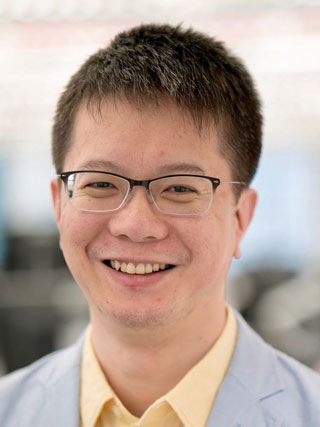
George ChenPanelists
Managing Director & Co-Chair, Digital Practice, The Asia Group
George Chen is a practitioner/scholar with over two decades of expertise across media, technology, and public policy. Currently, George is Managing Director (Head of Hong Kong and Taiwan Offices) and Co-Chair of Digital Practice for The Asia Group, advising many of the world’s most important technology companies on various regulatory issues. Prior to this role, George was a founding member of Meta/Facebook's Asia Pacific public policy team and served as the company’s most senior policy leader for Greater China, Mongolia and Central Asia for over seven years.
Concurrently, George is appointed Senior Fellow at The University of Hong Kong, Visiting Scholar at National Chengchi University (Taiwan), and Yale World Fellow at Yale University. George was awarded the “Medal of Friendship” (2022) by the President of Mongolia, one of the country's highest and most rare honours for foreigners. George is a Board Member of American Chamber of Commerce in Hong Kong.
-
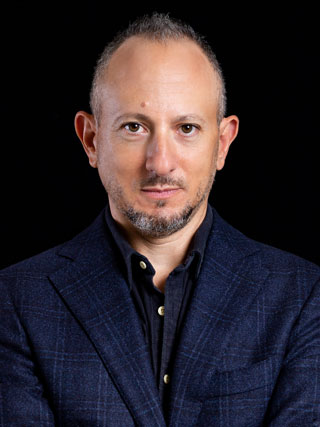
Scott JarkoffPanelists
Co-Founder & CEO, Praeryx
Scott Jarkoff is the Co-Founder & CEO of Praeryx, where he orchestrates the inception of an enigmatic new cyber threat intelligence startup set to uncover insights untouched by conventional frameworks.
Scott's journey took him through key roles at CrowdStrike, McAfee, and 25 years of U.S. government service. At CrowdStrike, Scott was the Director, Intelligence Strategy, for APJ/META. At McAfee, he introduced advanced CTI services to Japan. His government service culminated as Chief of Cyber Security for U.S. Forces Japan.
Scott's creative genius does not stop at cyber security. He is also the visionary Co-Founder and mastermind behind deviantART, the largest & most vibrant online art community the world has ever seen.
His attention is focused entirely on Praeryx, a venture destined to disrupt the very foundation of CTI. In his spare time he loves cycling, sneakers, and movies, as well as spending QT with his bohemian wife and three insane puppies.
-
Rui MatsukawaPanelists
Liberal Democratic Party, Senator of Japan
Ms. Matsukawa had worked at MOFA for 23 years at various posts including in Japan-ASEAN cooperation, Japan-China-Korea cooperation, International law affairs, and women’s empowerment. Her overseas posts include: at the Mission of Japan to the Conference on Disarmament (Geneva), The Deputy-Secretary General of the Information Corporations Service (Seoul). In 2016, she left MOFA and got elected as senator. She served as Parliamentary Secretary of Defense from 2020-21. Member of Foreign policy and defense committee. Deputy DG of International Bureau at LDP. In July 2022, she got elected for the second time.
-
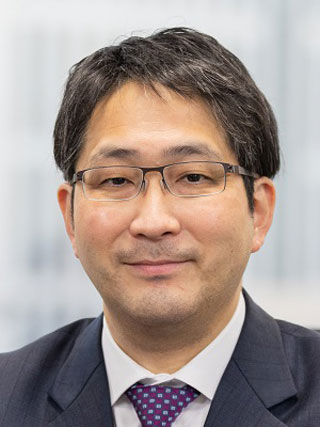
Hiroshi SasakiPanelists
Director, OT business development, Fortinet Japan G.K.
Hiroshi Sasaki is a seasoned expert in industrial cybersecurity with a distinguished career spanning over 10 years. With 14 years of experience as a developer of industrial control system for a domestic manufacturing company, Hiroshi transitioned to cybersecurity industry, leveraging his extensive background to foster a culture of industrial cybersecurity. Hiroshi delivers lectures as an advisor at the Industrial Cybersecurity Center of Excellence (ICSCoE), Information-Technology Promotion Agency (IPA). Hiroshi actively involved in business activities, including public speaking, writing, and proposing solutions both domestically and internationally. Hiroshi published a book on cybersecurity in Japanese about industrial cybersecurity for manufacturing.
Current Positions:
Adviser (Part-time), Industrial Cybersecurity Center of Excellence (ICSCoE), Information-Technology Promotion Agency (IPA) (July 2017 – Present)
Visiting Associate Professor, Nagoya Institute of Technology(May 2022 – Present)
IT Security Officer (Advisor role, Part-time), Ministry of Economy, Trade and Industry (METI) (May 2016 – December 2020, July 2021 – Present)
Director, OT Business Development, Fortinet Japan G.K. (August 2021 – Present)
Cybersecurity Principal, Axelspace Holdings Corporation (June 2023 – Present)
-
Mihoko MatsubaraModerator
Chief Cybersecurity Strategist, NTT Corporation
Mihoko Matsubara is Chief Cybersecurity Strategist, NTT Corporation, Tokyo, being responsible for cybersecurity thought leadership. She worked at the Japanese Ministry of Defense before her MA at the Johns Hopkins School of Advanced International Studies on Fulbright. Prior to joining NTT, She served as Vice President and Public Sector Chief Security Officer for the Asia-Pacific region at Palo Alto Networks.
Mihoko has published a book on cybersecurity for business leaders and another one on cyber war in Ukraine, and both of them won an award. She is Associate Fellow for Cyber at the International Institute for Strategic Studies, London; Adjunct Fellow at the Pacific Forum, Honolulu; and Non-resident Scholar at Sasakawa Peace Foundation USA, Washington DC.
-
10:30~11:30
From Lab to Market: How to Turn Scientific Insights into Business Reality
Jonathan Frankle
Kae Nemoto
Takao Someya
Moderator: Yumiko Murakami
#2 Breakout Sessions <Technology>
10/14Monday
10:30~11:30
#2 Breakout Sessions <Technology>
From Lab to Market: How to Turn Scientific Insights into Business Reality
This panel will explore the journey from scientific discovery to commercial success. Experts will discuss the critical challenges of translating research into market-ready products, including securing funding, navigating regulatory hurdles, and establishing strong industry partnerships. They will highlight the latest developments in technology transfer, the role of intellectual property in protecting innovations, and effective strategies for scaling up production. Additionally, the conversation will cover emerging trends in various sectors, such as AI and quantum computing, and their potential commercial applications. The aim is to provide actionable insights for accelerating the commercialization process and fostering innovation-driven growth.
-
Jonathan FranklePanelists
Chief AI Scientist, Databricks
Jonathan Frankle is Chief AI Scientist at Databricks, where he leads the AI research team toward the goal of making it possible for everyone to customize deep learning to meet their needs (from prompting to creating entire models from scratch). He arrived via Databricks’ $1.3B acquisition of MosaicML, where he was part of the founding team. He recently completed his PhD at MIT, during which he empirically studied deep learning with Prof. Michael Carbin, specifically the properties of sparse networks that allow them to train effectively (his "Lottery Ticket Hypothesis" - ICLR 2019 Best Paper). In addition to his technical work, he is actively involved in policymaking around challenges related to artificial intelligence. He earned his BSE and MSE in computer science at Princeton and has previously spent time at Google Brain and Facebook AI Research as an intern and at Georgetown Law as a technologist and Adjunct Professor of Law.
-
Kae NemotoPanelists
Professor and OCQT Director, Okinawa Institute of Science and Technology
Kae Nemoto is a professor at Okinawa Institute of Science and Technology and the Center Director for OIST Center for Quantum Technologies.
She is also a professor at the National Institute of Informatics (NII) in Tokyo, where she serves as the director of the Global Research Center for Quantum Information Science and the co-director of the Japanese-French Laboratory for Informatics (JFLI).
Her research is focused on applications for quantum computers, quantum machine learning, quantum computer architectures, quantum middleware, quantum networks, quantum internet and complex systems.
She also leads an academic education consortium "Quantum Academy for Science and Technology" to provide high quality lectures and education materials for undergraduate and graduate levels in this field.
She is a Fellow of both the IoP (UK) and the APS (US).
-
Takao SomeyaPanelists
Executive Director and Vice President, The University of Tokyo
Takao Someya is Executive Director and Vice President and Professor at the University of Tokyo. Additionally, he serves as Director General of the Division of University Corporate Relations, with oversight of startup initiatives. He is recognized as an inventor of electronic skins, which was featured in TIME Magazine as one of the best inventions of the year in 2005. He earned his doctorate in engineering from the University of Tokyo and held additional positions as Global Scholar at Princeton University, GlobalFoundaries Visiting Professor at National University of Singapore, and Hans Fisher Senior Fellow at Technical University of Munich. He served as Dean of Graduate School of Engineering at the University of Tokyo, AY2020-2022. He is the 2024 President of the Materials Research Society (MRS) in the US.
-
Yumiko MurakamiModerator
General Partner, MPower Partners
Yumiko Murakami General Partner, MPower Partners Fund L.P. Yumiko is the former head of the OECD Tokyo Centre. Prior to the OECD, she worked for 20 years in the global financial industry, mostly as a Managing Director at Goldman Sachs in New York, London and Tokyo. She is a leading authority on a wide range of economic policy issues such as corporate governance, tax guidelines, diversity, education, trade and innovation. She sits on several Government advisory panels, including Prime Minister Kishida’s panel on “the New Form of Capitalism”. Yumiko has an MBA from Harvard Business School, MA from Stanford University and BA from Sophia University.
-
10:30~11:30
Gendered Innovations to Drive Growth
Ari Horie
Londa Schiebinger
Seiji Yasubuchi
Hidehiko Yuzaki
Moderator: Maiko Todoroki
#2 Breakout Sessions <Society>
10/14Monday
10:30~11:30
#2 Breakout Sessions <Society>
Gendered Innovations to Drive Growth
This panel explores how integrating gender perspectives drives innovation and economic growth in Japan and globally. The discussion addresses issues such as the underrepresentation of women in STEM fields, gender biases in technology and product design, and the need for inclusive policies that foster diversity. Panelists discuss how gender-inclusive teams lead to better problem-solving and market insights, strategies for overcoming cultural and institutional barriers, and the role of government and private sectors in promoting gender equality. Panelists discuss how gender perspectives can be integrated into R&D processes, what best practices exist globally that Japan can adopt, and how businesses can measure the impact of gendered innovations on performance and growth.
-
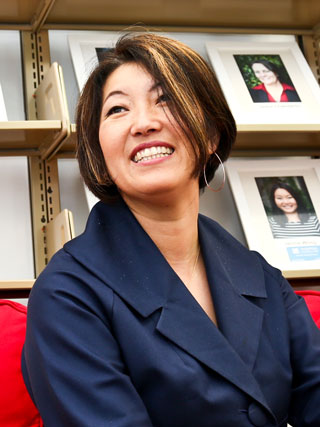
Ari HoriePanelists
Representative Director, Women's Startup Lab Impact Foundation Japan / Founder & CEO, Women’s Startup Lab
Ari Horie is a Silicon Valley innovator, global speaker and thought leader in women’s leadership and entrepreneurship. In recent years, she has also become known for corporate innovation and leadership and speaking about the entrepreneurial mindset for executives.
She is the Founder & CEO of a leading accelerator, Women’s Startup Lab (WSLab), a uniquely designed program for women entrepreneurs with tech startups. Attracting top influencers in the valley, WSLab has been a driving force to change the face of venture and provides strong support to elevate women’s success in the tech world. Her diverse background and rich talent in the valley led to forming a unique entrepreneurial development methodology, Hitology. Its an immersive and residential program, designed to prepare an individual to scale their success and impact as a change agent and to build their entrepreneurial mindset and skills that can set them apart as a transformational leader in this fast paced world.
-
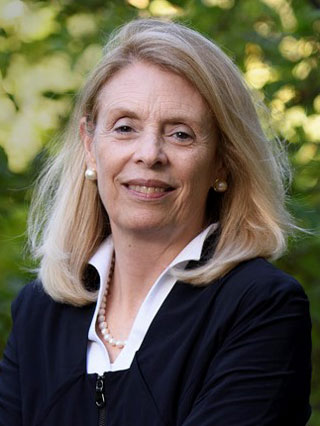
Londa SchiebingerPanelists
John L. Hinds Professor of History of Science / Director, Gendered Innovations in Science, Health & Medicine, Engineering, and Environment, Stanford University
Londa Schiebinger is the John L. Hinds Professor of History of Science at Stanford University, and Founding Director of Gendered Innovations in Science, Health & Medicine, Engineering, and Environment. Schiebinger is a leading international expert on gender in science and technology and has addressed the United Nations, the European Parliament, and the Korean National Assembly on that topic. Schiebinger received her Ph.D. from Harvard University and is an elected member of the American Academy of Arts and Sciences. She is the recipient of numerous prizes and awards, including the prestigious Alexander von Humboldt Research Prize and Guggenheim Fellowship. She is the author of The Mind has no Sex? Women in the Origins of Modern Science (Harvard UP, 1989); Nature’s Body: Gender in the Making of Modern Science (Beacon Press, 1993); Has Feminism Changed Science? (Harvard UP, 1999); Plants and Empire: Colonial Bioprospecting in the Atlantic World (Harvard UP, 2004); The Secret Cures of Slaves: People, Plants, and Medicine in the Eighteenth-Century Atlantic World (Stanford UP, 2017). These books are available in Japanese translation. Among her edited volumes is Agnotology: The Making and Unmaking of Knowledge with Robert N. Proctor (Stanford UP, 2008). Her recent publications include: AI can be Sexist and Racist: It’s Time to Make it Fair, Nature (2018); Sex and Gender Analysis Improves Science and Engineering, Nature (2019); Gendered Innovations 2: How Inclusive Analysis Contributes to Research and Innovation European Commission (2020); A Framework for Sex, Gender, and Diversity Analysis in Research: Funding Agencies Have Ample Room to Improve Their Policies, Science (2022).
-
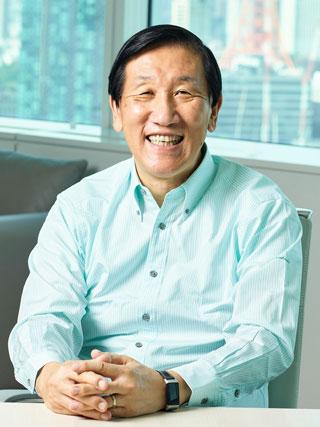
Seiji YasubuchiPanelists
President & CEO, AXA Holdings Japan Co., Ltd
Seiji Yasubuchi assumed the role of Representative Director, President and CEO for both AXA Life Insurance Co., Ltd. and AXA Holdings Japan Co., Ltd. in 2019.
Prior to this, Seiji was President and Country Manager of Visa Worldwide Japan (2017-2019), President & CEO of GE Capital Japan since 2007. He joined GE in 2006 as SVP, GE Commercial Finance Asia.
He was Managing Director at UBS Investment Bank (2001-2006), and Executive Director at Ripplewood Japan (1999-2001). Seiji started his career at Mitsubishi Corporation in 1979.
He is also a member of the Operating Committee of the Japan Association of Corporate Executives, Member of Board of Trustees, Shizenkan University, Director, Mogi-Honke Foundation for Education & Culture, Director, Dialogue Japan Society, Member of Board of Councilors, KIBOW, and one of 100 Founders of UWC ISAK Japan.
Seiji holds a B.A. in Economics from Waseda University and an MBA from Harvard Business School.
-
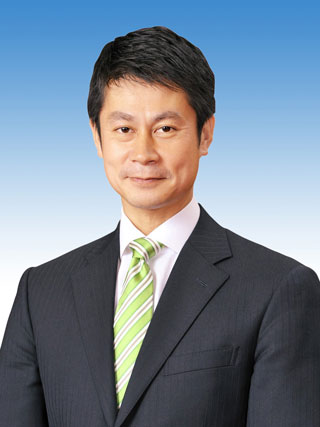
Hidehiko YuzakiPanelists
Governor, Hiroshima Prefecture
Born in Hiroshima Prefecture in 1965, graduated from The University of Tokyo in 1990. MBA, Stanford University 1995. At the Ministry of International Trade and Industry (presently Ministry of Economy, Trade and Industry) in 1990, he engaged in work on automobiles, trade with the US, energy, ventures, etc., then was seconded to a venture capital firm in Silicon Valley.Resigned from METI in 2000.
Then, founded ACCA Networks as Founder and Representative Director, engaging in the diffusion of low cost/ fixed cost broadband access aimed at individuals and corporate enterprises, contributing to the infrastructure of Japan’s internet industry.
The company became listed on the Tokyo Stock Exchange in 2005, and he resigned in 2008.
Won his first election in 2009, and is now in his fourth term as Governor of Hiroshima Prefecture, which is strongry propeling AI Sandbox project, Unicorn10 project, and human capital management.
The first governer in Japan to take paternity leave.
-
Maiko TodorokiModerator
President and CEO, Poppins Corporation
Maiko Todoroki is the President and CEO of Poppins Corporation. The company was founded 36 years ago by her mother, Noriko Nakamura, and their mission has always been to support working women by providing quality childcare and elderly care service. Poppins currently operates over 330 nursery schools across Japan and also provides in-home nanny and babysitter, elderly care service, and infertility prevention initiatives. Poppins’s IPO to the first section of Tokyo Stock Exchange (now TSE Prime Market) in Dec 2020 was presented as the first SDGs-IPO in Japan. She is a director of the All Japan Childcare Services Association. From 2021, serves as a coordinator at the Japan Association of Corporate Executives, and from 2023, serves as a Vice-Chair of its Regulatory and Competition Policy Committee. She appointed as the director of Education Beyond. She is a mother of 14 years-old boy and 12 years-old girl.
-
11:45~12:45
Leadership in the Technovate & AI Era:
What Should Leaders Do To Win?
Katrina Lake
Miki Tsusaka
Bob Willen
Moderator: Satoshi Hirose
#3 Breakout Sessions <Business>
10/14Monday
11:45~12:45
#3 Breakout Sessions <Business>
Leadership in the Technovate & AI Era:
What Should Leaders Do To Win?
This panel will explore the evolving landscape where technology and innovation ("Technovate") intersect with AI, outlining crucial strategies for leadership to thrive. Panelists, who are leaders from world-renowned companies, will delve into the impact of AI on decision-making, the importance of fostering a culture of continuous learning, and the need for ethical considerations in AI deployment. The panel will also highlight emerging trends such as AI-powered business intelligence, automation's role in transforming industries, and the significance of digital transformation. Attendees will gain insights into how leaders can stay ahead of the curve by embracing these technological advancements and integrating them to drive growth and maintain a competitive edge.
-
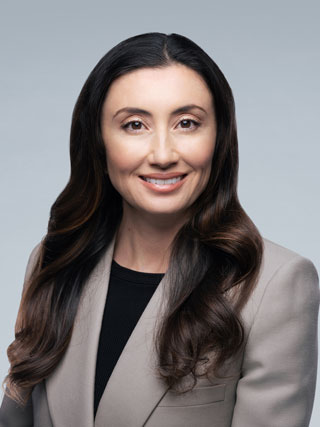
Katrina LakePanelists
Founder and Chairperson, Stitch Fix, Inc.
Katrina Masumi Lake
Katrina Lake is the Founder and current Chairperson of Stitch Fix. Katrina founded Stitch Fix (NASDAQ: SFIX) in 2011 and served as Chief Executive Officer from its inception until August 2021. During Katrina’s tenure as CEO, the company grew from $0 to over $2B in revenue, leveraging less than $50M in venture capital. When she took the company public in 2017, she was the youngest female Founder CEO to do so, at 34 years old. The company was valued at over $6B when she transitioned to chairperson in 2021. Katrina serves on the board of Recruit Holdings, the Tokyo-based technology company, since 2021. Katrina is also on the board of Glossier, beloved skincare and makeup brand based in New York. Katrina previously served on the board and on the audit committee of GrubHub from 2015 to 2021 when the company was acquired by JustEat. Prior to founding Stitch Fix, Katrina managed the blogger platform at Polyvore, a digital community in the fashion space, which was acquired by Yahoo in 2015. Katrina holds a B.A. in Economics from Stanford University and an M.B.A. from Harvard University.
-
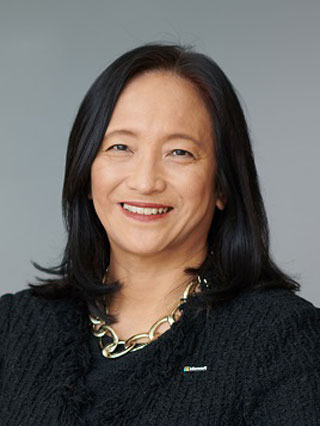
Miki TsusakaPanelists
President, Microsoft Japan
Miki Tsusaka is the president of Microsoft Japan. Appointed in February 2023, she leads Microsoft’s engagement with customers, and business partners and is responsible for all product, solution, service and support offerings in Japan.
Under her leadership, she focuses on enabling the acceleration of Japan's digital transformation through Microsoft’s global and local expertise of our leading productivity and platform solutions. She will also build and reinforce Microsoft’s reputation in Japan as a trusted partner for individuals, organizations and governments.
Prior to joining Microsoft Japan, she was a Senior Partner and Managing Director at Boston Consulting Group (BCG), where she worked for clients in a wide range of industries in Japan and overseas, helping them develop and implement growth strategies, improve profitability, redesign organization and promote digital transformation. She established strategic consulting groups specializing in marketing, sales and pricing strategy development and led the expansion of BCG's service areas. As for BCG’s operation, she has been a member of the Executive Committee for two three-year terms and served as Chief Marketing Officer (CMO) as well.
She is a member of Japan Association for Corporate Executives (KEIZAI DOYUKAI) and Japan Business Federation (KEIDANREN).
She holds a Bachelor of AB, Government and East Asian Studies from the Harvard University, and an MBA degree from the Harvard Business School.
-
Bob WillenPanelists
Managing Partner and Chairman, Kearney
Bob is Kearney’s tenth managing partner. He joined the firm in 1995 and led Kearney’s global aerospace and defense, automotive, transportation, and infrastructure practices with a focus on organizational transformations for large commercial and government clients globally. He also served as chair for Kearney’s Middle East and Africa region for nine years.
In addition to sustaining growth in the MEA region, Bob led the firm’s strategic growth initiative and spearheaded the acquisition of top Middle East transformation specialist MSE to better support Kearney's clients in end-to-end transformation initiatives.
Bob’s career has spanned living and working in the US, Europe, and the Middle East. He holds an MBA from the University of Virginia Darden School of Business, a master's in aerospace engineering from The University of Texas at Austin, and a BA in physics from the University of Virginia.
-
Satoshi HiroseModerator
Dean of International MBA Program, GLOBIS University
Mr. Satoshi Hirose joined Globis University in 2016. His previous capacity was Co-COO/ SVP of BellSystem24, the largest Call Center outsourcing company in Japan. He also served as Executive Officer in charge of Corporate Planning, Operations and Technology at AIG/ AIU Insurance company.
-
11:45~12:45
Preparing the World after the U.S. Election
Glen S. Fukushima
Takako Hikotani
Jagannath Panda
Joshua Walker
Moderator: Ken Jimbo
#3 Breakout Sessions <Politics>
10/14Monday
11:45~12:45
#3 Breakout Sessions <Politics>
Preparing the World after the U.S. Election
This panel will delve into the global economic and geopolitical impacts of the U.S. election results, touching on shifts in trade policies, international relations, and regulatory environments. Discussions will explore new trends such as the rise of green energy initiatives, tech industry regulations, and the future of global supply chains amidst growing nationalism. Business leaders will gain insights on navigating post-election market volatility, adapting to changes in U.S. foreign policy, and leveraging opportunities in emerging markets. The panel will emphasize the importance of strategic agility and innovation in responding to potential shifts in economic policies and global alliances.
-
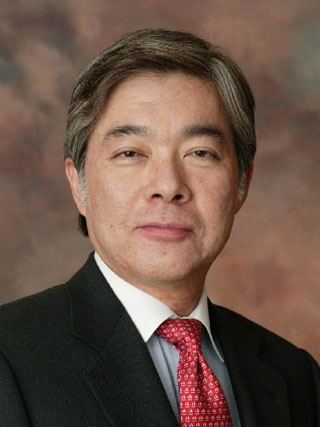
Glen S. FukushimaPanelists
Senior Fellow, Center for American Progress
Glen S. Fukushima is a Senior Fellow at the Center for American Progress, a Washington, D.C. think tank. In October 2021, President Joseph R. Biden nominated him to be Vice Chairman of the Securities Investor Protection Corporation, and the U.S. Senate confirmed him in April 2022. After practicing law, he served as Director for Japanese Affairs (1985-88) and Deputy Assistant United States Trade Representative for Japan and China (1988-90) at the Office of the United States Trade Representative (USTR), Executive Office of the President. From 1990 to 2012, he was based in Tokyo as a senior business executive with one European and four American multinationals and was elected to two terms as President of the American Chamber of Commerce in Japan. He is a member of the Council on Foreign Relations and of the Asia Society’s Global Council. A third-generation Japanese American raised in California, he was educated at Deep Springs College, Stanford University, Harvard University, Keio University, and the University of Tokyo, where he was a Fulbright Fellow.
-
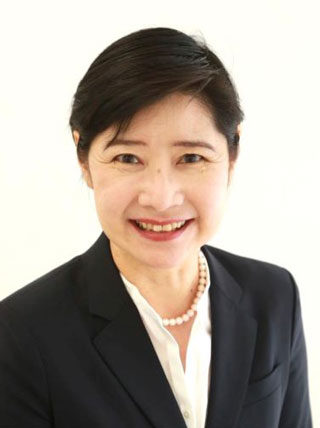
Takako HikotaniPanelists
Professor, Gakushuin University
Takako Hikotani is a Professor at Gakushuin University International Centre and Senior Fellow at the Asia Society Policy Institute in Tokyo. She was Visiting Professor at the School of Global Policy and Strategy, University of California at San Diego (Spring 2022 and Winter 2023), and Gerald L. Curtis Associate Professor of Modern Japanese Politics and Foreign Policy at Columbia University from 2016 to 2021. Before teaching in the United States, she taught at the National Defense Academy of Japan for 18 years. Her area of expertise is Japanese domestic politics, foreign policy, and comparative civil-military relations. She was a Visiting Professional Specialist at Princeton University (2010-2011) and a Fellow of the US-Japan Leadership Program, US-Japan Foundation (2000- ). She received her BA from Keio University, MAs from Keio University and Stanford University, and Ph.D. in Political Science from Columbia University, where she was a President's Fellow.
-
Jagannath PandaPanelists
Head, Stockholm Center for South Asian and Indo-Pacific Affairs (SCSA-IPA) and Executive Editor, Institute for Security and Development Policy
Dr. Jagannath Panda is the Head of the Stockholm Center for South Asian and Indo-Pacific Affairs (SCSA-IPA) at the Institute for Security and Development Policy (ISDP), Sweden. He is also a Professor at the Department of Regional and Global Studies at the University of Warsaw; and a Senior Fellow at The Hague Center for Strategic Studies in the Netherlands. As a senior expert on China, East Asia, and Indo-Pacific affairs, Prof. Panda has testified to the US-China Economic and Security Review Commission at the US Congress on ‘China and South Asia’. He is the Series Editor for Routledge Studies on Think Asia.
-
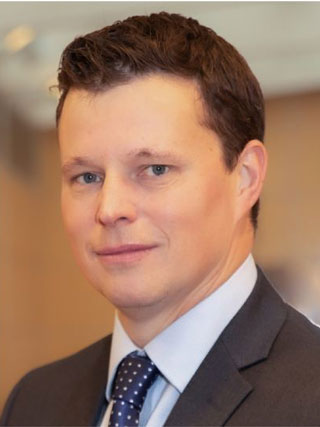
Joshua WalkerPanelists
President & CEO, Japan Society
Joshua W. Walker, PhD became President & CEO of Japan Society in December 2019. Previously, he worked at Eurasia Group, the world’s leading political risk analysis firm, where he served as global head of strategic initiatives and Japan in the Office of the President. Prior to that, he was CEO and president of the USA Pavilion of the 2017 World Expo in Astana, Kazakhstan; founding dean of the APCO Institute; and senior vice president of global programs at APCO Worldwide, a leading global strategic communications firm based in Washington, D.C. Before joining the private sector, he worked in numerous roles at various U.S. government agencies, including the State Department and the Defense Department. He is Senior Fellow at the Center for the Study of the Presidency and Congress, and professor of Leadership and the American presidency at George Mason University and the Reagan Foundation. He was also Transatlantic Fellow at the German Marshall Fund of the United States, and co-founded the Yale Journal of International Affairs. He earned a bachelor’s degree from the University of Richmond, a master’s degree from Yale University, and a doctorate from Princeton University. Dr. Walker grew up in Japan where his parents still serve as missionaries, came to the United States when he was 18, and is bicultural and bilingual.
-
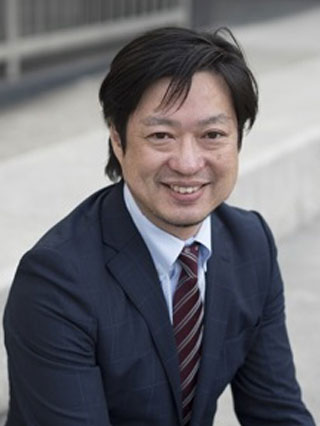
Ken JimboModerator
Managing Director, International House of Japan
Dr. Ken Jimbo is a Professor of International Relations at Keio University and a Managing Director of Programs at the International House of Japan (IHJ/I-House). He is concurrently an Adjunct Senior Research Fellow at the Canon Institute for Global Studies (CIGS). He served as a Special Advisor to the Japan Ministry of Defense in 2020 and Senior Advisor to the National Security Secretariat from 2018 to 2020.
His main research interests lie in International Security, Japan-U.S. Security Relations, and Japan’s Foreign and Defense Policy. He has served as a policy advisor for various Japanese governmental commissions and research groups, including the Ministry of Defense, the Ministry of Foreign Affairs, and the Ministry of Internal Affairs and Communications. His policy writings have been published by the RAND Corporation, NBR, the Stimson Center, the Pacific Forum CSIS, Japan Times, Nikkei, Yomiuri, Asahi, and Sankei Shimbun.
-
11:45~12:45
Tomoe Hamaguchiya
Miles Pennington
Jay Pillai
Moderator: Kinya Tagawa
#3 Breakout Sessions <Technology>
10/14Monday
11:45~12:45
#3 Breakout Sessions <Technology>
Tech & Design
AI is beginning to have a profound impact on design practice. This session will feature pioneering leaders from industry, education and practice to discuss design methodology and thought changes. We will hear about new trends such as AI-driven design tools, virtual and augmented reality applications, and challenges like balancing functionality with aesthetics and ensuring accessibility. Business leaders will gain insights into leveraging these trends to enhance creativity, improve product development cycles, and drive customer engagement. Additionally, the discussion will emphasize the necessity of cross-disciplinary collaboration between technologists and designers to foster innovation and maintain competitive advantage in the market.
-
Tomoe HamaguchiyaPanelists
Japan Representative Director, Kontrapunkt
For more than 15 years, she has been in charge of brand design and communication for a major international manufacturer.
At Kontrapunkt, she develops brands and strategies for domestic and international clients by combining the unique insight and conceptualization skills + communication skills she has cultivated there. She specializes in developing skillful communication plans by incorporating client and consumer insights into concepts.
-
Miles PenningtonPanelists
Professor of Design Led Innovation, University of Tokyo
Miles Pennington is professor of Design Led Innovation at The University of Tokyo, where he is Director of the unique international and multidisciplinary DLX Design Lab. The lab collaborates with researchers at the university to create value through design. Previous to the University of Tokyo he was at the Royal College of Art in London and was Head of Programme of the Innovation Design Engineering (IDE) joint Masters programme with Imperial College - he is an alumnus of the IDE programme and graduated in 1992. He was also Founder and Head of the pioneering international exchange programme Global Innovation Design (GID). In the past, in parallel to his academic work he was a Director of the innovation consultancy Design Stream and more recently Director in the London office of the international design agency Takram. He moved to Japan in September 2017 to join The University of Tokyo.
-

Jay PillaiPanelists
Director Of AI, Figma
Jay Pillai is an accomplished AI professional with extensive experience in generative AI and machine learning. Currently serving as the Director of AI at Figma, Jay Pillai enhances product offerings through AI integration. Previous roles include Engineering Leader in Generative AI at Amazon, where Jay Pillai developed a conversational shopping assistant, and a similar position at Apple, overseeing multiple teams in building machine learning models. Notable contributions were made at Google DeepMind and Google Research, focusing on transformative projects in retail and deep neural networks for Google products. Jay Pillai's academic background includes a Ph.D. in Machine Learning from the University of Maryland, complemented by multiple degrees in engineering and computer science from prestigious institutions. As an AI Coach, Jay Pillai also supports fresh graduates and industry professionals in career development and enhancing their technical skills.
-
Kinya TagawaModerator
CEO, Takram Japan Inc.
Kinya is an award-winning design engineer experienced in various products, including hardware, software and interactive art. He holds a BEng from the University of Tokyo and an MA from the Royal College of Art in the UK. His work was selected as a permanent collection at the Museum of Modern Art in New York. He was assigned as a visiting professor at the Royal College of Art from 2015 to 2018. With his contribution to the RCA, he was awarded an Honorary Fellow RCA, in 2018. Kinya is also appointed as a member of several design-related committees of the Japanese Government.
-
11:45~12:45
Energy Transition Ensuring Security and Combating Climate Change
Helle Kristoffersen
Jean-Eric Paquet
Sumiko Takeuchi
Moderator: Tatsuya Terazawa
#3 Breakout Sessions <Society>
10/14Monday
11:45~12:45
#3 Breakout Sessions <Society>
Energy Transition Ensuring Security and Combating Climate Change
With the record-breaking hot summer throughout the world, climate change is now widely recognized. But are we on track to achieve carbon neutrality? How wide is the gap and what should we be doing? At the same time, energy security is becoming a major issue. The rise of energy costs is becoming a global political issue. Loss of competitiveness is also becoming a growing concern. How can we combat climate change while enhancing energy security, controlling cost increases and ensuring competitiveness?
-
Helle KristoffersenPanelists
Member of the Executive Committee, President Asia, TotalEnergies
Helle Kristoffersen has been a member of TotalEnergies’ Executive Committee since 2019. She is today President Asia, based in Tokyo. She was President Strategy & Sustainability from 2021 to 2024 and President Strategy & Innovation from 2019 to 2021. Before that, she took part in creating TotalEnergies’ low carbon arm Gas Renewables & Power as SVP Strategy & Corporate affairs from 2016 to 2019. Before joining TotalEnergies in 2011, she held a number of management positions in the ITC sector at Alcatel from 1994 to 2010. She is a graduate of the French ENS Ulm and ENSAE and holds a master from Université Paris Sorbonne. She is an alumna of the French Institute for Higher National Defense Studies and a Knight of the French Legion of Honor.
-

Jean-Eric PaquetPanelists
Ambassador of the European Union to Japan, Delegation of the European Union to Japan
Jean-Eric Paquet is the Ambassador of the European Union (EU) to Japan since autumn 2022.
He held various mandates at the European Commission, where he contributed in shaping EU policy in various fields. As the Director-General for Research and Innovation from 2018 and 2022, he set up the European Innovation Council and promoted a whole-of-government approach for R&I, notably via the creation of several EU Missions to solve major ecological, societal and economical challenges.
He gained considerable experience at international level as Director for the Western Balkans in the Directorate-General for European Neighbourhood and Enlargement Negotiations and as EU Ambassador to the Islamic Republic of Mauritania from 2004 to 2007.
From 2015 to 2018, he was Deputy Secretary-General of the European Commission, in charge of Better Regulation and Policy Coordination, covering all policy areas related to the EU Green Deal.
-
Sumiko TakeuchiPanelists
Senior Fellow, International Environment and Economy Institute
She received her PhD in March 2022 from the University of Tokyo's Graduate School of Engineering. She works for several thinktanks and universities and served on government committees including the GX (Green Transformation) Implementation Council chaired by Prime Minister Kishida.
She founded U3 Innovations LLP in October 2018 and continues to pursue initiatives as President to connect a broad range of industries and companies to ensure that Japan has an abundant supply of sustainable energy by 2050.
-
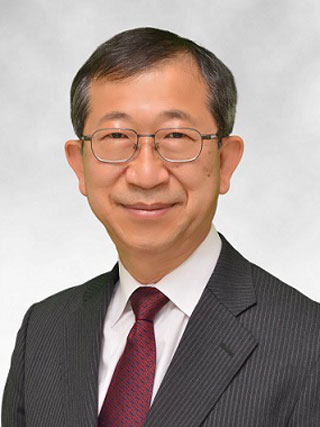
Tatsuya TerazawaModerator
Chairman and CEO, The Institute of Energy Economics, Japan
Mr. Terazawa was Vice Minister for International Affairs at the Ministry of Economy, Trade and Industry (METI) until July 2019. He led METI’s international policy operations, including the coordination to produce the joint statements for the G20 Osaka Summit. Mr. Terazawa also supported PM Shinzo ABE in numerous meetings with other leaders.
He previously served as Director-General of the Commerce and Information Policy Bureau, where he oversaw METI policy related to the information industry, including information technology (IT) and cyber security.
Prior to this, He served as Director-General of the Trade and Economic Cooperation Bureau, where he spearheaded initiatives to promote high-quality infrastructure exports, foreign direct investment, and recruitment of highly-skilled foreign professionals. Previously, he also served as the executive secretary to the Prime Minister from September 2011 to December 2012.
In his career, he played a key role in the design of a number of growth strategies including the first growth strategy under the DPJ Government as well as the first growth strategy under the second Abe Administration.
Other career highlights include developing policy packages following the global financial crisis and the Great East Japan Earthquake. He also introduced the first stock option in Japan as well as the tax incentives for angel investment for startups.
Sushi, Sukiyaki Beef and Vegetarian Bentos
OFF THE RECORD
10/14Monday
12:55~13:50
Networking Lunch
Sushi, Sukiyaki Beef and Vegetarian Bentos
OFF THE RECORD
Enjoy a bento—sushi, steak, or vegan—and use this time to get to know other people in the G1 Global Community!
-
14:00~15:00
Cool Japan Rebooted: Japan’s Soft Power & Its Creative Economy
Tony Elison
Harry Tanaka
Sakiko Yamada
Moderator: Tak Umezawa
#4 Breakout Sessions <Business>
10/14Monday
14:00~15:00
#4 Breakout Sessions <Business>
Cool Japan Rebooted: Japan’s Soft Power & Its Creative Economy
The Japanese government recently set a target of 50 trillion yen in overseas revenues in the Cool Japan-related industries by 2033. Achieving this would mean that Japan will be a culture-based economic superpower. This panel will review the increasing presence of Japanese culture in the global market, from anime and music to food and tourism. The panelists will also discuss the economic potential of Japan's soft power and the key issues that Japanese creative industries need to address to reap this opportunity.
-
Tony ElisonPanelists
Managing Director, Spotify Japan
Tony Elison is the Managing Director at Spotify Japan since February of 2021. His career spans over 30 years in digital media, entertainment, and music, in a variety of strategy, business development, and general management roles based in New York, Seattle, and Tokyo. Before Spotify, he built his career journey at several world-famous companies such as MTV, Nintendo, YouTube, and The Walt Disney Company. Today, Spotify is driving growth in Japan's evolving audio streaming market and leads the world with 626M monthly listeners and 246M paying subscribers (as of June 2024).
-
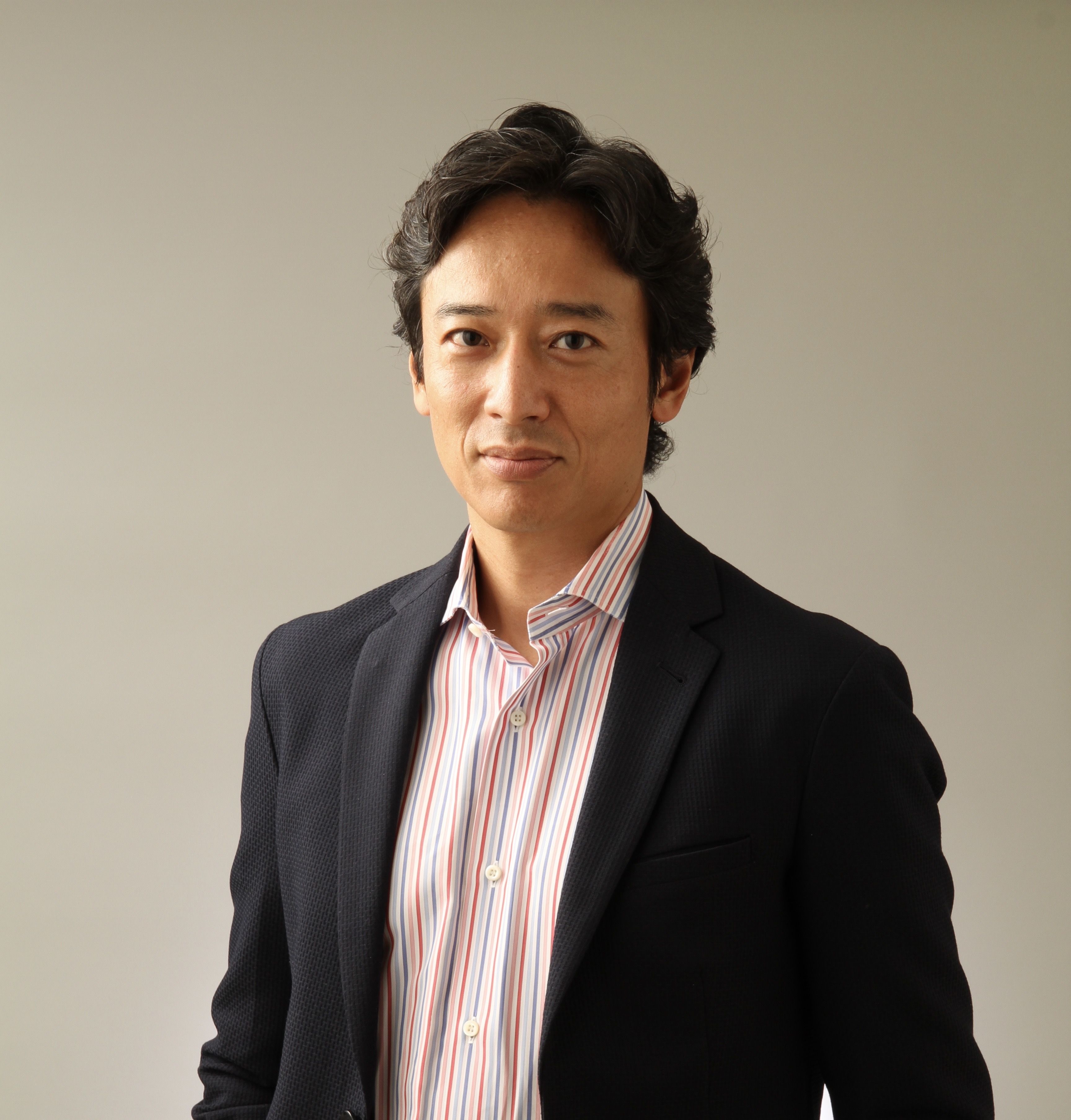
Harry TanakaPanelists
CEO / Co-Founder, Studio Muso Inc.
Harry Tanaka has over twenty-five years of experience in entertainment and media as business management and legal in Japan, Korea and the United States.
He currently runs Aerial Group, a group of companies that focus on cross-border projects in entertainment. “Studio Muso” develops and produces a slate of movie/series projects based on Japanese/Asian IPs and also provides Hollywood quality production service in Japan. Advisory firms provide business/legal strategic and practical supports, while “appare” plans and executes overseas expansion of talent and IPs from Japan with special focus on stage plays and location-based entertainment.
He was General Manager of Studio Motion Pictures and Media Distribution for the Walt Disney Company Japan as the top local corporate executive for seventeen years and subsequently sat on the board of Studio Ghibli. He began his career at Disney as legal counsel joining from Nishimura & Asahi. Admitted to practice in Japan and New York State.
-

Sakiko YamadaPanelists
CEO, FOOD LOSS BANK / CEO, Splendent Media / CCO, Sports Doctors Network
Sakiko Yamada has rewarded a decoration by His Majesty the King Felipe VI of the Kingdom of Spain: Commander of the Order of Isabel La Católica.
International Academy of Gastronomy Japan-President
FOOD LOSS BANK, Inc. -CEO President
Splendent Media,LLC-President
Sports Doctors Network -COO/Head of Asia-Pacific
The Asia’s 50 Best Restaurants – Official Ambassador
-Cabinet Office’s Cool Japan producer and many other government engagements -SDGs Advisor for Saga Prefecture
-Committee member of Tokyo Metropolitan Government-Committee member of Gifu Prefecture treasure judge : appointed by Gifu Governor -Guest
Senior Strategic Advisor for City “CHANGE” (SDG5) of the City of Los Angeles
Awards/Distinctions
-“Sustainable Award by JAPAN TIMES
-“Woman of Influence” Award by LVMH Veuve Clicquot
-“Game Change Maker” by Esquire Magazine
-Commandarie de Bordeaux
-Distinction Ambassador of the Principality of Monaco
Featured at Masterclass by UN-WFF
Her film “Wilde Salomé,” starring and directed by Al Pacino has won the “Jaeger LeCoultre Glory to the Filmmaker Award” at the Venice International Film Festival.
Producer of “Attack on Titan” with Heyday Films, contracted with Warner Bros Entertainment and currently in production.
-
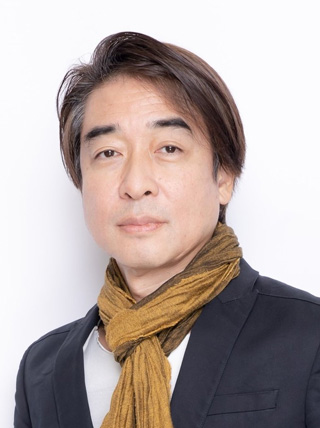
Tak UmezawaModerator
Japan Chairman and Senior Partner, A.T. Kearney, Chairperson, CIC Japan
As a senior partner with KEARNEY, a global management consultancy, Umezawa has served leading corporations in Japan and the US for more than 25 years. Areas of his expertise include strategy, innovation, urban development, and organization.
At Cambridge Innovation Center (CIC), he has led the efforts to launch and develop CIC Tokyo, Japan's largest innovation center. CIC is the world’s leading operator of shared office/lab facilities for startups, operating innovation centers in 8 cities worldwide. CIC Tokyo, opened in Oct. 2020, is a host for 280 companies and several innovation clusters, including healthcare, environment and energy, and smart city.
As an outside director, Umezawa serves the board of forStartups, Inc., the market leading talent agency for Japanese startups. Umezawa also sits on government committees on innovation and intellectual property strategy, tourism, and creative industry development. He holds a bachelor of law from the University of Tokyo and an MBA from MIT Sloan School of Management.
-
14:00~15:00
Japan's Global Economic Priorities and Strategy: New Leaders, New Opportunities
Kirby Daley
Noah Sneider
Keiko Tashiro
Moderator: Jesper Koll
#4 Breakout Sessions <Politics>
10/14Monday
14:00~15:00
#4 Breakout Sessions <Politics>
Japan's Global Economic Priorities and Strategy: New Leaders, New Opportunities
The panel will explore Japan's economic strategies within the global context, focusing on the interplay between domestic policies and international economic trends. Discussions will cover the Bank of Japan's monetary policies, the effects of globalization on trade, and demographic challenges impacting economic stability. Experts will highlight emerging global trends such as digital currencies, technological innovation, and their relevance to Japan's economy. Business leaders will learn how international market dynamics and policy shifts influence Japan's economic environment, how the new LDP leadership team prioritizes decision making, and how to best design strategies for navigating these global and domestic changes effectively.
-
Kirby DaleyPanelists
STAT Asia Consulting
Kirby Daley consults for a family office/foundation with a particular focus on Asia. After first moving to Japan in the 1990s, his prior experience includes 10 years at the Societe Generale Group (Fimat/Newedge), where he was Senior Strategist and worked in both Tokyo and Hong Kong. Subsequent to this, Mr. Daley also served as Co-CIO/Global Strategist for a family office/foundation, overseeing macro strategy, hedge fund allocations and portfolio hedging. In these and other roles throughout his career, Japan has remained a central focus of Mr. Daley's work, whether based in Asia, New York or the Cayman Islands. Mr. Daley holds a B.A. in Political Science (Economics Emphasis) from the University of Minnesota.
-
Noah SneiderPanelists
Tokyo Bureau Chief, The Economist Newspaper Limited
Noah Sneider is The Economist’s Tokyo Bureau Chief, overseeing the newspaper's coverage of Japanese politics, business, society and culture. Prior to this he covered Russia and the former Soviet Union as Moscow Correspondent, including events ranging from the annexation of Crimea and the war in eastern Ukraine to climate change in the Russian Arctic. Before joining The Economist, he reported for a range of publications, including The New York Times and The New Republic. His writing has also appeared in Harper’s, The Atlantic, and Slate, among others. He was the recipient of a MacDowell Fellowship in 2019. He is a member of the third generation in his family to live and work in Japan.
-
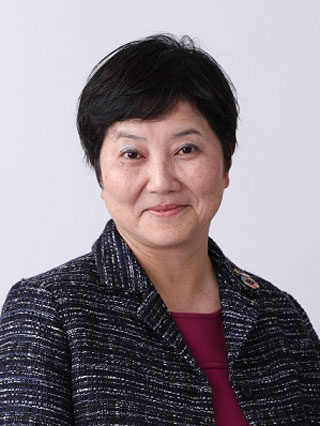
Keiko TashiroPanelists
Member of the Board, Deputy President, Daiwa Securities Group Inc.
Ms. Tashiro began her career with the Daiwa Securities Group in 1986, following her graduation from Waseda University with a BA in Political Science. She received an MBA from Stanford University in 1991. She has held various positions at Daiwa, including overseas assignments in Singapore, London, and New York. In Japan, in addition to her role as Head of Investor Relations (1999–2005), she spent six years in the retail division of the Group. After returning from the US, she was appointed of Head of Overseas Operations in 2016 and Deputy President in 2019. From 2020 to 2024, she led various sectors as Deputy President, including Overseas Operations, SDGs, Sustainability, and Think Tank initiatives. Currently, she continues to serve as Deputy President, overseeing Sustainability, Financial Literacy and Education, Securities Asset Management, and Think Tank functions.
She also serves amongst other roles as Vice Chairman at the Japan Association of Corporate Executive and Trustee of the IFRS foundation.
-
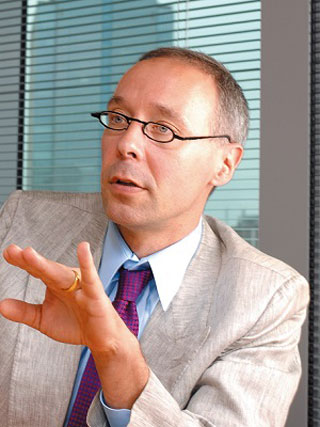
Jesper KollModerator
Expert Director, Monex Group
Jesper Koll has been researching and investing in Japan since becoming a resident in 1986. Over the past two decades, Jesper has been consistently recognized as one of the top Japan strategists/economists, having worked as Chief Strategist and Head of Research for U.S. investment banks J.P. Morgan and Merrill Lynch. He currently serves as Expert Director for the Monex Group and the Japan Catalyst Fund (Japan’s 1st retail investor based corporate engagement/activist fund). His analysis and insights have earned him a position on several Japanese government and corporate advisory committees, including Tokyo Governor Yuriko Koike’s Advisory Board. In 2022, he was appointed Global Ambassador for Tokyo’s Financial Center initiative. Jesper serves as Board Director of OIST, the Okinawa Institute for Science and Technology and is a Founder and Board Director of the Asia Society Japan and heads their Policy Committee. He is one of the few non-Japanese members of the Keizai Doyukai, the Japan Association of Corporate Executives; and serves on the board of several Japan-based start-ups. He has written three books in Japanese and, in 2021, created the acclaimed video/pod-cast series “Japan - Capitalism that works”.
Jesper is an economist, angel-investor, patron; and yes, a Japan Optimist.
-
14:00~15:00
Creating Value with AI: Its Path to Adoption in Business and Daily Life
Shane Gu
Cory Ondrejka
Moderator: Richard B. Dasher
#4 Breakout Sessions <Technology>
10/14Monday
14:00~15:00
#4 Breakout Sessions <Technology>
Creating Value with AI: Its Path to Adoption in Business and Daily Life
Like assembly-line manufacturing, which—as a new way of using machines—marked the advent of a Second Industrial Revolution in the late 19th Century, Artificial Intelligence is having major impact during the current Digital Industrial Revolution as a major new tool for capturing value from digital data. Value creation with AI may come from analysis (e.g. big data analytics) or from automation (e.g. intelligent robotics or self-driving cars). This panel examines the ways in which AI is being used across industries and in daily life to create value. We also discuss the dynamics that will impact its path of adoption from now on, including challenges of business models and user interface and concerns about privacy and regulatory risks, to name just a few.
-
Shane GuPanelists
Research Scientist & Manager, Google DeepMind
Shixiang Shane Gu is a Research Scientist and Manager at Google DeepMind, leading the Multilinguality Post-Training team for Gemini. He previously worked on ChatGPT at OpenAI and as a Research Scientist at Google Brain. Shane has made significant contributions to generative modeling, reinforcement learning, robotics, and language modeling. He holds a PhD in Machine Learning from Cambridge, supervised by Richard E. Turner, Zoubin Ghahramani, and Bernhard Schoelkopf, and a B.ASc. from the University of Toronto, advised by Geoffrey Hinton. Shane has also held visiting positions at Stanford and the University of Tokyo. Beyond his research, he angel invests and advises several AI startups across the US and Japan, including Pika Labs and MultiOn. Born in Japan to Chinese parents, Shane is a Canadian citizen fluent in three languages.
-
Cory OndrejkaPanelists
CTO, SmartNews, Inc.
Cory Ondrejka is the CTO for SmartNews, where he is responsible for delivering quality news to millions of people in Japan and the United States. He was previously VP of Product Management and Technical Advisor to the CEO at Google, where he led the Core Experience team, responsible for improving the product experience across all of Google’s products. His teams delivered an entirely new user experience for Google products in Material You, multiple cutting edge Generative AI experiences, and transformed foundational technology depended on by billions of people. Prior to Google, Cory led the mobile transition at Meta as VP Mobile, was the co-creator and founding-CTO of Second Life, and shipped multiple video games. Cory Ondrejka is a Senior Fellow at the Burnes Center for Social Change at Northeastern University and a graduate of the United States Naval Academy and former Naval Officer.
-

Richard B. DasherModerator
Director, US-Asia Technology Management Center, Stanford University
Dr. Richard Dasher has been Director of the US-Asia Technology Management Center and Adjunct Faculty at Stanford University since 1994. His research focuses on the impact of new technologies on industry value chains, open innovation management, and regional innovation ecosystems in different countries. He concurrently served as Executive Director of Stanford’s Center for Integrated Systems (1998 - 2015) and as an outside Board Director and member of the Management Council of Tohoku University (2004 - 2010). Dr Dasher is also a Founding Partner of Global Hands-On Venture Capital (GHOVC), and he advises business accelerators, startup companies, and think-tanks in the U.S., Canada, and several Asian countries. He is on the evaluation and review committees of several major science and technology funding programs, such as the WPI Program of MEXT/JSPS. He received the Japanese Foreign Minister’s Commendation in 2023 for long-term promotion of economic relations between Japan and the U.S.A.
-
14:00~15:00
Special Dialogue with CEO of Hoshino Resorts: It’s Strategy in Japan and Plans for Global Expansion
Yoshiharu Hoshino
Moderator: Terrie Lloyd
#4 Breakout Sessions <Society>
10/14Monday
14:00~15:00
#4 Breakout Sessions <Society>
Special Dialogue with CEO of Hoshino Resorts: It’s Strategy in Japan and Plans for Global Expansion
This panel will delve into the future agenda of the Japanese tourism industry, addressing challenges like demographic shifts, technological advancements, and sustainable tourism practices. Topics will also include new trends such as experiential travel and the integration of digital innovation to enhance customer experiences. In the second half, we will outline the strategies of Hoshino Resorts within Japan, focusing on luxury and unique local experiences, and discuss ambitious plans for global expansion, emphasizing adaptability to diverse markets, partnerships with local entities, and the importance of maintaining high-quality standards to appeal to international travelers.
-
Yoshiharu HoshinoSpeaker
CEO, Hoshino Resorts Co., Ltd.
Yoshiharu Hoshino was born in 1960, in Karuizawa, Nagano, the fourth generation in a
family ryokan (Japanese Inn) business. After graduating from Cornell University with a
master’s degree on hotel management, he became the CEO of Hoshino Resorts in 1991.
Under his leadership, the company has grown to operating 72 properties in and outside of
Japan with a total of five brands, HOSHINOYA, KAI (a brand of upscale boutique hot
spring ryokan), RISONARE (a premier active family resort brand), OMO (a warm and
casual hotel for city-tourism) and BEB (a carefree hotel brand for millennials). In 2013,
Yoshiharu Hoshino established Hoshino Resorts REIT, listed on the Tokyo Stock Exchange,
the first REIT in Japan to specialise in the tourism industry.
-
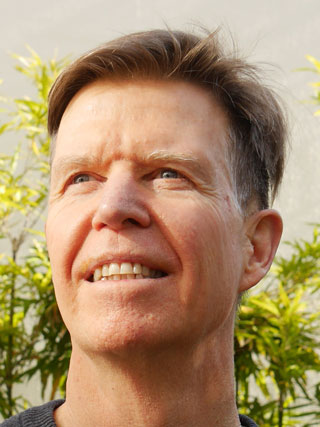
Terrie LloydModerator
CEO, Japan Travel K.K.
Terrie Lloyd is a 66-year dual-national of Australia and New Zealand, who has lived in Japan for 41 years. He formed his first company on a working holiday visa at the age of 25, in Japan, and has established 18 companies in Japan since then. He has had 8 successful earn-outs, including DaiJob.com, Japan’s first mid-career recruiting portal, which had 160,000 registered users interacting in both English and Japanese within 24 months of starting.
Lloyd is CEO of Japan Travel KK– Japan’s largest (by content volume) and second largest (by traffic) inbound travel site. Lloyd invented a unique “structured” crowdsourcing software platform to create massive amounts of user generated content at low cost. The www.japantravel.com website features over 50,000 full-length articles in 13 languages and receives over 1MM unique users per month. The company also operates a travel agency specializing in High Net Worth customers, and a software business.
Lloyd is married to a Japanese national, Kumiko, and has 4 daughters and 1 son, ranging from 38 years to 21. His hobbies are starting businesses, cycling and swimming, and hanging out with the kids (and now, grandkids).
-
15:15~16:15
How to Upskill Our People
in the Age of AI
Stephen Barnham
Tatsuo Kinoshita
Miho Tanimoto
Moderator: Wakana Tanaka
#5 Breakout Sessions <Business>
10/14Monday
15:15~16:15
#5 Breakout Sessions <Business>
How to Upskill Our People
in the Age of AI
This panel will delve into how the leaders of Japanese corporations manage their talents to equip the evolving skillsets essential for success in an AI-driven world, focusing on technical proficiency, data literacy, and adaptability. It will explore the challenges of incorporating AI training within existing HR structures, emphasizing the importance of continuous learning and fostering a culture of innovation. Discussions will highlight actual experiences of CHROs and CDOs dealing with strategies for creating diverse talent pools to accelerate their organizations through transformation.
-
Stephen BarnhamPanelists
CIO and CDO, Dai-ichi Life Holdings, Inc.
Stephen is an award winning senior executive with a track record in leading large scale digital transformation and running businesses across banking and insurance. He has lived in Japan, India, China, and Singapore running global and regional Technology and Operations teams.
He has held various senior leadership roles in technology for world leading financial institutions and is an experienced independent board director for NGOs, corporates and industry bodies.
Also, he has a passion for innovation and has run and sat on panels covering topics such as Digital Health, and AI in financial services, he is an early stage investor and VC advisor.
-
Tatsuo KinoshitaPanelists
Executive Officer, Group Chief Human Resources Officer (Group CHRO), Panasonic Holdings Corporation
Tatsuo started in HR for P&G Japan Ltd in 1996. In 2001, he joined GE Japan Inc. as HR Director of GE Capital Japan and Region Org & Talent Development Director of GE Capital Asia Pacific. HR Director in GE Japan Inc. from 2012, he moved to Kuala Lumpur, Malaysia in 2015 to be Region Head of HR for the Oil & Gas business and Organization & Talent Development Head for GE Asia Pacific. In 2018, he joined Mercari, Inc. as Executive Officer and CHRO. He joined Panasonic Holdings Corporation as Executive Officer and Group CHRO in July 2024.
-
Miho TanimotoPanelists
Global Chief HR Officer, Dentsu Group
Miho Tanimoto is the Global Chief HR Officer at Dentsu Group from 2023. She leads the global HR function, driving strategies that align HR with the company’s business objectives. Her focus is on transforming Dentsu Group into a people-centered organization.
Before joining Dentsu Group, Miho served as Executive HR Leader for Google Japan from 2018, where she led efforts to build a diverse and innovative workforce. Prior to Google, she spent 18 years at GE, where her final role was the Executive Officer HR for GE in Japan. With over 25 years of HR experience across multiple industries, Miho has worked both in Japan and in the US including managing GE’s renowned global HR leadership program. Throughout her career, she has been passionate about leadership, organizational, and talent development. She is also an active member of the Japan’s HR community dedicated to developing the next generation of global HR talent.
-
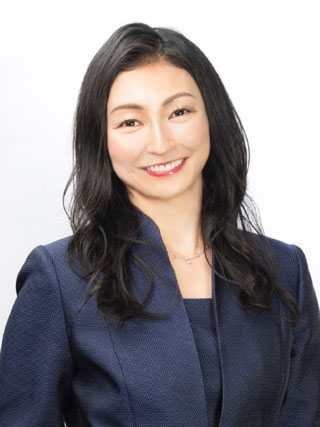
Wakana TanakaModerator
Country Manager, LinkedIn Japan
Wakana leads LinkedIn’s Japan business which includes Talent solutions, Learning and Marketing solutions of the world’s largest online professional network since March 2023. Prior to LinkedIn, she managed Google's Ad sales for strategic accounts, creating innovative digital strategy & solutions for Japanese partners. She started her career in management consulting, and later managed the Lancome brand as a Marketing Manager in L'Oreal. Following the 3.11 Earthquake, she joined the National Diet of Japan Fukushima Nuclear Investigation Commission to lead the International Affairs. After she ran Change Management at GlaxoSmithkline Japan, she joined Google in 2014. She has a Bachelor of Science from Georgetown University's School of Foreign Service and an MBA from Harvard Business School (Class of 2003). She is also a certified Coach, President of Harvard Business School Club of Japan, as well as Senior Advisor for Georgetown University Alumni Club of Japan. She grew up in Tokyo, Kobe, Jakarta, studied and worked in the US, Japan, and France. She is a passionate traveler, dancer and mom of 2 children.
-
15:15~16:15
How to Combat Fake News
in an AI-driven World
Alice Albrecht
Antoine Calendrier
Lisa Kaplan
Takashi Nakazaki
Moderator: Ross Rowbury
#5 Breakout Sessions <Politics>
10/14Monday
15:15~16:15
#5 Breakout Sessions <Politics>
How to Combat Fake News
in an AI-driven World
According to reporting by Nikkei, the number of deep fake scams in Japan increased by 28-fold last year. As developments and access to AI increase, the ability to trust information is essential to the effective functioning of society, and this panel will delve into how such trustworthiness can be maintained. The discussion will deepfake technology, AI-generated text, and the role of social media algorithms in amplifying fake news. Panelists will also explore the ethical challenges, need for transparency, and strategies for enhancing digital literacy. Business leaders will gain insights on protecting their brands from misinformation and understanding regulatory landscapes, ensuring they are well-equipped to navigate the complexities of an AI-driven information ecosystem.
-
Alice AlbrechtPanelists
Sr. Director AI Product, SmartNews, Inc.
Alice Albrecht recently joined SmartNews to work on AI-enabled products and was previously the founder of re:collect AI, a company aimed at augmenting human intelligence by using AI to connect all of the information people consume and allowing them to access it in a more natural way when doing thought work. Alice has been using machine learning to build better products in tech for over a decade and prior to that was an academic, focusing on Cognitive Neuroscience.
-
Antoine CalendrierPanelists
Vice Chair, Corporate Affairs & Trust Services, Edelman APAC
As part of the Asia-Pacific leadership team at Edelman, Antoine leads the Corporate Affairs & Trust Services practice and brings 25 years of international communications experience with multinational corporations, governmental organizations and global brands. Antoine has experience managing reputational issues in various markets, including Japan where he has advised global Japanese corporations and C-suite executives. Before Edelman, Antoine held senior leadership roles at strategic communications consultancies in Asia. Antoine holds an Executive MBA from Kellogg School of Management and Hong Kong University of Science and Technology, and a Masters Degree from the University of Wolverhampton in the UK and the Institute of Political Sciences in France. Antoine is fluent in French and English with knowledge of Mandarin Chinese and Japanese.
-
Lisa KaplanPanelists
Founder & CEO, Alethea
Lisa Kaplan founded Alethea in 2019 to help customers navigate the new digital reality and protect against online risks stemming from disinformation, misinformation, and social media manipulation. Under Kaplan’s leadership, the Alethea team has built the scalable solutions that enable the detection and mitigation of online risk targeting organizations, institutions, and brands.
Kaplan has briefed US, NATO, EU, and G-7 policymakers and officials on disinformation. She is frequently sought out by top-tier media outlets, such as The New York Times, WSJ, Bloomberg, CNN, and the Washington Post for her commentary and analysis on industry issues. She was named to Inc’s 2024 Female Founders List for innovative entrepreneurs; PRWeak’s 2023 40 Under 40 list for rising stars in strategic and crisis communications; and the 2021 Forbes 30 Under 30 list of top entrepreneurs and leaders. Kaplan is a graduate of Colby College.
-
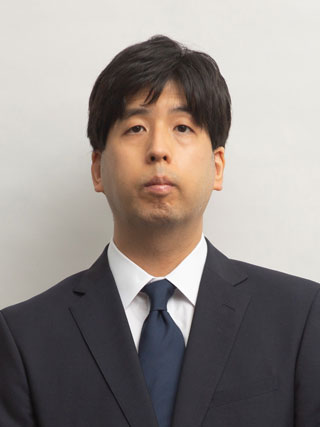
Takashi NakazakiPanelists
Attorney, Anderson Mori & Tomotsune
Takashi Nakazaki is a Special Counsel at Anderson Mori & Tomotsune, with extensive expertise in data protection and privacy, cybersecurity, intellectual property, and emerging fields such as AI and the Metaverse. Admitted to the bar in 2001, he holds an LL.B. from Tokyo University and an LL.M. from Columbia Law School, earned in 2008. He expanded his international experience at Arnold & Porter in Washington, D.C. in 2009.
Mr. Nakazaki is a recognized authority, serving on several expert committees for the Ministry of Economy, Trade and Industry, the Ministry of Internal Affairs and Communications, the Cabinet Office, and other government agencies, where he advises on data protection and cyber law. He was instrumental in drafting the ""AI Guidelines for Business"" and actively contributes to the national medical large-scale machine learning model (LMM) project ""SiP3."" Additionally, he has been commissioned to lead various surveys for the Personal Information Protection Commission.
Beyond his legal practice, Mr. Nakazaki co-founded the International Association of Privacy Professionals (IAPP) Tokyo and lectures on AI at Keio Law School, reflecting his dedication to both professional development and academic advancement in the field.
-
Ross RowburyModerator
Senior Managing Director, Co-head of Group Corporate Communications, Nomura Holdings
Ross Rowbury is Senior Managing Director and Co-Head of Group Corporate Communications at Nomura Holdings. He has observed Japan while living and working here for four decades. Commencing his career in finance in Tokyo in the early 1980s, he later moved into public relations and communications, holding senior positions at Gavin Anderson & Co. (now Kreab) and PRAP Japan. He headed the Edelman business in Japan for 10 years until July 2020. Prior to joining Nomura in October he was a freelance consultant to a number of firms on their Japan business strategy. He is also visiting professor of Asian marketing at Doshisha University in Kyoto and is on the Board of TELL a suicide prevention and mental health NPO.
-
15:15~16:15
Peter Gruss
Kei Katsuno
Anna Nakayasu
Moderator: Sho Okiyama
#5 Breakout Sessions <Technology>
10/14Monday
15:15~16:15
#5 Breakout Sessions <Technology>
Healthcare in the AI Era
This panel will explore how artificial intelligence transforms healthcare in Japan and globally. Experts will discuss the integration of AI in diagnostics, personalized medicine, and patient care, highlighting recent technological advancements. Key issues include ethical considerations, data privacy, and how AI's efficiency enables doctors to focus on essential human values. Disruptive innovations like generative AI promise new healthcare values previously unattainable, but AI cannot define these values. Therefore, our panelists will propose the direction healthcare should take, emphasizing the human role in setting priorities. The discussion will also cover the regulatory landscape, challenges of AI implementation, and the impact on patient outcomes, showcasing emerging AI applications in improving healthcare delivery and accessibility.
-

Peter GrussPanelists
Former President, Max Planck Society, President Emeritus, OIST
Peter Gruss was President of the prestigious Max Planck Society from 2002 until 2014 and President and CEO of OIST from 2017 until the end of 2022. He earned his PhD in biology at the University of Heidelberg and is honorary professor at the University of Göttingen. Professor Gruss has been Chair of the Siemens Technology and Innovation Council. He was a member of the Supervisory Boards of Siemens, Munich RE, Actelion Pharmaceuticals as well as of the Advisory Board of Deloitte and Allianz. While President of the Max Planck Society, he was appointed as a member of the “Innovation Dialogue” of the Federal Chancellery chaired by Angela Merkel. His honours include the Leibniz Prize, the Louis-Jeantet Prize for Medicine, the German Prize for Technology and Innovation by the President of the Federal Republic of Germany, as well as the German Federal Cross of Merit. Recently, he was awarded the Order of the Rising Sun, Gold and Silver Star.
-
Kei KatsunoPanelists
Director, Chugai Pharmaceutical Co., Ltd.
Dr. Kei Katsuno is Director of the Translational Research Division at Chugai Pharmaceutical. Prior to his current role, he led investment strategy and business development at the Global Health Innovative Technology (GHIT) Fund, a public-private partnership focused on advancing global health R&D, since its inception. He also served as Health Specialist at the World Bank after completing a fellowship at the East-West Center's Asia Pacific Leadership Program. Dr. Katsuno received his medical degree from the University of Tokyo and worked as a physician at the National Center for Global Health and Medicine. He possesses both Japanese and US medical licenses (ECFMG) and completed a Master of Public Health (MPH) program at Johns Hopkins University as a Fulbright Scholar. He is also a fellow of the US-Japan Leadership Program (USJLP) and a lecturer at the University of Tokyo and Osaka Metropolitan University, respectively.
-
Anna NakayasuPanelists
Investment Professional, Globis Capital Partners
Born in Yamaguchi Prefecture and raised in the US and Japan, Anna Nakayasu started her career as a physician and pivoted into venture capital after pursuing her MBA. She led healthcare investments at Sozo Ventures in Silicon Valley and worked as Lead Partner on Portfolia's Active Aging and Longevity Fund before joining GLOBIS Capital Partners in June 2023. Currently, she also leads the nonprofit Japan Healthcare Innovation Hub, creating an ecosystem to accelerate innovation in the industry. She holds an MD from the University of Tokyo and an MBA from Stanford Graduate School of Business.
-
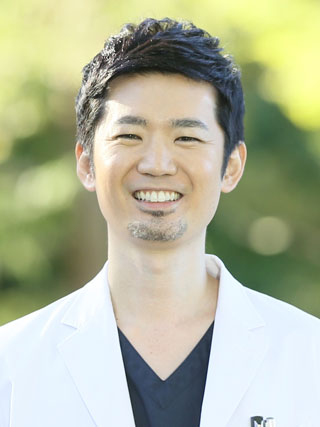
Sho OkiyamaModerator
CEO, Aillis, Inc.
As a distinguished emergency medicine specialist, Sho completed both his residency and fellowship, earning board certifications from the prestigious Japanese Association for Acute Medicine. His diverse professional experience includes serving as a helicopter flight doctor on Ishigaki Island, Japan, for a year and further extending his service as a ship's doctor on the Ogasawara Islands for three months.
Embracing a career transition, Sho ventured into the realm of medical technology. Serving as the executive officer and chief medical director at MEDLEY, Inc., a forward-thinking med-tech startup, sho dedicated two years to advancing medical practice through the integration of AI technology.
In November 2017, Sho embarked on a new journey as the founder of Aillis, Inc., a trailblazing startup specializing in AI medical devices. Aillis has proudly conducted Japan's first clinical trial for AI medical devices, leading to the launch of ""nodoca,"" a groundbreaking AI medical device proficient in diagnosing various diseases from pharyngeal images. As of 2023, nodoca has the singular distinction of being the only AI medical device in Japan to be covered by national health insurance.
TEDx talk on Sho's career:https://www.youtube.com/watch?v=u2N7JoMU3U4
Feb. 2024 in Bulgaria
After successfully raising $70 million in funding, his team at Aillis, Inc. is currently strategizing to broaden our product's reach beyond Japan. Aillis is passionately committed to leveraging the power of AI to revolutionize healthcare worldwide. A testament to their innovative strides, Aillis has been selected among the top 90+ Artificial Intelligence Startups in Healthcare by CB Insights, and has become the honored winners of the 2023 Startup World Cup, a prestigious event held across 50 countries and regions worldwide, with 30,000 startups entering.
-
15:15~16:15
From Crisis to Collaboration: The Rising Tide of Middle East - Far East Partnerships
Fathiya Al Rashdi
Hakima Bathaoui
Shuji Hosaka
Naomi Yamamoto
Moderator: Toru Takahashi
#5 Breakout Sessions <Society>
10/14Monday
15:15~16:15
#5 Breakout Sessions <Society>
From Crisis to Collaboration: The Rising Tide of Middle East - Far East Partnerships
This panel explores the transformative reality and changes happening in Middle Eastern countries, shifting the focus from crisis to collaboration. Highlighting positive regional developments, the discussion will focus on how shared goals such as sustainable energy, digital transformation, infrastructure development, and new industrialization are fostering collaboration. Panelists will share insights into the growing investments, innovative projects, and business opportunities emerging from these partnerships. This session will offer participants practical strategies to leverage these collaborations for mutual growth, resilience, and long-term success.
-
Fathiya Al RashdiPanelists
VP for Program Affairs, Royal Academy of Management
Fathiya Al Rashdi has been working as a VP for Program Affairs at the Royal Academy of Management. She is overseeing all leadership programs and other program at RAM. Before that, she was the Assistant Dean for Undergraduate Studies at the College of Arts and Social Sciences, Sultan Qaboos University.
-

Hakima BathaouiPanelists
Vice President, Head of Middle East Market, Tokyu Hotels & Resorts Co.,Ltd.
Hakima Bathaoui, born in Rabat, Morocco, and now holding Japanese nationality, has a diverse background in international relations and diplomacy. While completing her MBA at Globis University, she was appointed Vice President and Head of the Middle East Market at Tokyu Hotels and Resorts Headquarters, where she leads market expansion and strategy.
Her diplomatic experience includes roles as Head of the Ambassador’s Office at the UAE Embassy in Japan and Head of Public Relations at the Saudi Arabia Embassy, as well as an advisory position to the Moroccan ambassador.
Hakima also served as a News and Program Announcer for the Arabic and French sections at NHK World, Japan’s national broadcaster. Fluent in several languages, she has contributed to academia by compiling business dictionaries and writing on Arab-Japanese economic relations, reinforcing her commitment to cultural exchange and global collaboration.
-
Shuji HosakaPanelists
Senior Advisor for Research, JIME Center, The Institute of Energy Economics, Japan
After receiving an M.A. (Oriental History) from Keio University, Mr. HOSAKA Shuji became Special Assistant of the Japanese Embassies in Kuwait and Saudi Arabia. Since then, he has held various posts in the field of the Middle East studies, including Professor of Kindai University, Osaka, Director of JSPS Cairo Research Station, Director of JIME Center / Board Member of the Institute of Energy Economics, Japan (IEEJ) and Adjunct Professor of Waseda University. He became President of Japan Association for Middle East Studies (JAMES) in April 2021. Among his publications are Jihadism (2017), Cyber-Islam (2014), Osama Bin Laden: His Life and Jihad (2011), and Saudi Arabia: Oil Kingdom in Transition (2006).
-
Naomi YamamotoPanelists
Senior Manager. International Trade, Economics, Data and Statistics, NEOM
She is an economic development specialist focusing on Foreign Direct Investment (FDI) and Trade Promotion. Having worked in multiple countries, she is currently based in NEOM, Saudi Arabia. She embarked on her career by spearheading FDI and trade promotion efforts in the UK and Japan, transitioning to advisory roles where she provides governmental agencies in developing countries with insights and guidance on legal and operational frameworks to enhance their business attraction policies and practices.
Her professional portfolio spans across various regions globally, including Pakistan, India, the Philippines, Algeria, and Senegal. Additionally, she has garnered experience in financial institutions such as Citibank and MetLife, which has broadened her understanding of how the private sector navigates decision-making processes and how external factors can influence these decisions.
-
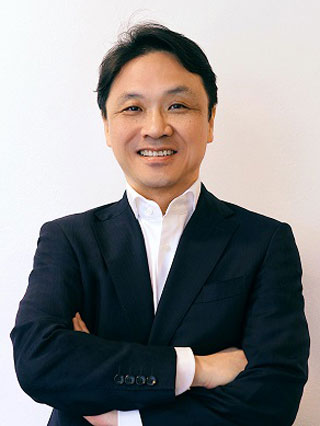
Toru TakahashiModerator
President and CEO, GLOBIS Europe BV
"Toru Takahashi is the President & CEO of GLOBIS Europe BV, based in Brussels, Belgium. Under his leadership, GLOBIS offers Pre-MBA courses and global leadership training for corporate clients across the EMEA region. He also imparts his wisdom on Global Perspectives and Entrepreneurial Leadership in GLOBIS University's MBA program. Renowned for his corporate training expertise, Takahashi conducts seminars on developing corporate strategy during overseas expansion and leadership for localizing overseas sites.
Before joining GLOBIS, he spent eight years on overseas assignments with Marubeni Corporation, spearheading infrastructure projects in Iran and managing diverse business ventures from their EMEA regional headquarters in Belgium. Takahashi is the author of "People who get results overseas don't use cultural issues as an excuse" and co-author of "GLOBIS MBA Management Book II."
A Sophia University economics graduate, he also completed the Stanford Executive Program (SEP) at the Stanford Graduate School of Business and is currently a PhD candidate at the Bucharest University for Economic Studies."
#6 Plenary Session
GLOBIS Hall
How Humans Evolve with AI
-
Minister of the Environment, Member of the House of Councilors
-
Harold Price Professor of Entrepreneurship; Director, Fubon Center for Technology, Business and Innovation, NYU Stern School of Business
-
Columnist & Editorial Board, Financial Times
-
Expert Director, Monex Group
10/14Monday
16:30~17:30
#6 Plenary Session
How Humans Evolve with AI
Our final discussion covers the challenges posed by AI and how to move forward. What does the new Human Evolution look like with AI? What have we learned about utilizing this technology in Business, Politics, and Society, and what actions should we take next? How can we create a new social trust, learn new AI-related skills, and tackle some of the world’s toughest problems? Panelists discuss their reflections and how to collaborate. We encourage the audience to share their insights, so we can move together as a G1 Community, for a more evolved society in Japan and throughout the world.
-
Keiichiro AsaoPanelists
Minister of the Environment, Member of the House of Councilors
Originally a banker at The Industrial Bank of Japan, Mr. Asao is a graduate of the University of Tokyo, Faculty of Law and the Graduate School of Business, Stanford University He was elected to the House of Councilors from Kanagawa Prefecture in 1998 and has more than 20 years experience in the Japanese Diet.
During his career as the Member of the Japanese Diet, he has served as the Party head of Your Party. He has previously served as Chair, House Rules and Administrations as well as Acting Chairperson of the Policy Research Council of the Liberal Democratic Party.
-
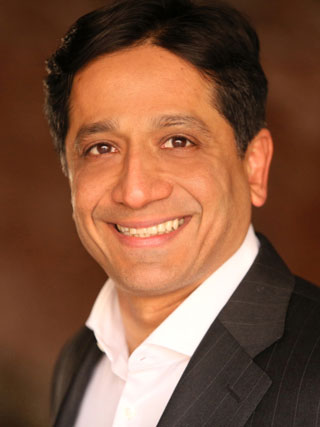
Arun SundararajanPanelists
Harold Price Professor of Entrepreneurship; Director, Fubon Center for Technology, Business and Innovation, NYU Stern School of Business
Arun Sundararajan is the Harold Price Professor of Entrepreneurship at New York University’s (NYU) Stern School of Business where he also serves as Director of the Fubon Center for Technology, Business and Education. An internationally recognized expert on artificial intelligence governance and digital policy, his best-selling and award-winning book, “The Sharing Economy,” published by the MIT Press, has been translated into Mandarin Chinese, Japanese, Korean, Vietnamese and Portuguese. He has authored over 50 peer-reviewed scientific papers, published over 40 op-eds, and given hundreds of talks globally. His scholarship has been recognized by nine Best Paper awards, two Google Faculty awards, an Axiom Award and a Thinkers50 Thinker award. He has testified and provided expert input to the United States Congress, the European Parliament, the United Nations, and numerous regulators globally. He is a widely sought-after commentator by top media platforms. He is a member of the World Economic Forum’s AI Governance Alliance and serves as a board member and advisor to numerous additional organizations, ranging from startups to Fortune 100s to global non-profits. His consulting and advisory practice helps executives worldwide with digital strategy and regulatory issues. He has degrees in electrical engineering, operations research and economics. He is an active angel investor.
-
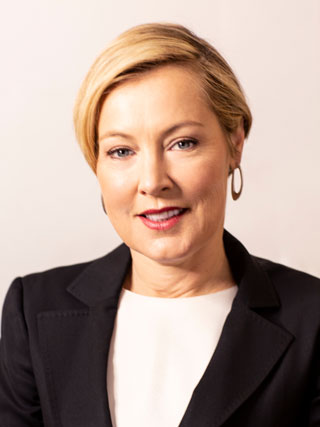
Gillian TettPanelists
Columnist & Editorial Board, Financial Times
Gillian Tett is a columnist and member of the Editorial Board for the Financial Times. She writes a weekly column on Friday, covering a range of economic, financial, political and social issues. She also serves as Provost of King's College, Cambridge.
Previously, she chaired the FT Editorial Board, ran Moral Money, the FT's sustainability newsletter which she co-founded, and wrote two columns a week. She has been named Columnist of the Year (2014), Journalist of the Year (2009) and Business Journalist of the Year (2008) in the British Press Awards, and received three awards from America's Society of Business and Economic Writers Awards. She is a best-selling and award-winning author of four books, and received the Royal Anthropological Institute Marsh Award and the American Anthropological Association President Medal for her work in social science. She has received honorary degrees from Carnegie Mellon, Miami and Baruch, Exeter, Lancaster, and Goldsmith's universities.
-
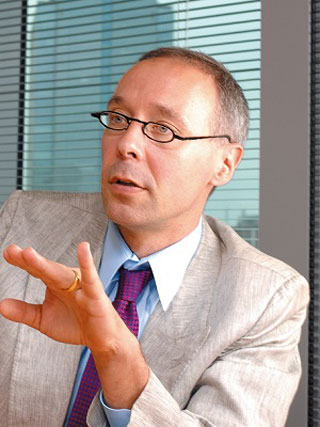
Jesper KollModerator
Expert Director, Monex Group
Jesper Koll has been researching and investing in Japan since becoming a resident in 1986. Over the past two decades, Jesper has been consistently recognized as one of the top Japan strategists/economists, having worked as Chief Strategist and Head of Research for U.S. investment banks J.P. Morgan and Merrill Lynch. He currently serves as Expert Director for the Monex Group and the Japan Catalyst Fund (Japan’s 1st retail investor based corporate engagement/activist fund). His analysis and insights have earned him a position on several Japanese government and corporate advisory committees, including Tokyo Governor Yuriko Koike’s Advisory Board. In 2022, he was appointed Global Ambassador for Tokyo’s Financial Center initiative. Jesper serves as Board Director of OIST, the Okinawa Institute for Science and Technology and is a Founder and Board Director of the Asia Society Japan and heads their Policy Committee. He is one of the few non-Japanese members of the Keizai Doyukai, the Japan Association of Corporate Executives; and serves on the board of several Japan-based start-ups. He has written three books in Japanese and, in 2021, created the acclaimed video/pod-cast series “Japan - Capitalism that works”.
Jesper is an economist, angel-investor, patron; and yes, a Japan Optimist.
Closing Session
GLOBIS Hall
10/14Monday
17:30~17:50
Closing Session
OFF THE RECORD
Reception Party
Tokyo Green Palace
G1 LuckyFes Night with CANDY TUNE from KAWAII LAB
10/14Monday
18:00~19:30
Reception Party
G1 LuckyFes Night with CANDY TUNE from KAWAII LAB
Celebrate G1 LuckyFes Night with drinks and food from Ibaraki Prefecture! The (optional) Reception Party will be at the Tokyo Green Palace, about 2 minutes on foot from GLOBIS.
We will also enjoy a musical performance by CANDY TUNE from KAWAII LAB, a Japanese girl group with a mission of "sharing Harajuku style with the world." Specialties include locally brewed sake, teriyaki chicken, roast pork, and an assortment of fruit and vegetable delicacies. See you there!
-
The 7-member idol group "CANDY TUNE" consists of Mizuki Kirihara, Rino Fukuyama, Nanako Ogawa, Natsu Minami, Kotomi Tachibana, Shizuka Miyano, and Bibian Murakawa.
They debuted on March 14, 2023, as part of "KAWAIILAB," a new project by ASOBISYSTEM aimed at promoting idol culture to the world.
The group's name reflects the idea that, like various "CANDY" flavors and shapes, the members each have different preferences and personalities, and they hope to create their own colorful and pop "TUNE" together.
Programs are subject to change without notice.
| 日時 |
Monday, 14(Holiday), 2024 |
Conference Theme:
"Human Evolution with AI: How Humans Can Grow by Utilizing this Technology in Business, Politics, and Society."
The growth of AI brings new opportunities and risks. It can help us cure diseases, fight climate change, and increase overall productivity. On the other hand, there may also be widespread job displacement, misinformation and manipulation, privacy concerns, and a sense of eroding social trust. Every industry seems to be considering how AI affects them and how to respond.
For humans to survive, we must evolve, but how? What are the various ways humans should advance with AI? The US election, the situation in the Middle East, relations with China and Russia, and the fragile economy are among the major issues which can all be affected by AI. At the 14th G1 Global Conference, we will discuss these issues in the fields of politics, business, technology and society. We will invite wisdom from around the globe, think beyond our existing roles, and discuss actions we can take to advance human evolution, utilizing AI and other ways to contribute to a better world and a brighter future.
This year's G1 Global theme is "Roaring Twenties 2.0! ~Crafting a Grand Design for a Post-COVID World." The 1920s was a decade of booming economic growth, advances in new technologies and personal freedoms, and a renaissance in art and culture. It also emerged from a pandemic and a world war.
The 2020s face similar, but more complex challenges: recovery from COVID-19, a war in Ukraine, an energy and supply-chain crisis, economic stagnation, and threats to the environment. Meanwhile, 5G, AI, NFTs, Web 3.0, and other technologies are transforming almost every industry. Populism and fragmented societies continue to challenge our politics.
Can we craft a grand design for a Roaring Twenties 2.0? What changes and new forms of leadership lie ahead? At the 12th G1 Global Conference, we will discuss obstacles and opportunities in the fields of politics, business, technology, and society post-COVID-19. We will invite wisdom from all around the globe, think beyond our existing roles, and discuss the actions we can take together to design a roaring new decade.
This year's theme is "Innovative Resilience in Politics, Business, Technology, and Society." As our global society gradually recovers from COVID-19, we face great chances to apply innovation and resilience to societies ravaged by the pandemic.
How shall we cope with climate change, cybersecurity, and geopolitical issues in the Middle East and Asia? What will arise from the US after COVID-19 and Trump's volatile presidency? What will be the effect of the US-China relationship? How will leadership transitions in Europe affect the world? What is the role of Japan in the international order?
Innovative resilience is how we endured the pandemic, and it is how we will move beyond it. But none of us can do it alone. Political and societal leaders, businesses, and technologies must collaborate to shift priorities toward a better future.
At the 11th G1 Global Conference, we will ignite that collaboration and innovative resilience to rebuild our world. We will invite wisdom from all around the globe, think beyond our existing roles, and discuss actions we can take together as a new society. See report here.
This year's theme is "Disruptive Evolution Post-COVID-19: Geopolitics, Business and Society." COVID-19 may represent the most disruptive event of our lifetimes, as the pandemic has infected millions and threatens to be the worst economic recession since the Great Depression. Social fractures that emerged with Brexit and US President Trump have been exacerbated, amplifying isolationist tendencies when the world craves for collaboration.
With disruption comes opportunities for evolution. History has been accelerated, as online technologies are changing the ways we live, work, and interact. Businesses and organizations that survive will need to be able to adapt in real time. With US-China tensions rising, a pivotal US election in November, and more potential waves of COVID-19, many disruptions await.
At the 10th G1 Global Conference, we will reflect on how the coronavirus has changed our geopolitics, business and society. Then, by utilizing the wisdom from various sectors and regions from around the globe, we will discuss the ways we can evolve towards a post-COVID-19 world together. See report here.
This year's theme is “Sustainable Innovation in Times of Disruption.” Social fractures that emerged with Brexit and US President Trump are deepening and expanding globally, with populism being one of many factors disrupting the post-WWII international order.
Meanwhile, Industry 4.0 technologies such as AI, Big Data, and IoT are transforming politics, business, and society.
At the 9th G1 Global Conference, we will discuss these disruptions in politics, business, and society by bringing together the wisdom from various sectors and regions from around the globe. See report here.
This year's theme is “Connecting a Fractured World.” As US President Donald Trump pursues an “America First” policy, traditional alliances are becoming challenged. Japan and other allies carefully balance their interests with the US while building up relations with other countries. At the same time, new technological breakthroughs in AI, IoT, and blockchain are upending our traditional notions of trust, productivity, and privacy.
In this fractured world, new connections in politics, business, society, and technology will be needed to survive. At the 8th G1 Global Conference, we will discuss “Connecting a Fractured World,” bringing together the wisdom from various sectors and regions from around the globe. See report here.
This year's theme is “Creative Evolution in a Volatile World.“ Deep social divides in the US and Europe can be seen in Brexit and President Donald Trump. Europe and the US are questioning globalization, turning inward and embracing populism that has lead to a volatile world. However, Japan, in contrast, is surprisingly stable economically and politically, with few social divisions. Meanwhile, developments in technology bring new threats and breakthroughs. New, creative actions are needed to evolve in Politics/Foreign Affairs, Economics/Business, and Technology. At the 7th G1 Global Conference, we will discuss “Creative Evolution in a Volatile World,“ bringing together the wisdom from various sectors and regions from around the globe. See report here.
The theme this year is “Leadership: Thinking the Unthinkable,” based on the research by G1 Global main facilitator and former BBC Presenter Nik Gowing. Brexit and the popularity of Donald Trump have confirmed the unthinkable that many political and corporate leaders would not even accept: the scale of public disillusionment at leaders' assumptions that they know what is best for their people and customers. Brexit showed how out of touch the UK government was, and the strategic error of believing they held the high ground of political wisdom. To respond effectively to events like this, a new type of leadership is required. G1 Global participants will discuss “Thinking the Unthinkable” and taking action, with focus on the realms of business, technology, and diplomacy, and with special attention on the role of Japan. See report here.
09:00-09:15
Opening Session
VENUE: GLOBIS Hall
09:15-10:15
#1 Plenary Session
VENUE:
Generative Innovation: New Ways to Revolutionize Politics, Business and Our Lives
VENUE: GLOBIS Hall
We open the conference by discussing this year's conference theme. As the world acclimates to a "new normal," we face the impact of generative AI, a greater focus on the Global South, and the effects of climate change. The war in Ukraine is disrupting supply chains, and each country has their own response, including major fluctuations in currencies, employment levels, and inflation. Japan seems to be recovering despite its demographic challenges. What does this all add up to? Where can we find the Generative Innovation to Revolutionize our Politics, Business and Our Lives? Our panelists contemplate these issues and frame the discourse for the day ahead.
- Panelists
- Bill Emmott
- Bill Emmott
- Chair, International Institute for Strategic Studies; Chair, Japan Society of the UK
- Panelists
- Jane Harman
- Jane Harman
- Chair, Commission on the National Defense Strategy
- Panelists
- Heizo Takenaka
- Heizo Takenaka
- Professor Emeritus, Keio University
- Moderator
- Jesper Koll
- Jesper Koll
- Expert Director, Monex Group
10:30-11:30
#2 Breakout Session
VENUE:
[Business] CEO Session: What's on Your Mind?
VENUE: GLOBIS Hall
With the world entering a post-pandemic "new normal," CEOs have many new and old things to think about: digital transformation accelerated by generative AI, geopolitical disruptions which may affect the supply chain, sustainability, diversity and inclusion, the race for global talent, even and even cybersecurity and succession planning, among many others. What is at the forefront of the minds of CEOs right now? Why are these points so important now? In this turbulent VUCA world, businesses need to adapt to the times in order to survive. This panel explores what CEOs are thinking about and what may lay ahead.
- Panelists
- Seiji Inagaki
- Seiji Inagaki
- Director, Chair Of The Board, Dai-ichi Life Holdings, Inc.
- Panelists
- Daniel Springer
- Daniel Springer
- Board Director, UiPath and DocuSign
- Panelists
- Eric Yuan
- Eric Yuan
- CEO, Zoom Video Communications, Inc.
- Moderator
- Makiko Shinoda
- Makiko Shinoda
- Director, Yell Co., Ltd.
[Politics] De-Risking Global Supply Chains in an Unpredictable World
VENUE: 206
Policies like the Economic Security Act in the US and Japan have been introducing restrictive measurements to control international traffic with certain countries under the name of Economic Security. This is forcing companies to restructure their supply chains in various sectors. Many companies are in the process of building new supply chains without China. But do these policies actually work? Do they have the opposite effect? Are these measures setting the scene for a future Cold War? How can companies balance the need for de-risking with maintaining operational efficiency and cost-effectiveness? The panel will discuss the trends, challenges, and opportunities for de-risking global supply chains, from government and business perspectives, as well as what the future may hold.
- Panelists
- Glen S. Fukushima
- Glen S. Fukushima
- Senior Fellow, Center for American Progress
- Panelists
- Willy Shih
- Willy Shih
- Baker Foundation Professor of Management Practice, Harvard Business School
- Panelists
- Kunimasa Suzuki
- Kunimasa Suzuki
- Vice President, Sales and Marketing Group, Intel Corporation; President, Intel K.K.
- Moderator
- Yumiko Murakami
- Yumiko Murakami
- General Partner, MPower Partners
[Technology] Competition and Co-Invention in Generative AI: Recent Developments and Applications
VENUE: 203-204
Generative AI holds vast business potential, enabling systems to create data such as images, text, and sounds which can accelerate innovation, product development, and customization. It can optimize content generation and product design, while fostering personalized user engagement through AI chatbots. However, challenges remain. Content quality and bias, ethical and privacy safeguards, and robust auditing mechanisms are crucial for effective implementation. Indeed, several major players are competing to dominate this space, and in some cases they even cooperate. As generative AI could significantly transform businesses, how the players interact with each other will greatly affect the quality of the results. Panelists discuss these issues and what might be in store for the near future.
- Panelists
- Jerry Chi
- Jerry Chi
- Head of Japan, Stability AI
- Panelists
- Karim Lakhani
- Karim Lakhani
- Dorothy & Michael Hintze Professor of Business Administration, Harvard Business School
- Panelists
- Wakana Tanaka
- Wakana Tanaka
- Country Manager, LinkedIn Japan
- Moderator
- Emre Yuasa
- Emre Yuasa
- Partner, GLOBIS Capital Partners
[Society] Leveraging the Japanese Female Workforce Amidst Shrinking Demographics
VENUE: 201
Japan has made progress in leveraging its female workforce, with more women found in boardrooms across the country. However, accelerating demographic issues highlight the need for further progress. Gender discrimination, societal norms and the lack of childcare services often pressure women to prioritize family over careers. Additionally, the traditional corporate culture of long work hours and a seniority-based wage system may deter employers from hiring more women. Despite a high demand for labor, providing childcare and creating a more inclusive work culture is still a challenge. Panelists will discuss how a comprehensive approach including cultural, legislative and workplace reforms, along with better childcare provisions, will be crucial to fully leveraging the potential of women in the Japanese workforce.
- Panelists
- Keiichiro Asao
- Keiichiro Asao
- Member of the House of Councilors
- Panelists
- Katrina Fotovat
- Katrina Fotovat
- Principal Deputy Director, Secretary of State’s Office of Global Women’s Issues
- Panelists
- Daisuke Kan
- Daisuke Kan
- President, Cheerio Corporation
- Panelists
- Kaori Sasaki
- Kaori Sasaki
- Founder & CEO, ewoman, Inc.
- Moderator
- Maiko Todoroki
- Maiko Todoroki
- President and CEO, Poppins Corporation
11:45-12:45
#3 Breakout Session
VENUE:
[Business] The Business Case for Generative AI
VENUE: GLOBIS Hall
Generative AI holds vast business potential, enabling systems to create data such as images, text, and sounds, advancing innovation, product development, and customization. It can optimize content generation and product design, while also fostering personalized user engagement through AI chatbots. However, it is not without challenges. Checking the quality of generated content, navigating regulatory and ethical considerations, and managing considerable data and computational requirements raise concerns. Poor quality or biased data can lead to flawed outcomes, impacting reputations and user safety. Therefore, while generative AI could significantly transform businesses, it necessitates careful management. Panelists consider these and other issues in considering how to effectively implement and take advantage of the opportunities presented by generative AI.
- Panelists
- Stephen Barnham
- Stephen Barnham
- CIO and CDO, Dai-ichi Life Holdings
- Panelists
- Sinead Kaiya
- Sinead Kaiya
- COO, Woven Planet Holdings, Inc.
- Panelists
- Yoshinami Takahashi
- Yoshinami Takahashi
- SEVP, Head of Global Business Solutions, in charge of Fujitsu Uvance, Fujitsu Limited
- Moderator
- Miki Tsusaka
- Miki Tsusaka
- President, Microsoft Japan
[Politics] Generative Innovation in East Asian Geopolitics
VENUE: 206
Our panel will explore the complex political dynamics of the region. What are the implications of China's increasing influence in the region? How should the US adjust its policy in response to these geopolitical shifts? What strategies can Taiwan employ to assert its sovereignty, while maintaining regional stability? As a neighbor to North Korea, how does South Korea view its geopolitical stance? How can Japan balance its relationships with the US, Taiwan and China tactfully and strategically without exacerbating tensions? Panelists discuss China's assertiveness, nuclear threats from North Korea, the Taiwan-China conflict, US's strategic priorities, and Japan's balancing act between its allies and economic realities.
- Panelists
- Jina Kim
- Jina Kim
- Dean of Language and Diplomacy Division, Hankuk University of Foreign Studies
- Panelists
- Fu-Kuo Liu
- Fu-Kuo Liu
- Research Fellow, National Chengchi University
- Panelists
- Joshua Walker
- Joshua Walker
- President & CEO, Japan Society
- Moderator
- Ken Jimbo
- Ken Jimbo
- Professor, Faculty of Policy Management, Keio University
[Technology] Technology and Innovation in Japan’s Grand Macroeconomic Strategy
VENUE: 203-204
National strategy requires higher productivity; higher productivity requires faster diffusion of new technology; faster diffusion of new technology requires spirited entrepreneurship. The aspirations of Japan’s national strategy are unchanged: Peace and prosperity. But Japan lacks some key capabilities that are critical to achieving these aspirations. The session will discuss the missing capabilities, and how a better environment of entrepreneurship can develop and spread the technologies that are crucial for higher productivity, and for achieving Japan’s aspirations.
- Panelists
- Paul Bradley
- Paul Bradley
- Chairman and CEO, Caprica International
- Panelists
- Tatsuo Hatta
- Tatsuo Hatta
- Chair of the Executive Board, Asian Growth Research Institute
- Panelists
- Takako Hikotani
- Takako Hikotani
- Professor, Gakushuin University
- Panelists
- Taejun Shin
- Taejun Shin
- Co-founder & CEO, Gojo & Company
- Moderator
- Robert Alan Feldman
- Robert Alan Feldman
- Senior Advisor, Morgan Stanley MUFG Securities
[Society] Investing in the Blue Economy: Exploring Sustainable Solutions for Ocean Conservation
VENUE: 201
According to the World Bank, the Blue Economy is the "sustainable use of ocean resources for economic growth, improved livelihoods, and jobs while preserving the health of ocean ecosystems." However, overfishing, ocean pollution, and the degradation of marine biodiversity challenge these ecosystems. Meanwhile, recent positive trends include climate-positive aquaculture, renewable energy integration, and marine biotechnology. What is the latest? What is hindering the implementation of these new ideas? Are there any "Generative Innovations" to solutions for sustainable ocean-use practices? Panelists from Japan and around the world will discuss the challenges and opportunities to create a successful Blue Economy.
- Panelists
- Quentin Hanich
- Quentin Hanich
- Professor, University of Wollongong; Research Chair, Nippon Foundation Ocean Nexus Chair in Fisheries Governance
- Panelists
- Margaret Spring
- Margaret Spring
- Chief Conservation and Science Officer, Monterey Bay Aquarium
- Panelists
- Atsushi Sunami
- Atsushi Sunami
- President, Sasakawa Peace Foundation
- Moderator
- Minako Iue
- Minako Iue
- Chair and CEO, Sailors for the Sea Japan; Ph.D. Kyoto University (Global Environmental Studies)
13:00-13:45
Enjoy a bento—sushi, steak, or salad (vegetarian)!
14:00-15:00
#4 Breakout Session
VENUE:
[Business] Japan’s Economy: From Innovative Resilience to Real Opportunities and Newfound Strength
VENUE: GLOBIS Hall
Japan is back at the center of attention for global investors. Warren Buffett has been leading the charge of what is poised to become a new historic high of global buying of Japanese companies in 2023. After decades of deflation and disappointment, a positive inflection is in sight: Inflation is here, domestic business investment is surging, a new generation of corporate leaders is “going for growth”, and policy remains decisively pro-growth on the monetary and fiscal front, with the newfound focus on defense and national economic security adding a welcome sense of urgency to Japan’s industrial policy. Too good to be true? Join us for this panel discussion to explore: How real is Japan’s newfound economic strength? Where are the real opportunities? What could derail the recovery?
- Panelists
- River Akira Davis
- River Akira Davis
- Reporter, The Wall Street Journal
- Panelists
- Andrew McDermott
- Andrew McDermott
- Founder, Mission Value Partners
- Panelists
- Yuki Takemori
- Yuki Takemori
- General Manager, Development Bank of Japan
- Moderator
- Jesper Koll
- Jesper Koll
- Expert Director, Monex Group
[Politics] Energy & the Environment: How Can We Realize Sustainability, Support Growth and Ensure Affordability?
VENUE: 206
The world is experiencing extreme weather everywhere, highlighting the urgency of climate change. Some are calling for bold measures in an accelerated manner. Others are arguing that we need to be realistic. How can we bridge the gap between our aspiration and the reality? What are the challenges and how can we overcome them? How can we ensure smooth and realistic transition to get us from where we are to where we want to be? Especially for the Global South, how can we support their growth and ensure affordability, while reducing their CO2 emissions substantially? How can business and innovation help us address these challenges?
- Panelists
- Jun Arima
- Jun Arima
- Professor, University of Tokyo
- Panelists
- Siti Indati Mustapa
- Siti Indati Mustapa
- Deputy Dean, UNITEN, Malaysia
- Panelists
- Haitze Jens Lodewijk Siemers
- Haitze Jens Lodewijk Siemers
- Minister, Deputy Head of Delegation, Delegation of the European Union to Japan
- Panelists
- Kenichiro Toyofuku
- Kenichiro Toyofuku
- Executive Director, Multi Suzuki, India
- Moderator
- Tatsuya Terazawa
- Tatsuya Terazawa
- Chairman and CEO, The Institute of Energy Economics, Japan
[Technology] The Intersection of Design and AI
VENUE: 203-204
Incorporating "design" into business processes has been an essential part of innovation over the past few decades. While not without its challenges, it has generally improved products and services for customers, employees and stakeholders. This panel looks at the opportunities and challenges that Generative AI presents when applied to design, especially in business. How does Generative AI reimagine the design process? What are the ethical dilemmas in AI-driven design? What will the design functions of the future look like in the era of Generative AI? Panelists will discuss these issues and how AI can help or hinder the role of design.
- Panelists
- Shiho Fukuhara
- Shiho Fukuhara
- Co-Founder, Human Awesome Error; Artist, BCL
- Panelists
- Emi Kusano
- Emi Kusano
- Co-founder of Shinsei Galverse, Multidisciplinary Artist collaborated with AI
- Panelists
- Noah Levin
- Noah Levin
- VP of Design, Figma
- Panelists
- John Maeda
- John Maeda
- VP of Design and Artificial Intelligence, Microsoft
- Moderator
- Kinya Tagawa
- Kinya Tagawa
- CEO, Takram Japan Inc.
[Society] Tourism as Japan's Leading Export Industry in 2030
VENUE: 201
Imagine it: By 2030, tourism has grown into Japan's number one export industry, the result of strategic government and industry actions to materialize Japan’s full potential. In fact, WEF predicted this outcome in its Travel & Tourism Development Index 2021—placing Japan at the top of its ranking.
Rich cultural offerings, Michelin-starred restaurants and vibrant night life attract global urban travelers to big cities. Meanwhile, frequent visitors discover hidden destinations in rural areas which maintain natural beauty and local cultural heritage. A growing demand for transformational travel has also acted in favor of Japan’s tourism. Well-connected transportation networks, safety and cleanliness function as the foundation of its success.
Panelists will discuss how to make this a reality.
- Panelists
- David Mark Atkinson
- David Mark Atkinson
- CEO, Konishi Decorative Arts and Crafts Co., Ltd.
- Panelists
- Benjamin Liao
- Benjamin Liao
- Chairman, Forte Hotel Group
- Panelists
- Satoko Nagahara
- Satoko Nagahara
- Co-Founder & CEO, DENEB
- Panelists
- Hidehiko Yuzaki
- Hidehiko Yuzaki
- Governor, Hiroshima Prefecture
- Moderator
- Tak Umezawa
- Tak Umezawa
- Japan Chairman and Senior Partner, A.T. Kearney; Chairperson, CIC Japan
15:15-16:15
#5 Breakout Session
VENUE:
[Business] Indo-Pacific Trade Evolution and Emerging Opportunities
VENUE: GLOBIS Hall
The world is rebuilding in new ways after the disruptions to supply chains from the pandemic and coloured by strategic realignments. Nowhere is this more evident than in the Indo-Pacific, a vast part of the planet that has become a driving engine for world growth. While some decry the re-emergence of nationalism and protectionism around the world as populism, the reality is more nuanced with hybrid strategies of “re-shoring” and “friendshoring”, securing the development and supply of goods and services, and “de-risking” more conditional supply chains. There is leadership and policy awareness that economic efficiency (and possibly growth) is being traded for greater national resilience and security. As the world moves towards more sustainable outcomes new technology trends including AI are increasing the complexity and value of the opportunity space as much as they are contesting it. Migration patterns and remote work are upending the “war for talent” and climate change will continue to drive this too. How should businesses act and react? What can states do to better support their industrial sectors and societies to open up the opportunity space across the region? Can the logic of trade still operate to strengthen peace and security, as it once did, as well as broader political, social and environmental goals for clean and fair economies that respect human rights? What does the new opportunity landscape look like across industry?
- Panelists
- Parag Khanna
- Parag Khanna
- Founder & CEO, Climate Alpha
- Panelists
- Peter Roberts OAM
- Peter Roberts OAM
- Minister and Deputy Head of Mission, Australian Embassy in Japan
- Panelists
- Marcella Wijayanti
- Marcella Wijayanti
- Head of Compliance and Regulatory Affairs, GoTo Financial
- Panelists
- Yasuhiko Yoshida
- Yasuhiko Yoshida
- Deputy Director-General for Trade Policy, Trade Policy Bureau, Ministry of Economy, Trade and Industry (METI), Government of Japan
- Moderator
- Anton Roux
- Anton Roux
- Chief Executive Officer, ADC Forum
[Politics] From "Japan Passing" to "Japan Surpassing"? How the Media Covers a "New" Japan
VENUE: 206
A long time has passed since the coining of the word “Japan Passing.” A play on the “Japan Bashing” during the trade wars of the 1980’s it was a sad indication of the world’s interest passing by Japan for the more exciting Chinese and other Asian countries. A combination of geopolitical, political, economic, commercial and market conditions have combined to create a renewed interest in Japan. How is the world’s media reacting to this increased interest? Do they see it as long term, or just a fad for the times? What themes will be of interest and how should Japan seek to maximize this interest to its advantage? Our distinguished panel of senior journalists will discuss these and other issues.
- Panelists
- Bill Emmott
- Bill Emmott
- Chair, International Institute for Strategic Studies; Chair, Japan Society of the UK
- Panelists
- Noriyuki Shikata
- Noriyuki Shikata
- Cabinet Secretary for Public Affairs, Prime Minister's Office of Japan
- Panelists
- Noah Sneider
- Noah Sneider
- Tokyo Bureau Chief, The Economist Newspaper Limited
- Panelists
- Yukiko Toyoda
- Yukiko Toyoda
- Bureau Chief, Reuters Japan
- Moderator
- Ross Rowbury
- Ross Rowbury
- Senior Managing Director, Co-head of Group Corporate Communications, Nomura Holdings
[Technology] How Tech Can Drive Japanese Entertainment, such as Anime and Manga
VENUE: 203-204
Japanese anime and manga enjoy global popularity but face significant challenges in achieving the level of influence needed to compete with K-pop on the world stage. The Japanese anime and manga industry is fragmented, insular, and nascent. It has primarily focused on domestic consumption and has failed to take full advantage of emerging technologies such as VR, AI, and blockchain. Conversely, some content—such as V-Tubers and other idol culture—has attracted enthusiastic digital and in-person fans and is evolving in ways that are distinctly Japanese. In addition, a number of talented international artists are paying attention to the potential of Japanese content. Panelists will explore how Japan is using new technologies to break into the global marketplace and discuss what the future holds.
- Panelists
- Sara Giusto
- Sara Giusto
- Producer, Aww inc
- Panelists
- Shunsuke Oyu (Captain)
- Shunsuke Oyu (Captain)
- CEO, AnotherBall/IZUMO
- Panelists
- Justin Waldron
- Justin Waldron
- Co-Founder / CEO, Storyverse
- Panelists
- Emily Yang
- Emily Yang
- Founder, Shibuya
- Moderator
- Masayuki Ikegami
- Masayuki Ikegami
- CEO, SAKURAS CO., LTD.
[Society] Transformative Leadership and Inclusive Growth in the Recent Middle East
VENUE: 201
In this panel, we delve into the pivotal role of transformative leadership in championing diversity, inclusion, and inclusive growth in the Middle East. Our exploration will underscore the profound influence of empowerment, with a spotlight on the advancement of women, and its pivotal function in molding a more inclusive and forward-thinking society.
Key Discussion Points:
- Empowering Changemakers: Shifting leadership paradigms for a holistic, cross-sectoral impact.
- Sustainable Progress: Unpacking the interplay between diversity, equity, and inclusion as catalysts for economic enhancement and societal advancement.
- Cultivating Future Leaders: Nurturing inclusive leadership through progressive education, skill augmentation, and mentorship initiatives.
- Collaborative Synergies: Building cohesive partnerships among stakeholders to navigate challenges and engineer lasting solutions.
- Panelists
- Faisal J. Abbas
- Faisal J. Abbas
- Editor in Chief , Arab News
- Panelists
- Sarah Alofaysan
- Sarah Alofaysan
- Leaders School General Manager, Saudi Telecom Company
- Panelists
- Koichi Nakagawa
- Koichi Nakagawa
- Research Director, Chief Consultant, Middle East Business Group, Mitsubishi Research Institute, Inc.
- Panelists
- Maha Yahya
- Maha Yahya
- Director, Malcolm H. Kerr Carnegie Middle East Center
- Moderator
- Toru Takahashi
- Toru Takahashi
- President and CEO, GLOBIS Europe BV
16:30-17:30
#6 Plenary Session
VENUE:
Generative Innovation: New Ways to Revolutionize Politics, Business and Our Lives
VENUE: GLOBIS Hall
We wrap up the conference with a discussion about the challenges we are facing and how to move forward. What have we learned in the fields of politics, business, technology and society about the Global South, supply chains and economic challenges, climate change and demographics? What generative innovations are out that can revolutionize how we like and work? What actions can we take in our everyday lives? As the pandemic further recedes into the past and the "new" indeed becomes "normal," what is here to stay and what will continue to change? Panelists discuss their reflections and how to collaborate going forward. We encourage the audience to share their insights as well, so that we can move together as a G1 Community, for a better future in Japan and throughout the world.
- Panelists
- Taro Kono
- Taro Kono
- Digital Minister; Minister for Cyber Security and Minister for Administrative Affairs; Member of House of Representatives
- Panelists
- Mitsunobu Koshiba
- Mitsunobu Koshiba
- Co-Founder, Cdots GK
- Panelists
- Robin Niblett KCMG
- Robin Niblett KCMG
- Distinguished Fellow and Former Director The Royal Institute of International Affairs, Chatham House
- Moderator
- Rui Matsukawa
- Rui Matsukawa
- Liberal Democratic Party, Member of the House of Councilors
17:30-17:50
Closing Session
VENUE: GLOBIS Hall
18:00-19:30
Reception Party
VENUE: Tokyo Green Palace
G1 "LuckyFes" Night with Musical Guest Shinobu Kawashima
VENUE:
Celebrate G1 LuckyFes Night with sake and food from Ibaraki Prefecture! The (optional) Reception Party will be at the Tokyo Green Palace, about 2 minutes on foot from GLOBIS. We will also enjoy a musical performance from Shinobu Kawashima, who plays the shamisen, and her rock band, also from Ibaraki. Specialties include locally brewed sake, beef steak, roast pork, and an assortment of fruit and vegetable delicacies. See you there!
- Guest
- Shinobu Kawashima
- Shinobu Kawashima
- Shamisen Player
Conference Theme:
"Human Evolution with AI: How Humans Can Grow by Utilizing this Technology in Business, Politics, and Society."
The growth of AI brings new opportunities and risks. It can help us cure diseases, fight climate change, and increase overall productivity. On the other hand, there may also be widespread job displacement, misinformation and manipulation, privacy concerns, and a sense of eroding social trust. Every industry seems to be considering how AI affects them and how to respond.
For humans to survive, we must evolve, but how? What are the various ways humans should advance with AI? The US election, the situation in the Middle East, relations with China and Russia, and the fragile economy are among the major issues which can all be affected by AI. At the 14th G1 Global Conference, we will discuss these issues in the fields of politics, business, technology and society. We will invite wisdom from around the globe, think beyond our existing roles, and discuss actions we can take to advance human evolution, utilizing AI and other ways to contribute to a better world and a brighter future.
This year's G1 Global theme is "Roaring Twenties 2.0! ~Crafting a Grand Design for a Post-COVID World." The 1920s was a decade of booming economic growth, advances in new technologies and personal freedoms, and a renaissance in art and culture. It also emerged from a pandemic and a world war.
The 2020s face similar, but more complex challenges: recovery from COVID-19, a war in Ukraine, an energy and supply-chain crisis, economic stagnation, and threats to the environment. Meanwhile, 5G, AI, NFTs, Web 3.0, and other technologies are transforming almost every industry. Populism and fragmented societies continue to challenge our politics.
Can we craft a grand design for a Roaring Twenties 2.0? What changes and new forms of leadership lie ahead? At the 12th G1 Global Conference, we will discuss obstacles and opportunities in the fields of politics, business, technology, and society post-COVID-19. We will invite wisdom from all around the globe, think beyond our existing roles, and discuss the actions we can take together to design a roaring new decade.
This year's theme is "Innovative Resilience in Politics, Business, Technology, and Society." As our global society gradually recovers from COVID-19, we face great chances to apply innovation and resilience to societies ravaged by the pandemic.
How shall we cope with climate change, cybersecurity, and geopolitical issues in the Middle East and Asia? What will arise from the US after COVID-19 and Trump's volatile presidency? What will be the effect of the US-China relationship? How will leadership transitions in Europe affect the world? What is the role of Japan in the international order?
Innovative resilience is how we endured the pandemic, and it is how we will move beyond it. But none of us can do it alone. Political and societal leaders, businesses, and technologies must collaborate to shift priorities toward a better future.
At the 11th G1 Global Conference, we will ignite that collaboration and innovative resilience to rebuild our world. We will invite wisdom from all around the globe, think beyond our existing roles, and discuss actions we can take together as a new society. See report here.
This year's theme is "Disruptive Evolution Post-COVID-19: Geopolitics, Business and Society." COVID-19 may represent the most disruptive event of our lifetimes, as the pandemic has infected millions and threatens to be the worst economic recession since the Great Depression. Social fractures that emerged with Brexit and US President Trump have been exacerbated, amplifying isolationist tendencies when the world craves for collaboration.
With disruption comes opportunities for evolution. History has been accelerated, as online technologies are changing the ways we live, work, and interact. Businesses and organizations that survive will need to be able to adapt in real time. With US-China tensions rising, a pivotal US election in November, and more potential waves of COVID-19, many disruptions await.
At the 10th G1 Global Conference, we will reflect on how the coronavirus has changed our geopolitics, business and society. Then, by utilizing the wisdom from various sectors and regions from around the globe, we will discuss the ways we can evolve towards a post-COVID-19 world together. See report here.
This year's theme is “Sustainable Innovation in Times of Disruption.” Social fractures that emerged with Brexit and US President Trump are deepening and expanding globally, with populism being one of many factors disrupting the post-WWII international order.
Meanwhile, Industry 4.0 technologies such as AI, Big Data, and IoT are transforming politics, business, and society.
At the 9th G1 Global Conference, we will discuss these disruptions in politics, business, and society by bringing together the wisdom from various sectors and regions from around the globe. See report here.
This year's theme is “Connecting a Fractured World.” As US President Donald Trump pursues an “America First” policy, traditional alliances are becoming challenged. Japan and other allies carefully balance their interests with the US while building up relations with other countries. At the same time, new technological breakthroughs in AI, IoT, and blockchain are upending our traditional notions of trust, productivity, and privacy.
In this fractured world, new connections in politics, business, society, and technology will be needed to survive. At the 8th G1 Global Conference, we will discuss “Connecting a Fractured World,” bringing together the wisdom from various sectors and regions from around the globe. See report here.
This year's theme is “Creative Evolution in a Volatile World.“ Deep social divides in the US and Europe can be seen in Brexit and President Donald Trump. Europe and the US are questioning globalization, turning inward and embracing populism that has lead to a volatile world. However, Japan, in contrast, is surprisingly stable economically and politically, with few social divisions. Meanwhile, developments in technology bring new threats and breakthroughs. New, creative actions are needed to evolve in Politics/Foreign Affairs, Economics/Business, and Technology. At the 7th G1 Global Conference, we will discuss “Creative Evolution in a Volatile World,“ bringing together the wisdom from various sectors and regions from around the globe. See report here.
The theme this year is “Leadership: Thinking the Unthinkable,” based on the research by G1 Global main facilitator and former BBC Presenter Nik Gowing. Brexit and the popularity of Donald Trump have confirmed the unthinkable that many political and corporate leaders would not even accept: the scale of public disillusionment at leaders' assumptions that they know what is best for their people and customers. Brexit showed how out of touch the UK government was, and the strategic error of believing they held the high ground of political wisdom. To respond effectively to events like this, a new type of leadership is required. G1 Global participants will discuss “Thinking the Unthinkable” and taking action, with focus on the realms of business, technology, and diplomacy, and with special attention on the role of Japan. See report here.
09:00-09:15
Opening Session
VENUE: GLOBIS Hall
09:15-10:15
#1 Plenary Session
VENUE:
Roaring Twenties 2.0! ~Crafting a Grand Design for a Post-COVID World
VENUE: GLOBIS Hall
The 1920s was a decade of booming economic growth, advances in new technologies and personal freedoms, and a renaissance in art and culture. It also emerged from a pandemic and a world war. 100 years later, we face similar, but more complex challenges: recovery from COVID-19, a war in Ukraine, an energy and supply-chain crisis, economic stagnation, and threats to the environment. Meanwhile, technologies transform our daily lives, societies are fragmenting, and it is harder to keep politics separate from business. To Craft a Grand Design for a Roaring Twenties 2.0, we need new forms of leadership and innovation. We kick off today’s conference by discussing the actions we can take together to design a roaring new decade.
- Panelists
- Michael Auslin
- Michael Auslin
Payson J. Treat Distinguished Research Fellow, Hoover Institution
- Panelists
- Jane Harman
- Jane Harman
- Distinguished Fellow and President Emerita, Woodrow Wilson International Center for Scholars
- Panelists
- Merit E Janow
- Merit E Janow
- Professor of Professional Practice, International Economic Law & International Affairs, Columbia University; Dean Emerita, School of International and Public Affairs (SIPA)
- Panelists
- Taro Kono
- Taro Kono
- Digital Minister, Minister for Administrative Affairs, and Minister for Consumer Affairs and Food Safety, Member of House of Representatives
- Moderator
- Heizo Takenaka
- Heizo Takenaka
- Professor Emeritus, Keio University
10:30-11:30
#2 Breakout Session
VENUE:
[Business] Roaring Twenties 2.0 — Is Inflation Inevitable or Can it be Controlled?
VENUE: GLOBIS Hall
The specter of inflation is haunting the world. There is no place to hide — in the US, Europe, most of the emerging economies, and even Japan--consumer prices are rising at rates not seen in over a generation. History is full of examples where high inflation — particularly surges in energy and food prices — becomes a trigger for serious social unrest and revolution. The threat of inflation disrupting dreams of a “Roaring Twenties 2.0” and forcing a Great Depression must not be underestimated. This panel will assess these risks, offer possible policy solutions, and present insights into actions that corporate leaders and private individuals can take to proactively turn the threat of inflation into real-world opportunities.
- Panelists
- Peter Landers
- Peter Landers
- Tokyo Bureau Chief, The Wall Street Journal
- Panelists
- Ulrike Schaede
- Ulrike Schaede
- Professor of Japanese Business; Director, Japan Forum for Innovation and Technology, University of California San Diego
- Panelists
- Sayuri Shirai
- Sayuri Shirai
- Professor of Economics, Faculty of Policy Management, Keio University
- Moderator
- Jesper Koll
- Jesper Koll
- Expert Director, Monex Group
[Politics] Food Security: Creating a Grand Design of How Business Can Avert a Global Crisis
VENUE: 206
The panel will discuss how Japan could become not only less vulnerable to food shocks, but even become a food supplier to a hungry world. Japan’s food import vulnerability is obvious: (1) Less than 40% of calories are produced at home. (2) Even the food produced at home depends heavily on imported energy and fertilizer – both of which have skyrocketed in price since the Russian invasion of Ukraine. Domestically, Japan is vulnerable to an aging agricultural labor force, lack of fertile lands, restricted access to new technologies due to antiquated land laws. Inefficient food manufacturing and monopolistic distribution undermines innovation. Overcoming these barriers is a major potential source of growth for Japan.
- Panelists
- Keiko Honda
- Keiko Honda
- Adjunct Professor and Adjunct Senior Research Scholar, Columbia University’s School of International and Public Affairs
- Panelists
- Greg Mellinger
- Greg Mellinger
- Chief Executive Officer, HighQuest Partners LLC
- Panelists
- Haruka Miyake
- Haruka Miyake
- Executive Director, Morgan Stanley MUFG Securities
- Moderator
- Robert Alan Feldman
- Robert Alan Feldman
- Senior Advisor, Morgan Stanley MUFG Securities Co., Ltd.; Professor, Tokyo University of Science
[Technology] Crafting a Grand Design for Entrepreneurship in a Post-Covid World
VENUE: 203-204
COVID-19 has accelerated the global spread of the adoption of new technologies, prolonging the boom that came after the 2007-2008 Great Financial Crisis. However, global uncertainty both in economy and geopolitics has helped cause a rapid decline in the stock market in late 2021, especially in the tech sector. As the world turns risk-averse, some are casting doubts on tech and entrepreneurship in general. Are the "good times" for tech over? Should we brace for turbulence ahead? What will be the grand design for entrepreneurship in a Post-COVID world? On this panel, we invite entrepreneurs from around the world to discuss the latest trends in tech entrepreneurship, as well as challenges and opportunities they foresee ahead.
- Panelists
- Hiroki Koga
- Hiroki Koga
- Co-founder & CEO, Oishii Farm Corporation
- Panelists
- Phil Libin
- Phil Libin
- Co-founder and CEO, All Turtles and mmhmm
- Panelists
- Rie Yamamoto
- Rie Yamamoto
- CEO / Co-Founder, EventHub
- Moderator
- Emre Yuasa
- Emre Yuasa
- Partner, GLOBIS Capital Partners
[Society] A Grand Design of Women’s Empowerment: 100 Years Later, Why Are We Not There Yet?
VENUE: 201
When we think of the Roaring 1920s, one of the things that we remember is the image of “flappers,” representing women with newfound freedoms and changing social norms. Yet, 100 years later, full liberation and equality have yet to be realized. Gender pay gaps, few women in corporate leadership roles, and sexual harassment still remain. In Japan, some argue that the women’s movement is behind the West, but the issues in each country are often different. At the heart of the issue are social expectations of women’s/mother’s/father’s roles in society and specifically increasing options for mothers to develop professionally. What can be done? Where might Japan lead? Panelists will discuss women’s empowerment in Japan compared to other parts of the world and suggest what we can do to craft a Grand Design for another Roaring Twenties.
- Panelists
- Mitsuru Claire Chino
- Mitsuru Claire Chino
- Audit & Supervisory Board Member, ITOCHU Corporation
- Panelists
- Satoshi Hirose
- Satoshi Hirose
- Dean of International MBA Program, GLOBIS University
- Panelists
- Kathy Matsui
- Kathy Matsui
- General Partner, MPower Partners
- Panelists
- Maiko Todoroki
- Maiko Todoroki
- President and CEO, Poppins Corporation
- Moderator
- Abigail Friedman
- Abigail Friedman
- Senior Advisor, The Asia Foundation
11:45-12:45
#3 Breakout Session
VENUE:
[Business] Analects & Abacus: Crafting a Grand Design for Corporate Purpose in the Reiwa Era
VENUE: GLOBIS Hall
The idea of corporate purpose has swept the business world, with a key milestone coming in 2019 when America’s Business Roundtable demoted shareholders on its list of key stakeholders. Japanese companies have long promulgated an expansive notion of corporate purpose. Business leaders can rightfully claim to be ahead of their Western counterparts. But Japan needs a modernized corporate purpose that elevates overlooked stakeholders, including younger, more diverse employees, irregular workers, startups, SMEs and, even, shareholders. Is a new form of corporate purpose emerging? What resistance is there? How can digitalization help? This panel will discuss the practical steps different types of company can take to ensure that purpose sits at the centre of why they exist, what they do and how they operate.
- Panelists
- Nicholas Benes
- Nicholas Benes
- Representative Director, The Board Director Training Institute of Japan
- Panelists
- Mitsuru Izumo
- Mitsuru Izumo
- President, Euglena Co., Ltd.
- Panelists
- Akiko Karaki
- Akiko Karaki
- Partner, Strategy&, part of PwC Consulting LLC
- Panelists
- George Olcott
- George Olcott
- Audit & Supervisory Board Member, Toyota Motor Corporation
- Moderator
- Tamzin Booth
- Tamzin Booth
- Partner, Brunswick Group Advisory Ltd.
[Politics] Social Media & Digital Communications: Impact on Global Public Opinion
VENUE: 206
We have seen how social and digital media can be used in marketing, but the War in Ukraine shows us how it can be a powerful tool for bringing the experience of a war zone to our living rooms and pockets through handheld devices. The concept of the proximity of trust states that the level of trust relates directly to proximity. Bringing the war closer to us built trust and has swayed public opinion. This is very different from the way social media was used (some might say manipulated) during the Facebook/Cambridge Analytica scandal. What do we need to be aware of in terms of how social media affects public opinion? How can Japan use social and digital media to better communicate with the world? Our panel cover these topics in order to craft a grand design for a post-COVID world.
- Panelists
- Takeo Apitzsch
- Takeo Apitzsch
- Head of Media and Platforms APAC; Senior VP, FleishmanHillard / Methods+Mastery
- Panelists
- Yi Ren
- Yi Ren
- Chief Strategy Officer, SmartNews, Inc.
- Panelists
- Collette Snowden
- Collette Snowden
- Senior Lecturer, UniSA Creative, University of South Australia
- Moderator
- Ross Rowbury
- Ross Rowbury
- Senior Managing Director, Co-head of Group Corporate Communications, Nomura Holdings
[Technology] Design-Driven Innovation: Crafting a Roaring Twenties 2.0
VENUE: 203-204
Design plays an important role in fostering innovation and brands, and has led to breakthrough companies such as Airbnb and Tesla. How can design unlock the potential of technology and energize business? How should business managers harness the power of design? Are there differences in how design is utilized in the U.S., Europe, China, and Japan, etc.? What elements of design should business leaders learn? How is design evolving now? Global opinion leaders from industry and education will introduce the latest trends and case studies and discuss the potential of design.
- Panelists
- John Maeda
- John Maeda
- Chief Technology Officer, Everbridge
- Panelists
- Yoky Matsuoka
- Yoky Matsuoka
- Founder & CEO, Yohana
- Panelists
- Miles Pennington
- Miles Pennington
- Professor of Design Led Innovation, University of Tokyo
- Moderator
- Kinya Tagawa
- Kinya Tagawa
- CEO, Takram Japan Inc.
[Society] Gastronomy as a Tourist Attraction in a Post-COVID World
VENUE: 201
Japan took the No.1 spot in the World Economic Forum’s Travel and Tourism Development Index 2021, despite its borders virtually closed for the last couple of years. One of its main attractions is food, which has constantly been a primary purpose for international visitors coming to Japan. Meanwhile, tourism, one of the sectors most affected by the COVID crisis, is booming in Europe and North America from “revenge spending,” while Japan has not been able to capitalize on its wealth of tourist attractions. What can be done to take advantage of these new opportunities? Two top chefs join our panel, along with a Japanese mayor of a Japanese town that successfully markets its wine and whiskey globally, and an American culinary journalist. Together they will help literally craft a grand design for a roaring decade of Japanese gastro-tourism.
- Panelists
- Daniel Calvert
- Daniel Calvert
- Executive Chef, Four Seasons Hotel Tokyo at Marunouchi
- Panelists
- Melinda Joe
- Melinda Joe
- Food and Beverage Specialist, Freelance journalist
- Panelists
- Keiko Kuwakino
- Keiko Kuwakino
- Chef, Satoyama Jujo
- Panelists
- Keisuke Saito
- Keisuke Saito
- Mayor, Yoichi Municipal Office
- Moderator
- Takefumi Hamada
- Takefumi Hamada
- President & CEO, Access All Areas Inc
13:00-13:45
Enjoy a bento—sushi, steak, or salad (vegetarian)—and use this time to get to know other people in the G1 Global Community!
14:00-15:00
#4 Breakout Session
VENUE:
[Business] Roaring Twenties 2.0? Crafting New Ways of Working for Better Well-Being
VENUE: GLOBIS Hall
The new “with COVID” reality means leaders need learn new ways to manage scarce talent. First of all, organizations must adopt healthier habits and achieve wellness. Also necessary is embracing well-being as a mindset and even an ultimate destination. The new hybrid work models that have emerged during COVID are providing new challenges to build up new management muscles to ensure a happy and healthy workforce. This panel brings together experience in HR, entrepreneurship, digital workforce and future leader engagement, and CEOs from the recruiting and traditional people-focused industries. What are their views on how wellness and well-being, and how these new ways of working impact the way businesses manage their people?
- Panelists
- Paul Dupuis
- Paul Dupuis
- Chairman and CEO, Randstad Japan
- Panelists
- Seiji Inagaki
- Seiji Inagaki
- Representative Director,Chair Of The Board Dai-ichi Life Holdings, Inc.
- Panelists
- Yuka Shimada
- Yuka Shimada
- Co-Founder / CEO, YeeY Inc.
- Panelists
- Sheela Subramanian
- Sheela Subramanian
- Co-Founder, Future Forum; Vice President, Slack
- Moderator
- Miki Tsusaka
- Miki Tsusaka
- Managing Director & Senior Partner, Boston Consulting Group
[Politics] Crafting a Grand Design for Economic Security: New Alignment or Fragmentation?
VENUE: 206
The COVID pandemic has provided an opportunity for freezing current geopolitical alliances and creating new partnerships that only 10 years ago seemed impossible. But with Sweden and Finland joining NATO, the new US/Australia/India/Japan quad alliance, and shifting alliances elsewhere, another aspect comes to the fore: Economic Security. For many countries, China remains the largest trading partner, yet tensions with Taiwan and bolder actions by Xi Jinping are putting strains on these relationships. How do countries respond? Will we see great alignment such as through a strengthened Trans-Pacific Partnership (TPP) lead by Japan? Or will fragmentation increase, throughout Europe and even within countries, which can be seen with the widening political divisions in the West? This panel debates these issues and suggests what professionals may be able to do in order to prepare for the upcoming Roaring 2020s.
- Panelists
- Vida Macikenaite
- Vida Macikenaite
- Assistant Professor, International University of Japan
- Panelists
- Kazuto Suzuki
- Kazuto Suzuki
- Professor, University of Tokyo
- Panelists
- Robert Ward
- Robert Ward
- Japan Chair; Director of Geo-economics and Strategy IISS
- Moderator
- Ken Jimbo
- Ken Jimbo
- Professor, Faculty of Policy Management, Keio University
[Technology] A Roaring Decade of Web 3.0: Crafting a Grand Design for Applying this Technology
VENUE: 203-204
Web 3.0 has the potential to revolutionize the internet works, combining AI and Big Data to potentially provide more security and privacy while decentralizing monopolies. Meanwhile new digital markets, from cryptocurrencies to NFTs, have already had booms and busts that remind many of the gold rush of the 1800s. These new technologies and opportunities bring with them challenges for implementation as well as skeptics wary of what happens next. What is actually going on? How can business professionals get in on these new opportunities, while also protecting themselves and their assets? Our panel discusses the future of this technology, how it is different from the recent past, and what it means for the near future.
- Panelists
- Maika Isogawa
- Maika Isogawa
- CEO, Webacy
- Panelists
- Joi Ito
- Joi Ito
- Member, Board of Directors and Co-Founder, Digital Garage, Inc.
- Panelists
- Ken O'Friel
- Ken O'Friel
- Co-Founder and CEO, WorkDAO
- Panelists
- Arisa Toyosaki
- Arisa Toyosaki
- Co-Founder & CEO, Cega
- Moderator
- Justin Waldron
- Justin Waldron
- Co-Founder / President, Playco
[Society] Japan’s Tourism 2.0: Tourism, Culture and Regional Development
VENUE: 201
Japan took the top spot in the World Economic Forum's latest Travel and Tourism Development Index. As Japan reopens its borders, inbound tourism will be a booming sector again. But what kind of tourism does Japan really need going forward?
The government still maintains a target of 15 trillion yen of inbound tourism revenues by 2030. This means that tourism would become the nation’s largest export sector, even larger than its automotive industry. To achieve this aspiration and become a truly tourism-oriented country, Japan needs more luxury visitors, more long-haul travelers, and more attractive rural destinations which are rich in culture and nature.
On top of that, more and more travelers are demanding sustainable destinations where tourism serves the goal of maintaining and regenerating their cultural and natural heritage. In essence, tourism development, cultural preservation and regional development need to be managed in sync.
The panel will discuss how Japan should upgrade its tourism in view of these new demands.
- Panelists
- Alexander Bradshaw
- Alexander Bradshaw
- President, GOTOKU LLC
- Panelists
- Yuko Inamasu
- Yuko Inamasu
- CEO, TOKI, Inc.
- Panelists
- Sawako Ishihara
- Sawako Ishihara
- CMO, Oki Islands Geopark Management Bureau
- Moderator
- Tak Umezawa
- Tak Umezawa
- Japan Chairman and Partner, A.T. Kearney; Chairman, CIC Japan
15:15-16:15
#5 Breakout Session
VENUE:
[Business] Global Supply Chain ~Risk and Resilience~
VENUE: GLOBIS Hall
Has there ever been a time when the global supply chain has faced so many challenges? On top of sustainability challenges such as zero emissions and pressure from drastic changes in consumer behavior, the supply chain functions are heavily threatened by the effects of the COVID-19 pandemic and geopolitical crises such as the Ukraine-Russia War and China-Taiwan tensions. For corporations, the supply chain was mostly about cost reduction and the pursuit of efficiency, but now it is a matter of survival. How should the risks associated with supply chains be analyzed? What are the essential problems? What are the keys to building resilient supply chains? The panel discussions will explore the answers to these questions.
- Panelists
- Sandra Detzer
- Sandra Detzer
- Member of the Lower House of German Parliament
- Panelists
- Daisuke Murata
- Daisuke Murata
- President & CEO, Murata Machinery, Ltd.
- Panelists
- Soichiro Shibata
- Soichiro Shibata
- Director, Monitor Deloitte / Deloitte Tohmatsu Consulting
- Moderator
- Toru Takahashi
- Toru Takahashi
- President and CEO, GLOBIS Europe BV
[Politics] Crafting a Grand Design of PM Kishida’s New Capitalism: What Comes Next?
VENUE: 206
In August, Japanese Prime Minister Fumio Kishida shook up his cabinet. It is time for the new administration to demonstrate how PM Kishida’s mantra of new capitalism can revitalize the Japanese economy. Climate change, inequality, muted economic growth are among the common challenges the world and Japan are facing today. In this session, European and Japanese experts will discuss the current debate on the new capitalism, what it means for business professionals, and what actions can be taken going forward.
- Panelists
- Bill Emmott
- Bill Emmott
- Chairman, International Institute for Strategic Studies; Chairman, Japan Society of the UK; Co-Director, Global Commission for Post-Pandemic Policy
- Panelists
- Seiji Kihara
- Seiji Kihara
- Deputy Chief Cabinet Secretary; Member of the House of Representatives
- Panelists
- Pascal Lamy
- Pascal Lamy
- Former Director General, World Trade Organization (WTO)
- Panelists
- Ken Shibusawa
- Ken Shibusawa
- Chief Executive Officer, Shibusawa and Company, Inc.
- Moderator
- Yumiko Murakami
- Yumiko Murakami
- General Partner, MPower Partners
[Technology] Crafting a Grand Design for Digital Education Post-COVID-19
VENUE: 203-204
It has commonly been said that COVID “sped up history,” in the sense that advances in technology, for example, which would normally take 10 years might only take 1-2 years due to the extreme situations presented by the pandemic. But in the field of education, is this really true? Did COVID actually help advance digitalization in different educational institutions around the world, and if so, how? How about Japan? Does online virtual education bring about the intended results, or has it exacerbated a digital divide? What needs to change going forward? Our panelists discuss the exciting opportunities and potential pitfalls coming with this roaring new digital era of education.
- Panelists
- Moudhi Aljamea
- Moudhi Aljamea
- Dean of STC Academy, VP at Saudi Telecom Co.
- Panelists
- Kenn Ross
- Kenn Ross
- Minerva University
- Panelists
- Alex Scharf
- Alex Scharf
- Director, GLOBIS Corporation
- Panelists
- Miho Taguma
- Miho Taguma
- Senior Policy Analyst / Project Manager, OECD
- Moderator
- Lin Kobayashi
- Lin Kobayashi
- Founder and Chair of the Board, UWC ISAK Japan
[Society] Crafting a Global Agenda for Ocean Conservation in a Post-COVID World
VENUE: 201
Two global frameworks have been set up as international pillars to tackle Ocean Conservation: the United Nations "Decade of Ocean Science for Sustainable Development, and the science-policy nexus announced by the Food and Agriculture Organization (FAO) focused on fisheries. Now that the agenda has been crafted, the remaining challenge is to design an effective implementation strategy. We already have a start, with FAO's Blue Transformation, focusing on aquatic food systems announced just this year. This implementation is faced with organizational challenges such as digital transformation, unnecessary subsidization, justice and equity, and even gender issues, as "Women and the Ocean" was an important topic at a UN Ocean conference in June. The organizations committed to executing implementation of these frameworks must deal with these issues in order to remain effective. Our panelists discuss these issues globally, with particular emphasis on the role of Japan.
- Panelists
- Tomonari Akamatsu
- Tomonari Akamatsu
- Director, Ocean Policy Research Institute, The Sasakawa Peace Foundation
- Panelists
- Meg Caldwell
- Meg Caldwell
- Deputy Director, The David and Lucile Packard Foundation
- Panelists
- Maria Damanaki
- Maria Damanaki
- Former European Commissioner, Maritime Affairs and Fisheries
- Panelists
- Atsushi Sunami
- Atsushi Sunami
- Distinguished Fellow, Asia Pacific Foundation of Canada
- Moderator
- Minako Iue
- Minako Iue
- Chair and CEO, Sailors for the Sea Japan
16:30-17:30
#6 Plenary Session
VENUE:
Roaring Twenties 2.0! ~Crafting a Grand Design for a Post-COVID World
VENUE: GLOBIS Hall
We bring the conference to a close with a common point in mind: How do we move forward, and what, specifically, is the global role for Japan? How will Japanese work with others to “Craft a Grand Design” for the decade ahead, and what form will that take? How can we avoid unforeseen consequences such as the Great Depression and/or another World War (which of course followed the 1920s)? Instead, to create a Roaring Twenties 2.0, this panel will discuss how leaders in politics, business, technology, and other parts of society must collaborate together and take action. We encourage the audience to share their insights so that we can move forward together as a G1 Community, for a better future in Japan and throughout the world.
- Panelists
- Bill Emmott
- Bill Emmott
- Chairman, International Institute for Strategic Studies; Chairman, Japan Society of the UK; Co-Director, Global Commission for Post-Pandemic Policy
- Panelists
- Rui Matsukawa
- Rui Matsukawa
- Liberal Democratic Party, Member of the House of Councilors
- Panelists
- Robin Niblett KCMG
- Robin Niblett KCMG
- Director and Chief Executive, Chatham House
- Moderator
- Jesper Koll
- Jesper Koll
- Expert Director, Monex Group
17:30-17:50
Closing Session
VENUE: GLOBIS Hall
18:00-19:30
Iba-"Lucky" Night with Musical Guest Hanamas
VENUE: Tokyo Green Palace
Celebrate Iba-“Lucky” Night with sake and food from Ibaraki Prefecture! The (optional) Reception Party will be at the Tokyo Green Palace, about 2 minutes on foot from GLOBIS. We will also enjoy a musical performance from hanamas, a violin and shamisen duo, also from Ibaraki. Specialties include locally brewed sake, beef steak, roast pork, and an assortment of fruit and vegetable delicacies. See you there!
- Guest
- Hanamas
- Hanamas
- Violinist and Tsugaru Shamisen Player
Conference Theme:
"Human Evolution with AI: How Humans Can Grow by Utilizing this Technology in Business, Politics, and Society."
The growth of AI brings new opportunities and risks. It can help us cure diseases, fight climate change, and increase overall productivity. On the other hand, there may also be widespread job displacement, misinformation and manipulation, privacy concerns, and a sense of eroding social trust. Every industry seems to be considering how AI affects them and how to respond.
For humans to survive, we must evolve, but how? What are the various ways humans should advance with AI? The US election, the situation in the Middle East, relations with China and Russia, and the fragile economy are among the major issues which can all be affected by AI. At the 14th G1 Global Conference, we will discuss these issues in the fields of politics, business, technology and society. We will invite wisdom from around the globe, think beyond our existing roles, and discuss actions we can take to advance human evolution, utilizing AI and other ways to contribute to a better world and a brighter future.
This year's G1 Global theme is "Roaring Twenties 2.0! ~Crafting a Grand Design for a Post-COVID World." The 1920s was a decade of booming economic growth, advances in new technologies and personal freedoms, and a renaissance in art and culture. It also emerged from a pandemic and a world war.
The 2020s face similar, but more complex challenges: recovery from COVID-19, a war in Ukraine, an energy and supply-chain crisis, economic stagnation, and threats to the environment. Meanwhile, 5G, AI, NFTs, Web 3.0, and other technologies are transforming almost every industry. Populism and fragmented societies continue to challenge our politics.
Can we craft a grand design for a Roaring Twenties 2.0? What changes and new forms of leadership lie ahead? At the 12th G1 Global Conference, we will discuss obstacles and opportunities in the fields of politics, business, technology, and society post-COVID-19. We will invite wisdom from all around the globe, think beyond our existing roles, and discuss the actions we can take together to design a roaring new decade.
This year's theme is "Innovative Resilience in Politics, Business, Technology, and Society." As our global society gradually recovers from COVID-19, we face great chances to apply innovation and resilience to societies ravaged by the pandemic.
How shall we cope with climate change, cybersecurity, and geopolitical issues in the Middle East and Asia? What will arise from the US after COVID-19 and Trump's volatile presidency? What will be the effect of the US-China relationship? How will leadership transitions in Europe affect the world? What is the role of Japan in the international order?
Innovative resilience is how we endured the pandemic, and it is how we will move beyond it. But none of us can do it alone. Political and societal leaders, businesses, and technologies must collaborate to shift priorities toward a better future.
At the 11th G1 Global Conference, we will ignite that collaboration and innovative resilience to rebuild our world. We will invite wisdom from all around the globe, think beyond our existing roles, and discuss actions we can take together as a new society. See report here.
This year's theme is "Disruptive Evolution Post-COVID-19: Geopolitics, Business and Society." COVID-19 may represent the most disruptive event of our lifetimes, as the pandemic has infected millions and threatens to be the worst economic recession since the Great Depression. Social fractures that emerged with Brexit and US President Trump have been exacerbated, amplifying isolationist tendencies when the world craves for collaboration.
With disruption comes opportunities for evolution. History has been accelerated, as online technologies are changing the ways we live, work, and interact. Businesses and organizations that survive will need to be able to adapt in real time. With US-China tensions rising, a pivotal US election in November, and more potential waves of COVID-19, many disruptions await.
At the 10th G1 Global Conference, we will reflect on how the coronavirus has changed our geopolitics, business and society. Then, by utilizing the wisdom from various sectors and regions from around the globe, we will discuss the ways we can evolve towards a post-COVID-19 world together. See report here.
This year's theme is “Sustainable Innovation in Times of Disruption.” Social fractures that emerged with Brexit and US President Trump are deepening and expanding globally, with populism being one of many factors disrupting the post-WWII international order.
Meanwhile, Industry 4.0 technologies such as AI, Big Data, and IoT are transforming politics, business, and society.
At the 9th G1 Global Conference, we will discuss these disruptions in politics, business, and society by bringing together the wisdom from various sectors and regions from around the globe. See report here.
This year's theme is “Connecting a Fractured World.” As US President Donald Trump pursues an “America First” policy, traditional alliances are becoming challenged. Japan and other allies carefully balance their interests with the US while building up relations with other countries. At the same time, new technological breakthroughs in AI, IoT, and blockchain are upending our traditional notions of trust, productivity, and privacy.
In this fractured world, new connections in politics, business, society, and technology will be needed to survive. At the 8th G1 Global Conference, we will discuss “Connecting a Fractured World,” bringing together the wisdom from various sectors and regions from around the globe. See report here.
This year's theme is “Creative Evolution in a Volatile World.“ Deep social divides in the US and Europe can be seen in Brexit and President Donald Trump. Europe and the US are questioning globalization, turning inward and embracing populism that has lead to a volatile world. However, Japan, in contrast, is surprisingly stable economically and politically, with few social divisions. Meanwhile, developments in technology bring new threats and breakthroughs. New, creative actions are needed to evolve in Politics/Foreign Affairs, Economics/Business, and Technology. At the 7th G1 Global Conference, we will discuss “Creative Evolution in a Volatile World,“ bringing together the wisdom from various sectors and regions from around the globe. See report here.
The theme this year is “Leadership: Thinking the Unthinkable,” based on the research by G1 Global main facilitator and former BBC Presenter Nik Gowing. Brexit and the popularity of Donald Trump have confirmed the unthinkable that many political and corporate leaders would not even accept: the scale of public disillusionment at leaders' assumptions that they know what is best for their people and customers. Brexit showed how out of touch the UK government was, and the strategic error of believing they held the high ground of political wisdom. To respond effectively to events like this, a new type of leadership is required. G1 Global participants will discuss “Thinking the Unthinkable” and taking action, with focus on the realms of business, technology, and diplomacy, and with special attention on the role of Japan. See report here.
09:00-09:15
Opening Session
VENUE: 1F GLOBIS Hall
09:15-10:15
#1 Plenary Session
VENUE:
Innovative Resilience in Politics, Business, Technology, and Society
VENUE: 1F GLOBIS Hall
After almost two years, we are beginning to see some glimpses of the end of the COVID-19 pandemic. While certainly not over, infections tend to be decreasing in some countries such as Japan and Taiwan, which each had their own unique challenges and strategies. The pandemic has brought many rapid changes and opportunities for breakthroughs in digitization, workstyle, health, and social change. Meanwhile, there have been political transitions in the US, Japan, and Europe, while climate change, cybersecurity, and the US-China relationship remain major global challenges. As we move forward, what have we learned? What is new and what will stay the same? What types of innovative resilience have we developed to move forward in politics, business, technology and society? Panelists discuss the global roles for Japan and Taiwan now and in the years ahead, setting the stage for today's conference.
- Panelists
- Taro Kono
- Taro Kono
- Chairperson, Liberal Democratic Party Public Relations Headquarters;
Member of the House of Representatives
- Panelists
- Audrey Tang
- Audrey Tang
- Digital Minister of Taiwan
- Moderator
- Heizo Takenaka
- Heizo Takenaka
- Professor Emeritus, Keio University
10:30-11:30
#2 Breakout Session
VENUE:
[Business] Investing & Diversity: The Changing Faces of Venture Capitalists
VENUE: 1F GLOBIS Hall
A number of researchers have indicated that diversity significantly improves financial performance on measures such as profitable investments at the individual portfolio-company level as well as overall fund returns. Yet, the gender and racial makeup of the broader investment industry is staggeringly homogeneous. This is particularly true among venture capitalists. At this session, we will take a close look at who is writing the checks for startups and discuss how the VC industry is embracing the notion of diversity.
- Panelists
- Cheryl Beninga
- Cheryl Beninga
- Managing Director, Wai Mohala Ventures;
Co-Founder, Fouthwave
- Panelists
- Jonathan Epstein
- Jonathan Epstein
- Managing Director, Cornerstone OnDemand
- Panelists
- Cindy Jin
- Cindy Jin
- Partner, Investment Team, SoftBank Ventures Asia
- Panelists
- Seiji Inagaki
- Seiji Inagaki
- President, Dai-ichi Life Holdings, Inc.
- Moderator
- Yumiko Murakami
- Yumiko Murakami
- General Partner, MPower Partners
[Politics] Communicating Japan's Contribution in an Uncertain World
VENUE: 203-204
Living with Covid, demographic challenges, climate change in increasing natural disasters, demographic issues, and a troubling geopolitical environment. In this unprecedented fluid environment, Japan should have much to offer in terms of resilience and innovation. But, in this complex world, the facts no longer speak for themselves. Does Japan need to make a better effort at communicating its role and contribution? How does it do this? What needs to change, if anything? This panel will examine the way Japan presents itself to the world and discuss and propose changes and new approaches.
- Panelists
- Billie Cole
- Billie Cole
- Vice General Manager, Corporate Communications, Rakuten Group & Rakuten Mobile
- Panelists
- Richard W. Edelman
- Richard W. Edelman
- CEO, Edelman
- Panelists
- Kana Inagaki
- Kana Inagaki
- Tokyo Bureau Chief, The Financial Times Ltd.
- Panelists
- Taro Kono
- Taro Kono
- Chairperson, Liberal Democratic Party Public Relations Headquarters;
Member of the House of Representatives
- Moderator
- Ross Rowbury
- Ross Rowbury
- Senior Managing Director, Co-head of Group Corporate Communications, Nomura Holdings
[Technology] Innovative Resilience in Greentech: Will Technology Beat Climate Change?
VENUE: 206
Climate change is accelerating, with tragic consequences around the world. But technology change is also accelerating, with innovative ways to achieve resilience. What technologies are most promising? Will the new technologies be adopted fast enough and broadly enough to mitigate or stop climate change? Our panel of practitioners and investors will discuss the prospects, pace, and profitability of resilience-enhancing technologies, and the resulting business opportunities.
- Panelists
- Patricia Bader-Johnston
- Patricia Bader-Johnston
- CEO, Silverbirch Associates KK
- Panelists
- Mitsuru Izumo
- Mitsuru Izumo
- President, Euglena Co., Ltd.
- Panelists
- Eriko Suzuki
- Eriko Suzuki
- Managing Director, MPower Partners
- Moderator
- Robert Alan Feldman
- Robert Alan Feldman
- Senior Advisor, Morgan Stanley MUFG Securities Co., Ltd.;
Professor, Tokyo University of Science
[Society] Resilience in Well-Being: Strengthening the Ability to Live Through the Changing Times
VENUE: 201
The COVID-19 pandemic, a rapid switch to remote work throughout the world, and leaps in technological advances are just a few examples of recent rapid changes, both positive and negative. How can we maintain and enhance our well-being as individuals and collectively, mentally and physically, in this new era? This panel embraces a dialogue based on new thinking about well-being and explores what we can do for a better society.
- Panelists
- Alden Lai
- Alden Lai
- Assistant Professor, New York University;
Executive Advisor, Wellbeing for Planet Earth Foundation
- Panelists
- Angus MacGregor
- Angus MacGregor
- International Head of Human Resources, MUFG Securities;
Head of Global Human Resources, MUFG Bank
- Panelists
- Daiko Matsuyama
- Daiko Matsuyama
- Deputy Head Priest, Taizo-in Zen Buddhist Temple
- Panelists
- Vickie Skorji
- Vickie Skorji
- Lifeline Services Director, TELL Japan
- Moderator
- Takashi Mitachi
- Takashi Mitachi
- Senior Advisor, Boston Consulting Group
11:45-12:45
#3 Breakout Session
VENUE:
[Business] No Exit? Economic Policy Stuck Between Big Government, Excess Liquidity, and Accelerating Disruption
VENUE: 1F GLOBIS Hall
Global economies have never been as imbalanced as today: record fiscal deficits, massive central bank balance sheets, booming asset prices, rising wealth, and income disparity, along with unprecedented levels of entrepreneurship and creative disruption. Growing nationalism, the environmental crisis, and growing inter-generational tensions combine to form a policy conundrum that makes the Great Recession look like child’s play. However, not all is lost. We may be at the brink of a new golden age where low unemployment, low inflation and rising productivity will raise and sustain higher standards of living and prosperity. This session will outline these positive forces, discuss the downside risks, and present a roadmap for policy makers and private entrepreneurs to ensure the optimists prevail.
- Panelists
- Leo Lewis
- Leo Lewis
- Tokyo Correspondent, Financial Times
- Panelists
- Aya Murakami
- Aya Murakami
- Investor
- Panelists
- Yusuke Narita
- Yusuke Narita
- Assistant Professor, Yale University;
Founder / Representative Director, Hanjuku-kaso, Inc.
- Moderator
- Jesper Koll
- Jesper Koll
- Expert Director, Monex Group
[Politics] Geoeconomic Challenges: Economic Dimensions of US-China Competition
VENUE: 203-204
Much has been written about the friction between the two global superpowers, the US and China. While this shows up in different fields, such as politics, trade, and technology, this panel will focus on the economic effects of how these two nations conflict (and sometimes cooperate) both between each other as well as how it affects other parts of the world, such as Japan and the rest of Asia. While there is potential to divide the world into two economic spheres, other "third ways" may also be emerging. What are stakeholders in each country proposing, and what is the role for Japan? Is there hope that economic cooperation may actually reverse the trend of worsening relations and lead to more global stability? This panel explores how this competition affects both countries and the rest of the world, in hopes that we can help create an innovative resilience in the global economy.
- Panelists
- Christina Davis
- Christina Davis
- Professor, Department of Government, Harvard University
- Panelists
- Nobuhiro Hemmi
- Nobuhiro Hemmi
- Partner, Monitor Deloitte Chief Strategist,
Deloitte Tohmatsu Consulting LLC
- Panelists
- Eric Sayers
- Eric Sayers
- Nonresident Fellow, American Enterprise Institute
- Moderator
- Ken Jimbo
- Ken Jimbo
- Professor, Faculty of Policy Management, Keio University
[Technology] Tech in Gaming, Anime, and Manga: How can Japan Stay Competitive in the Media and Entertainment Industry?
VENUE: 206
From Final Fantasy to Pokemon, Japan has often been seen as a leader in the media and entertainment industry. However, the Japanese gaming industry has had difficulties adapting to hardware changes such as the smartphone, while the US and China have taken the lead in networking gaming, such as Fortnite. Anime and manga, meanwhile, remain niches in the larger film and book industries, respectively. The recent success of "Parasite," K-pop, and webtoons have heightened the urgency for Japan to keep up. Recent technologies such as blockchain and NFT, however, have provided opportunities for Japan to fight back in the new worlds of VTubers and the XR (extended reality) Metaverse. The recent popularity of DemonSlayer: Kimitsu no Yaeba demonstrates that Japan can stay competitive, what will it need to do next?
- Panelists
- Naomitsu Kodaka
- Naomitsu Kodaka
- Representative Director & President, Tokyo Otaku Mode Co. Ltd.
- Panelists
- Yuri Sawaragi
- Yuri Sawaragi
- Manager, Anime Business & IP Scouting Team, Netflix
- Panelists
- Justin Waldron
- Justin Waldron
- Co-Founder / President, Playco
- Moderator
- Masayuki Ikegami
- Masayuki Ikegami
- CEO, SAKURAS CO., LTD.
[Society] Japan's Tourism Going Forward: Sustainability, Luxury, Nature and Culture
VENUE: 201
Hard hit by the Covid-19 pandemic, Japan’s inbound tourism market was literally shut down. Yet Japan continues to be among the most desirable destinations for world travelers. At the same time, the domestic tourism market saw new developments, including micro-tourism, workations, and the growth of luxury travel. In view of these new realities and global trends, how should we reshape Japan’s tourism? We will invite the government’s chief advisor on tourism, a luxury travel designer and hotel consultant, and an adventure tourism expert to discuss these key issues.
- Panelists
- David Mark Atkinson
- David Mark Atkinson
- CEO, Konishi Decorative Arts and Crafts Co., Ltd.
- Panelists
- Satoko Nagahara
- Satoko Nagahara
- Co-Founder & CEO, DENEB
- Panelists
- Taku Yamada
- Taku Yamada
- CEO, Chura-boshi Co., Ltd.
- Moderator
- Tak Umezawa
- Tak Umezawa
- Japan Chairman and Partner, A.T. Kearney;
Chairman, CIC Japan
13:00-13:45
Innovative Resilience Proposals from G20 Youth
VENUE: 1F GLOBIS Hall
Young leaders from and associated with G7/G20 Youth Japan share their insights about some of the global issues we face today. These presenters, selected as G20 Youth for their unique contributions to diplomatic and social issues, represent some of the best and the brightest we have today. Sit back, relax, and enjoy your lunch bentos while listening to their presentations!
14:00-15:00
#4 Breakout Session
VENUE:
[Business] Creative Startup Minds: Designing a More Vibrant Japanese and Global Economy
VENUE: 1F GLOBIS Hall
One of the keys to revitalize an economy is by supporting startups and entrepreneurs, but how can we support the innovative resilience necessary for them to be able to compete and be successful over time? One key might be found in using design to stimulate creativity, to help entrepreneurs be able to think differently not only about the needs of society but also how to meet them. For example, most people would agree that while focusing on SDG goals is important for society, few have yet to incorporate ESG into the way they support startups and entrepreneurs. The panel includes experts in the fields of design, support for startups, diversity empowerment, and empowering society, who gather today to discuss these topics and more.
- Panelists
- Tom Kelley
- Tom Kelley
- Partner, IDEO/D4V
- Panelists
- John Maeda
- John Maeda
- SVP Chief Experience Officer, Everbridge
- Panelists
- Kathy Matsui
- Kathy Matsui
- General Partner, MPower Partners
- Moderator
- Makoto Takano
- Makoto Takano
- CEO (Forbes JAPAN Founder), linkties Co., Ltd.
[Politics] Digital Leadership: How Can National Governments Support Business?
VENUE: 203-204
There have been a variety of responses to COVID-19 around the world, and in Japan, the response was often slow and uncoordinated, exposing much inefficiency and/or incapability of the Japanese Government in utilizing IT. While abolishing the "Hanko" signature stamps was a start, not much else has been done yet to help the private sector be more efficient. What can Japan learn from the experiences in other countries? What should we expect from the newly established Digital Agency? How can government policy help realize a "Digital Revolution," in Japan and around the world? This panel will discuss these topics, including potential impediments and how to overcome them.
- Panelists
- Jun Murai
- Jun Murai
- Distinguished Professor, Keio University
- Panelists
- Meri Rosich
- Meri Rosich
- Chief Data Officer in Financial Services, Data Strategy Professor
- Panelists
- Siim Sikkut
- Siim Sikkut
- Government CIO, Deputy Secretary-General of Digital Development,
Ministry of Economic Affairs and Communications, Republic of Estonia
- Panelists
- Heizo Takenaka
- Heizo Takenaka
- Professor Emeritus, Keio University
- Moderator
- Tatsuya Terazawa
- Tatsuya Terazawa
- Chairman CEO, Institute of Energy Economics Japan
[Technology] Innovative Resilience in Health: Data, Technology, and Clinical Value
VENUE: 206
The health industry in Japan and much of the world was already facing challenges before the pandemic, including aging societies, rising costs, and regulatory changes. The spread of COVID-19, however, sped up those changes and brought along opportunities for new innovations with technology, data, and digitalization. From simply digitizing medical records for rural clinics to zoom checkup calls with your doctor, the industry is changing fast. At the heart of the issue is how to maintain and enhance clinical value while meeting patients’ needs. Much talk has been made about potential and ideals, but the present calls for concrete actions. This panel digs down into who should take which types of actions in order to realize the new healthtech advances that will be awaiting to serve a Post-COVID-19 society.
- Panelists
- James Riney
- James Riney
- Founding Partner & CEO, Coral Capital
- Panelists
- Masayo Takahashi
- Masayo Takahashi
- President, Vision Care Inc.
- Panelists
- Yusuke Tsugawa
- Yusuke Tsugawa
- Associate Professor, UCLA
- Moderator
- Sho Okiyama
- Sho Okiyama
- CEO, Aillis, Inc.
[Society] Innovative Resilience? The Legacy of the Tokyo Olympics
VENUE: 201
Despite the initial reservations of many people in Japan and around the world, the Tokyo 2020 Olympics and Paralympics were held successfully. Athletes from around the globe--who had been waiting for five years--made their way to Japan to leave new stories of miracles and heartbreak, and most of the world watched. Most people in Japan are happy that the Games took place. Now that they are over, what is their legacy? What does it mean for the Olympics and other global sports events going forward, as the Winter Olympics are just three months away in Beijing? What is the legacy of the Olympics for Japan? How can Tokyo capitalize on everything that happened? As the world hopefully enters a Post-COVID-19 society, there is hope that Japan can leverage this good will for the future, and reinvigorate several industries such as tourism, housing, and recreation, not to mention Japan's global reputation. The panel gathers to consider the Olympic legacy in Japan and for the world.
- Panelists
- David Hackett
- David Hackett
- Partner, Mindspring Capital
- Panelists
- Takayuki Hioki
- Takayuki Hioki
- Founder and CEO, Sports Branding Japan, Co. Ltd.
- Panelists
- Hiromi Kawamura
- Hiromi Kawamura
- Director for International Strategic Planning, Ministry of Education,
Culture, Sport, Science and Technology
- Moderator
- Soichiro Minami
- Soichiro Minami
- Chief Executive Officer, Visional
15:15-16:15
#5 Breakout Session
VENUE:
[Business] From Purpose to Performance: Business Priorities for a Better World
VENUE: 1F GLOBIS Hall
While there is a growing awareness and interest in "Purpose" as an integral part of management, there still seems to be many companies that struggle to define and implement it in practice. In light of this situation, this panel will discuss issues such as: how can we embody Purpose in our organizations? How can it be aligned with strategies in order to lead to good results? What systems, leadership styles, and resources are necessary to better motivate employees? How might companies new to this concept learn to incorporate it? Moreover, with the pandemic and new technological challenges, what needs to change and what needs to be kept the same? This panel brings wisdom from throughout the world to see how a focus on purpose can lead to better corporations and a better society.
- Panelists
- Sandeep Kohli
- Sandeep Kohli
- Vice President Beauty & Personal Care, Unilever Middle East and North Africa, Russia, Ukraine, Belarus and Turkey
- Panelists
- Jin Montesano
- Jin Montesano
- Director, Executive Officer, Executive Vice President,
Chief People Officer, LIXIL Corporation
- Panelists
- Gullapalli N Rao
- Gullapalli N Rao
- Distinguished Chair of Eye Health, L V Prasad Eye Institute
- Panelists
- Miki Tsusaka
- Miki Tsusaka
- Managing Director & Senior Partner, Boston Consulting Group
- Moderator
- Toru Takahashi
- Toru Takahashi
- Managing Director, Corporate Education, GLOBIS Corporation
[Politics] Innovative Resilience in Europe: COVID, Brexit & Elections
VENUE: 203-204
The innovative resilience in Europe has certainly been tested recently. Despite the threat of new variants, it seems to be recovering from COVID-19. Brexit is proceeding with new challenges and opportunities. Relations with Russia are often tense, yet openings for cooperation exist. Meanwhile, elections in Germany and France may provide a paradigm shift for the EU. What will Europe look like going forward, and who will lead? How will it relate to major global players such as Japan, China and the United States? This panel explores the current issues Europe is facing.
- Panelists
- Alexander Gabuev
- Alexander Gabuev
- Senior Fellow and Chair, Russia in the Asia-Pacific Program, Carnegie Moscow Center
- Panelists
- Valerie Niquet
- Valerie Niquet
- Adjunct Senior Fellow, Japan Institute for International Affairs (JIIA);
Senior Research Fellow and Director of Japan Program, Foundation for Strategic Research
- Panelists
- Joanna Pitman
- Joanna Pitman
- Director, Baillie Gifford Japan Trust;
Former Tokyo Bureau Chief, The Times
- Panelists
- Michito Tsuruoka
- Michito Tsuruoka
- Associate Professor, Keio University
- Moderator
- Noah Sneider
- Noah Sneider
- Tokyo Bureau Chief, The Economist Newspaper Limited
[Technology] Global Tech Scene: Emerging Trends and Ecosystems
VENUE: 206
Tech ecosystems have developed beyond Silicon Valley all around the world, such as in India, Israel, and Japan, leading to new tech trends and major changes to the industry. Meanwhile, a few tech titans known as GAFAM-BAT (Google, Apple, Facebook, Amazon and Microsoft in the US; and Baidu, Alibaba, Tencent in China) have become dominant, but have they become too big? Should they be more regulated? If so, how? This tech dominance is part of a larger political and trade friction between the US & China, which companies big and small must navigate. What are the opportunities and risks that we should keep our eyes on? The panel explores these topics and more.
- Panelists
- Denes Ban
- Denes Ban
- Managing Partner, OurCrowd
- Panelists
- Michiko Kato
- Michiko Kato
- Principal, Woven Capital
- Panelists
- Soichiro Minami
- Soichiro Minami
- Chief Executive Officer, Visional
- Moderator
- Emre Yuasa
- Emre Yuasa
- Director, GLOBIS Capital Partners
[Society] Innovative Resilience in Ocean Conservation: How to Achieve a Sustainable Blue Economy
VENUE: 201
Marine resources are shared by all humankind, but an international system has not yet been well established so entities can cooperate for its sustainable management. This issue is made all the more urgent by overfishing and illegal fishing. The EU and the US have adopted rules related to catch documentation and import control, but Japan has yet to follow this global standard. Fisheries laws have been passed but not yet well implemented. What needs to be done to sustain our marine resources?
- Panelists
- Maria Damanaki
- Maria Damanaki
- Former European Commissioner, Maritime Affairs and Fisheries
- Panelists
- Charles Goddard
- Charles Goddard
- Editorial Director, The Economist Group
- Panelists
- Atsushi Sunami
- Atsushi Sunami
- President, The Sasakawa Peace Foundation / Ocean Policy Research Institute
- Panelists
- Aiko Yamauchi
- Aiko Yamauchi
- Senior Officer, Seafood Legacy Co., Ltd.
- Moderator
- Minako Iue
- Minako Iue
- Chair and CEO, Sailors for the Sea Japan
16:30-17:30
#6 Plenary Session
VENUE:
Innovative Resilience in Politics, Business, Technology, and Society
VENUE: 1F GLOBIS Hall
We close the day with a vigorous debate about where we are and how we need to move forward. How can we build our innovative resilience to thrive in the uncertain (post-COVID?) world we are facing? Many new "disruptive innovations" that were developed during that pandemic now have a chance to take root and make the "new normal" permanent. On the other hand, change itself may simply become a constant reality. Building on the discussions throughout the day, this panel will discuss how leaders in politics, business, technology, and other parts of society must collaborate to take action. We encourage the audience to share their insights so that we can move forward together as a G1 Community, for a better future in Japan and throughout the world
- Panelists
- Bill Emmott
- Bill Emmott
- Former Editor, The Economist; Chairman, IISS;
Co-Director, Global Commission for Post-Pandemic Policy
- Panelists
- Ian Goldin
- Ian Goldin
- Professor of Globalisation and Development, University of Oxford
- Panelists
- Karen Makishima
- Karen Makishima
- Minister of Digital Agency, Minister in Charge of Administrative Reform, Minister of State for Regulatory Reform, Member of Japan's House of Representatives
- Moderator
- Jesper Koll
- Jesper Koll
- Expert Director, Monex Group
17:30-18:00
Closing Session
VENUE: 1F GLOBIS Hall
18:00-18:30
Networking Time in Foyer
VENUE: Foyer
Conference Theme:
"Human Evolution with AI: How Humans Can Grow by Utilizing this Technology in Business, Politics, and Society."
The growth of AI brings new opportunities and risks. It can help us cure diseases, fight climate change, and increase overall productivity. On the other hand, there may also be widespread job displacement, misinformation and manipulation, privacy concerns, and a sense of eroding social trust. Every industry seems to be considering how AI affects them and how to respond.
For humans to survive, we must evolve, but how? What are the various ways humans should advance with AI? The US election, the situation in the Middle East, relations with China and Russia, and the fragile economy are among the major issues which can all be affected by AI. At the 14th G1 Global Conference, we will discuss these issues in the fields of politics, business, technology and society. We will invite wisdom from around the globe, think beyond our existing roles, and discuss actions we can take to advance human evolution, utilizing AI and other ways to contribute to a better world and a brighter future.
This year's G1 Global theme is "Roaring Twenties 2.0! ~Crafting a Grand Design for a Post-COVID World." The 1920s was a decade of booming economic growth, advances in new technologies and personal freedoms, and a renaissance in art and culture. It also emerged from a pandemic and a world war.
The 2020s face similar, but more complex challenges: recovery from COVID-19, a war in Ukraine, an energy and supply-chain crisis, economic stagnation, and threats to the environment. Meanwhile, 5G, AI, NFTs, Web 3.0, and other technologies are transforming almost every industry. Populism and fragmented societies continue to challenge our politics.
Can we craft a grand design for a Roaring Twenties 2.0? What changes and new forms of leadership lie ahead? At the 12th G1 Global Conference, we will discuss obstacles and opportunities in the fields of politics, business, technology, and society post-COVID-19. We will invite wisdom from all around the globe, think beyond our existing roles, and discuss the actions we can take together to design a roaring new decade.
This year's theme is "Innovative Resilience in Politics, Business, Technology, and Society." As our global society gradually recovers from COVID-19, we face great chances to apply innovation and resilience to societies ravaged by the pandemic.
How shall we cope with climate change, cybersecurity, and geopolitical issues in the Middle East and Asia? What will arise from the US after COVID-19 and Trump's volatile presidency? What will be the effect of the US-China relationship? How will leadership transitions in Europe affect the world? What is the role of Japan in the international order?
Innovative resilience is how we endured the pandemic, and it is how we will move beyond it. But none of us can do it alone. Political and societal leaders, businesses, and technologies must collaborate to shift priorities toward a better future.
At the 11th G1 Global Conference, we will ignite that collaboration and innovative resilience to rebuild our world. We will invite wisdom from all around the globe, think beyond our existing roles, and discuss actions we can take together as a new society. See report here.
This year's theme is "Disruptive Evolution Post-COVID-19: Geopolitics, Business and Society." COVID-19 may represent the most disruptive event of our lifetimes, as the pandemic has infected millions and threatens to be the worst economic recession since the Great Depression. Social fractures that emerged with Brexit and US President Trump have been exacerbated, amplifying isolationist tendencies when the world craves for collaboration.
With disruption comes opportunities for evolution. History has been accelerated, as online technologies are changing the ways we live, work, and interact. Businesses and organizations that survive will need to be able to adapt in real time. With US-China tensions rising, a pivotal US election in November, and more potential waves of COVID-19, many disruptions await.
At the 10th G1 Global Conference, we will reflect on how the coronavirus has changed our geopolitics, business and society. Then, by utilizing the wisdom from various sectors and regions from around the globe, we will discuss the ways we can evolve towards a post-COVID-19 world together. See report here.
This year's theme is “Sustainable Innovation in Times of Disruption.” Social fractures that emerged with Brexit and US President Trump are deepening and expanding globally, with populism being one of many factors disrupting the post-WWII international order.
Meanwhile, Industry 4.0 technologies such as AI, Big Data, and IoT are transforming politics, business, and society.
At the 9th G1 Global Conference, we will discuss these disruptions in politics, business, and society by bringing together the wisdom from various sectors and regions from around the globe. See report here.
This year's theme is “Connecting a Fractured World.” As US President Donald Trump pursues an “America First” policy, traditional alliances are becoming challenged. Japan and other allies carefully balance their interests with the US while building up relations with other countries. At the same time, new technological breakthroughs in AI, IoT, and blockchain are upending our traditional notions of trust, productivity, and privacy.
In this fractured world, new connections in politics, business, society, and technology will be needed to survive. At the 8th G1 Global Conference, we will discuss “Connecting a Fractured World,” bringing together the wisdom from various sectors and regions from around the globe. See report here.
This year's theme is “Creative Evolution in a Volatile World.“ Deep social divides in the US and Europe can be seen in Brexit and President Donald Trump. Europe and the US are questioning globalization, turning inward and embracing populism that has lead to a volatile world. However, Japan, in contrast, is surprisingly stable economically and politically, with few social divisions. Meanwhile, developments in technology bring new threats and breakthroughs. New, creative actions are needed to evolve in Politics/Foreign Affairs, Economics/Business, and Technology. At the 7th G1 Global Conference, we will discuss “Creative Evolution in a Volatile World,“ bringing together the wisdom from various sectors and regions from around the globe. See report here.
The theme this year is “Leadership: Thinking the Unthinkable,” based on the research by G1 Global main facilitator and former BBC Presenter Nik Gowing. Brexit and the popularity of Donald Trump have confirmed the unthinkable that many political and corporate leaders would not even accept: the scale of public disillusionment at leaders' assumptions that they know what is best for their people and customers. Brexit showed how out of touch the UK government was, and the strategic error of believing they held the high ground of political wisdom. To respond effectively to events like this, a new type of leadership is required. G1 Global participants will discuss “Thinking the Unthinkable” and taking action, with focus on the realms of business, technology, and diplomacy, and with special attention on the role of Japan. See report here.
09:15-10:15
#1 Plenary Session
VENUE:
Disruptive Evolution Post-COVID-19: Japan’s Global Role and Beyond
VENUE:
2020 has been a year of many surprises. Instead of celebrating the Tokyo Olympics, Japan is battling a pandemic and an economic recession. Globally, issues that were prevalent before COVID-19—US/China tension, the US elections, and the reverberations of Brexit—have intensified, amplifying isolationist tendencies when the world craves collaboration. Meanwhile, Prime Minister Abe's sudden resignation may signify a new turning point for Japan. What type of Disruptive Evolution is in store for Japan? Can the new Suga administration build on Mr. Abe's legacy? Or will it forge a new path? Can it recreate the special "Trump-Abe" friendship with the US? Panelists discuss the global role for Japan now and in the years ahead, setting the stage for today's conference.
- Panelists
- Jane Harman
- Jane Harman
- Director, President and CEO, Woodrow Wilson International Center for Scholars
- Panelists
- Taro Kono
- Taro Kono
- Minister for Administrative Reform and Regulatory Reform
Member of the House of Representatives
- Moderator
- Heizo Takenaka
- Heizo Takenaka
- Professor Emeritus, Keio University
Professor, Toyo University
10:30-11:30
#2 Breakout Sessions
VENUE:
[Geopolitics] Disruptive Evolution in US Politics? The November Elections
VENUE:
In November, Americans will choose between two 70-year-old men to lead them out of the COVID-19 pandemic. President Trump is running on "America First" and "Law and Order," and Vice President Biden never misses a chance to name-drop President Obama. The situation is similar to 2016, with the Democrat leading in the polls, and anything is still possible. Can Biden turn out Bernie Sanders-supporting, left-wing voters? Will Republicans stand with Trump or defect, as several Party leaders have done? Will Black Lives Matter affect voter turnout? Can VP nominee Kamala Harris inspire the Democratic base? Who will control Congress? With much of the election done by postal mail, how long will it be until we actually know the winner? What will the result mean for Japan and its new Prime Minister? Our panelists engage on this important topic.
- Panelists
- Abdul El-Sayed
- Abdul El-Sayed
- Physician, Epidemiologist,
Former City Health Commissioner,
Progressive Activist
- Panelists
- Mark R. Kennedy
- Mark R. Kennedy
- President, University of Colorado
- Panelists
- Toshihiro Nakayama
- Toshihiro Nakayama
- Professor, Keio University
Senior Adjunct Fellow, The Japan Institute of International Affairs
- Moderator
- Junko Tanaka
- Junko Tanaka
- Former Washington Bureau Chief
NHK (Japan Broadcasting Corporation)
[Business] Disruptive Evolution in Workstyle: How Will COVID-19 Change the Future of Work?
VENUE:
IT and globalization were already changing how we work before COVID-19, but the pandemic has brought forward a new dimension to the workplace by forcing many companies to have employees work remotely. What kind of measures are companies taking to adapt to these changes? What will the role of the office become and what will the right balance be with remote work? How will employees and their families be affected and who will be the eventual winners and losers, as we go through this disruptive evolution in workstyle? Our panel will discuss the future of work in these uncertain times, and what we need to know to be ahead of the curve.
- Panelists
- Chris Hyams
- Chris Hyams
- Chief Executive Officer, Indeed, Inc.
- Panelists
- Yuka Shimada
- Yuka Shimada
- HR & GA Director, Unilever Japan Holdings K.K.
- Panelists
- Maiko Todoroki
- Maiko Todoroki
- President, Poppins Corporation
- Moderator
- Soichiro Minami
- Soichiro Minami
- Chief Executive Officer, Visional
[Society] Disruptive Evolution in Healthcare: The Master Key to a Post-COVID Society
VENUE:
The COVID-19 pandemic has put a strong focus on healthcare and the essential role it needs to play in a functioning society. It has also highlighted gaps in the present system. This panel will examine the key innovations needed in healthcare in both the “with-COVID” and “post-COVID” scenarios. The audience will learn about what cutting edge innovations are being accelerated by the pandemic, changes in how we will look at the contribution made to society by healthcare, and the issues surrounding development and access to medicines and vaccines.
- Panelists
- Alice Graham
- Alice Graham
- Assistant General Counsel, Microsoft Japan
- Panelists
- Sho Okiyama
- Sho Okiyama
- CEO and Founder, Aillis, Inc.
- Panelists
- Mio Takaoka
- Mio Takaoka
- Member of the Board, Medical Note
- Panelists
- Scott Thomas
- Scott Thomas
- Vice President, Global Commercial Strategy, Data and Analytics, Illumina Japan
- Moderator
- Ross Rowbury
- Ross Rowbury
- Former President, Edelman Japan KK
11:45-12:45
#3 Breakout Sessions
VENUE:
[Geopolitics] Disruptive Evolution in Asian Geopolitics: Post-COVID Implications
VENUE:
Even before the COVID-19 pandemic, U.S.-China relations represented the major geopolitical challenge in Asia. While the pandemic seems to have unleashed China’s aggressiveness in areas such as the status of Hong Kong and the South China Seas, the current US administration seems to be doubling-down on its “America First” policy, seeking to intensify the strategic competition with China. In the midst of this, how can Japan, India, and ASEAN pursue their own interests while responding to the US-China situation? What would be Japan’s own security strategy with its new Prime Minister? How do we envision the Post-COVID international order? Our panelists offer their thoughts on policy directions as well as potential disruptive evolution in coordination among the U.S., Japan, India and ASEAN on China policy and other geopolitical agendas.
- Panelists
- Darshana M. Baruah
- Darshana M. Baruah
- Visiting Fellow, Sasakawa Peace Foundation
Nonresident Scholar, South Asia Program, Carnegie Endowment for International Peace
- Panelists
- Abraham Denmark
- Abraham Denmark
- Director, Asia Program, Woodrow Wilson International Center for Scholars
- Panelists
- Nobukatsu Kanehara
- Nobukatsu Kanehara
- Professor, Doshisha University
Former Assistant Chief Cabinet Secretary
- Panelists
- Bilahari Kausikan
- Bilahari Kausikan
- Chairman, Middle East Institute, National University of Singapore
- Moderator
- Ken Jimbo
- Ken Jimbo
- Professor, Faculty of Policy Management, Keio University
[Business] Disruptive Evolution in the Startup Scene Post-COVID-19
VENUE:
During the last major recession, the 2008 financial crisis, angel investing and funding for startups declined into 2009 and 2010. Will the startup industry experience a similar fate in 2020 and beyond? Or will COVID-19 lead to a new disruptive evolution in new types of startups and tech companies? What can entrepreneurs do to innovate and find new opportunities? On the funding side, in what ways might venture capital (VCs) support them? Where is the growth potential of the VC market, and how will VCs evaluate ventures in this time of uncertainty? We bring entrepreneurs and investors from Silicon Valley and Tokyo to discuss the current and future state of the startup industry.
- Panelists
- Saima Hasan
- Saima Hasan
- Founding Partner, Evolution
- Panelists
- Miku Hirano
- Miku Hirano
- CEO, Cinnamon Inc.
- Panelists
- Justin Waldron
- Justin Waldron
- Co-Founder/President, Playco
- Panelists
- Emre Yuasa
- Emre Yuasa
- Director, GLOBIS Capital Partners
- Moderator
- Takuya Kitagawa
- Takuya Kitagawa
- Group Managing Executive Officer, CDO, Rakuten, Inc.
[Society] Disruptive Evolution in Urban Planning & Development: The New Role of Cities
VENUE:
The COVID-19 lockdowns across the globe gave society the opportunity to question its assumptions and rebuild communities, including a new role for cities. How does COVID-19 impact how people live, work and play? What are the key implications for urban planning and development? In particular, what will be the key magnet for a city center to attract people, assuming that remote work becomes a norm, retail outlets disappear, and large events become unpopular? On a deeper level, what will determine the attractiveness of a city in the new paradigm? Furthermore, as COVID-19 seems to be contained, what aspects of our life will return to the old normal, and what will remain as new normal? Our panelists explore these topics and consider how cities may change--and not change--going forward.
- Panelists
- John Maeda
- John Maeda
- Chief Customer Experience Officer
- Panelists
- Hiroo Mori
- Hiroo Mori
- Director and Executive Vice President, Mori Building Co., Ltd.
- Panelists
- Toshiko Mori
- Toshiko Mori
- Founder CEO, Toshiko Mori Architect PLLC
Professor, Harvard University
- Panelists
- Seiichi Saito
- Seiichi Saito
- Creative & Technical Director, Rhizomatiks
- Moderator
- Tak Umezawa
- Tak Umezawa
- Japan Chairman, A.T. Kearney
Chairman, CIC Japan
13:00-13:50
For our lunch program, we welcome Shinoharu Tatekawa to present “English Rakugo.” Rakugo is a traditional Japanese storytelling entertainment that has been passed on for more than 300 years. It takes a unique style, where one performer sits on a stage, and acts out all the characters that appear in the story. Some stories are classical, some are original, but they are both quite hilarious. Shinoharu, who lived in the U.S. for seven years, brings this entertainment to non-Japanese speakers and first-timers, as well as Rakugo fans who are eager to experience this art with a different twist. Enjoy!
-
- Shinoharu Tatekawa
- Shinoharu Tatekawa
- Rakugo Performer
14:00-15:00
#4 Breakout Sessions
VENUE:
[Geopolitics] Disruptive Evolution in Monetary Policy: Prosperity, Bubbles, and Inflation?
VENUE:
Global monetary policy has evolved most radically. Traditionally, central banks were the proud guardians of sound money, famous for taking the punch bowl away before the party got out of control. Now, Central banks everywhere are focused on pumping-up liquidity; with every crisis triggering new creative ways to buy public and private assets in the pursuit of stopping deflation; and the very attempt at ‘normalization’ or “exit” quickly raising recession fears. How sustainable are these new and radical policies? Are they adding to a rising gap between have and have-nots? Are they the root-cause for the growing disconnect between asset prices rising and the real economy stagnating? Where are the boundaries between fiscal and monetary policy, and how can they evolve further to ensure sustainable prosperity? Japan has been a pioneer of this disruptive evolution of monetary policy; is Japan special, or does Japan offer lessons for global policy makers? Our panelists confront these important questions as the world seeks to emerge from the COVID-19 pandemic.
- Panelists
- Jennifer Corbett
- Jennifer Corbett
- Rio Tinto Fellow, Foundation for Australia - Japan Studies
- Panelists
- Yusuke Narita
- Yusuke Narita
- Assistant Professor, Yale University
Founder CEO, Hanjuku-kaso, Inc.
- Panelists
- Noah Sneider
- Noah Sneider
- Tokyo Bureau Chief, The Economist Newspaper Limited
- Panelists
- Ayako Weissman
- Ayako Weissman
- Senior Vice President, Senior Portfolio Manager and Director of Asia Strategy,
Horizon Kinetics LLC.
- Moderator
- Jesper Koll
- Jesper Koll
- Senior Advisor, WisdomTree Asset Management, Inc.
[Business] Disruptive Evolution in Corporate Sustainability and Diversity: Business Initiatives Amidst COVID-19
VENUE:
The COVID-19 pandemic and subsequent lockdowns globally forced companies to change their business models to survive. Yet at the same time, it can be argued that the demand for corporate sustainability—in the broad sense—has never been higher. How can companies continue to maintain shareholder value while considering the needs of all stakeholders? What aspects has the COVID-19 disruption sped up (e.g., digital transformation?) and slowed down (e.g., investments in SDG?) This panel looks at how corporations are reacting to the pandemic, including new initiatives and opportunities, such as workplace diversity, ecological sustainability & potentially useful technology. As we hope to move forward into a Post-COVID-19 world, we ask our panelists what businesses (and leaders) should keep in mind going forward.
- Panelists
- Robert Alan Feldman
- Robert Alan Feldman
- Senior Advisor, Morgan Stanley MUFG Securities, Co., Ltd.
Professor, Tokyo University of Science
- Panelists
- Seiji Inagaki
- Seiji Inagaki
- President, Dai-ichi Life Holdings, Inc.
- Panelists
- Masao Torii
- Masao Torii
- Country President, Novartis Pharma K.K.
- Moderator
- Miki Tsusaka
- Miki Tsusaka
- Managing Director & Senior Partner, Boston Consulting Group
[Society] Disruptive Evolution in the Creative Industry
VENUE:
Necessity is the mother of invention. At the heart of invention is creativity, which often flourishes in challenging times like COVID-19. How is COVID-19 changing the way of "creatives" work, as well as businesses and the industry? Are companies looking for new types of creativity? Are there new creative ways that people can communicate (with employees, customers, and other stakeholders)? Is creative collaboration feasible online? Or what are the essential differences between online and offline in creative work? In Post-COVID-19, what type of new creative businesses and art will emerge? Our panel will discuss the types of Disruptive Evolution that will be necessary to breed new forms of creative industries and give advice for business professionals as well.
- Panelists
- Shiho Fukuhara
- Shiho Fukuhara
- Artist
Co-Founder, BCL
Human Awesome Error
- Panelists
- Tom Kelley
- Tom Kelley
- Partner, IDEO
- Panelists
- Taisei Tanaka
- Taisei Tanaka
- CEO, Geisha Tokyo, Inc.
- Moderator
- Kinya Tagawa
- Kinya Tagawa
- CEO, Takram
15:15-16:15
#5 Breakout Sessions
VENUE:
[Geopolitics] Disruptive Evolution in Cyberspace: How COVID-19 has affected
the Geopolitical Landscape
VENUE:
For the last few years, Eurasia Group has identified the US-China tech rivalry as one of the top global risks, not only for government but companies as well. Both countries are increasingly using cyber-related threats to express their displeasure, and COVID-19 seems to be accelerating this phenomenon. What is the current situation, and how can third parties such as Japan, Europe and ASEAN respond? As data security comes to be treated more and more like traditional military and economic security, the strategic statecraft involved becomes even more complex. Europe is seeking to establish a "digital single market," or digital COCOM, while Japan sought to lead with "Data Free Flow with Trust" (DFFT). Other countries may need to choose between US or Chinese technology, as can be seen with Huawei. Our panelists discuss what can be done to protect our data security in these uncertain times.
- Panelists
- Benjamin Ang
- Benjamin Ang
- Senior Fellow, Deputy Head
Centre of Excellence for National Security, RSIS, Singapore
- Panelists
- Mihoko Matsubara
- Mihoko Matsubara
- Chief Cybersecurity Strategist, NTT Corporation
- Panelists
- Tatsuya Terazawa
- Tatsuya Terazawa
- Special Adviser to the Minister,
Ministry of Economy, Trade and Industry
- Panelists
- Steven Wilson
- Steven Wilson
- CEO, Cyber Defence Alliance
- Moderator
- Noboru Nakatani
- Noboru Nakatani
- Executive Vice President, Corporate Officer
Yahoo Japan Corporation
[Business] Exploration, Innovation and Valuations: Looking Forward to a Decade of Disruptive Evolution in Space
VENUE:
The last 20 years has seen the rise of a vibrant commercial space sector propelled by a combination of traditional aerospace giants, a few successful start-ups and many venture companies that are on the cusp of disruptive breakthroughs. All of this activity is supported by increased government spending and growing global understanding about the importance of space exploration and utilization to our daily lives and to future generations. The coming decade will be a pivotal one for taking the next steps toward exploring, utilizing, working, and eventually living, in space. This panel is made up of a diverse group of experts that will address the role of government, industry, entrepreneurs and investors in this exciting market.
- Panelists
- Takeshi Hakamada
- Takeshi Hakamada
- Founder & CEO, ispace, inc.
- Panelists
- Lewis Pinault
- Lewis Pinault
- Founding Partner, Airbus Ventures
- Panelists
- Atsushi Sunami
- Atsushi Sunami
- President, Ocean Policy Research Institute / The Sasakawa Peace Foundation
- Panelists
- Naoko Yamazaki
- Naoko Yamazaki
- Astronaut, Fly to the Future
- Moderator
- Chris Blackerby
- Chris Blackerby
- COO, Astroscale Holdings Inc.
[Society] Disruptive Evolution and Divided Societies: Can Capitalism Save Us?
VENUE:
Will the COVID crisis help unite the divided world we live in? For years before COVID-19 rocked our lives, the world was struggling to tackle deep social divides and inequalities. With the unprecedented public health and economic crisis brought on by the pandemic, these divisions seem to have become even more intensified. They have manifested themselves in various forms, including racial tensions, rising global nationalism as well as widening income discrepancies. At the same time, the COVID crisis could fast track us to a better world—one where, for example, digitization can be promoted across societies or environmental awareness is shared irrespective of political views. On this panel, we will discuss how the COVID-19 induced crisis can potentially create opportunities to address these social challenges in Japan, Asia, Europe and the U.S.
- Panelists
- Trista Bridges
- Trista Bridges
- Co-founder and Principal, Read the Air Coalition
Author, "Leading Sustainably: The Path to Sustainable Business and How the SDGs Changed Everything"
- Panelists
- James Crabtree
- James Crabtree
- Associate Professor of Practice, Lee Kuan Yew School of Public Policy
- Panelists
- Ken Shibusawa
- Ken Shibusawa
- Chief Executive Officer, Shibusawa and Company, Inc.
Founder and Chairman, Commons Asset Management
- Moderator
- Yumiko Murakami
- Yumiko Murakami
- Head, OECD Tokyo Centre
16:30-17:30
#6 Plenary Session
VENUE:
Disruptive Evolution Post-COVID-19: Moving Forward in the Face of Uncertainty
VENUE:
A day’s worth of discussion winds down in this closing session. COVID-19 has disrupted our lives on every level, but with this pandemic, we have a once-in-a-lifetime opportunity to truly evolve from this disruption. We can virtually start over from scratch, question all our assumptions, and decide what type of society and world we want to live in. Building on the discussions throughout the day, our panelists discuss these possibilities and actions we can take to make them a reality, both in Japan and globally. We look forward to hearing ideas from the audience about how we, the G1 Community, can move forward together and take actions to create the Disruptive Evolution we need to build a better world post-COVID-19.
- Panelists
- Rui Matsukawa
- Rui Matsukawa
- Member of the House of Councilors
- Panelists
- Hiromichi Mizuno
- Hiromichi Mizuno
- Special Advisor, Japanese Ministry of Economy and Trade
Member of the Board, Tesla Inc.
Member of the Mission Committee, Danone
- Panelists
- Robin Niblett CMG
- Robin Niblett CMG
- Director and Chief Executive, Chatham House
- Moderator
- Jesper Koll
- Jesper Koll
- Senior Advisor, WisdomTree Asset Management, Inc.
19:30-20:30
Post-Conference Online Group Discussions (Optional)
VENUE:
Post-Conference Online Group Discussions (Optional)
VENUE:
Congratulations! You made it through a full day of the G1 Global Conference. If you attended in-person, enjoy your trip home. If you are in Japan, please enjoy some tsumami (Japanese snacks) generously provided by Glico. Then, join your fellow participants who attended online in a relaxed, small group to discuss your thoughts on today’s conference. What opportunities for Disruptive Evolution do you see? What panels did you miss? This is an opportunity to network and hear new perspectives. Please share your reflections and how they might affect your daily life. Through these discussions, we hope you can deepen your connections in the G1 Global community, in order to create a better Japan and a better world!
Conference Theme:
"Human Evolution with AI: How Humans Can Grow by Utilizing this Technology in Business, Politics, and Society."
The growth of AI brings new opportunities and risks. It can help us cure diseases, fight climate change, and increase overall productivity. On the other hand, there may also be widespread job displacement, misinformation and manipulation, privacy concerns, and a sense of eroding social trust. Every industry seems to be considering how AI affects them and how to respond.
For humans to survive, we must evolve, but how? What are the various ways humans should advance with AI? The US election, the situation in the Middle East, relations with China and Russia, and the fragile economy are among the major issues which can all be affected by AI. At the 14th G1 Global Conference, we will discuss these issues in the fields of politics, business, technology and society. We will invite wisdom from around the globe, think beyond our existing roles, and discuss actions we can take to advance human evolution, utilizing AI and other ways to contribute to a better world and a brighter future.
This year's G1 Global theme is "Roaring Twenties 2.0! ~Crafting a Grand Design for a Post-COVID World." The 1920s was a decade of booming economic growth, advances in new technologies and personal freedoms, and a renaissance in art and culture. It also emerged from a pandemic and a world war.
The 2020s face similar, but more complex challenges: recovery from COVID-19, a war in Ukraine, an energy and supply-chain crisis, economic stagnation, and threats to the environment. Meanwhile, 5G, AI, NFTs, Web 3.0, and other technologies are transforming almost every industry. Populism and fragmented societies continue to challenge our politics.
Can we craft a grand design for a Roaring Twenties 2.0? What changes and new forms of leadership lie ahead? At the 12th G1 Global Conference, we will discuss obstacles and opportunities in the fields of politics, business, technology, and society post-COVID-19. We will invite wisdom from all around the globe, think beyond our existing roles, and discuss the actions we can take together to design a roaring new decade.
This year's theme is "Innovative Resilience in Politics, Business, Technology, and Society." As our global society gradually recovers from COVID-19, we face great chances to apply innovation and resilience to societies ravaged by the pandemic.
How shall we cope with climate change, cybersecurity, and geopolitical issues in the Middle East and Asia? What will arise from the US after COVID-19 and Trump's volatile presidency? What will be the effect of the US-China relationship? How will leadership transitions in Europe affect the world? What is the role of Japan in the international order?
Innovative resilience is how we endured the pandemic, and it is how we will move beyond it. But none of us can do it alone. Political and societal leaders, businesses, and technologies must collaborate to shift priorities toward a better future.
At the 11th G1 Global Conference, we will ignite that collaboration and innovative resilience to rebuild our world. We will invite wisdom from all around the globe, think beyond our existing roles, and discuss actions we can take together as a new society. See report here.
This year's theme is "Disruptive Evolution Post-COVID-19: Geopolitics, Business and Society." COVID-19 may represent the most disruptive event of our lifetimes, as the pandemic has infected millions and threatens to be the worst economic recession since the Great Depression. Social fractures that emerged with Brexit and US President Trump have been exacerbated, amplifying isolationist tendencies when the world craves for collaboration.
With disruption comes opportunities for evolution. History has been accelerated, as online technologies are changing the ways we live, work, and interact. Businesses and organizations that survive will need to be able to adapt in real time. With US-China tensions rising, a pivotal US election in November, and more potential waves of COVID-19, many disruptions await.
At the 10th G1 Global Conference, we will reflect on how the coronavirus has changed our geopolitics, business and society. Then, by utilizing the wisdom from various sectors and regions from around the globe, we will discuss the ways we can evolve towards a post-COVID-19 world together. See report here.
This year's theme is “Sustainable Innovation in Times of Disruption.” Social fractures that emerged with Brexit and US President Trump are deepening and expanding globally, with populism being one of many factors disrupting the post-WWII international order.
Meanwhile, Industry 4.0 technologies such as AI, Big Data, and IoT are transforming politics, business, and society.
At the 9th G1 Global Conference, we will discuss these disruptions in politics, business, and society by bringing together the wisdom from various sectors and regions from around the globe. See report here.
This year's theme is “Connecting a Fractured World.” As US President Donald Trump pursues an “America First” policy, traditional alliances are becoming challenged. Japan and other allies carefully balance their interests with the US while building up relations with other countries. At the same time, new technological breakthroughs in AI, IoT, and blockchain are upending our traditional notions of trust, productivity, and privacy.
In this fractured world, new connections in politics, business, society, and technology will be needed to survive. At the 8th G1 Global Conference, we will discuss “Connecting a Fractured World,” bringing together the wisdom from various sectors and regions from around the globe. See report here.
This year's theme is “Creative Evolution in a Volatile World.“ Deep social divides in the US and Europe can be seen in Brexit and President Donald Trump. Europe and the US are questioning globalization, turning inward and embracing populism that has lead to a volatile world. However, Japan, in contrast, is surprisingly stable economically and politically, with few social divisions. Meanwhile, developments in technology bring new threats and breakthroughs. New, creative actions are needed to evolve in Politics/Foreign Affairs, Economics/Business, and Technology. At the 7th G1 Global Conference, we will discuss “Creative Evolution in a Volatile World,“ bringing together the wisdom from various sectors and regions from around the globe. See report here.
The theme this year is “Leadership: Thinking the Unthinkable,” based on the research by G1 Global main facilitator and former BBC Presenter Nik Gowing. Brexit and the popularity of Donald Trump have confirmed the unthinkable that many political and corporate leaders would not even accept: the scale of public disillusionment at leaders' assumptions that they know what is best for their people and customers. Brexit showed how out of touch the UK government was, and the strategic error of believing they held the high ground of political wisdom. To respond effectively to events like this, a new type of leadership is required. G1 Global participants will discuss “Thinking the Unthinkable” and taking action, with focus on the realms of business, technology, and diplomacy, and with special attention on the role of Japan. See report here.
09:15-10:15
#1 Plenary Session
VENUE:
Sustainable Innovation in Times of Disruption: Japan’s Geopolitical Leadership
VENUE:
Trump. Brexit. The geopolitical fractures that emerged in 2016 seem to be deepening every day, aspopulism disrupts the post-WWII international order. Tensions over tariffs flare between the US andChina. Brexit forges ahead, leading to a new era for Europe. Iran, Russia, and North Korea areexercising new influence on the global stage. Amidst all this, global and regional institutions suchas the UN, the EU, and military and trade regimes must adapt or risk becoming obsolete. For somecountries, there are opportunities: Japan’s standing seems to be growing, emerging from thedisruption of allies and neighbors. How do we take advantage of such opportunities via ourcountries, our organizations, and ourselves in a disrupted geopolitical landscape? The panelists willdiscuss what measures can be taken to create sustainable innovation in these uncertain times,setting the stage for today’s conference.
- Panelists
- John Chipman CMG
- John Chipman CMG
- Director-General and Chief Executive,
The International Institute for Strategic Studies (IISS)
- Panelists
- Taro Kono
- Taro Kono
- Minister of Defense
Member of the House of Representatives
- Panelists
- Mieko Nakabayashi
- Mieko Nakabayashi
- Professor, School of Social Sciences,
Waseda University
- Moderator
- Heizo Takenaka
- Heizo Takenaka
- Professor Emeritus, Keio University
Professor, Toyo University
10:30-11:30
#2 Breakout Sessions
VENUE:
Technology and Design: Innovation in Business
VENUE:
Disruptions such as design thinking have helped every industry focus on people-centric innovations and more efficient business processes. Generally, this has resulted in more satisfied customers and more fulfilled employees. In the most successful cases, designers and traditional business people have come to respect each other and collaborate, though it wasn’t always easy. How will developments in technology impact these delicate relationships? What existing practices will be disrupted, and what innovations will emerge? Will the current trends become mainstream, or will they be swept away by new techniques bolstered by digital advancements? Our panelists will discuss the challenges, pitfalls and opportunities of the future of technology, design, and business.
- Panelists
- Tom Kelley
- Tom Kelley
- Partner, IDEO
- Panelists
- Takuya Kudo
- Takuya Kudo
- Managing Director, Chief Innovation Officer,
Global Lead Data Science Innovation Practice, Accenture
- Panelists
- Kinya Tagawa
- Kinya Tagawa
- CEO, Takram
- Moderator
- Chiaki Hayashi
- Chiaki Hayashi
- Co-founder, Loftwork Inc.
Innovation through Art: Leveraging Disruption for a Sustainable Ecosystem
VENUE:
To meet the demands of the global agenda, businesses and societies need to create disruptivesolutions. However, many business people continue to rely on empirical ideation and existing datasets in the innovation processes. The arts have the power to change this, to move us beyond logic, tocome up with unique questions and designs to generate solutions. In the first half of this session,panelists will focus on the unique characteristics of art and how to leverage them for disruptiveinnovation. However, many artists exist outside of the lucrative, insider circle of galleries, curators, andcritics. To harness the full potential of art, a sustainable, inclusive ecosystem is indispensable. In thesecond half of this session, panelists will tackle this conundrum and suggest concrete actions togenerate innovation in a healthy, forward-thinking, and global art ecosystem.
- Panelists
- Randy Channell Soei
- Randy Channell Soei
- Professor, Chado Urasenke
Ambassador of Hospitality, Kyoto City
- Panelists
- Mai Miyake
- Mai Miyake
- Artist
- Panelists
- Taihei Shii
- Taihei Shii
- CEO, Startbahn, Inc.
- Moderator
- Takashi Mitachi
- Takashi Mitachi
- Senior Advisor,
The Boston Consulting Group
Immigration Law Has Passed in Japan. What’s Next?
VENUE:
Japan has passed laws to open up immigration as part of its strategy to balance demographics anddeal with a labor shortage. While net immigration to Japan has increased for six consecutive years,the 2.22 million foreign residents still represent a mere 1.76% of the population. Japan is said to beone of the most homogeneous and high-context cultures in the world. How can Japan successfullyintegrate immigrants into its society? What are the key issues and problems surrounding large scaleimmigration? Will the new laws help Japan create a diverse society, even a new definition of what itmeans to be Japanese? This panel will seek to cover key issues surrounding immigration andsuggest what should happen next.
- Panelists
- Misa Matsuzaki
- Misa Matsuzaki
- CEO, WORK JAPAN Co., Ltd
- Panelists
- Toshihiro Menju
- Toshihiro Menju
- Managing Director,
Japan Center for International Exchange
- Panelists
- Jonathan Soble
- Jonathan Soble
- Visiting Fellow,
Asia Pacific Initiative
- Panelists
- Taku Tamura
- Taku Tamura
- Chief Director, EDAS
- Moderator
- Ross Rowbury
- Ross Rowbury
- President, Edelman Japan KK
Reiwanomics: An Economic Policy Agenda for the New Era
VENUE:
At the dawn of the Reiwa Era, Japan stands at a crossroads. On one side, the relative domestic calmand stability provided by “Abenomics.” On the other side, increasingly turbulent external threats,global political tensions, and accelerating technological change. This panel aims to provide focusand spark ideas on how to turn threats into opportunities. Experts will offer insights and examplesfrom first-hand experience with local political and economic initiatives. How can we bringsustainable growth and revitalization? What can AI can do to boost productivity employeehappiness? Where does Japan offer opportunities? What potential does “Reiwanomics” have tore-define global best-practices for both private- and public-sector leaders?
- Panelists
- Peter Fitzgerald
- Peter Fitzgerald
- President, Google Japan G.K.
- Panelists
- Ryuta Ibaragi
- Ryuta Ibaragi
- Governor, Okayama Prefecture
- Panelists
- Tomoe Ishizumi
- Tomoe Ishizumi
- CEO, PALO ALTO INSIGHT, LLC.
- Panelists
- Joanna Pitman
- Joanna Pitman
- Former Tokyo Bureau Chief, The Times
- Moderator
- Jesper Koll
- Jesper Koll
- Senior Advisor,
WisdomTree Asset Management, Inc.
11:45-12:45
#3 Breakout Sessions
VENUE:
Digital Media and the Transformation of Societies
VENUE:
Across the world, social and digital media have transformed not only the way we distribute, receive,and send information, but the ways in which we inhabit the world and understand ourselves. Thedigital revolution has already engendered profound change, from influencing the outcome ofelections to supporting social movements and new kinds of businesses. It has also thrown updiverse challenges, including the perpetuation of fake news and the violation of individual privacy.How can we best regulate and harness the powerful forces unleashed by digital media to benefitsociety? Our panel will examine the possibilities and perils of this dynamic, brave new world.
- Panelists
- Faisal J. Abbas
- Faisal J. Abbas
- Editor in Chief, Arab News
- Panelists
- John Lagerling
- John Lagerling
- CEO, Mercari U.S.
- Panelists
- Norihiko Sasaki
- Norihiko Sasaki
- CCO, NewsPicks, Inc.
- Moderator
- Pallavi Aiyar
- Pallavi Aiyar
- Freelance Journalist
Disruption and Innovation in Food: Balancing Sustainability and Gastronomy
VENUE:
With more Michelin stars than any other city, Tokyo is the food capital of the world. Leadingrestaurants attract foodies from across the globe, as some chefs uphold traditional aesthetics andtechniques while others experiment with new ideas to innovate. Meanwhile, with the world'spopulation expected to grow to 9.6 billion by 2050, food security is now one of the most importantglobal issues. However, multiple forces such as climate change, overfishing, marine pollution, andland degradation are negatively impacting agriculture and fisheries. How can chefs continue topursue innovation in gastronomy while supporting food sustainability, and what can consumers doto help? Our panel brings together the world’s No. 1 foodie, two of the most forward-thinkingTokyo-based chefs, and a food journalist/activist to discuss the latest trends in food sustainabilityand gastronomy.
- Panelists
- Thomas Frebel
- Thomas Frebel
- Head Chef, INUA
- Panelists
- Hiroko Sasaki
- Hiroko Sasaki
- Representative Director, Chefs for the Blue
Food Journalist
- Panelists
- Fumio Yonezawa
- Fumio Yonezawa
- Executive Chef, THE BURN
- Moderator
- Takefumi Hamada
- Takefumi Hamada
- Foodie
Global Politics in the Middle East: Cybersecurity as a Game Changer?
VENUE:
The Middle East is clearly in the process of massive change. Put mildly, the landscape is clouded:Iran, Turkey, and Saudi Arabia are emerging (and competing) as regional powers; US presence maybe declining; and there is increased involvement from revisionist powers such as Russia and China.A potential determinant to all of this turmoil is cyber technology. With Israel as an outlier and Turkey,Saudi Arabia, and Iran as emerging investors in cyber warfare, the field could become a gamechanger in the longstanding confrontations of the Middle East. How would each country’s domesticpolitics be affected? How would the region’s relationship with the rest of the world change? Whatrole would China play? Or Japan? Our panelists shed light on these developments.
- Panelists
- Isaac Ben-Israel
- Isaac Ben-Israel
- Professor,
Dir Blavatnik Interdisciplinary Cyber Studies Centre,
Tel Aviv University
- Panelists
- Keiko Kono
- Keiko Kono
- Senior Fellow,
The National Institute for Defense Studies
- Panelists
- Nobuo Tanaka
- Nobuo Tanaka
- Chairman,
The Sasakawa Peace Foundation
- Panelists
- Ihsan Tolga
- Ihsan Tolga
- Researcher, NATO CCD COE
- Panelists
- Motohiro Tsuchiya
- Motohiro Tsuchiya
- Professor,
Graduate School of Media and Governance, Keio University
- Moderator
- Satoshi Ikeuchi
- Satoshi Ikeuchi
- Professor,
Research Center for Advanced Science and Technology,
The University of Tokyo
Data-Driven Economies: “Data Free Flow with Trust”
VENUE:
Digital technologies are revolutionizing the way people live and work. Technology has been thedriver of growth and prosperity for centuries, but today’s speed and scope are qualitatively differentfrom past advances. This panel will discuss how new technologies make millions of lives easier,cheaper, and more prosperous, but also disrupt both labor markets and social stability. Aregovernments and businesses re-writing the rules fast enough to keep up? Will monopoliesundermine competition—an essential component of capitalism? Where does Japan stand in thebalance between realizing the benefits of new technology and avoiding disruption?
- Panelists
- Jennifer Corbett
- Jennifer Corbett
- Rio Tinto Fellow,
Foundation for Australia - Japan Studies
- Panelists
- Alex Moazed
- Alex Moazed
- Founder and CEO,
APPLICO INC.
- Panelists
- Amane Oshima
- Amane Oshima
- CEO,
Mizuho–DL Financial Technology Co., Ltd.
- Panelists
- Tatsuya Terazawa
- Tatsuya Terazawa
- Special Adviser to the Minister,
Ministry of Economy, Trade and Industry
- Moderator
- Yumiko Murakami
- Yumiko Murakami
- Head,
OECD Tokyo Centre
12:50-13:50
Lunch Workshops on "Sustainable Innovation in Times of Disruption"
VENUE:
14:00-15:00
#4 Breakout Sessions
VENUE:
What’s Next for the Technovate Era? Technology and Innovation
VENUE:
With the emergence of new technologies, diverse “Silicon Valleys” are popping up all around theworld, from China to the US and Israel to Southeast Asia. What is the driving force behind thesehotbeds of innovation? How are unicorns transcending national borders to go global? As techstartups play a more prominent role in society, the old mindset (coined by Facebook) to “move fastand break things” seems less appropriate. Companies are expected to bear increasingresponsibility for data management, sustainable business models, and job opportunities. What arethe social and economic ramifications for Technovate entrepreneurs? Our panelists will discussbest practices they have witnessed in their respective markets, as well as what society can do toensure that Technovate wealth is shared by all.
- Panelists
- Isaac Ben-Israel
- Isaac Ben-Israel
- Professor,
Dir Blavatnik Interdisciplinary Cyber Studies Centre,
Tel Aviv University
- Panelists
- Yuan Ding
- Yuan Ding
- Vice President and Dean, Cathay Capital Chair Professor in Accounting
China Europe International Business School (CEIBS)
- Panelists
- Miku Hirano
- Miku Hirano
- CEO, Cinnamon Inc.
- Panelists
- Arun Sundararajan
- Arun Sundararajan
- Harold Price Professor of Entrepreneurship and Technology,
NYU Stem School of Business
- Moderator
- Emre Yuasa
- Emre Yuasa
- Director, GLOBIS Capital Partners
How to Change Japan Utilizing the Rugby World Cup and the Tokyo Olympics
VENUE:
The Rugby World Cup…the Olympics and Paralympics… Global sporting events are coming toJapan, and the people here are uniting to elevate the country’s global standing, a symbol of itsrecovery from the 2011 earthquake and tsunami. Japanese are welcoming the world, breaking downlanguage barriers, making the subway easier to use, and even upgrading anti-smoking laws. Othernations and athletes, too, are excited to make their mark during these events…but there is a fine linebetween a festival of nations and a festival of nationalism. As Japan globalizes, its traditions,reputation, and even identity change. How will Japan, as the host, be perceived during and afterthese events? How will its status as a global leader be when the games are through? Can thegovernment and event organizers leverage today’s momentum to achieve wider social goals andambitions tomorrow? Panelists will discuss how hosting global sporting events may transformJapanese society and its image in the world.
- Panelists
- Kenneth Berger
- Kenneth Berger
- Business Development & Sales, IMG Japan
- Panelists
- Gen Fukushima
- Gen Fukushima
- Head of Executive Office, JRFU Interface,
Rugby World Cup 2019 Organising Committee
- Panelists
- David Hackett
- David Hackett
- Partner, Mindspring Capital
- Panelists
- Hiromi Kawamura
- Hiromi Kawamura
- Public Relations Secretary,
The Tokyo Organizing Committee of
the Olympic and Paralympic Games
- Moderator
- Martin Newman
- Martin Newman
- Owner, The Newman Partnership
Geopolitics: US-China Hegemony in Asia
VENUE:
Strategic competition between the U.S. and China continues to be a major geopolitical challenge in Asia. What are the core strategies in the region for each of these superpowers? How does the competition play out in the security, trade, and technology domains? Will the U.S. seriously pursue economic decoupling with China? Does China have policy alternatives? How can Japan, India, and ASEAN pursue their own interests while responding to the US-China situation? Our speakers tackle these disruptions and look for insights on innovation and sustainability for peace and stability in the region.
- Panelists
- Abraham Denmark
- Abraham Denmark
- Director, Asia Program,
Woodrow Wilson International Center for Scholars
- Panelists
- Lynn Kuok
- Lynn Kuok
- Associate Fellow,
The International Institute for Strategic Studies (IISS)
- Panelists
- Sanjay Pulipaka
- Sanjay Pulipaka
- Senior Fellow, Nehru Memorial Museum Library
- Panelists
- Daojiong Zha
- Daojiong Zha
- Professor, School of International Studies and Institute
of South-South Cooperation and Development, Peking University
- Moderator
- Satoru Mori
- Satoru Mori
- Professor, Faculty of Law,
Hosei University
Breaking the Compromise: How the Best Managers Achieve Their SDGs and Deliver the Bottom Line
VENUE:
Until recently ESG (environment, sustainability and governance) frameworks were a way for corporations to fulfill their “responsibility” towards society, which often demanded social and ethical leadership from leading corporations. The UN has since upped the ante to a more comprehensive list of sustainable development goals (SDGs). Great companies, leaders and investors now know that there is not a trade-off between doing "good" for the world and doing "well" financially. Additionally, the best talent in the world looks to join enterprises that have a clarity of vision and mission on these issues. How do CEOs balance these interests in their companies? How do investors direct their money towards companies that have successfully incorporated SDGs in their business? In this session, panelists will discuss strategies on how they see these issues playing out in their own corporations and clients as well as in best practice companies.
- Panelists
- Denes Ban
- Denes Ban
- General Partner,
MD Asia, OurCrowd Ltd.
- Panelists
- Seiji Inagaki
- Seiji Inagaki
- President,
Dai-ichi Life Holdings, Inc.
- Panelists
- Thierry Porté
- Thierry Porté
- Managing Director,
J.C. Flowers & Co. LLC
- Moderator
- Miki Tsusaka
- Miki Tsusaka
- Managing Director & Senior Partner,
The Boston Consulting Group
15:15-16:15
#5 Breakout Sessions
VENUE:
Technology and Happiness: Can Hi-Tech Improve Society’s Well-Being?
VENUE:
Since the beginning of human history, technology has had the power to improve people’s lives.Oftentimes, however, it is also used for destruction, from the invention of weaponry to thedevelopment of hazardous chemical compounds. Today, new technologies such as AI, IoT, bigdata, and machine learning are opening a new world of possibilities for human development.How can they be used for good, to make us happier, personally and professionally? Ishappiness what we as a society really want and need? What does happiness mean exactly?Can it be defined universally? Is it lasting? This panel will discuss the potential of newtechnologies and what we seek from them as a society.
- Panelists
- Kazuto Ataka
- Kazuto Ataka
- Professor, SFC, Keio University
Chief Strategy Officer, Yahoo! JAPAN
- Panelists
- Sheena Iyengar
- Sheena Iyengar
- S.T. Lee Professor of Business,
Columbia Business School
- Panelists
- Yuka Shimada
- Yuka Shimada
- HR & GA Director,
Unilever Japan Holdings K.K.
- Moderator
- Kazuo Yano
- Kazuo Yano
- Fellow, Corporate Officer,
Hitachi, Ltd.
Japan’s Inbound Tourism: How to Evolve into a Unique and Sustainable Tourism Superpower?
VENUE:
Japan has seen a five-fold increase of inbound tourists in 5 years. In 2020, it will likely achieve itstarget of 40 million visitors, thanks to the Olympic Games. However, another key target for thesame year—tourist consumption of 8 trillion yen—will see a wide miss. Average consumption perinbound tourist has stagnated at 150K yen. Further, increasing dependency on visitors from EastAsia (China, South Korea, Taiwan and Hong Kong) accounts for three-quarters of inboundvisitors, adding the sector’s vulnerability to regional diplomatic tensions. To meet its goals, Japanneeds to attract more affluent tourists and a more diversified portfolio of countries. This meansimproved quality of tourist destinations and experiences, both of which call for the right balanceof traditional uniqueness and infrastructure development. The panelists, who have led the tourismindustry’s transformation and helped the government shape its policy, will discuss how Japanmay realize itself as a sustainable tourism superpower.
- Panelists
- David Mark Atkinson
- David Mark Atkinson
- CEO,
Konishi Decorative Arts & Crafts
- Panelists
- Shiori Ryu Harada
- Shiori Ryu Harada
- Founder, LandReam Inc.
- Panelists
- Yoshiharu Hoshino
- Yoshiharu Hoshino
- CEO,
Hoshino Resorts Co., Ltd.
- Moderator
- Tak Umezawa
- Tak Umezawa
- Japan Chairman and Partner,
A.T. Kearney
Divided Societies in the US and Europe: Prognosis for Japan
VENUE:
Three years after the Brexit vote and election of President Donald Trump, the waves of populism show no signs of slowing down. Issues that once simmered below the surface—immigration, health care, job creation—have boiled over to disrupt traditional political alliances, divide societies, and even rattle families at the dinner table. As each side becomes more extreme, compromised levels of politeness and decency erode political discourse, centrism, and collaboration. What are the issues driving this populism? Is it too late to turn back? Will this happen to Japan, too, or can Japan avoid it? Our panelists share their insights.
- Panelists
- Abdul El-Sayed
- Abdul El-Sayed
- Public Health Expert & Progressive Activist
- Panelists
- Nick Herbert
- Nick Herbert
- MP for Arundel & South Downs,
House of Commons, UK
- Panelists
- Mieko Nakabayashi
- Mieko Nakabayashi
- Professor, School of Social Sciences,
Waseda University
- Moderator
- Abigail Friedman
- Abigail Friedman
- Founder and CEO,
The Wisteria Group
Womenomics and Gender Equality in Entrepreneurship
VENUE:
Social debate often sees a trade-off between fairness and efficiency, but gender equality in entrepreneurship offers a unique opportunity to improve both. By eliminating gender bias in entrepreneurship, society can not only use business talent more efficiently, but also accelerate the creation of such talent. A distinguished panel of entrepreneurs and experts come together to discuss how barriers to gender equality have been broken, how new entrepreneurs can replicate successes, and how companies and societies have gained.
- Panelists
- Sung-Nam Cho
- Sung-Nam Cho
- Professor of Sociology,
Ewha Womans University
- Panelists
- Lin Kobayashi
- Lin Kobayashi
- Founder and Chair of the Board,
UWC ISAK Japan
- Panelists
- Kathy Matsui
- Kathy Matsui
- Vice Chair,
Goldman Sachs Japan Co., Ltd
- Panelists
- Enora Rogers
- Enora Rogers
- President, Enora Rogers, Inc
- Panelists
- Maiko Todoroki
- Maiko Todoroki
- President, Poppins Corporation
- Moderator
- Robert Alan Feldman
- Robert Alan Feldman
- Senior Advisor, Morgan Stanley MUFG Securities Co., Ltd.
Professor, Tokyo University of Science
16:30-17:50
#6 Plenary Session
VENUE:
Sustainable Innovation in Times of Disruption: Choices for a Better Society
VENUE:
A day’s worth of discussion winds down in this closing session. Despite disruptions, there areopportunities for progress in all sectors of society. The key is to harness those opportunitiessustainably, without turning our backs on innovation. To help us identify the wisest and most effectivepaths toward this goal, we welcome keynote speaker Prof. Sheena Iyengar. Then, in our final panel,we’ll bring global and domestic perspectives to these challenges, building on the day's progress. Welook forward to hearing ideas from the audience about how we, the G1 Community, can move forwardtogether and take action to create a more sustainable, innovative world.
- Special Presentation
- Sheena Iyengar
- Sheena Iyengar
- S.T. Lee Professor of Business,
Columbia Business School
- Panelists
- Tom Kelley
- Tom Kelley
- Partner, IDEO
- Panelists
- Ken Mogi
- Ken Mogi
- Brain Scientist
- Moderator
- Jesper Koll
- Jesper Koll
- Senior Advisor,
WisdomTree Asset Management, Inc.
Conference Theme:
"Human Evolution with AI: How Humans Can Grow by Utilizing this Technology in Business, Politics, and Society."
The growth of AI brings new opportunities and risks. It can help us cure diseases, fight climate change, and increase overall productivity. On the other hand, there may also be widespread job displacement, misinformation and manipulation, privacy concerns, and a sense of eroding social trust. Every industry seems to be considering how AI affects them and how to respond.
For humans to survive, we must evolve, but how? What are the various ways humans should advance with AI? The US election, the situation in the Middle East, relations with China and Russia, and the fragile economy are among the major issues which can all be affected by AI. At the 14th G1 Global Conference, we will discuss these issues in the fields of politics, business, technology and society. We will invite wisdom from around the globe, think beyond our existing roles, and discuss actions we can take to advance human evolution, utilizing AI and other ways to contribute to a better world and a brighter future.
This year's G1 Global theme is "Roaring Twenties 2.0! ~Crafting a Grand Design for a Post-COVID World." The 1920s was a decade of booming economic growth, advances in new technologies and personal freedoms, and a renaissance in art and culture. It also emerged from a pandemic and a world war.
The 2020s face similar, but more complex challenges: recovery from COVID-19, a war in Ukraine, an energy and supply-chain crisis, economic stagnation, and threats to the environment. Meanwhile, 5G, AI, NFTs, Web 3.0, and other technologies are transforming almost every industry. Populism and fragmented societies continue to challenge our politics.
Can we craft a grand design for a Roaring Twenties 2.0? What changes and new forms of leadership lie ahead? At the 12th G1 Global Conference, we will discuss obstacles and opportunities in the fields of politics, business, technology, and society post-COVID-19. We will invite wisdom from all around the globe, think beyond our existing roles, and discuss the actions we can take together to design a roaring new decade.
This year's theme is "Innovative Resilience in Politics, Business, Technology, and Society." As our global society gradually recovers from COVID-19, we face great chances to apply innovation and resilience to societies ravaged by the pandemic.
How shall we cope with climate change, cybersecurity, and geopolitical issues in the Middle East and Asia? What will arise from the US after COVID-19 and Trump's volatile presidency? What will be the effect of the US-China relationship? How will leadership transitions in Europe affect the world? What is the role of Japan in the international order?
Innovative resilience is how we endured the pandemic, and it is how we will move beyond it. But none of us can do it alone. Political and societal leaders, businesses, and technologies must collaborate to shift priorities toward a better future.
At the 11th G1 Global Conference, we will ignite that collaboration and innovative resilience to rebuild our world. We will invite wisdom from all around the globe, think beyond our existing roles, and discuss actions we can take together as a new society. See report here.
This year's theme is "Disruptive Evolution Post-COVID-19: Geopolitics, Business and Society." COVID-19 may represent the most disruptive event of our lifetimes, as the pandemic has infected millions and threatens to be the worst economic recession since the Great Depression. Social fractures that emerged with Brexit and US President Trump have been exacerbated, amplifying isolationist tendencies when the world craves for collaboration.
With disruption comes opportunities for evolution. History has been accelerated, as online technologies are changing the ways we live, work, and interact. Businesses and organizations that survive will need to be able to adapt in real time. With US-China tensions rising, a pivotal US election in November, and more potential waves of COVID-19, many disruptions await.
At the 10th G1 Global Conference, we will reflect on how the coronavirus has changed our geopolitics, business and society. Then, by utilizing the wisdom from various sectors and regions from around the globe, we will discuss the ways we can evolve towards a post-COVID-19 world together. See report here.
This year's theme is “Sustainable Innovation in Times of Disruption.” Social fractures that emerged with Brexit and US President Trump are deepening and expanding globally, with populism being one of many factors disrupting the post-WWII international order.
Meanwhile, Industry 4.0 technologies such as AI, Big Data, and IoT are transforming politics, business, and society.
At the 9th G1 Global Conference, we will discuss these disruptions in politics, business, and society by bringing together the wisdom from various sectors and regions from around the globe. See report here.
This year's theme is “Connecting a Fractured World.” As US President Donald Trump pursues an “America First” policy, traditional alliances are becoming challenged. Japan and other allies carefully balance their interests with the US while building up relations with other countries. At the same time, new technological breakthroughs in AI, IoT, and blockchain are upending our traditional notions of trust, productivity, and privacy.
In this fractured world, new connections in politics, business, society, and technology will be needed to survive. At the 8th G1 Global Conference, we will discuss “Connecting a Fractured World,” bringing together the wisdom from various sectors and regions from around the globe. See report here.
This year's theme is “Creative Evolution in a Volatile World.“ Deep social divides in the US and Europe can be seen in Brexit and President Donald Trump. Europe and the US are questioning globalization, turning inward and embracing populism that has lead to a volatile world. However, Japan, in contrast, is surprisingly stable economically and politically, with few social divisions. Meanwhile, developments in technology bring new threats and breakthroughs. New, creative actions are needed to evolve in Politics/Foreign Affairs, Economics/Business, and Technology. At the 7th G1 Global Conference, we will discuss “Creative Evolution in a Volatile World,“ bringing together the wisdom from various sectors and regions from around the globe. See report here.
The theme this year is “Leadership: Thinking the Unthinkable,” based on the research by G1 Global main facilitator and former BBC Presenter Nik Gowing. Brexit and the popularity of Donald Trump have confirmed the unthinkable that many political and corporate leaders would not even accept: the scale of public disillusionment at leaders' assumptions that they know what is best for their people and customers. Brexit showed how out of touch the UK government was, and the strategic error of believing they held the high ground of political wisdom. To respond effectively to events like this, a new type of leadership is required. G1 Global participants will discuss “Thinking the Unthinkable” and taking action, with focus on the realms of business, technology, and diplomacy, and with special attention on the role of Japan. See report here.
09:15-10:15
#1 Plenary Session
VENUE:
Japan’s Role in Connecting a Fractured World
VENUE:
Strong societal divisions can be seen around the world today. US President Donald Trump's “America First” policy challenges America's traditional alliances and domestic tensions remain high. Meanwhile, China's state capitalism seems to challenge the 70 years of postwar balance in East Asia, as other nations are increasingly forced to ally with China or the US, or forge a new path. In the midst of all this, Japan seems to remain relatively stable and connected in this fractured world. Prime Minister Shinzo Abe's close relationship with President Trump has helped balance support for the US while maintaining its own interests. Is Japan's strategy a role model for others? In what spaces might Japan be able to exercise further global leadership and create more connections? This session lays out the theme of today’s conference and how to think about possible next steps.
- Panelists
- Yoichi Funabashi
- Yoichi Funabashi
- Co-founder and Chairman, Asia Pacific Initiative
- Panelists
- Jane Harman
- Jane Harman
- Director, President and CEO, Woodrow Wilson International Center for Scholars
- Panelists
- Hiromichi Mizuno
- Hiromichi Mizuno
- Executive Managing Director, CIO,
Government Pension Investment Fund (GPIF)
- Moderator
- Heizo Takenaka
- Heizo Takenaka
- Professor Emeritus, Keio University
Professor, Toyo University
10:30-11:30
#2 Breakout Sessions
VENUE:
Asian Geopolitics: North Korea and How to Achieve Regional Stability
VENUE:
The June meeting between North Korean Leader Kim Jong-Un and US President Donald Trump seemed to signify a new momentum in the geopolitical balance in East Asia. A few months later, the warm feelings have cooled off, and the status quo seems to have returned. What will happen next? What does it mean for relations among the US, China, Japan, and South Korea? Meanwhile, China's military buildup on artificial islands in the East China Sea continues, leading to potential conflicts with nations including the Philippines. Flashes of unrest between India and China occur infrequently along their border, while China continues its development with its One Belt One Road Initiative. With a stronger China and an unpredictable US, countries are looking to balance themselves in this potentially new military and economic framework. This panel explores these timely topics in this important region of the world.
- Panelists
- Chiew-Ping Hoo
- Chiew-Ping Hoo
- Senior Lecturer in Strategic Studies and International Relations, National University of Malaysia
- Panelists
- Narendra Taneja
- Narendra Taneja
- Energy Expert and Spokesperson, BJP (India's governing party)
- Panelists
- Dong Wang
- Dong Wang
- Associate Professor, School of International Studies, Peking University
- Moderator
- Ken Jimbo
- Ken Jimbo
- Professor, Faculty of Policy Management, Keio University
Implementing Abenomics: Unfinished Business?
VENUE:
Within the first weeks taking office in late 2012, Japanese Prime Minister Shinzo Abe implemented his two arrows of Abenomics, with a ¥10.3 trillion fiscal stimulus bill, and a 2 percent target inflation rate through quantitative easing. The third arrow of structural reform was always the most ambitious and has been the most difficult to implement. How has it progressed? What challenges remain? Will the consumption tax be raised? What can be achieved while he is still Prime Minister? How will Japan's neighbors and allies be affected? Much debate remains on this pivotal policy in Japanese history, and our panel takes a look at the main policy legacy of someone who may become Japan's longest-serving Prime Minister.
- Panelists
- Kent Calder
- Kent Calder
- Vice Dean, Faculty Affairs & International Research Cooperation, SAIS (School of Advanced International Studies) Johns Hopkins University
- Panelists
- Leo Lewis
- Leo Lewis
- Tokyo Correspondent, Financial Times
- Panelists
- Joanna Pitman
- Joanna Pitman
- Director, Baillie Gifford Japan Trust
- Panelists
- Heizo Takenaka
- Heizo Takenaka
- Professor Emeritus, Keio University
Professor, Toyo University
- Moderator
- Jesper Koll
- Jesper Koll
- CEO, Wisdom Tree Japan KK
Can Inbound Tourism Boost Japan’s Economy?
VENUE:
Thanks to the growing Asian middle class and to favorable policy changes such as the easing of visa conditions, Japan’s inbound tourism is booming. The government seems to be leading Japan into “Kanko Rikkoku” or a tourism-based country, but is it actually possible for tourism to drive economic growth? Travel consumption in Japan peaked in 2006 at around 30 trillion yen and the current figure, despite an impressive growth of inbound travelers, is in the 24-25 trillion yen range. Also, the travel industry has a very high ratio of part-time workers with low salaries. How can we change this contradictory picture and bring real prosperity through inbound growth?
- Panelists
- Ross Findlay
- Ross Findlay
- Managing Director, NAC Niseko Adventure Centre
- Panelists
- Fumiko Kato
- Fumiko Kato
- CEO, WAmazing Inc.
- Panelists
- Terrie Lloyd
- Terrie Lloyd
- CEO, Japan Travel KK
- Moderator
- Takashi Mitachi
- Takashi Mitachi
- Senior Advisor, The Boston Consulting Group
11:45-12:45
#3 Breakout Sessions
VENUE:
Social and Political Fractures in America: Wounds, Remedies, and Scars
VENUE:
Japan may not recognize the America it sees today: issues over immigration, racism, nominations to the Supreme Court, taxation, Obamacare, guns and many more have spurred division and unrest. Businesses, hardly immune, are taking sides on issues that a few years ago would have been considered too sensitive. This panel looks at the fractures in the US at both the social and political levels, and in particular how these fractures may impact̶and be impacted by̶the mid-term elections coming in November. Is there a path for the country to live up to its motto: "E pluribus unum (out of many, one)”? What lessons should Japan draw? What might Japan contribute?
- Panelists
- Hannah Bauman
- Hannah Bauman
- Deputy Director of Policy, Green New Deal Project, New Consensus
- Panelists
- Glen S. Fukushima
- Glen S. Fukushima
- Senior Fellow, Center for American Progress
- Panelists
- Alyce Johnson
- Alyce Johnson
- Manager of Staff Diversity & Inclusion
Interim Institute Community Equity Officer, MIT
- Panelists
- Mark R. Kennedy
- Mark R. Kennedy
- President, University of North Dakota
- Moderator
- Abigail Friedman
- Abigail Friedman
- Founder and CEO, The Wisteria Group
The Future of Work: Labor, Innovation, and Productivity
VENUE:
Technologies and business models are destroying some jobs and creating new ones. What will the world of work look like in 3 years, 5 years, or 10 years? What skills will workers need? What should companies and governments do to bring income stability to workers without slowing innovation and diffusion of new ideas? What macroeconomic policies are needed to allow and encourage faster productivity growth? Our panelists explore ways to understand the future of work.
- Panelists
- Daniel P. Ahn
- Daniel P. Ahn
- Professorial Lecturer, Johns Hopkins School of Advanced International Studies
- Panelists
- Soichiro Minami
- Soichiro Minami
- CEO, BizReach
- Panelists
- Nobuko Nagase
- Nobuko Nagase
- Professor of Labor Economics and Social Policy, Ochanomizu University
- Moderator
- Robert Alan Feldman
- Robert Alan Feldman
- Senior Advisor, Morgan Stanley MUFG Securities
Professor, Tokyo University of Science
Creative Cities 2.0: Not Just Livable, But Fun
VENUE:
In 2017, the Monocle named Tokyo the world's most livable city for the third year in a row. It helped signify a rejuvenation, with record numbers of tourists, the coming Olympics, and a new sense of post-modern cool popping up in different neighborhoods around the city. It exemplified a “Creative City,” where creativity and cultural industries are at the heart of sustainable urban development. In light of this, how does Tokyo compare to other creative cities, such as Portland, now known as one of the top places to live in the US, or New York, or London? What should Tokyo do to evolve further as creative city, while addressing its challenges? Our panel includes the former Art Director/Thing Maker for the trendy Ace Hotel in Portland, a world-renowned Japanese architect based in New York, the founder of a leading creative design agency, and the leader of the NEXTOKYO Project. Together they share their insights into leading creative cities and expertise on developing creative hubs.
- Panelists
- Chiaki Hayashi
- Chiaki Hayashi
- Co-founder, Loftwork Inc
- Panelists
- Toshiko Mori
- Toshiko Mori
- Founder CEO, Toshiko Mori Architect PLLC
Professor, Harvard University
- Panelists
- Jeremy Pelley
- Jeremy Pelley
- Co-founder and Creative Director, OMFGCO
- Moderator
- Tak Umezawa
- Tak Umezawa
- Japan Chairman and Partner, A.T. Kearney
12:50-13:50
Lunch Workshops on “Connecting a Fractured World”
VENUE:
14:00-15:00
#4 Breakout Sessions
VENUE:
Preventing a Global Trade War: Is It Too Late?
VENUE:
Under President Donald Trump's "America First" policy, the US has sought to renegotiate major trade deals, including with the EU, China, and NAFTA. Many traditional alliances are becoming fractured. Is a trade war inevitable, or has it already started? What would it look like, and what could be done to prevent it from worsening? Should we promote bilateral deals or multilateral frameworks? How would the global value chain be affected with more protectionism? Japan has the potential to lead a TPP, which, even without the US, could be a potential solution. Is this still realistic? How would business be affected? We gather experts from the US, China, the EU, and Japan to discuss this important issue.
- Panelists
- Maoliang Bu
- Maoliang Bu
- Professor, Nanjing University
- Panelists
- Marjut Hannonen
- Marjut Hannonen
- Head of the Trade Section, Delegation of the European Union to Japan
- Panelists
- Mark R. Kennedy
- Mark R. Kennedy
- President, University of North Dakota
- Panelists
- Shigehiro Tanaka
- Shigehiro Tanaka
- Director-General, Trade Policy Bureau, Ministry of Economy,
Trade and Industry
- Moderator
- Yumiko Murakami
- Yumiko Murakami
- Head, OECD Tokyo Centre
Fintech: What’s New in Innovation in Finance
VENUE:
Is the fintech revolution already dead? Technological breakthroughs in AI, Big Data, and blockchain have revolutionized finance, giving rise to alternatives to traditional banking, cross-border flows, and even currencies. But recent scandals in cryptocurrencies, as well as bans on cryptocurrencies in many countries, have seemed to halt the excitement. What are the risks and opportunities in Fintech? How will businesses use them? How will these new technologies be regulated and what global frameworks will be created? New automation will help cuts costs, but will they be passed on to consumers? How will the rise of big data affect protection of consumer privacy and financial data? Can we avoid another financial bubble and recession? Global leaders in business gather to share what's new in fintech, what it means for business, and what's in store for the future.
- Panelists
- Denes Ban
- Denes Ban
- General Partner, MD Asia, OurCrowd Ltd
- Panelists
- Judy Marlinski
- Judy Marlinski
- President, Fidelity Institutional Asset Management®
- Panelists
- Mamoru Taniya
- Mamoru Taniya
- Chairman and CEO, Asuka Holdings Inc.
- Moderator
- Makoto Takano
- Makoto Takano
- CEO & Editor-in-Chief, Forbes JAPAN
Beyond Omotenashi? How to Showcase Japan to the World
VENUE:
When Christel Takigawa gave her famous "Omotenashi" speech to help Tokyo win the 2020 Summer Olympics bid in 2013, it signaled the start of a shift in the way Japan communicates its image of itself globally. Japan has become a model of soft power, with its culture spreading in diverse ways few other countries can, from anime and otaku culture, to gourmet food, to postmodern art and architectural design. Has something changed? Is this a hint of "Cool Japan 2.0"? A fortunate result of this renaissance is that Japan now means many different things to many different people. What is the best way to continue this positive trend? On this panel, we bring the consultant behind Tokyo’s successful Olympic bid, and other international perspectives on how Japan can help shape its image globally.
- Panelists
- Martin Newman
- Martin Newman
- CEO, The Leadership Council
- Panelists
- Masi Oka
- Masi Oka
- Actor/Writer/Producer Mobius Productions
- Panelists
- Naho Shigeta
- Naho Shigeta
- Founder & CEO, INFOBRIDGE Marketing & Promotions Co., Ltd.
- Panelists
- Stefan Wagstyl
- Stefan Wagstyl
- Journalist, Financial Times/Nikkei
- Moderator
- Ross Rowbury
- Ross Rowbury
- President, Edelman Japan KK
15:15-16:15
#5 Breakout Sessions
VENUE:
Tech Cold War: Opportunities and Challenges in the Fourth Industrial Revolution
VENUE:
One of the top risks set out for 2018 by Eurasia Group is that of a "Global Tech Cold War." As the pace of technological breakthroughs increase, people become more connected than ever, and the efforts to protect privacy become more and more difficult. AI, Big Data, and IoT are enabling greater access to information. Companies in the US and China are racing to utilize this information and dominate the market, and other countries may be forced to choose their country's standards, infrastructure, hardware and software. Consumers may one day have to choose between Baidu or Google, WeChat or WhatsApp, Weibo or Twitter, Paypal or Alipay. On a government level, countries that want more control of information flows may choose to fashion themselves after the Great Firewall of China. These are some of the elements that the Fourth Industrial Revolution brings forward to us both as challenges and opportunities. The panel will discuss how we can seize the opportunities in this dramatic time that we live in.
- Panelists
- James Jian Ding
- James Jian Ding
- Managing Director, GSR Ventures
- Panelists
- Yoichi Funabashi
- Yoichi Funabashi
- Co-founder and Chairman, Asia Pacific Initiative
- Panelists
- Joshua Walker
- Joshua Walker
- Global Head of Strategic Initiatives and Japan, Office of the President of Eurasia Group
- Moderator
- Makiko Eda
- Makiko Eda
- Chief Representative Officer, Japan, Member of the Executive Committee, Tokyo Office, World Economic Forum Tokyo
New Generations of Entrepreneurs: From Tokyo to the World
VENUE:
Is Tokyo the next Silicon Valley? New policies by the Abe administration have led to more opportunities for entrepreneurs, including one-year startup visas for non-Japanese to immigrate to Japan and start their own businesses. The BBC says Japan is on "the brink of a major cultural shift," as the environment for Japanese and non-Japanese entrepreneurs has warmed, with more incubators, more funding for start-ups, and greater networking among people in the start-up industry. What has been successful for entrepreneurs in the past few years, and what challenges still remain? On this panel, we bring in successful entrepreneurs̶all of whom are non-Japanese̶who were inspired in Japan and are now looking to expand globally
- Panelists
- Christopher Ax
- Christopher Ax
- Founder & CEO, Schmatz
- Panelists
- José Fernandez Villaseñor
- José Fernandez Villaseñor
- COO, Biointeractive Technologies
- Panelists
- Jordan Fisher
- Jordan Fisher
- Co-founder and CEO, Zehitomo Inc.
- Moderator
- Emre Yuasa
- Emre Yuasa
- Principal, GLOBIS Capital Partners
Inclusive Growth and Sustainability: How to Create a Lasting Impact
VENUE:
The recent waves of globalization since the end of the Cold War have resulted in fractures throughout the world. In response, we emphasize concepts such as "sustainability" and "impact." However, these have come to have different levels of importance to different people: CSR and ESG for businesses, economic growth and environmental protection for governments, and social justice and human rights for non-profits and individuals. While much of humanity is committed to making the world a better place, answers remain elusive and require coordination and creativity. How do we know when we have made a difference? What challenges are next, and where should we focus? Where can Japan take leadership? This panel will explore how to achieve sustainable impact through business, technology, governments and civil society.
- Panelists
- Lin Kobayashi
- Lin Kobayashi
- Chair of the Board, UWC ISAK Japan
- Panelists
- Sachiko Kuno
- Sachiko Kuno
- Co-Founder and President, S&R Foundation
- Panelists
- Peter J. Morgan
- Peter J. Morgan
- Senior Consulting Economist, Co-chair of Research, Asian Development Bank Institute
- Moderator
- Pallavi Aiyar
- Pallavi Aiyar
- Freelance Journalist
16:30-17:30
#6 Plenary Session
VENUE:
Japan in 2030: Actions For a More Connected World
VENUE:
A day’s worth of discussion is brought to a conclusion in this closing session. Despite many fractures, there are opportunities for connections. How can we create them, and how would these connections shape Japan? What would the country look like in 2030, ten years after the success of the Tokyo Olympics? How would Japanese be connected with others around the world? Our panel brings global and domestic perspectives to these questions, and looks on how to build on the day's progress. We look forward to hearing from the audience about how we as a G1 Community can move forward together and take action to create friendly and positive relationships in a more connected world.
- Panelists
- Tom Kelley
- Tom Kelley
- Partner, IDEO
- Panelists
- Sachiko Kuno
- Sachiko Kuno
- Co-Founder and President, S&R Foundation
- Panelists
- Hiromichi Mizuno
- Hiromichi Mizuno
- Executive Managing Director, CIO, Government Pension Investment Fund (GPIF)
- Moderator
- Jesper Koll
- Jesper Koll
- CEO, Wisdom Tree Japan KK
Conference Theme:
"Human Evolution with AI: How Humans Can Grow by Utilizing this Technology in Business, Politics, and Society."
The growth of AI brings new opportunities and risks. It can help us cure diseases, fight climate change, and increase overall productivity. On the other hand, there may also be widespread job displacement, misinformation and manipulation, privacy concerns, and a sense of eroding social trust. Every industry seems to be considering how AI affects them and how to respond.
For humans to survive, we must evolve, but how? What are the various ways humans should advance with AI? The US election, the situation in the Middle East, relations with China and Russia, and the fragile economy are among the major issues which can all be affected by AI. At the 14th G1 Global Conference, we will discuss these issues in the fields of politics, business, technology and society. We will invite wisdom from around the globe, think beyond our existing roles, and discuss actions we can take to advance human evolution, utilizing AI and other ways to contribute to a better world and a brighter future.
This year's G1 Global theme is "Roaring Twenties 2.0! ~Crafting a Grand Design for a Post-COVID World." The 1920s was a decade of booming economic growth, advances in new technologies and personal freedoms, and a renaissance in art and culture. It also emerged from a pandemic and a world war.
The 2020s face similar, but more complex challenges: recovery from COVID-19, a war in Ukraine, an energy and supply-chain crisis, economic stagnation, and threats to the environment. Meanwhile, 5G, AI, NFTs, Web 3.0, and other technologies are transforming almost every industry. Populism and fragmented societies continue to challenge our politics.
Can we craft a grand design for a Roaring Twenties 2.0? What changes and new forms of leadership lie ahead? At the 12th G1 Global Conference, we will discuss obstacles and opportunities in the fields of politics, business, technology, and society post-COVID-19. We will invite wisdom from all around the globe, think beyond our existing roles, and discuss the actions we can take together to design a roaring new decade.
This year's theme is "Innovative Resilience in Politics, Business, Technology, and Society." As our global society gradually recovers from COVID-19, we face great chances to apply innovation and resilience to societies ravaged by the pandemic.
How shall we cope with climate change, cybersecurity, and geopolitical issues in the Middle East and Asia? What will arise from the US after COVID-19 and Trump's volatile presidency? What will be the effect of the US-China relationship? How will leadership transitions in Europe affect the world? What is the role of Japan in the international order?
Innovative resilience is how we endured the pandemic, and it is how we will move beyond it. But none of us can do it alone. Political and societal leaders, businesses, and technologies must collaborate to shift priorities toward a better future.
At the 11th G1 Global Conference, we will ignite that collaboration and innovative resilience to rebuild our world. We will invite wisdom from all around the globe, think beyond our existing roles, and discuss actions we can take together as a new society. See report here.
This year's theme is "Disruptive Evolution Post-COVID-19: Geopolitics, Business and Society." COVID-19 may represent the most disruptive event of our lifetimes, as the pandemic has infected millions and threatens to be the worst economic recession since the Great Depression. Social fractures that emerged with Brexit and US President Trump have been exacerbated, amplifying isolationist tendencies when the world craves for collaboration.
With disruption comes opportunities for evolution. History has been accelerated, as online technologies are changing the ways we live, work, and interact. Businesses and organizations that survive will need to be able to adapt in real time. With US-China tensions rising, a pivotal US election in November, and more potential waves of COVID-19, many disruptions await.
At the 10th G1 Global Conference, we will reflect on how the coronavirus has changed our geopolitics, business and society. Then, by utilizing the wisdom from various sectors and regions from around the globe, we will discuss the ways we can evolve towards a post-COVID-19 world together. See report here.
This year's theme is “Sustainable Innovation in Times of Disruption.” Social fractures that emerged with Brexit and US President Trump are deepening and expanding globally, with populism being one of many factors disrupting the post-WWII international order.
Meanwhile, Industry 4.0 technologies such as AI, Big Data, and IoT are transforming politics, business, and society.
At the 9th G1 Global Conference, we will discuss these disruptions in politics, business, and society by bringing together the wisdom from various sectors and regions from around the globe. See report here.
This year's theme is “Connecting a Fractured World.” As US President Donald Trump pursues an “America First” policy, traditional alliances are becoming challenged. Japan and other allies carefully balance their interests with the US while building up relations with other countries. At the same time, new technological breakthroughs in AI, IoT, and blockchain are upending our traditional notions of trust, productivity, and privacy.
In this fractured world, new connections in politics, business, society, and technology will be needed to survive. At the 8th G1 Global Conference, we will discuss “Connecting a Fractured World,” bringing together the wisdom from various sectors and regions from around the globe. See report here.
This year's theme is “Creative Evolution in a Volatile World.“ Deep social divides in the US and Europe can be seen in Brexit and President Donald Trump. Europe and the US are questioning globalization, turning inward and embracing populism that has lead to a volatile world. However, Japan, in contrast, is surprisingly stable economically and politically, with few social divisions. Meanwhile, developments in technology bring new threats and breakthroughs. New, creative actions are needed to evolve in Politics/Foreign Affairs, Economics/Business, and Technology. At the 7th G1 Global Conference, we will discuss “Creative Evolution in a Volatile World,“ bringing together the wisdom from various sectors and regions from around the globe. See report here.
The theme this year is “Leadership: Thinking the Unthinkable,” based on the research by G1 Global main facilitator and former BBC Presenter Nik Gowing. Brexit and the popularity of Donald Trump have confirmed the unthinkable that many political and corporate leaders would not even accept: the scale of public disillusionment at leaders' assumptions that they know what is best for their people and customers. Brexit showed how out of touch the UK government was, and the strategic error of believing they held the high ground of political wisdom. To respond effectively to events like this, a new type of leadership is required. G1 Global participants will discuss “Thinking the Unthinkable” and taking action, with focus on the realms of business, technology, and diplomacy, and with special attention on the role of Japan. See report here.
09:15-10:15
#1 Plenary Session
VENUE:
Can Japan be a Role Model for Global Economic Prosperity and Stability?
VENUE:
- Panelists
- Richard McCormack
- Richard McCormack
- Senior Advisor,Center for Strategic and International Studies
- Panelists
- Hiromichi
Mizuno
- Hiromichi
Mizuno
- Executive Director and Chief Investment Officer, GPIF
- Panelists
- Heizo Takenaka
- Heizo Takenaka
- Professor Emeritus, Keio UniversityProfessor, Toyo University
- Moderator
- Jesper Koll
- Jesper Koll
- CEO, Wisdom Tree Japan KK
10:30-11:30
#2 Breakout Sessions
VENUE:
Geopolitics in Asia: New Shifts and Rebalancing?
VENUE:
- Panelists
- Jonathan Berkshire Miller
- Jonathan Berkshire Miller
- International Affairs Fellow (Japan),Council on Foreign Relations
- Panelists
- Narendra Taneja
- Narendra Taneja
- Energy Expert and Spokesperson BJP (India's governing party)
- Panelists
- Dong Wang
- Dong Wang
- Associate Professor, School of International Studies,Peking University
- Panelists
- James Zumwalt
- James Zumwalt
- CEO, Sasakawa Peace Foundation USA
- Moderator
- Ken Jimbo
- Ken Jimbo
- Associate Professor, Faculty of Policy Management,Keio University
Business in Asia: Where Will the Next Growth Come From?
VENUE:
- Panelists
- Paul Bradley
- Paul Bradley
- Chairman & CEO, Caprica International
- Panelists
- Daisuke Murata
- Daisuke Murata
- President & C.E.O, Murata Machinery, Ltd.
- Panelists
- Frank-Jurgen Richter
- Frank-Jurgen Richter
- Chairman, Horasis
- Panelists
- Su-Ming Wong
- Su-Ming Wong
- CEO, CHAMP Ventures Pty Limited
- Moderator
- Miki Tsusaka
- Miki Tsusaka
- Senior Partner & Managing Director,The Boston Consulting Group
Space Business: Strategies to Tackle a New Frontier
VENUE:
- Panelists
- Hidetaka Aoki
- Hidetaka Aoki
- Space Business Evangelist,Global Brain Corporation
- Panelists
- Chris Blackerby
- Chris Blackerby
- COO, ASTROSCALE
- Panelists
- Guy Bonaud
- Guy Bonaud
- Representative Director,SAFRAN Helicopter Engines Japan
- Panelists
- Daniel Tani
- Daniel Tani
- Faculty, The American School in JapanFormer Astronaut, NASA
- Moderator
- Naoko Yamazaki
- Naoko Yamazaki
- Astronaut, Fly to the Future
11:45-12:45
#3 Breakout Sessions
VENUE:
Japan-US Relations: A New Era?
VENUE:
- Panelists
- Glen S. Fukushima
- Glen S. Fukushima
- Senior Fellow, Center for American Progress
- Panelists
- Rui Matsukawa
- Rui Matsukawa
- Member of the House of Councilors(Liberal Democratic Party of Japan)
- Panelists
- Yuki Tatsumi
- Yuki Tatsumi
- Director, Japan Program, Stimson Center
- Moderator
- Abigail Friedman
- Abigail Friedman
- CEO, The Wisteria Group
Investing: What is the Role and Significance of ESG?
VENUE:
- Panelists
- Scott Halliday
- Scott Halliday
- Area Managing Partner, Ernst & Young
- Panelists
- Hiromichi
Mizuno
- Hiromichi
Mizuno
- Executive Director and Chief Investment Officer, GPIF
- Panelists
- Kimberley Stafford
- Kimberley Stafford
- Managing Director and Head, PIMCO Asia-Pacific
- Moderator
- Makoto Takano
- Makoto Takano
- CEO & Editor-in-Chief, Forbes JAPAN
Tech Business: Harnessing New Ideas into Sustainable Ventures
VENUE:
- Panelists
- Jonathan Epstein
- Jonathan Epstein
- General Manager, Japan, SentinelOne
- Panelists
- Teruhide Sato
- Teruhide Sato
- Founder and Managing Partner, BEENEXT PTE. LTD.
- Panelists
- Emi Takemura
- Emi Takemura
- FutureEdu Tokyo and Peatix.com Co-founder,Mistletoe Inc. Fellow
- Panelists
- Alex Vieux
- Alex Vieux
- CEO, Herring International
- Moderator
- Soichiro Minami
- Soichiro Minami
- CEO, BizReach
12:50-13:50
Lunch Workshops on “Creative Evolution in a Volatile World”
VENUE:
14:00-15:00
#4 Breakout Sessions
VENUE:
Politics in the Middle East: New Peace & Stability?
VENUE:
- Panelists
- Anwar Ali
Al-Naki
- Anwar Ali
Al-Naki
- Director, Kuwait Industries Company
- Panelists
- Henri J. Barkey
- Henri J. Barkey
- Cohen Professor of International RelationsLehigh University
- Panelists
- Katsuhiko Takahashi
- Katsuhiko Takahashi
- Deputy Assistant Minister, Deputy Director-General,Middle Eastern and African Affairs Bureau, Ministry of Foreign Affairs
- Moderator
- Abigail Friedman
- Abigail Friedman
- CEO, The Wisteria Group
Media & Communications: The Collapse of Trust in the Mass Media—How Do We Evolve?
VENUE:
- Panelists
- Atsuo Fujimura
- Atsuo Fujimura
- Senior Vice President, Media Business Development,SmartNews, Inc.
- Panelists
- Jonathan Soble
- Jonathan Soble
- Reporter, New York Times
- Panelists
- Hidehiko Yuzaki
- Hidehiko Yuzaki
- Governor, Hiroshima Prefecture
- Moderator
- Ross Rowbury
- Ross Rowbury
- President, Edelman Japan KK
Risks & Opportunities: AI, Autonomous Vehicles, and Cybersecurity
VENUE:
- Panelists
- Michael Cusumano
- Michael Cusumano
- Distinguished Professor of Management,MIT Sloan School of Management
- Panelists
- David Malkin
- David Malkin
- AI Architect, Cogent Labs
- Panelists
- Noboru
Nakatani
- Noboru
Nakatani
- Executive Director,INTERPOL Global Complex for Innovation
- Moderator
- William Saito
- William Saito
- Special Advisor - Cabinet Office,Government of Japan
15:15-16:15
#5 Breakout Sessions
VENUE:
Politics in Europe: The Changing Landscape Post-Brexit
VENUE:
- Panelists
- Nick Herbert
- Nick Herbert
- MP for Arundel & South Downs,House of Commons (United Kingdom)
- Panelists
- Karoline
Postel-Vinay
- Karoline
Postel-Vinay
- Research Professor, Sciences Po
- Panelists
- Patrick Welter
- Patrick Welter
- Tokyo Correspondent, Frankfurter Algemeine Zeitung
- Moderator
- Yumiko Murakami
- Yumiko Murakami
- Head of OECD Tokyo, OECD
Free Trade: How to Push Against the Rise of Protectionism?
VENUE:
- Panelists
- Yoshimasa Hayashi
- Yoshimasa Hayashi
- Japan’s Minister of Education, Culture, Sports, Science and TechnologyMember, House of Councillors
- Panelists
- Terry Nakatsuka
- Terry Nakatsuka
- President and Chief Executive Officer, JATCO Ltd
- Panelists
- Mireya Solis
- Mireya Solis
- Senior Fellow, Brookings Institution
- Moderator
- Robert Alan Feldman
- Robert Alan Feldman
- Senior Advisor, Morgan Stanley MUFG Securities
Energy Security and Sustainability: How to Achieve it in the Trump Era?
VENUE:
- Panelists
- Mara Prentiss
- Mara Prentiss
- Professor of Physics, Harvard University
- Panelists
- Narendra Taneja
- Narendra Taneja
- Energy Expert and Spokesperson BJP (India's governing party)
- Panelists
- Hiroyuki Tezuka
- Hiroyuki Tezuka
- Executive Assistant & General Manager,JFE Steel Corporation
- Moderator
- Nobuo Tanaka
- Nobuo Tanaka
- Chairman, The Sasakawa Peace Foundation
16:30-17:20
#6 Plenary Session
VENUE:
Realizing Creative Evolution Using Design Thinking
VENUE:
- Special Presentation
- Seiichi Saito
- Seiichi Saito
- Creative & Technical Director, Rhizomatiks
- Panelists
- Chiaki Hayashi
- Chiaki Hayashi
- Co-founder, Loftwork Inc.
- Panelists
- Tom Kelley
- Tom Kelley
- Partner, IDEO
- Panelists
- Tak Umezawa
- Tak Umezawa
- Japan Chairman and Partner, A.T. Kearney
- Moderator
- Jesper Koll
- Jesper Koll
- CEO, Wisdom Tree Japan KK
17:20-17:45
#7 Closing Plenary Session
VENUE:
Special Dialogue with Minister Yoshimasa Hayashi
VENUE:
- Speaker
- Yoshimasa Hayashi
- Yoshimasa Hayashi
- Japan’s Minister of Education, Culture, Sports, Science andTechnologyMember, House of Councillors
- Moderator
- Yoshito Hori
- Yoshito Hori
- Chairperson, G1 Institute, President, GLOBIS UniversityManaging Partner, GLOBIS Capital Partners
Conference Theme:
"Human Evolution with AI: How Humans Can Grow by Utilizing this Technology in Business, Politics, and Society."
The growth of AI brings new opportunities and risks. It can help us cure diseases, fight climate change, and increase overall productivity. On the other hand, there may also be widespread job displacement, misinformation and manipulation, privacy concerns, and a sense of eroding social trust. Every industry seems to be considering how AI affects them and how to respond.
For humans to survive, we must evolve, but how? What are the various ways humans should advance with AI? The US election, the situation in the Middle East, relations with China and Russia, and the fragile economy are among the major issues which can all be affected by AI. At the 14th G1 Global Conference, we will discuss these issues in the fields of politics, business, technology and society. We will invite wisdom from around the globe, think beyond our existing roles, and discuss actions we can take to advance human evolution, utilizing AI and other ways to contribute to a better world and a brighter future.
This year's G1 Global theme is "Roaring Twenties 2.0! ~Crafting a Grand Design for a Post-COVID World." The 1920s was a decade of booming economic growth, advances in new technologies and personal freedoms, and a renaissance in art and culture. It also emerged from a pandemic and a world war.
The 2020s face similar, but more complex challenges: recovery from COVID-19, a war in Ukraine, an energy and supply-chain crisis, economic stagnation, and threats to the environment. Meanwhile, 5G, AI, NFTs, Web 3.0, and other technologies are transforming almost every industry. Populism and fragmented societies continue to challenge our politics.
Can we craft a grand design for a Roaring Twenties 2.0? What changes and new forms of leadership lie ahead? At the 12th G1 Global Conference, we will discuss obstacles and opportunities in the fields of politics, business, technology, and society post-COVID-19. We will invite wisdom from all around the globe, think beyond our existing roles, and discuss the actions we can take together to design a roaring new decade.
This year's theme is "Innovative Resilience in Politics, Business, Technology, and Society." As our global society gradually recovers from COVID-19, we face great chances to apply innovation and resilience to societies ravaged by the pandemic.
How shall we cope with climate change, cybersecurity, and geopolitical issues in the Middle East and Asia? What will arise from the US after COVID-19 and Trump's volatile presidency? What will be the effect of the US-China relationship? How will leadership transitions in Europe affect the world? What is the role of Japan in the international order?
Innovative resilience is how we endured the pandemic, and it is how we will move beyond it. But none of us can do it alone. Political and societal leaders, businesses, and technologies must collaborate to shift priorities toward a better future.
At the 11th G1 Global Conference, we will ignite that collaboration and innovative resilience to rebuild our world. We will invite wisdom from all around the globe, think beyond our existing roles, and discuss actions we can take together as a new society. See report here.
This year's theme is "Disruptive Evolution Post-COVID-19: Geopolitics, Business and Society." COVID-19 may represent the most disruptive event of our lifetimes, as the pandemic has infected millions and threatens to be the worst economic recession since the Great Depression. Social fractures that emerged with Brexit and US President Trump have been exacerbated, amplifying isolationist tendencies when the world craves for collaboration.
With disruption comes opportunities for evolution. History has been accelerated, as online technologies are changing the ways we live, work, and interact. Businesses and organizations that survive will need to be able to adapt in real time. With US-China tensions rising, a pivotal US election in November, and more potential waves of COVID-19, many disruptions await.
At the 10th G1 Global Conference, we will reflect on how the coronavirus has changed our geopolitics, business and society. Then, by utilizing the wisdom from various sectors and regions from around the globe, we will discuss the ways we can evolve towards a post-COVID-19 world together. See report here.
This year's theme is “Sustainable Innovation in Times of Disruption.” Social fractures that emerged with Brexit and US President Trump are deepening and expanding globally, with populism being one of many factors disrupting the post-WWII international order.
Meanwhile, Industry 4.0 technologies such as AI, Big Data, and IoT are transforming politics, business, and society.
At the 9th G1 Global Conference, we will discuss these disruptions in politics, business, and society by bringing together the wisdom from various sectors and regions from around the globe. See report here.
This year's theme is “Connecting a Fractured World.” As US President Donald Trump pursues an “America First” policy, traditional alliances are becoming challenged. Japan and other allies carefully balance their interests with the US while building up relations with other countries. At the same time, new technological breakthroughs in AI, IoT, and blockchain are upending our traditional notions of trust, productivity, and privacy.
In this fractured world, new connections in politics, business, society, and technology will be needed to survive. At the 8th G1 Global Conference, we will discuss “Connecting a Fractured World,” bringing together the wisdom from various sectors and regions from around the globe. See report here.
This year's theme is “Creative Evolution in a Volatile World.“ Deep social divides in the US and Europe can be seen in Brexit and President Donald Trump. Europe and the US are questioning globalization, turning inward and embracing populism that has lead to a volatile world. However, Japan, in contrast, is surprisingly stable economically and politically, with few social divisions. Meanwhile, developments in technology bring new threats and breakthroughs. New, creative actions are needed to evolve in Politics/Foreign Affairs, Economics/Business, and Technology. At the 7th G1 Global Conference, we will discuss “Creative Evolution in a Volatile World,“ bringing together the wisdom from various sectors and regions from around the globe. See report here.
The theme this year is “Leadership: Thinking the Unthinkable,” based on the research by G1 Global main facilitator and former BBC Presenter Nik Gowing. Brexit and the popularity of Donald Trump have confirmed the unthinkable that many political and corporate leaders would not even accept: the scale of public disillusionment at leaders' assumptions that they know what is best for their people and customers. Brexit showed how out of touch the UK government was, and the strategic error of believing they held the high ground of political wisdom. To respond effectively to events like this, a new type of leadership is required. G1 Global participants will discuss “Thinking the Unthinkable” and taking action, with focus on the realms of business, technology, and diplomacy, and with special attention on the role of Japan. See report here.
19:00-20:00
Opening and Plenary Session 1
VENUE:
Leadership: Thinking the Unthinkable
VENUE:
- Keynote Speech
- Nik Gowing
- Nik Gowing
- International Broadcaster, Visiting Professor, King's College London
- Panelists
- Richard
Edelman
- Richard
Edelman
- President & CEO, Edelman
- Panelists
- Taro Kono
- Taro Kono
- Member of the House of Representatives, Former Chairperson of the Japanese National Public Safety Commission
- Panelists
- Tomohiko Taniguchi
- Tomohiko Taniguchi
- Special Advisor to the Cabinet of Prime Minister Shinzo Abe
- Moderator
- Nik Gowing
- Nik Gowing
- International Broadcaster, Visiting Professor, King's College London
20:10-21:00
[Business] Unthinkable Politics, Disruptive Innovation, Incredible Opportunities
A Call to Action For Private Sector Leaders and Entrepreneurs
VENUE:
- Panelists
- Scott Halliday
- Scott Halliday
- Area Managing Partner, Ernst & Young
- Panelists
- Brian Kelly
- Brian Kelly
- Managing Partner, Asian Century Quest Capital, LLC
- Panelists
- Hiromichi
Mizuno
- Hiromichi
Mizuno
- Executive Managing Director, CIO, Government Pension Investment Fund (GPIF)
- Panelists
- Mio Takaoka
- Mio Takaoka
- Executive Director, Monex Group, Inc.
- Moderator
- Jesper Koll
- Jesper Koll
- CEO, Wisdom Tree Japan KK
[Technology] New Frontiers in AI, VR/AR, and Robotics
VENUE:
- Panelists
- Hiroaki Kitano
- Hiroaki Kitano
- President & CEO, Sony Computer Science Laboratories
- Panelists
- Meri Rosich
- Meri Rosich
- CMO, Marketing Business Intelligence, Oak Lawn Marketing, Inc
- Panelists
- Shinichi (Shin) Takamiya
- Shinichi (Shin) Takamiya
- Partner, Chief Strategy Officer, GLOBIS Capital Partners
- Panelists
- Tak Umezawa
- Tak Umezawa
- Japan Chairman and Partner, A.T. Kearney
- Moderator
- William Saito
- William Saito
- Special Advisor - Cabinet Office, Government of Japan
[Diplomacy] Globalization in Retreat? Opportunities for Japan?
VENUE:
- Panelists
- Vannarith Chheang
- Vannarith Chheang
- Consultant, Nippon Foundation
- Panelists
- Abigail
Friedman
- Abigail
Friedman
- CEO, The Wisteria Group
- Panelists
- Glen S.
Fukushima
- Glen S.
Fukushima
- Senior Fellow, Center for American Progress
- Panelists
- Timothy
Langley
- Timothy
Langley
- President & Representative Director, Langley Esquire
- Moderator
- Ken Jimbo
- Ken Jimbo
- Associate Professor, Faculty of Policy Management, Keio University
21:10-22:00
Plenary Session 2 and Closing
VENUE:
Thinking the Unthinkable -100 Actions Special Session-
VENUE:
- Panelists
- Abigail
Friedman
- Abigail
Friedman
- CEO, The Wisteria Group
- Panelists
- Jesper Koll
- Jesper Koll
- CEO, Wisdom Tree Japan KK
- Panelists
- William Saito
- William Saito
- Special Advisor - Cabinet Office, Government of Japan
- Moderator
- Nik Gowing
- Nik Gowing
- International Broadcaster, Visiting Professor, King's College London
Conference Theme:
"Human Evolution with AI: How Humans Can Grow by Utilizing this Technology in Business, Politics, and Society."
The growth of AI brings new opportunities and risks. It can help us cure diseases, fight climate change, and increase overall productivity. On the other hand, there may also be widespread job displacement, misinformation and manipulation, privacy concerns, and a sense of eroding social trust. Every industry seems to be considering how AI affects them and how to respond.
For humans to survive, we must evolve, but how? What are the various ways humans should advance with AI? The US election, the situation in the Middle East, relations with China and Russia, and the fragile economy are among the major issues which can all be affected by AI. At the 14th G1 Global Conference, we will discuss these issues in the fields of politics, business, technology and society. We will invite wisdom from around the globe, think beyond our existing roles, and discuss actions we can take to advance human evolution, utilizing AI and other ways to contribute to a better world and a brighter future.
This year's G1 Global theme is "Roaring Twenties 2.0! ~Crafting a Grand Design for a Post-COVID World." The 1920s was a decade of booming economic growth, advances in new technologies and personal freedoms, and a renaissance in art and culture. It also emerged from a pandemic and a world war.
The 2020s face similar, but more complex challenges: recovery from COVID-19, a war in Ukraine, an energy and supply-chain crisis, economic stagnation, and threats to the environment. Meanwhile, 5G, AI, NFTs, Web 3.0, and other technologies are transforming almost every industry. Populism and fragmented societies continue to challenge our politics.
Can we craft a grand design for a Roaring Twenties 2.0? What changes and new forms of leadership lie ahead? At the 12th G1 Global Conference, we will discuss obstacles and opportunities in the fields of politics, business, technology, and society post-COVID-19. We will invite wisdom from all around the globe, think beyond our existing roles, and discuss the actions we can take together to design a roaring new decade.
This year's theme is "Innovative Resilience in Politics, Business, Technology, and Society." As our global society gradually recovers from COVID-19, we face great chances to apply innovation and resilience to societies ravaged by the pandemic.
How shall we cope with climate change, cybersecurity, and geopolitical issues in the Middle East and Asia? What will arise from the US after COVID-19 and Trump's volatile presidency? What will be the effect of the US-China relationship? How will leadership transitions in Europe affect the world? What is the role of Japan in the international order?
Innovative resilience is how we endured the pandemic, and it is how we will move beyond it. But none of us can do it alone. Political and societal leaders, businesses, and technologies must collaborate to shift priorities toward a better future.
At the 11th G1 Global Conference, we will ignite that collaboration and innovative resilience to rebuild our world. We will invite wisdom from all around the globe, think beyond our existing roles, and discuss actions we can take together as a new society. See report here.
This year's theme is "Disruptive Evolution Post-COVID-19: Geopolitics, Business and Society." COVID-19 may represent the most disruptive event of our lifetimes, as the pandemic has infected millions and threatens to be the worst economic recession since the Great Depression. Social fractures that emerged with Brexit and US President Trump have been exacerbated, amplifying isolationist tendencies when the world craves for collaboration.
With disruption comes opportunities for evolution. History has been accelerated, as online technologies are changing the ways we live, work, and interact. Businesses and organizations that survive will need to be able to adapt in real time. With US-China tensions rising, a pivotal US election in November, and more potential waves of COVID-19, many disruptions await.
At the 10th G1 Global Conference, we will reflect on how the coronavirus has changed our geopolitics, business and society. Then, by utilizing the wisdom from various sectors and regions from around the globe, we will discuss the ways we can evolve towards a post-COVID-19 world together. See report here.
This year's theme is “Sustainable Innovation in Times of Disruption.” Social fractures that emerged with Brexit and US President Trump are deepening and expanding globally, with populism being one of many factors disrupting the post-WWII international order.
Meanwhile, Industry 4.0 technologies such as AI, Big Data, and IoT are transforming politics, business, and society.
At the 9th G1 Global Conference, we will discuss these disruptions in politics, business, and society by bringing together the wisdom from various sectors and regions from around the globe. See report here.
This year's theme is “Connecting a Fractured World.” As US President Donald Trump pursues an “America First” policy, traditional alliances are becoming challenged. Japan and other allies carefully balance their interests with the US while building up relations with other countries. At the same time, new technological breakthroughs in AI, IoT, and blockchain are upending our traditional notions of trust, productivity, and privacy.
In this fractured world, new connections in politics, business, society, and technology will be needed to survive. At the 8th G1 Global Conference, we will discuss “Connecting a Fractured World,” bringing together the wisdom from various sectors and regions from around the globe. See report here.
This year's theme is “Creative Evolution in a Volatile World.“ Deep social divides in the US and Europe can be seen in Brexit and President Donald Trump. Europe and the US are questioning globalization, turning inward and embracing populism that has lead to a volatile world. However, Japan, in contrast, is surprisingly stable economically and politically, with few social divisions. Meanwhile, developments in technology bring new threats and breakthroughs. New, creative actions are needed to evolve in Politics/Foreign Affairs, Economics/Business, and Technology. At the 7th G1 Global Conference, we will discuss “Creative Evolution in a Volatile World,“ bringing together the wisdom from various sectors and regions from around the globe. See report here.
The theme this year is “Leadership: Thinking the Unthinkable,” based on the research by G1 Global main facilitator and former BBC Presenter Nik Gowing. Brexit and the popularity of Donald Trump have confirmed the unthinkable that many political and corporate leaders would not even accept: the scale of public disillusionment at leaders' assumptions that they know what is best for their people and customers. Brexit showed how out of touch the UK government was, and the strategic error of believing they held the high ground of political wisdom. To respond effectively to events like this, a new type of leadership is required. G1 Global participants will discuss “Thinking the Unthinkable” and taking action, with focus on the realms of business, technology, and diplomacy, and with special attention on the role of Japan. See report here.
09:00-10:10
Opening and Plenary Session I
VENUE:
From “Japan Passing” to “Japan Rushing”: Understanding the New Momentum
VENUE:
- Panelists
- Jesper Koll
- Jesper Koll
- CEO, WisdomTree Japan KK
- Panelists
- Hiromichi Mizuno
- Hiromichi Mizuno
- Executive Managing Director and Chief Investment Officer, Government Pension Investment Fund Japan
- Panelists
- Heizo Takenaka
- Heizo Takenaka
- Director, Global Security Institute; Professor, Keio University
- Moderator
- Nik Gowing
- Nik Gowing
- International Journalist and Broadcaster
10:15-11:15
Plenary Session II
VENUE:
Geopolitics of East Asia
VENUE:
- Panelists
- Glen S. Fukushima
- Glen S. Fukushima
- Senior Fellow, Center for American Progress
- Panelists
- Kuni Miyake
- Kuni Miyake
- Research Director, The Canon Institute of Global Studies
- Panelists
- Xie Tao
- Xie Tao
- Professor of Political Science, Beijing Foreign Studies University
- Moderator
- Nik Gowing
- Nik Gowing
- International Journalist and Broadcaster
11:30-12:45
Breakout Session I
VENUE:
Potentials of Frontier Markets in Asia
VENUE:
- Panelists
- Binod Chaudhary
- Binod Chaudhary
- Chairman, Chaudhary Group, Nepal
- Panelists
- Ganhuyag Hutagt
- Ganhuyag Hutagt
- CEO, Ard Holdings, Mongolia
- Panelists
- Vachara Phanchet
- Vachara Phanchet
- Chairman Emeritus, Pacific Basin Economic Council, Thailand
- Moderator
- Haruhiko Hirate
- Haruhiko Hirate
- Corporate Officer, Takeda Pharmaceutical Company Limited
The Future of the Middle East
VENUE:
- Panelists
- Bassem Awadallah
- Bassem Awadallah
- CEO, Tomoh Advisory
- Panelists
- Faisal J. Abbas
- Faisal J. Abbas
- Editor-in-Chief of Al Arabiya News (English)
- Moderator
- Taro Kono
- Taro Kono
- Member of the House of Representatives
Leveraging Japan's Female Talent
VENUE:
- Panelists
- Monika Merz
- Monika Merz
- President, Toys"R"Us, Asia Pacific
- Panelists
- Yosuke Yagi
- Yosuke Yagi
- Executive Vice President, LIXIL Group Corporation
- Panelists
- Haruno Yoshida
- Haruno Yoshida
- President, BT Japan Corporation
- Moderator
- Kathy Matsui
- Kathy Matsui
- Vice Chair, Goldman Sachs Japan
13:45-15:00
Breakout Session II
VENUE:
Japan’s Global Competitiveness: Perspectives from McKinsey Report
VENUE:
- Panelists
- Fujiyo Ishiguro
- Fujiyo Ishiguro
- President and CEO, Netyear Group Corporation
- Panelists
- Yumiko Murakami
- Yumiko Murakami
- Head, OECD Tokyo Centre
- Panelists
- Ankur Sahu
- Ankur Sahu
- Managing Director, Co-Head of Asia Pacific, Merchant Banking Division, Goldman Sachs
- Moderator
- Georges Desvaux
- Georges Desvaux
- Managing Partner, McKinsey Japan
New Work Style, Labor Market and Deregulation
VENUE:
- Panelists
- Keiichiro Asao
- Keiichiro Asao
- Member of the House of Representatives
- Panelists
- Lauren Kawasaki
- Lauren Kawasaki
- Founder, Best Living Japan KK
- Panelists
- Soichiro Minami
- Soichiro Minami
- CEO, BizReach
- Moderator
- Yoko Ishikura
- Yoko Ishikura
- Professor Emeritus, Hitotsubashi University
Tokyo 2020: Promoting the Creativity of the Global Metropolis
VENUE:
- Panelists
- Junko Inokuma
- Junko Inokuma
- Deputy Director General for Press Strategy, Tokyo Metropolitan Government
- Panelists
- Adrian Monck
- Adrian Monck
- Head of Public Engagement, Member of the Management Committee, World Economic Forum
- Panelists
- Tak Umezawa
- Tak Umezawa
- Japan Chairman and Partner, A.T. Kearney
- Special Contributor
- Koji Inoue
- Koji Inoue
- Senior Vice President,Christie’s
- Moderator
- Ross Rowbury
- Ross Rowbury
- President and Representative Director, Edelman Japan KK
15:15-16:30
Breakout Session III
VENUE:
Innovation and Technology: Robotics, Wearable Tech and the Internet
VENUE:
- Panelists
- Benjamin Joffe
- Benjamin Joffe
- General Partner, HAX
- Panelists
- Tadahiro Kawada
- Tadahiro Kawada
- President, Kawada Industries
- Panelists
- Jun Murai
- Jun Murai
- Dean and Professor, Faculty of Environment and Information Studies, Keio University
- Moderator
- Hiroaki Kitano
- Hiroaki Kitano
- CEO, Sony Computer Science Laboratories
Economy-Security Nexus in Asia
VENUE:
- Panelists
- David Asher
- David Asher
- Adjunct Senior Fellow, Center for a New American Security
- Panelists
- Brahma Chellaney
- Brahma Chellaney
- Professor of Strategic Studies, Center for Policy Research India
- Panelists
- Nobuo Tanaka
- Nobuo Tanaka
- President, The Sasakawa Peace Foundation
- Moderator
- Ken Jimbo
- Ken Jimbo
- Associate Professor, Keio University
Inclusive Growth and Sustainability
VENUE:
- Panelists
- Vijay Eswaran
- Vijay Eswaran
- Co-Founder and Executive Chairman, QI Group
- Panelists
- Ken Shibusawa
- Ken Shibusawa
- Chairman, Common Asset Management Inc.
- Moderator
- Yoshito Hori
- Yoshito Hori
- President, GLOBIS UniversityManaging Partner, GLOBIS Capital Partners
16:45-18:00
Plenary Session III and Closing
VENUE:
The Future of Japan: next agenda for politics and the economy
VENUE:
- Panelists
- Robert Alan Feldman
- Robert Alan Feldman
- Managing Director, Morgan Stanley MUFG Securities
- Panelists
- Takashi Mitachi
- Takashi Mitachi
- Co-Chairman, Japan, Boston Consulting Group
- Panelists
- Peter Tasker
- Peter Tasker
- Founding Partner, Arcus Investment
- Moderator
- Nik Gowing
- Nik Gowing
- International Journalist and Broadcaster
Conference Theme:
"Human Evolution with AI: How Humans Can Grow by Utilizing this Technology in Business, Politics, and Society."
The growth of AI brings new opportunities and risks. It can help us cure diseases, fight climate change, and increase overall productivity. On the other hand, there may also be widespread job displacement, misinformation and manipulation, privacy concerns, and a sense of eroding social trust. Every industry seems to be considering how AI affects them and how to respond.
For humans to survive, we must evolve, but how? What are the various ways humans should advance with AI? The US election, the situation in the Middle East, relations with China and Russia, and the fragile economy are among the major issues which can all be affected by AI. At the 14th G1 Global Conference, we will discuss these issues in the fields of politics, business, technology and society. We will invite wisdom from around the globe, think beyond our existing roles, and discuss actions we can take to advance human evolution, utilizing AI and other ways to contribute to a better world and a brighter future.
This year's G1 Global theme is "Roaring Twenties 2.0! ~Crafting a Grand Design for a Post-COVID World." The 1920s was a decade of booming economic growth, advances in new technologies and personal freedoms, and a renaissance in art and culture. It also emerged from a pandemic and a world war.
The 2020s face similar, but more complex challenges: recovery from COVID-19, a war in Ukraine, an energy and supply-chain crisis, economic stagnation, and threats to the environment. Meanwhile, 5G, AI, NFTs, Web 3.0, and other technologies are transforming almost every industry. Populism and fragmented societies continue to challenge our politics.
Can we craft a grand design for a Roaring Twenties 2.0? What changes and new forms of leadership lie ahead? At the 12th G1 Global Conference, we will discuss obstacles and opportunities in the fields of politics, business, technology, and society post-COVID-19. We will invite wisdom from all around the globe, think beyond our existing roles, and discuss the actions we can take together to design a roaring new decade.
This year's theme is "Innovative Resilience in Politics, Business, Technology, and Society." As our global society gradually recovers from COVID-19, we face great chances to apply innovation and resilience to societies ravaged by the pandemic.
How shall we cope with climate change, cybersecurity, and geopolitical issues in the Middle East and Asia? What will arise from the US after COVID-19 and Trump's volatile presidency? What will be the effect of the US-China relationship? How will leadership transitions in Europe affect the world? What is the role of Japan in the international order?
Innovative resilience is how we endured the pandemic, and it is how we will move beyond it. But none of us can do it alone. Political and societal leaders, businesses, and technologies must collaborate to shift priorities toward a better future.
At the 11th G1 Global Conference, we will ignite that collaboration and innovative resilience to rebuild our world. We will invite wisdom from all around the globe, think beyond our existing roles, and discuss actions we can take together as a new society. See report here.
This year's theme is "Disruptive Evolution Post-COVID-19: Geopolitics, Business and Society." COVID-19 may represent the most disruptive event of our lifetimes, as the pandemic has infected millions and threatens to be the worst economic recession since the Great Depression. Social fractures that emerged with Brexit and US President Trump have been exacerbated, amplifying isolationist tendencies when the world craves for collaboration.
With disruption comes opportunities for evolution. History has been accelerated, as online technologies are changing the ways we live, work, and interact. Businesses and organizations that survive will need to be able to adapt in real time. With US-China tensions rising, a pivotal US election in November, and more potential waves of COVID-19, many disruptions await.
At the 10th G1 Global Conference, we will reflect on how the coronavirus has changed our geopolitics, business and society. Then, by utilizing the wisdom from various sectors and regions from around the globe, we will discuss the ways we can evolve towards a post-COVID-19 world together. See report here.
This year's theme is “Sustainable Innovation in Times of Disruption.” Social fractures that emerged with Brexit and US President Trump are deepening and expanding globally, with populism being one of many factors disrupting the post-WWII international order.
Meanwhile, Industry 4.0 technologies such as AI, Big Data, and IoT are transforming politics, business, and society.
At the 9th G1 Global Conference, we will discuss these disruptions in politics, business, and society by bringing together the wisdom from various sectors and regions from around the globe. See report here.
This year's theme is “Connecting a Fractured World.” As US President Donald Trump pursues an “America First” policy, traditional alliances are becoming challenged. Japan and other allies carefully balance their interests with the US while building up relations with other countries. At the same time, new technological breakthroughs in AI, IoT, and blockchain are upending our traditional notions of trust, productivity, and privacy.
In this fractured world, new connections in politics, business, society, and technology will be needed to survive. At the 8th G1 Global Conference, we will discuss “Connecting a Fractured World,” bringing together the wisdom from various sectors and regions from around the globe. See report here.
This year's theme is “Creative Evolution in a Volatile World.“ Deep social divides in the US and Europe can be seen in Brexit and President Donald Trump. Europe and the US are questioning globalization, turning inward and embracing populism that has lead to a volatile world. However, Japan, in contrast, is surprisingly stable economically and politically, with few social divisions. Meanwhile, developments in technology bring new threats and breakthroughs. New, creative actions are needed to evolve in Politics/Foreign Affairs, Economics/Business, and Technology. At the 7th G1 Global Conference, we will discuss “Creative Evolution in a Volatile World,“ bringing together the wisdom from various sectors and regions from around the globe. See report here.
The theme this year is “Leadership: Thinking the Unthinkable,” based on the research by G1 Global main facilitator and former BBC Presenter Nik Gowing. Brexit and the popularity of Donald Trump have confirmed the unthinkable that many political and corporate leaders would not even accept: the scale of public disillusionment at leaders' assumptions that they know what is best for their people and customers. Brexit showed how out of touch the UK government was, and the strategic error of believing they held the high ground of political wisdom. To respond effectively to events like this, a new type of leadership is required. G1 Global participants will discuss “Thinking the Unthinkable” and taking action, with focus on the realms of business, technology, and diplomacy, and with special attention on the role of Japan. See report here.
09:00-10:30
How should Japan navigate its politics and economy towards 2020?
VENUE:
- Panelists
- Yoshimasa Hayashi
- Yoshimasa Hayashi
- Member of the House of Councillors
- Panelists
- Heizo Takenaka
- Heizo Takenaka
- Director, Global Security Research Institute;Professor, Keio University
- Moderator
- Nik Gowing
- Nik Gowing
- International Broadcaster and Journalist
10:45-12:00
Breakout Session Ⅰ
VENUE:
Ⅰ-A Abenomics and Japan's Economy: Getting from Policy Enthusiasm to Sustainable
Prosperity
VENUE:
- Panelists
- Brian Heywood
- Brian Heywood
- Chief Executive Officer and Founding Partner, Taiyo Pacific Partners
- Panelists
- Florian Meyerhoefer
- Florian Meyerhoefer
- Financial Counsellor, Embassy of the Federal Republic of Germany in Japan
- Panelists
- Ken Shibusawa
- Ken Shibusawa
- Chairman, Commons Asset Management Inc.
- Moderator
- Jesper Koll
- Jesper Koll
- Managing Director, JP Morgan Securities Japan
Ⅰ-B TEPCO and the future of energy policy
VENUE:
- Panelists
- Kojiro Fujii
- Kojiro Fujii
- Attorney-at-Law (Japan/New York), Nishimura & Asahi
- Panelists
- Barbara Judge
- Barbara Judge
- Deputy Chair, TEPCO Nuclear Reform Monitoring Committee
- Moderator
- Tatsuo Masuda
- Tatsuo Masuda
- Visiting Professor, Nagoya University of Commerce and Business Graduate School
Ⅰ-C Japan in the media: what should Japan’s story be, and how should Japan
communicate it?
VENUE:
- Panelists
- Tamzin Booth
- Tamzin Booth
- Tokyo Bureau Chief, The Economist
- Panelists
- Fiona Chan
- Fiona Chan
- Senior Correspondent, The Straits Times
- Panelists
- Adrian Monck
- Adrian Monck
- Managing Director, Head of Public Engagement, World Economic Forum
- Panelists
- Yumiko Ono
- Yumiko Ono
- Managing Editor, WSJ Japan
- Moderator
- Ross Rowbury
- Ross Rowbury
- President and Representative Director, Edelman Japan KK
13:15-14:30
Breakout Session Ⅱ
VENUE:
Ⅱ-A The Japan Band: Promoting Japanese Culture to the World
VENUE:
- Panelists
- Richard Collasse
- Richard Collasse
- President and Representative Director, Chanel KK
- Panelists
- Seiichi Kondo
- Seiichi Kondo
- Director, Kondo Institute for Culture & Diplomacy
- Panelists
- Nancy Snow
- Nancy Snow
- Abe Fellow, Visiting Professor, Keio University
- Moderator
- Tak Umezawa
- Tak Umezawa
- Japan Chairman, Director of the Board, A.T. Kearney
Ⅱ-B Entrepreneurship in Japan: where does growth come from?
VENUE:
- Panelists
- Robert Eberhart
- Robert Eberhart
- Assistant Professor of Management and Entrepreneurship, Santa Clara University
- Panelists
- Fujiyo Ishiguro
- Fujiyo Ishiguro
- President and CEO, Netyear Group Corporation
- Panelists
- Allen Miner
- Allen Miner
- Chairman and CEO, SunBridge Group
- Special Contributor
- Vachara Phanchet
- Vachara Phanchet
- Chairman Emeritus, Pacific Basin Economic Council
- Moderator
- Georges Desvaux
- Georges Desvaux
- Managing Partner, McKinsey Japan
Ⅱ-C Politics in Japan: where do parties stand on contentious issues?
VENUE:
- Panelists
- Hitoshi Asada
- Hitoshi Asada
- Head of Policy Research Bureau, Japan Restoration Party; Chairperson, Osaka Prefectural Assembly
- Panelists
- Keiichiro Asao
- Keiichiro Asao
- Member of the House of Representatives; President, Your Party
- Panelists
- Taro Kono
- Taro Kono
- Member of the House of Representatives
- Panelists
- Isamu Ueda
- Isamu Ueda
- Member of the House of Representatives, New Komeito Party
- Moderator
- Dan Slater
- Dan Slater
- Director, Delphi Network
14:45-16:00
Breakout Session Ⅲ
VENUE:
Ⅲ-A Global Skills and Leadership education: Perspectives from Asian Business Schools
VENUE:
- Panelists
- Ravi Kumar
- Ravi Kumar
- Shaw Chair Professor and Dean, Nanyang Business School, Nanyang Technological University
- Panelists
- Tomoya Nakamura
- Tomoya Nakamura
- Dean, Graduate School of Management, GLOBIS University
- Panelists
- Hellmut Schutte
- Hellmut Schutte
- Vice President and Dean, China Europe International Business School (CEIBS)
- Moderator
- Yoko Ishikura
- Yoko Ishikura
- Professor Emeritus, Hitotsubashi University
Ⅲ-B Japan-US Relations: the Role of Japanese Americans
VENUE:
- Panelists
- Glen S. Fukushima
- Glen S. Fukushima
- Senior Fellow, Center for American Progress
- Panelists
- Mitchell T. Maki
- Mitchell T. Maki
- Vice Provost, California State University Dominguez Hills
- Moderator
- Taro Kono
- Taro Kono
- Member of the House of Representatives
Ⅲ-C East Asian Diplomacy and Security
VENUE:
- Panelists
- Terry B. Kraft
- Terry B. Kraft
- Commander, U.S. Naval Forces Japan
- Panelists
- Moon Chung-In
- Moon Chung-In
- Professor of Political Science, Yonsei University
- Panelists
- Hiroshige Seko
- Hiroshige Seko
- Deputy Chief Cabinet Secretary; Member of the House of Councillors
- Panelists
- Wang Dong
- Wang Dong
- Associate Professor, School of International Studies , Peking University
- Moderator
- Tomohiko Taniguchi
- Tomohiko Taniguchi
- Special Advisor to the Cabinet of Shinzo Abe’s
16:15-17:45
Plenary Session Ⅱ and Closing
VENUE:
Boosting innovation and dynamism: can Japanese companies survive in global
competition?
VENUE:
- Panelists
- Robert Alan Feldman
- Robert Alan Feldman
- Managing Director, Chief Economist, Morgan Stanley MUFG Securities
- Panelists
- Yoshiaki Fujimori
- Yoshiaki Fujimori
- President and CEO, LIXIL Group Corporation
- Panelists
- Takashi Mitachi
- Takashi Mitachi
- Co-Chairman, Japan, Boston Consulting Group
- Moderator
- Nik Gowing
- Nik Gowing
- International Broadcaster and Journalist
18:00-
Cocktail Reception
VENUE:
Conference Theme:
"Human Evolution with AI: How Humans Can Grow by Utilizing this Technology in Business, Politics, and Society."
The growth of AI brings new opportunities and risks. It can help us cure diseases, fight climate change, and increase overall productivity. On the other hand, there may also be widespread job displacement, misinformation and manipulation, privacy concerns, and a sense of eroding social trust. Every industry seems to be considering how AI affects them and how to respond.
For humans to survive, we must evolve, but how? What are the various ways humans should advance with AI? The US election, the situation in the Middle East, relations with China and Russia, and the fragile economy are among the major issues which can all be affected by AI. At the 14th G1 Global Conference, we will discuss these issues in the fields of politics, business, technology and society. We will invite wisdom from around the globe, think beyond our existing roles, and discuss actions we can take to advance human evolution, utilizing AI and other ways to contribute to a better world and a brighter future.
This year's G1 Global theme is "Roaring Twenties 2.0! ~Crafting a Grand Design for a Post-COVID World." The 1920s was a decade of booming economic growth, advances in new technologies and personal freedoms, and a renaissance in art and culture. It also emerged from a pandemic and a world war.
The 2020s face similar, but more complex challenges: recovery from COVID-19, a war in Ukraine, an energy and supply-chain crisis, economic stagnation, and threats to the environment. Meanwhile, 5G, AI, NFTs, Web 3.0, and other technologies are transforming almost every industry. Populism and fragmented societies continue to challenge our politics.
Can we craft a grand design for a Roaring Twenties 2.0? What changes and new forms of leadership lie ahead? At the 12th G1 Global Conference, we will discuss obstacles and opportunities in the fields of politics, business, technology, and society post-COVID-19. We will invite wisdom from all around the globe, think beyond our existing roles, and discuss the actions we can take together to design a roaring new decade.
This year's theme is "Innovative Resilience in Politics, Business, Technology, and Society." As our global society gradually recovers from COVID-19, we face great chances to apply innovation and resilience to societies ravaged by the pandemic.
How shall we cope with climate change, cybersecurity, and geopolitical issues in the Middle East and Asia? What will arise from the US after COVID-19 and Trump's volatile presidency? What will be the effect of the US-China relationship? How will leadership transitions in Europe affect the world? What is the role of Japan in the international order?
Innovative resilience is how we endured the pandemic, and it is how we will move beyond it. But none of us can do it alone. Political and societal leaders, businesses, and technologies must collaborate to shift priorities toward a better future.
At the 11th G1 Global Conference, we will ignite that collaboration and innovative resilience to rebuild our world. We will invite wisdom from all around the globe, think beyond our existing roles, and discuss actions we can take together as a new society. See report here.
This year's theme is "Disruptive Evolution Post-COVID-19: Geopolitics, Business and Society." COVID-19 may represent the most disruptive event of our lifetimes, as the pandemic has infected millions and threatens to be the worst economic recession since the Great Depression. Social fractures that emerged with Brexit and US President Trump have been exacerbated, amplifying isolationist tendencies when the world craves for collaboration.
With disruption comes opportunities for evolution. History has been accelerated, as online technologies are changing the ways we live, work, and interact. Businesses and organizations that survive will need to be able to adapt in real time. With US-China tensions rising, a pivotal US election in November, and more potential waves of COVID-19, many disruptions await.
At the 10th G1 Global Conference, we will reflect on how the coronavirus has changed our geopolitics, business and society. Then, by utilizing the wisdom from various sectors and regions from around the globe, we will discuss the ways we can evolve towards a post-COVID-19 world together. See report here.
This year's theme is “Sustainable Innovation in Times of Disruption.” Social fractures that emerged with Brexit and US President Trump are deepening and expanding globally, with populism being one of many factors disrupting the post-WWII international order.
Meanwhile, Industry 4.0 technologies such as AI, Big Data, and IoT are transforming politics, business, and society.
At the 9th G1 Global Conference, we will discuss these disruptions in politics, business, and society by bringing together the wisdom from various sectors and regions from around the globe. See report here.
This year's theme is “Connecting a Fractured World.” As US President Donald Trump pursues an “America First” policy, traditional alliances are becoming challenged. Japan and other allies carefully balance their interests with the US while building up relations with other countries. At the same time, new technological breakthroughs in AI, IoT, and blockchain are upending our traditional notions of trust, productivity, and privacy.
In this fractured world, new connections in politics, business, society, and technology will be needed to survive. At the 8th G1 Global Conference, we will discuss “Connecting a Fractured World,” bringing together the wisdom from various sectors and regions from around the globe. See report here.
This year's theme is “Creative Evolution in a Volatile World.“ Deep social divides in the US and Europe can be seen in Brexit and President Donald Trump. Europe and the US are questioning globalization, turning inward and embracing populism that has lead to a volatile world. However, Japan, in contrast, is surprisingly stable economically and politically, with few social divisions. Meanwhile, developments in technology bring new threats and breakthroughs. New, creative actions are needed to evolve in Politics/Foreign Affairs, Economics/Business, and Technology. At the 7th G1 Global Conference, we will discuss “Creative Evolution in a Volatile World,“ bringing together the wisdom from various sectors and regions from around the globe. See report here.
The theme this year is “Leadership: Thinking the Unthinkable,” based on the research by G1 Global main facilitator and former BBC Presenter Nik Gowing. Brexit and the popularity of Donald Trump have confirmed the unthinkable that many political and corporate leaders would not even accept: the scale of public disillusionment at leaders' assumptions that they know what is best for their people and customers. Brexit showed how out of touch the UK government was, and the strategic error of believing they held the high ground of political wisdom. To respond effectively to events like this, a new type of leadership is required. G1 Global participants will discuss “Thinking the Unthinkable” and taking action, with focus on the realms of business, technology, and diplomacy, and with special attention on the role of Japan. See report here.
09:00-10:30
A Stronger Japan
Impact on Asia and the World
VENUE:
- Keynote Speech
- Yoshimasa Hayashi
- Yoshimasa Hayashi
- Minister of Agriculture, Forestry and Fisheries, Member of the House of Councillors
- Panelists
- Robert Alan Feldman
- Robert Alan Feldman
- Managing Director, Chief Economist, Head of Fixed Income Research Tokyo, Morgan Stanley MUFG Securities
- Panelists
- Yoshimasa Hayashi
- Yoshimasa Hayashi
- Minister of Agriculture, Forestry and Fisheries, Member of the House of Councillors
- Moderator
- Nik Gowing
- Nik Gowing
- Main Presenter, BBC World News
10:45-12:00
Breakout Session I
VENUE:
Global Entrepreneurship
VENUE:
- Panelists
- Fujiyo Ishiguro
- Fujiyo Ishiguro
- President & CEO,Netyear Group Corporation
- Panelists
- Ryo Kubota
- Ryo Kubota
- Chairman, Prsident & CEO, Acucela Inc.
- Panelists
- Jiren Liu
- Jiren Liu
- Chairman and Chief Executive Officer,Neusoft Corporation
- Panelists
- Dongsik Yoo
- Dongsik Yoo
- CEO, Zionex, Inc.
- Moderator
- Allen Miner
- Allen Miner
- Chairman and CEO, SunBridge Group
Energy Security after Fukushima
VENUE:
- Panelists
- Yoriko Kawaguchi
- Yoriko Kawaguchi
- Visiting Professor, Meiji Institute for Global Affairs
- Panelists
- Nicholas Smith
- Nicholas Smith
- Strategist, CLSA Asia-Pacific Markets
- Panelists
- Nobuo Tanaka
- Nobuo Tanaka
- Global Associate for Energy Security and Sustainability, Institute of Energy Economics, Japan
- Moderator
- Kunihiko Shimada
- Kunihiko Shimada
- CEO, KS International Strategies, Inc. Special Advisor to the Minister, Ministry of the Environment
Gender and Economic Growth in Japan
VENUE:
- Panelists
- Georges Desvaux
- Georges Desvaux
- Managing Partner, McKinsey Japan
- Panelists
- Kathy Matsui
- Kathy Matsui
- Managing Director, Chief Japan Equity Strategist, Global Investment Research, Goldman Sachs Japan Co., Ltd.
- Panelists
- Akira Tsuchiya
- Akira Tsuchiya
- Executive Director, Head of Japan, World Economic Forum
- Special Contributor
- Etsuko May Okajima
- Etsuko May Okajima
- Chief Executive Officer, ProNova Inc.,
- Moderator
- Hiroko Kuniya
- Hiroko Kuniya
- Anchor, NHK-TV
13:00-14:15
Breakout Session II
VENUE:
Monetary Policy of “Abenomics”
Overview and Impact
VENUE:
- Panelists
- Shawn D Baldwin
- Shawn D Baldwin
- Chairman, Capital Management Group
- Panelists
- Jesper Koll
- Jesper Koll
- Managing Director and Head of Japanese Equity Research, JP Morgan Securities Japan
- Panelists
- Oki Matsumoto
- Oki Matsumoto
- Chairman & CEO, Monex Goup, Inc.
- Panelists
- Thierry Porte
- Thierry Porte
- Managing Director, J.C. Flowers & Co. LLC
- Moderator
- Hiromichi Mizuno
- Hiromichi Mizuno
- Partner, Coller Capital
Africa and Japan
Business and Development Partnerships after TICAD V
VENUE:
- Panelists
- Masaru Arakida
- Masaru Arakida
- Senior Researcher, Asian Disaster Reduction Center
- Panelists
- George Krhoda
- George Krhoda
- Associate Professor, Geography and Environment Studies, University of NairobiManaging Director, REDPLAN Consultants Ltd.
- Panelists
- Satish Selvanathan
- Satish Selvanathan
- Director, Premium Nutrients Pte. Ltd.
- Moderator
- Satoru Nishikawa
- Satoru Nishikawa
- Director-General of Audit, Japan Water Agency
Geopolitics in East Asia
VENUE:
- Panelists
- Glen S. Fukushima
- Glen S. Fukushima
- Senior Fellow, Center for American Progress
- Panelists
- Moon Chung-in
- Moon Chung-in
- Professor of Political Science, Yonsei University; Editor-in-chief, Global Asia
- Panelists
- Tomohiko Taniguchi
- Tomohiko Taniguchi
- Councillor, Prime Minister’s Office
- Moderator
- Dan Slater
- Dan Slater
- Director, Delphi Network
14:30-15:45
Breakout Session III
VENUE:
Politics in Japan
the July Election and after
VENUE:
- Panelists
- Keiichiro Asao
- Keiichiro Asao
- Member of the House of RepresentativesSecretary-General, Your Party
- Panelists
- Michael Cucek
- Michael Cucek
- Author, Shisaku BlogResearch Associate, M.I.T. Center for International Studies
- Panelists
- Taro Kono
- Taro Kono
- Member of the House of Representatives
- Moderator
- Jonathan Soble
- Jonathan Soble
- Tokyo Bureau Chief, Financial Times
ASEAN and India
Making the most of business opportunities
VENUE:
- Panelists
- Vachara Phanchet
- Vachara Phanchet
- Chairman Emeritus, Pacific Basin Economic Council
- Panelists
- Ted Tan
- Ted Tan
- Deputy Chief Executive, SPRING Singapore
- Panelists
- Sanjeev Sinha
- Sanjeev Sinha
- President, Sun and Sands Group
- Moderator
- Yoko Ishikura
- Yoko Ishikura
- Professor, Graduate School of Media Design, Keio University
- Panelists
- Misha Janette
- Misha Janette
- Fashion Director/Journalist/Blogger
- Panelists
- Naomitsu Kodaka
- Naomitsu Kodaka
- Co-Founder & CFO, Tokyo Otaku Mode Inc.
- Panelists
- Fumio Nanjo
- Fumio Nanjo
- Director, Mori Art Museum
- Moderator
- Takaaki Umezawa
- Takaaki Umezawa
- Director of the Board; Managing Director Japan, A.T. Kearney
16:00-17:30
Plenary Session II
VENUE:
Building Trust in Business and Government
Japan and Beyond
VENUE:
- Panelists
- Richard Edelman
- Richard Edelman
- President & CEO, Edelman
- Panelists
- Ken Shibusawa
- Ken Shibusawa
- President and CEO, Japan Center for International ExchangeChairman, Commons Asset Management, Inc.
- Panelists
- Yasuhisa Shiozaki
- Yasuhisa Shiozaki
- Member of the House of Representatives
- Moderator
- Nik Gowing
- Nik Gowing
- Main Presenter, BBC World News
Conference Theme:
"Human Evolution with AI: How Humans Can Grow by Utilizing this Technology in Business, Politics, and Society."
The growth of AI brings new opportunities and risks. It can help us cure diseases, fight climate change, and increase overall productivity. On the other hand, there may also be widespread job displacement, misinformation and manipulation, privacy concerns, and a sense of eroding social trust. Every industry seems to be considering how AI affects them and how to respond.
For humans to survive, we must evolve, but how? What are the various ways humans should advance with AI? The US election, the situation in the Middle East, relations with China and Russia, and the fragile economy are among the major issues which can all be affected by AI. At the 14th G1 Global Conference, we will discuss these issues in the fields of politics, business, technology and society. We will invite wisdom from around the globe, think beyond our existing roles, and discuss actions we can take to advance human evolution, utilizing AI and other ways to contribute to a better world and a brighter future.
This year's G1 Global theme is "Roaring Twenties 2.0! ~Crafting a Grand Design for a Post-COVID World." The 1920s was a decade of booming economic growth, advances in new technologies and personal freedoms, and a renaissance in art and culture. It also emerged from a pandemic and a world war.
The 2020s face similar, but more complex challenges: recovery from COVID-19, a war in Ukraine, an energy and supply-chain crisis, economic stagnation, and threats to the environment. Meanwhile, 5G, AI, NFTs, Web 3.0, and other technologies are transforming almost every industry. Populism and fragmented societies continue to challenge our politics.
Can we craft a grand design for a Roaring Twenties 2.0? What changes and new forms of leadership lie ahead? At the 12th G1 Global Conference, we will discuss obstacles and opportunities in the fields of politics, business, technology, and society post-COVID-19. We will invite wisdom from all around the globe, think beyond our existing roles, and discuss the actions we can take together to design a roaring new decade.
This year's theme is "Innovative Resilience in Politics, Business, Technology, and Society." As our global society gradually recovers from COVID-19, we face great chances to apply innovation and resilience to societies ravaged by the pandemic.
How shall we cope with climate change, cybersecurity, and geopolitical issues in the Middle East and Asia? What will arise from the US after COVID-19 and Trump's volatile presidency? What will be the effect of the US-China relationship? How will leadership transitions in Europe affect the world? What is the role of Japan in the international order?
Innovative resilience is how we endured the pandemic, and it is how we will move beyond it. But none of us can do it alone. Political and societal leaders, businesses, and technologies must collaborate to shift priorities toward a better future.
At the 11th G1 Global Conference, we will ignite that collaboration and innovative resilience to rebuild our world. We will invite wisdom from all around the globe, think beyond our existing roles, and discuss actions we can take together as a new society. See report here.
This year's theme is "Disruptive Evolution Post-COVID-19: Geopolitics, Business and Society." COVID-19 may represent the most disruptive event of our lifetimes, as the pandemic has infected millions and threatens to be the worst economic recession since the Great Depression. Social fractures that emerged with Brexit and US President Trump have been exacerbated, amplifying isolationist tendencies when the world craves for collaboration.
With disruption comes opportunities for evolution. History has been accelerated, as online technologies are changing the ways we live, work, and interact. Businesses and organizations that survive will need to be able to adapt in real time. With US-China tensions rising, a pivotal US election in November, and more potential waves of COVID-19, many disruptions await.
At the 10th G1 Global Conference, we will reflect on how the coronavirus has changed our geopolitics, business and society. Then, by utilizing the wisdom from various sectors and regions from around the globe, we will discuss the ways we can evolve towards a post-COVID-19 world together. See report here.
This year's theme is “Sustainable Innovation in Times of Disruption.” Social fractures that emerged with Brexit and US President Trump are deepening and expanding globally, with populism being one of many factors disrupting the post-WWII international order.
Meanwhile, Industry 4.0 technologies such as AI, Big Data, and IoT are transforming politics, business, and society.
At the 9th G1 Global Conference, we will discuss these disruptions in politics, business, and society by bringing together the wisdom from various sectors and regions from around the globe. See report here.
This year's theme is “Connecting a Fractured World.” As US President Donald Trump pursues an “America First” policy, traditional alliances are becoming challenged. Japan and other allies carefully balance their interests with the US while building up relations with other countries. At the same time, new technological breakthroughs in AI, IoT, and blockchain are upending our traditional notions of trust, productivity, and privacy.
In this fractured world, new connections in politics, business, society, and technology will be needed to survive. At the 8th G1 Global Conference, we will discuss “Connecting a Fractured World,” bringing together the wisdom from various sectors and regions from around the globe. See report here.
This year's theme is “Creative Evolution in a Volatile World.“ Deep social divides in the US and Europe can be seen in Brexit and President Donald Trump. Europe and the US are questioning globalization, turning inward and embracing populism that has lead to a volatile world. However, Japan, in contrast, is surprisingly stable economically and politically, with few social divisions. Meanwhile, developments in technology bring new threats and breakthroughs. New, creative actions are needed to evolve in Politics/Foreign Affairs, Economics/Business, and Technology. At the 7th G1 Global Conference, we will discuss “Creative Evolution in a Volatile World,“ bringing together the wisdom from various sectors and regions from around the globe. See report here.
The theme this year is “Leadership: Thinking the Unthinkable,” based on the research by G1 Global main facilitator and former BBC Presenter Nik Gowing. Brexit and the popularity of Donald Trump have confirmed the unthinkable that many political and corporate leaders would not even accept: the scale of public disillusionment at leaders' assumptions that they know what is best for their people and customers. Brexit showed how out of touch the UK government was, and the strategic error of believing they held the high ground of political wisdom. To respond effectively to events like this, a new type of leadership is required. G1 Global participants will discuss “Thinking the Unthinkable” and taking action, with focus on the realms of business, technology, and diplomacy, and with special attention on the role of Japan. See report here.
09:30-10:00
Community Interaction
VENUE:
09:30-10:00
New Models of Leadership - Japan and the World
VENUE:
- Panelists
- Yasuchika Hasegawa
- Yasuchika Hasegawa
- Chairman, Japan Association of Corporate Executive (Keizai Doyukai);President and CEO, Takeda Pharmaceutical Company;Member, Global Agenda Council on Japan
- Panelists
- Sir David Wright
- Sir David Wright
- Vice-President, Barclays, United Kingdom
- Panelists
- Ian Bremmer
- Ian Bremmer
- President & founder, Eurasia Group, USA
- Panelists
- Victor L. L. Chu
- Victor L. L. Chu
- Chairman & CEO, First Eastern Investment Group, Hong Kong
- Moderated by
- Nik Gowing
- Nik Gowing
- Main Presenter, BBC WORLD NEWS, United Kingdom
- Closing Remarks
- Yoshito Hori
- Yoshito Hori
- President, GLOBIS University;Managing Partner, GLOBIS Capital Partners
Conference Theme:
"Human Evolution with AI: How Humans Can Grow by Utilizing this Technology in Business, Politics, and Society."
The growth of AI brings new opportunities and risks. It can help us cure diseases, fight climate change, and increase overall productivity. On the other hand, there may also be widespread job displacement, misinformation and manipulation, privacy concerns, and a sense of eroding social trust. Every industry seems to be considering how AI affects them and how to respond.
For humans to survive, we must evolve, but how? What are the various ways humans should advance with AI? The US election, the situation in the Middle East, relations with China and Russia, and the fragile economy are among the major issues which can all be affected by AI. At the 14th G1 Global Conference, we will discuss these issues in the fields of politics, business, technology and society. We will invite wisdom from around the globe, think beyond our existing roles, and discuss actions we can take to advance human evolution, utilizing AI and other ways to contribute to a better world and a brighter future.
This year's G1 Global theme is "Roaring Twenties 2.0! ~Crafting a Grand Design for a Post-COVID World." The 1920s was a decade of booming economic growth, advances in new technologies and personal freedoms, and a renaissance in art and culture. It also emerged from a pandemic and a world war.
The 2020s face similar, but more complex challenges: recovery from COVID-19, a war in Ukraine, an energy and supply-chain crisis, economic stagnation, and threats to the environment. Meanwhile, 5G, AI, NFTs, Web 3.0, and other technologies are transforming almost every industry. Populism and fragmented societies continue to challenge our politics.
Can we craft a grand design for a Roaring Twenties 2.0? What changes and new forms of leadership lie ahead? At the 12th G1 Global Conference, we will discuss obstacles and opportunities in the fields of politics, business, technology, and society post-COVID-19. We will invite wisdom from all around the globe, think beyond our existing roles, and discuss the actions we can take together to design a roaring new decade.
This year's theme is "Innovative Resilience in Politics, Business, Technology, and Society." As our global society gradually recovers from COVID-19, we face great chances to apply innovation and resilience to societies ravaged by the pandemic.
How shall we cope with climate change, cybersecurity, and geopolitical issues in the Middle East and Asia? What will arise from the US after COVID-19 and Trump's volatile presidency? What will be the effect of the US-China relationship? How will leadership transitions in Europe affect the world? What is the role of Japan in the international order?
Innovative resilience is how we endured the pandemic, and it is how we will move beyond it. But none of us can do it alone. Political and societal leaders, businesses, and technologies must collaborate to shift priorities toward a better future.
At the 11th G1 Global Conference, we will ignite that collaboration and innovative resilience to rebuild our world. We will invite wisdom from all around the globe, think beyond our existing roles, and discuss actions we can take together as a new society. See report here.
This year's theme is "Disruptive Evolution Post-COVID-19: Geopolitics, Business and Society." COVID-19 may represent the most disruptive event of our lifetimes, as the pandemic has infected millions and threatens to be the worst economic recession since the Great Depression. Social fractures that emerged with Brexit and US President Trump have been exacerbated, amplifying isolationist tendencies when the world craves for collaboration.
With disruption comes opportunities for evolution. History has been accelerated, as online technologies are changing the ways we live, work, and interact. Businesses and organizations that survive will need to be able to adapt in real time. With US-China tensions rising, a pivotal US election in November, and more potential waves of COVID-19, many disruptions await.
At the 10th G1 Global Conference, we will reflect on how the coronavirus has changed our geopolitics, business and society. Then, by utilizing the wisdom from various sectors and regions from around the globe, we will discuss the ways we can evolve towards a post-COVID-19 world together. See report here.
This year's theme is “Sustainable Innovation in Times of Disruption.” Social fractures that emerged with Brexit and US President Trump are deepening and expanding globally, with populism being one of many factors disrupting the post-WWII international order.
Meanwhile, Industry 4.0 technologies such as AI, Big Data, and IoT are transforming politics, business, and society.
At the 9th G1 Global Conference, we will discuss these disruptions in politics, business, and society by bringing together the wisdom from various sectors and regions from around the globe. See report here.
This year's theme is “Connecting a Fractured World.” As US President Donald Trump pursues an “America First” policy, traditional alliances are becoming challenged. Japan and other allies carefully balance their interests with the US while building up relations with other countries. At the same time, new technological breakthroughs in AI, IoT, and blockchain are upending our traditional notions of trust, productivity, and privacy.
In this fractured world, new connections in politics, business, society, and technology will be needed to survive. At the 8th G1 Global Conference, we will discuss “Connecting a Fractured World,” bringing together the wisdom from various sectors and regions from around the globe. See report here.
This year's theme is “Creative Evolution in a Volatile World.“ Deep social divides in the US and Europe can be seen in Brexit and President Donald Trump. Europe and the US are questioning globalization, turning inward and embracing populism that has lead to a volatile world. However, Japan, in contrast, is surprisingly stable economically and politically, with few social divisions. Meanwhile, developments in technology bring new threats and breakthroughs. New, creative actions are needed to evolve in Politics/Foreign Affairs, Economics/Business, and Technology. At the 7th G1 Global Conference, we will discuss “Creative Evolution in a Volatile World,“ bringing together the wisdom from various sectors and regions from around the globe. See report here.
The theme this year is “Leadership: Thinking the Unthinkable,” based on the research by G1 Global main facilitator and former BBC Presenter Nik Gowing. Brexit and the popularity of Donald Trump have confirmed the unthinkable that many political and corporate leaders would not even accept: the scale of public disillusionment at leaders' assumptions that they know what is best for their people and customers. Brexit showed how out of touch the UK government was, and the strategic error of believing they held the high ground of political wisdom. To respond effectively to events like this, a new type of leadership is required. G1 Global participants will discuss “Thinking the Unthinkable” and taking action, with focus on the realms of business, technology, and diplomacy, and with special attention on the role of Japan. See report here.
09:00-10:30
The Rebirth of Japan: the Political Landscape
VENUE:
10:45-12:00
Changing Balance of Power in Asia
VENUE:
Soft Power Diplomacy
VENUE:
Re-imagining Japan
VENUE:
12:00-13:00
Tohoku to the World -in collaboration with BEYOND Tomorrow and KIBOW
VENUE:
13:00-14:15
Media, Old and New
VENUE:
Entrepreneurship in Japan and Asia
VENUE:
Energy Policy and its Future
VENUE:
14:30-15:45
Fiscal Crisis in Advanced Economies
VENUE:
Cool Japan
Strategy for developing and promoting Japan’s creative industurie
VENUE:
Trans-Pacific Partnership and Free Trade Negotiations
VENUE:
16:00-17:20
Plenary Session II
VENUE:
Rebuilding Japan
Globalization and the Economy
VENUE:

